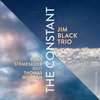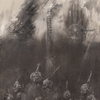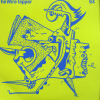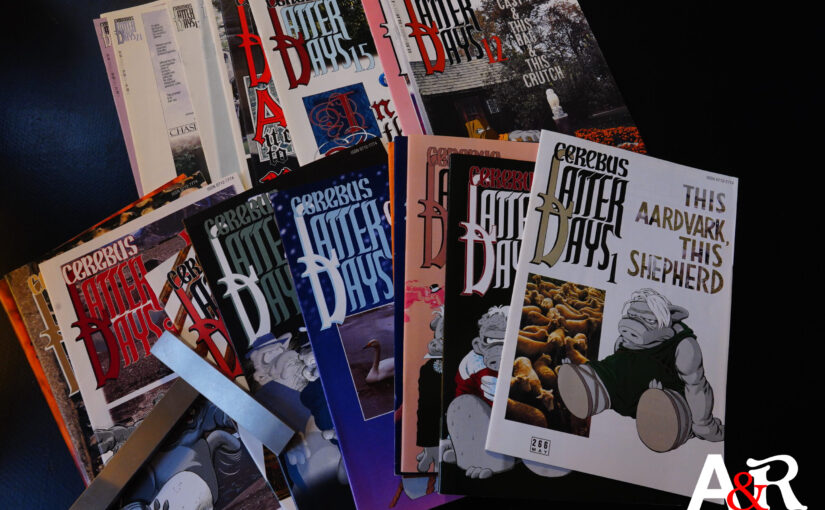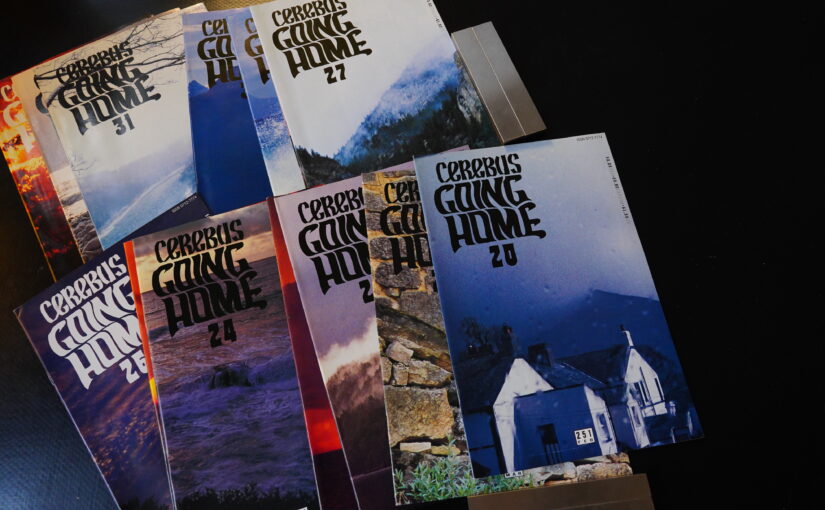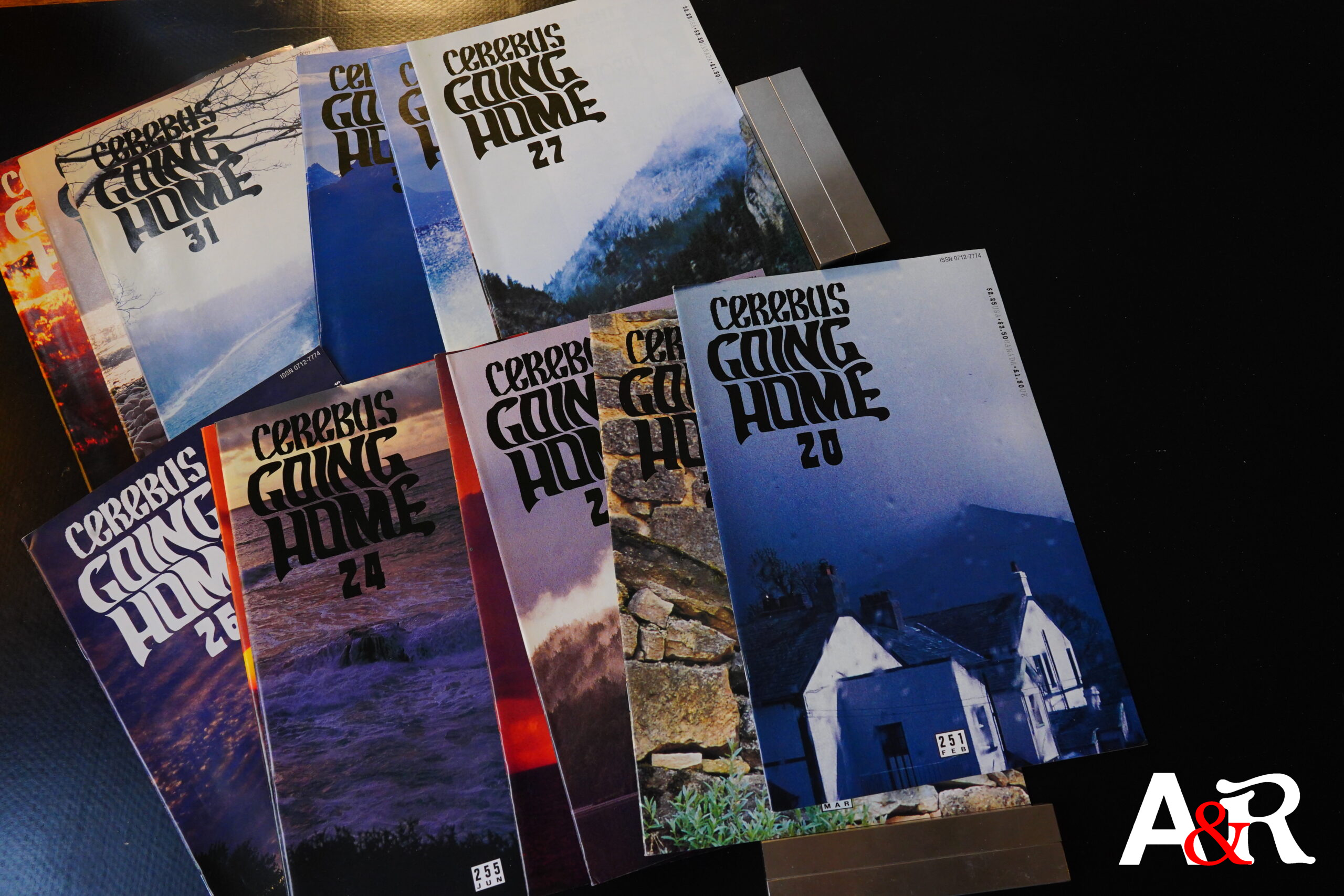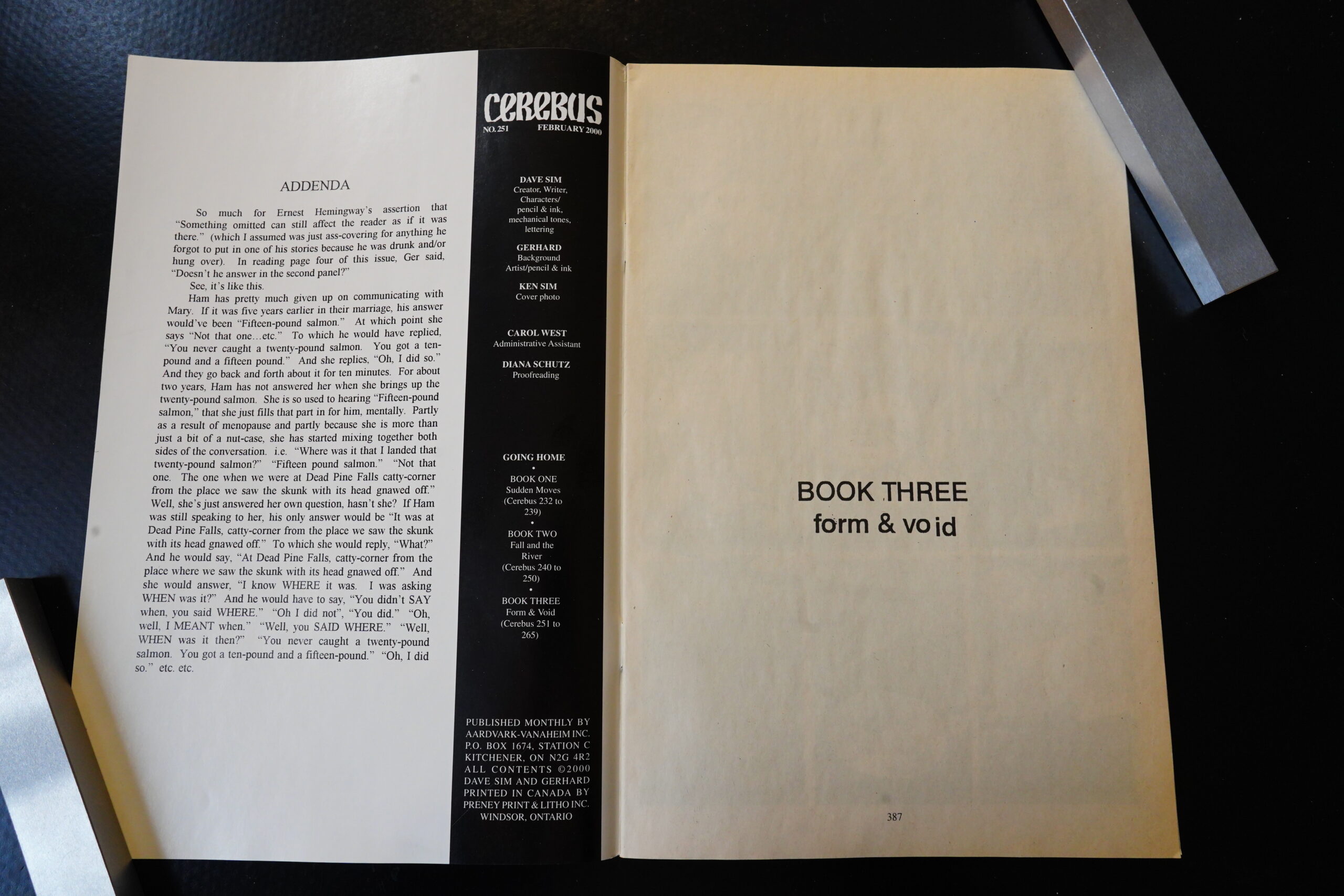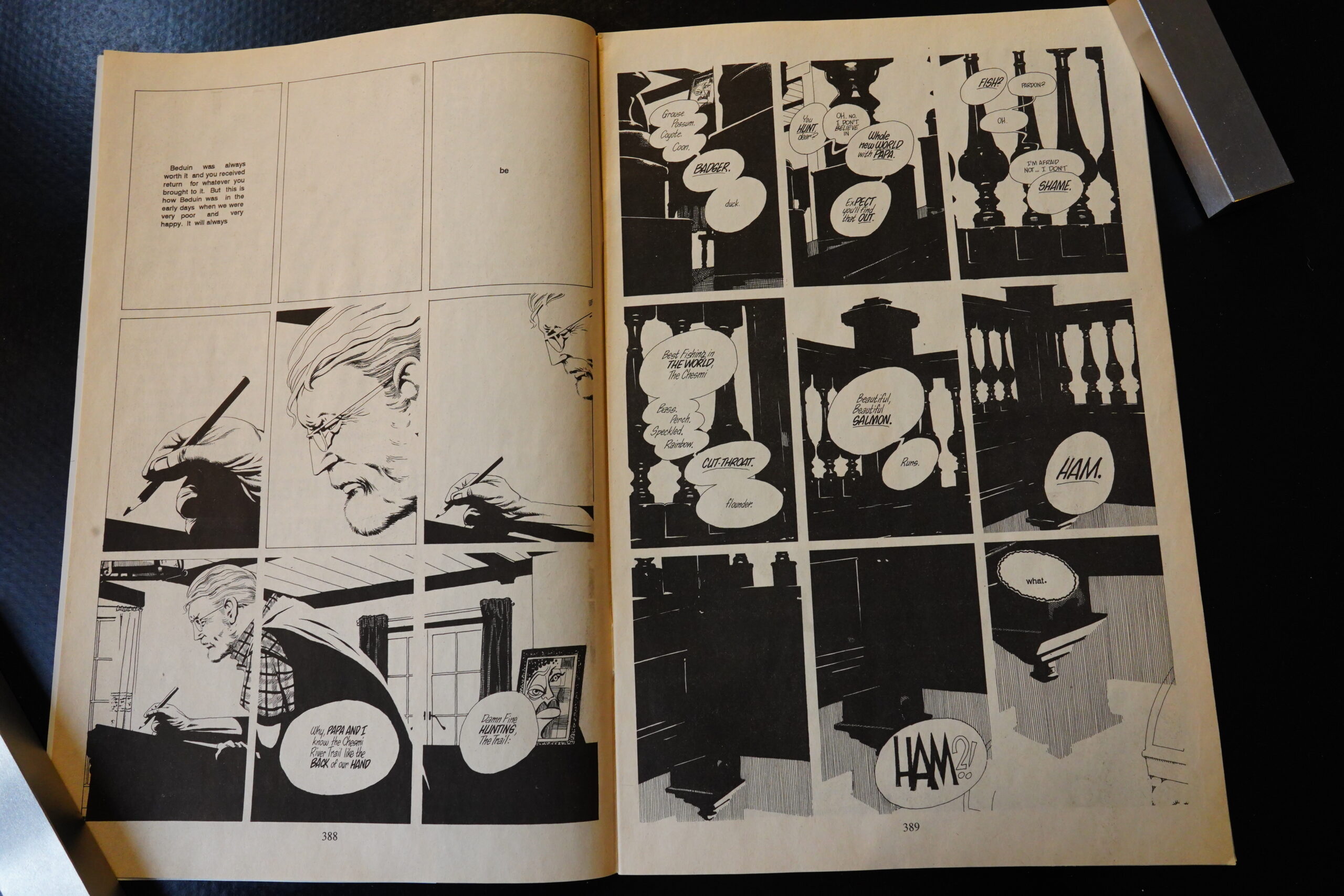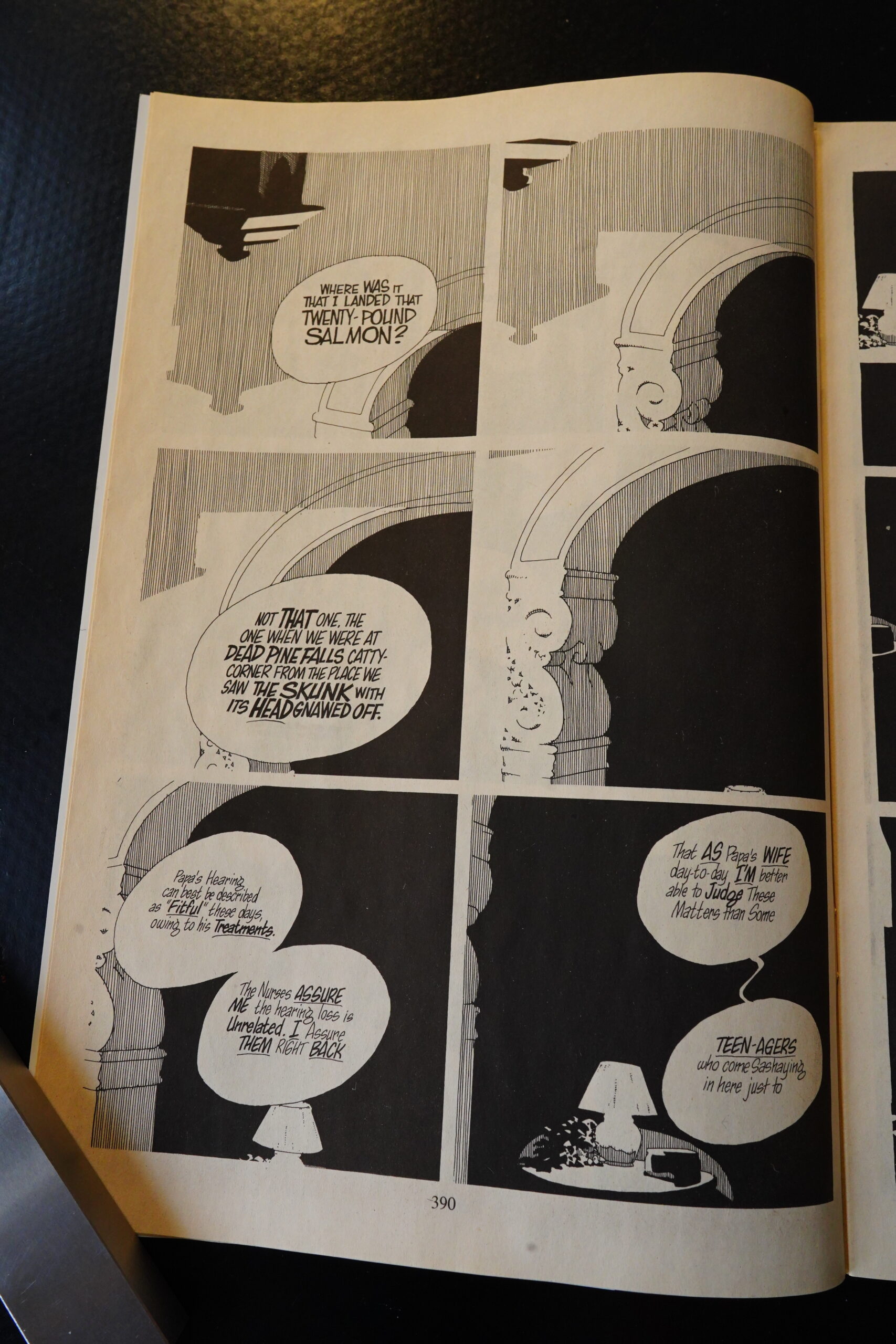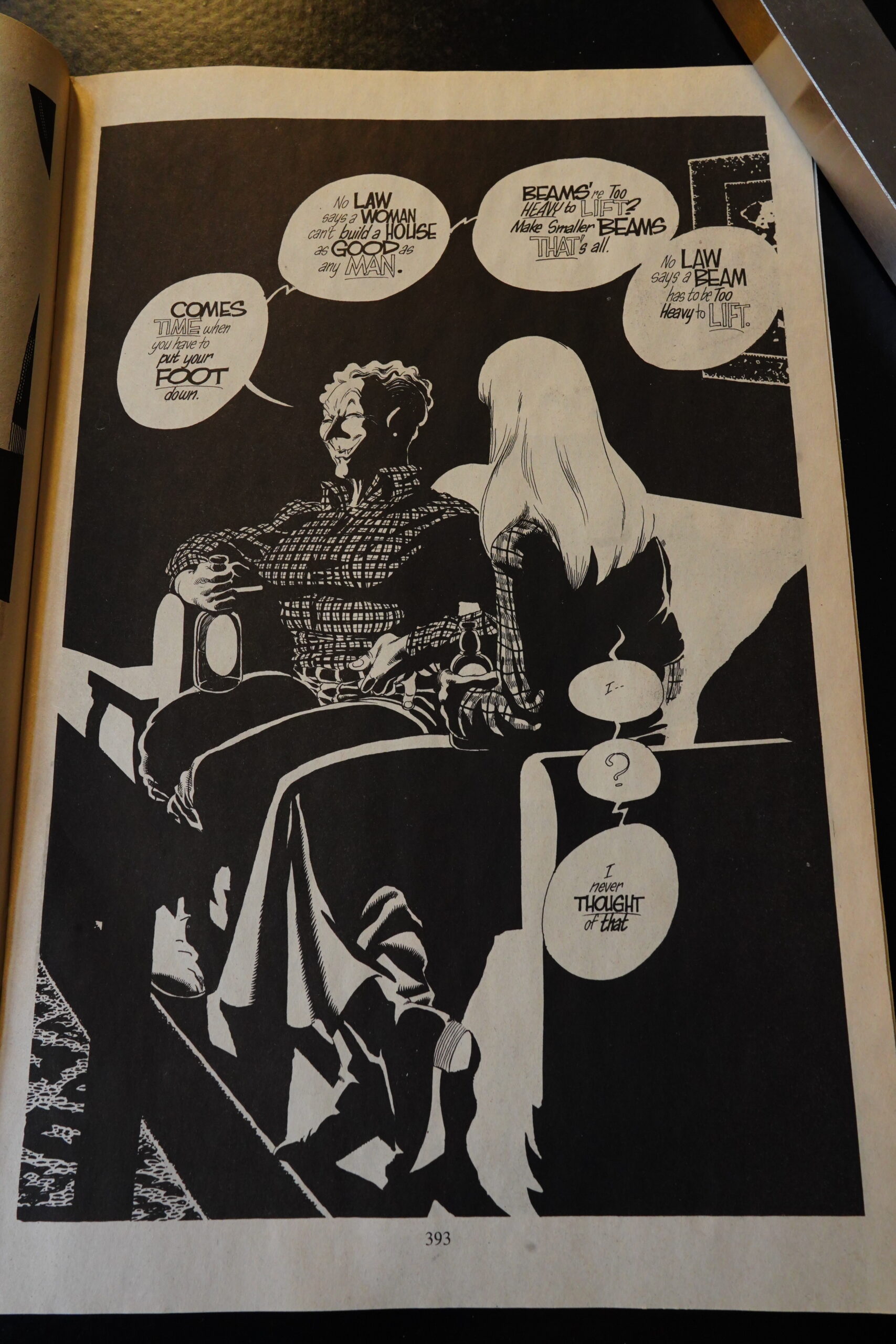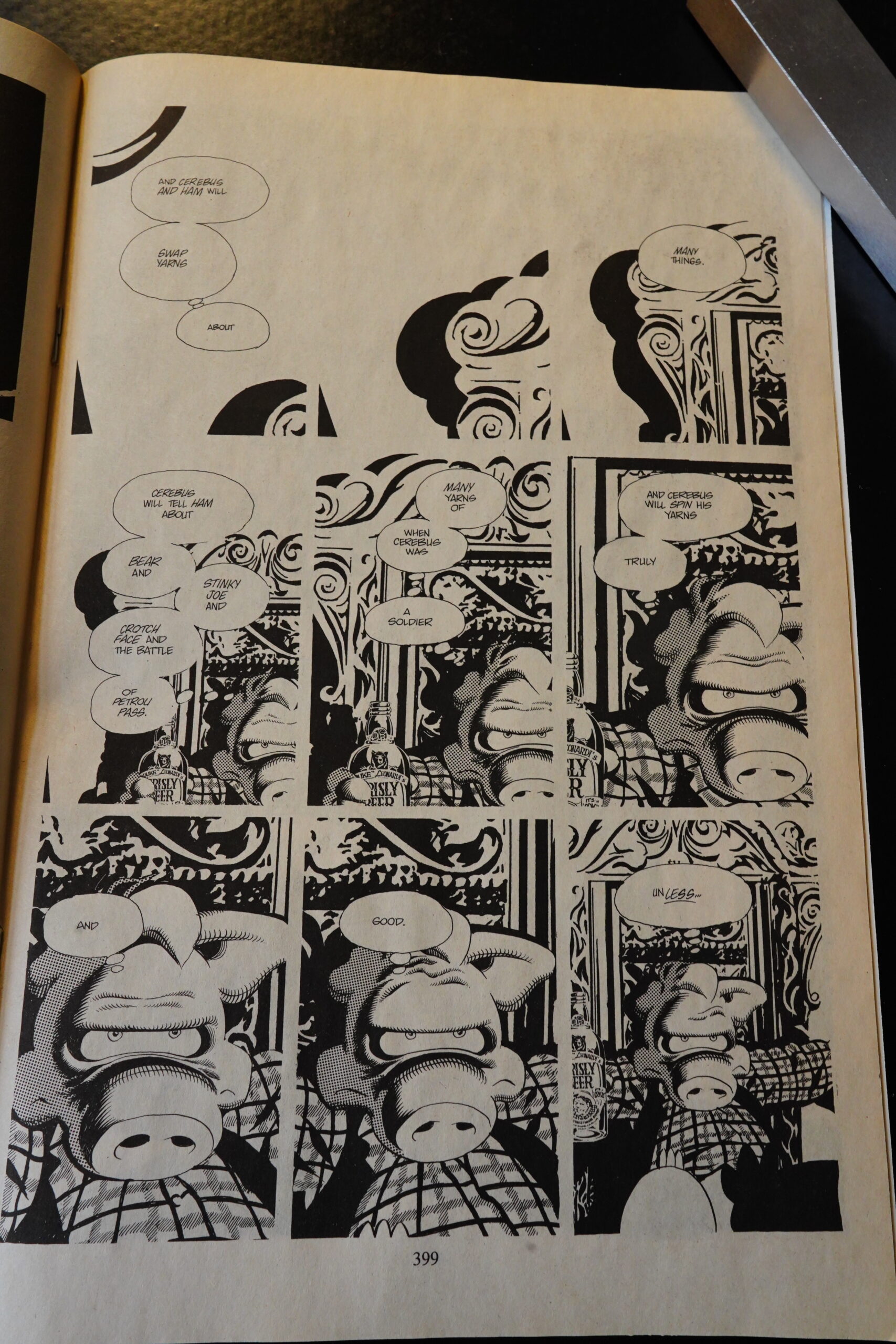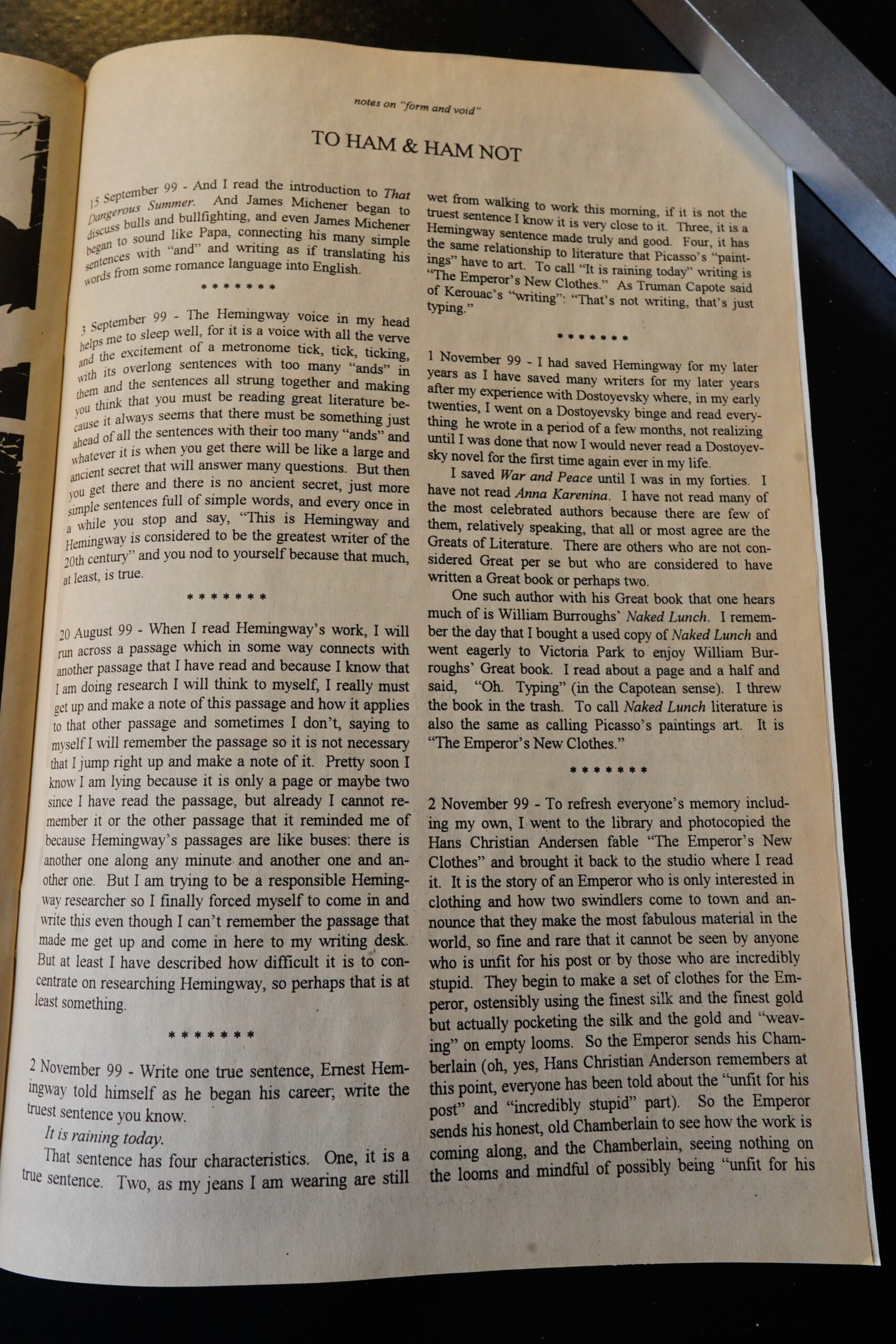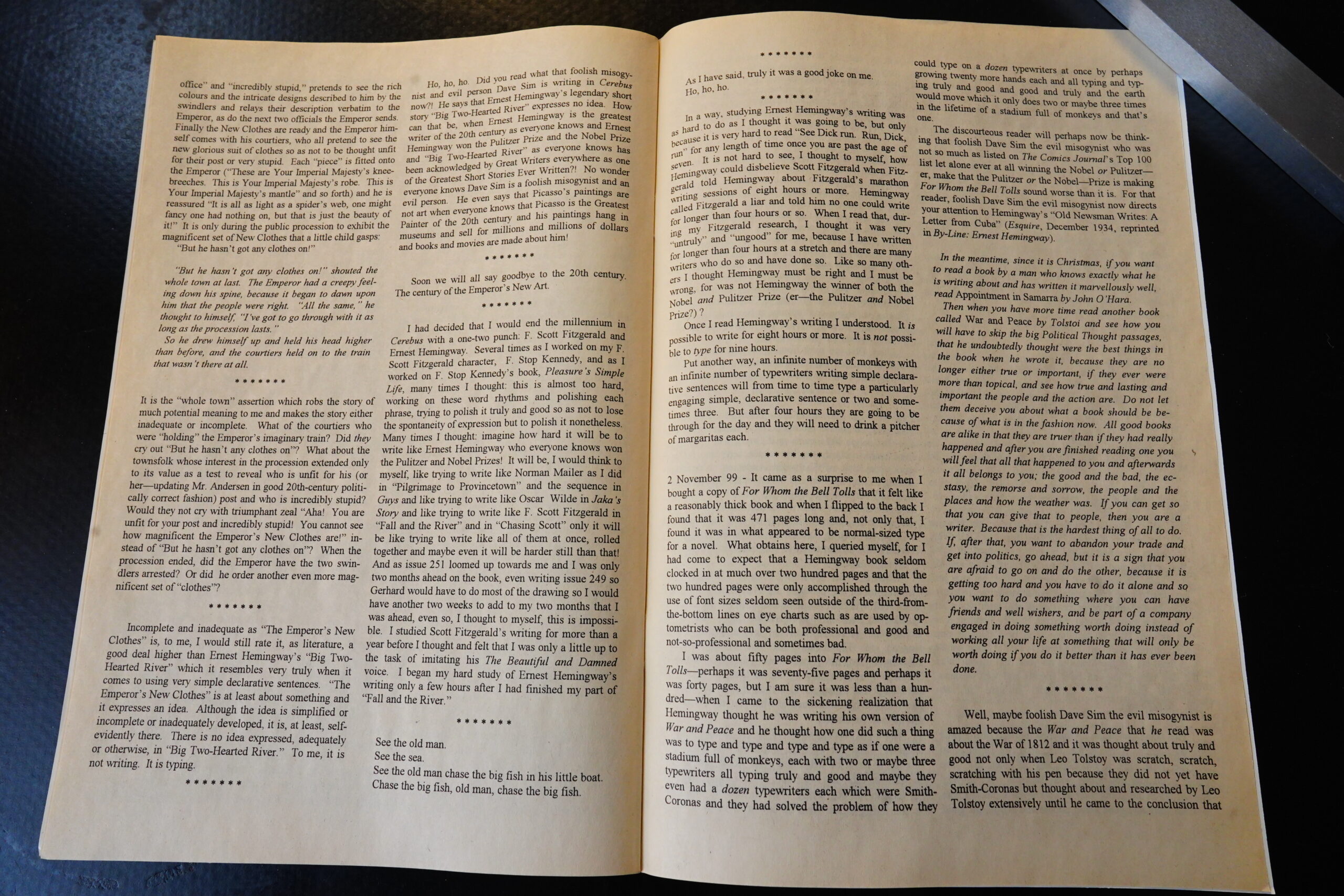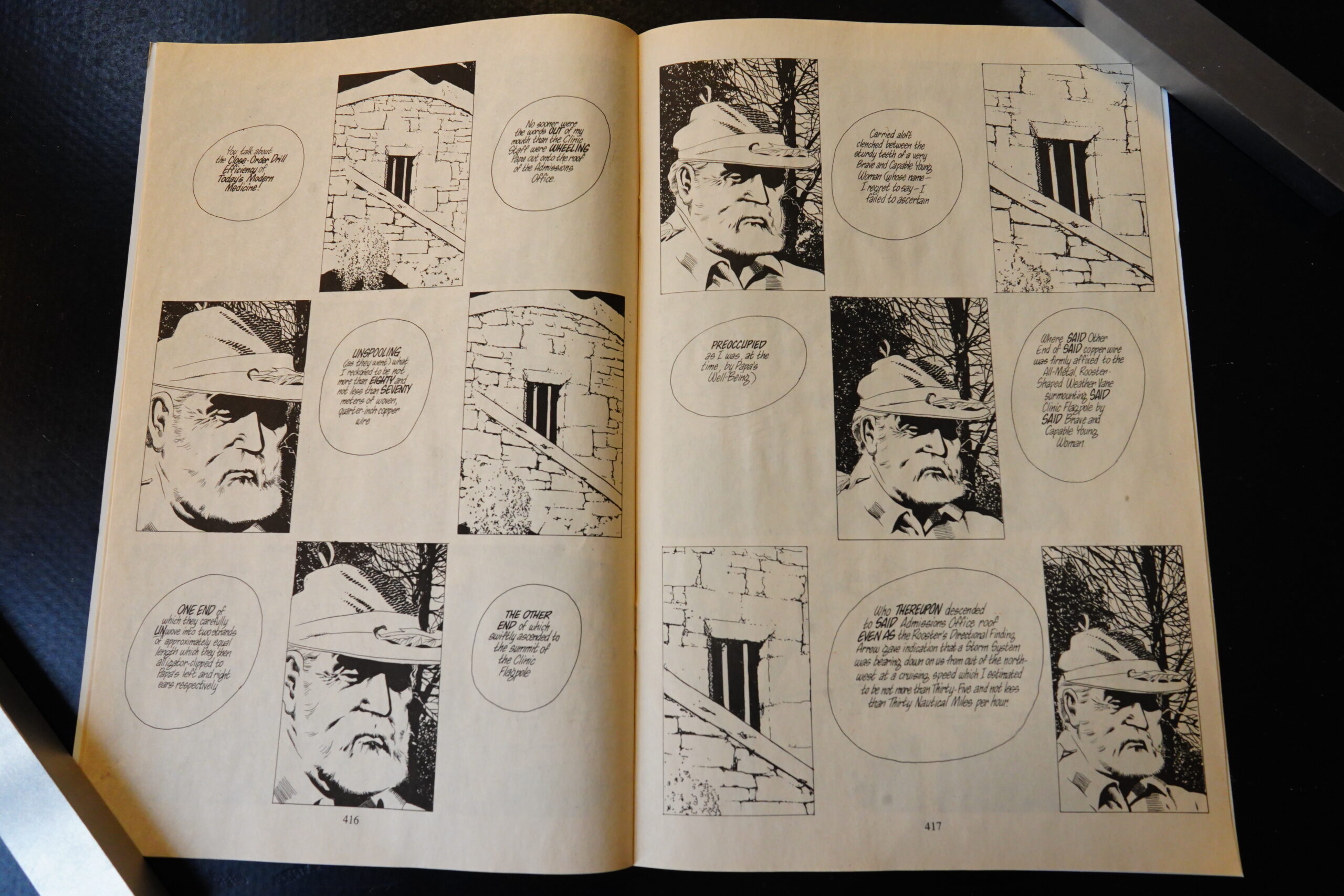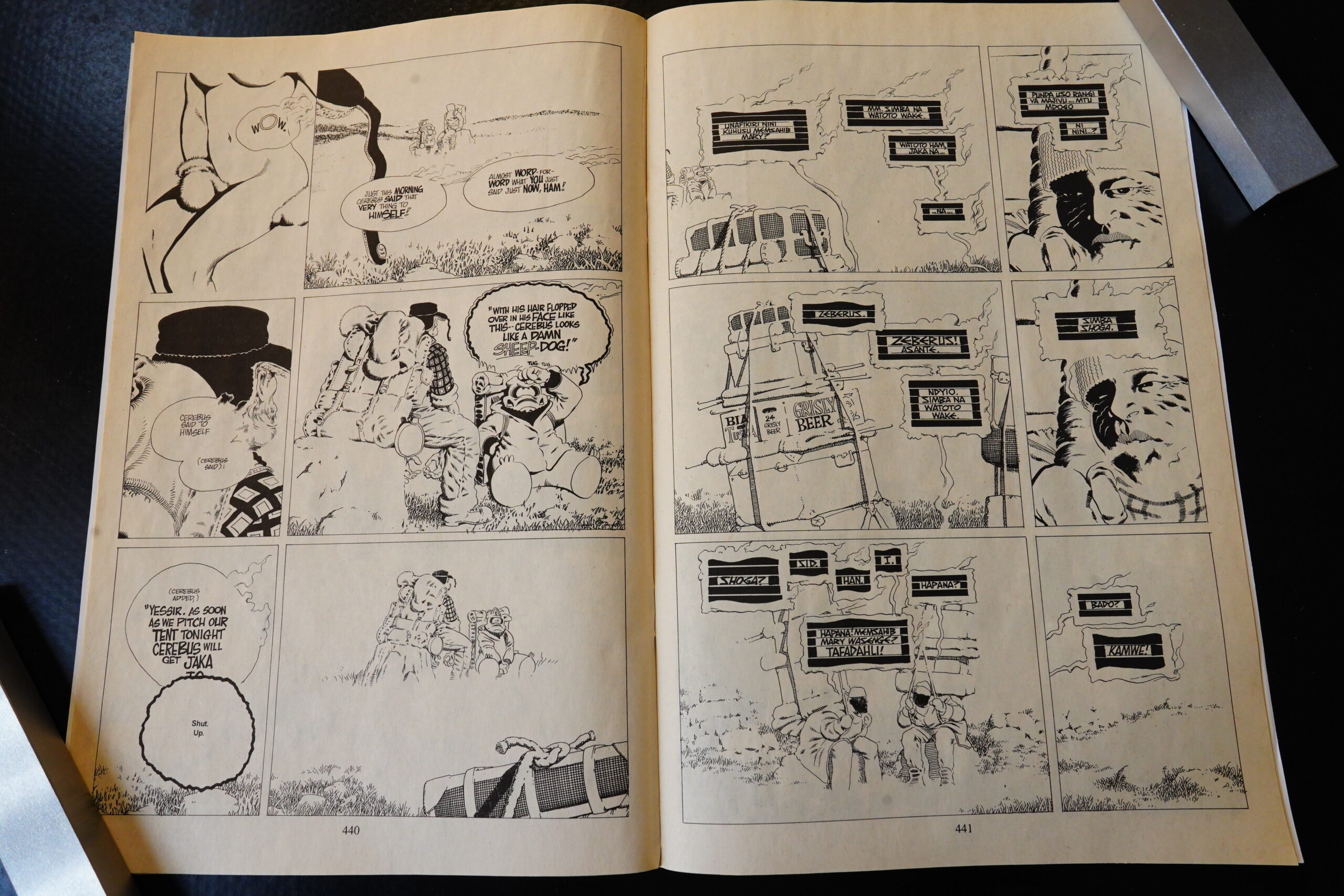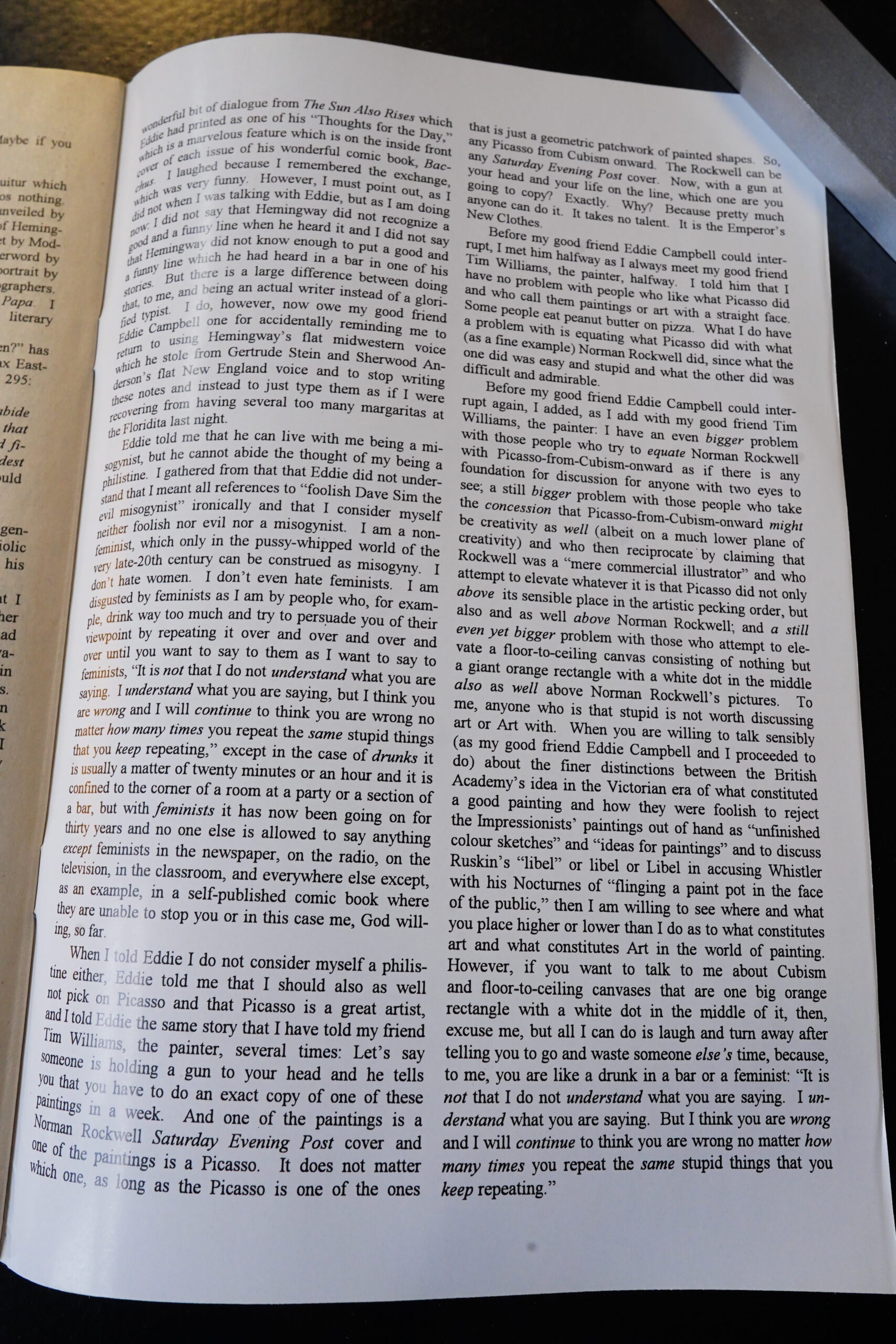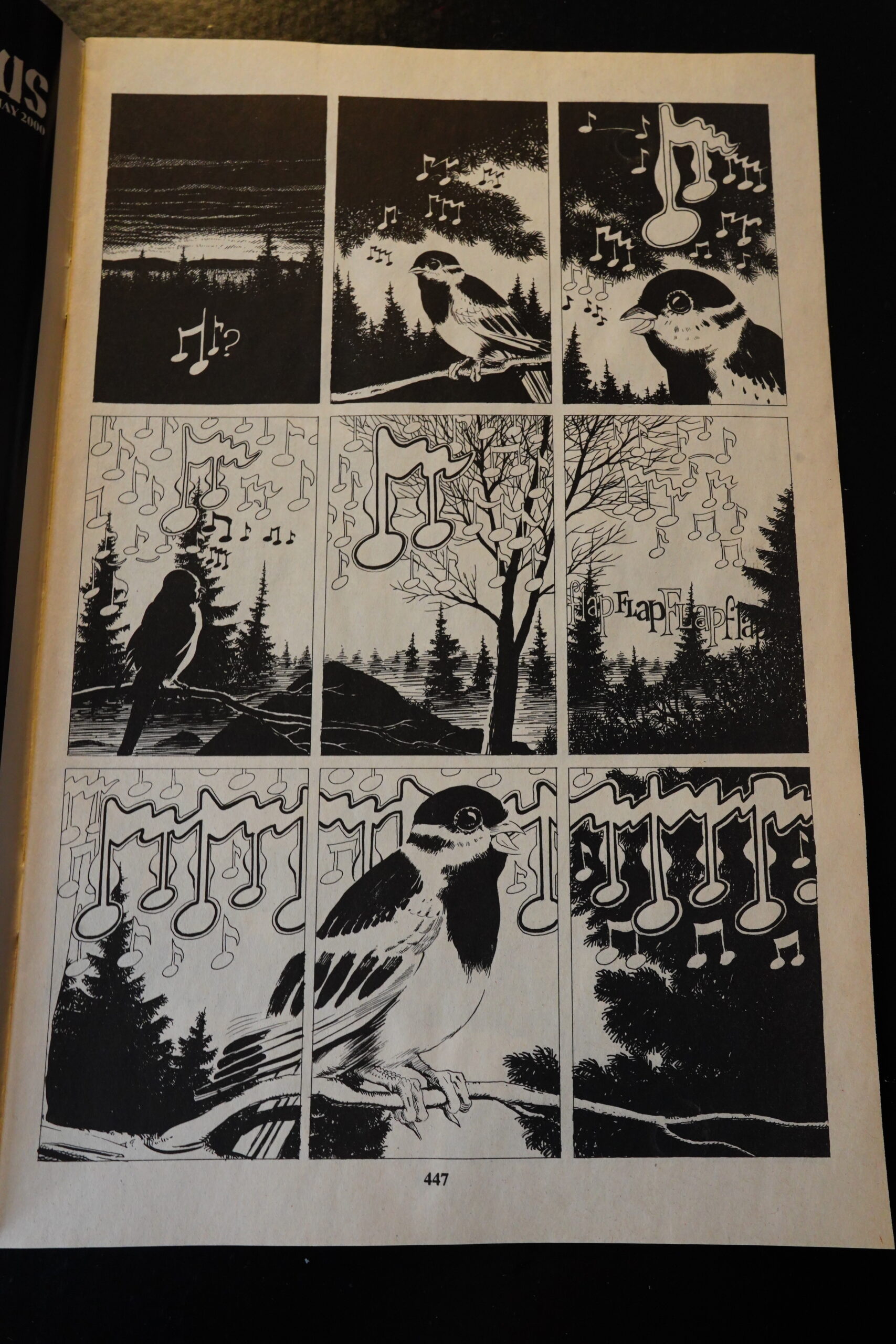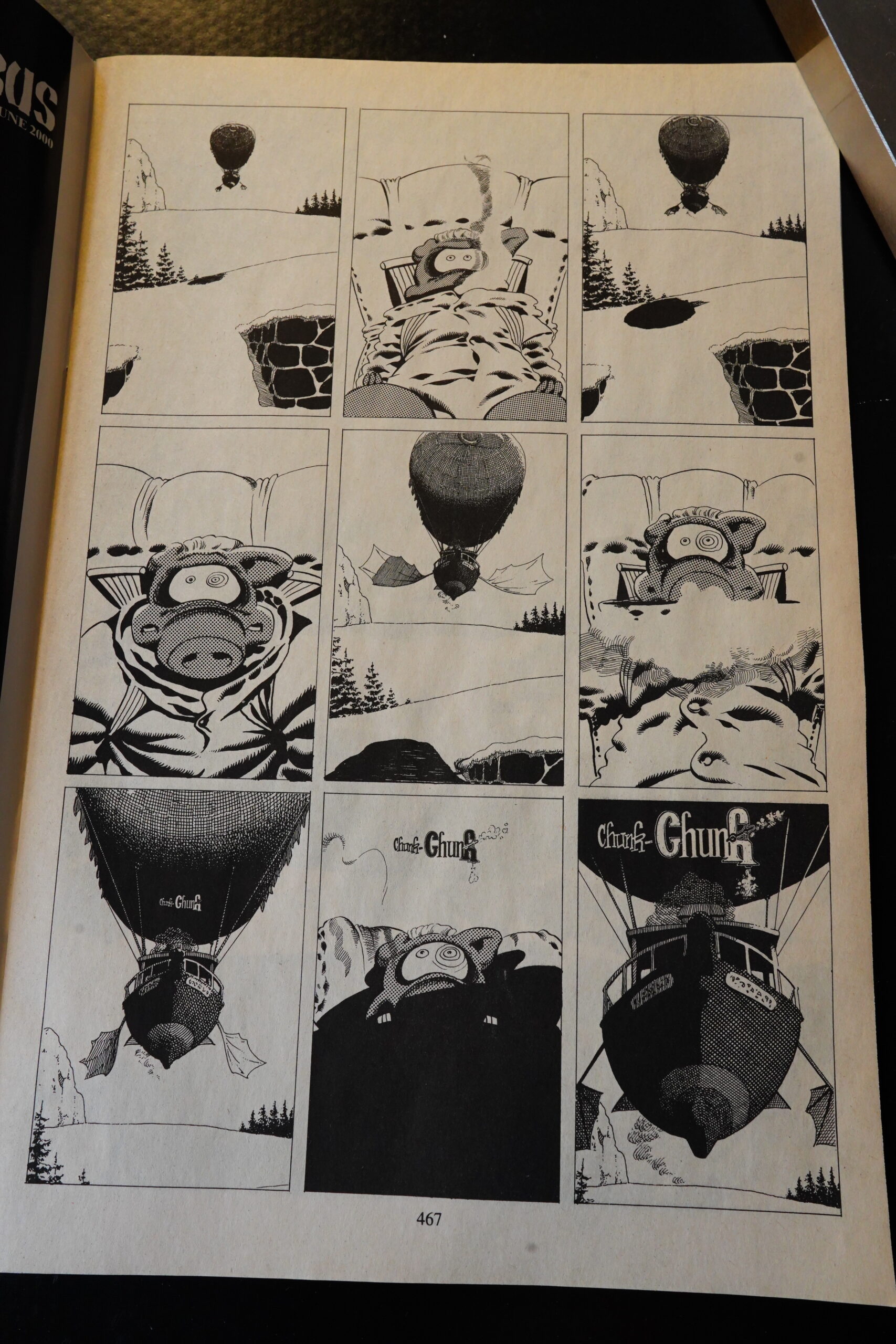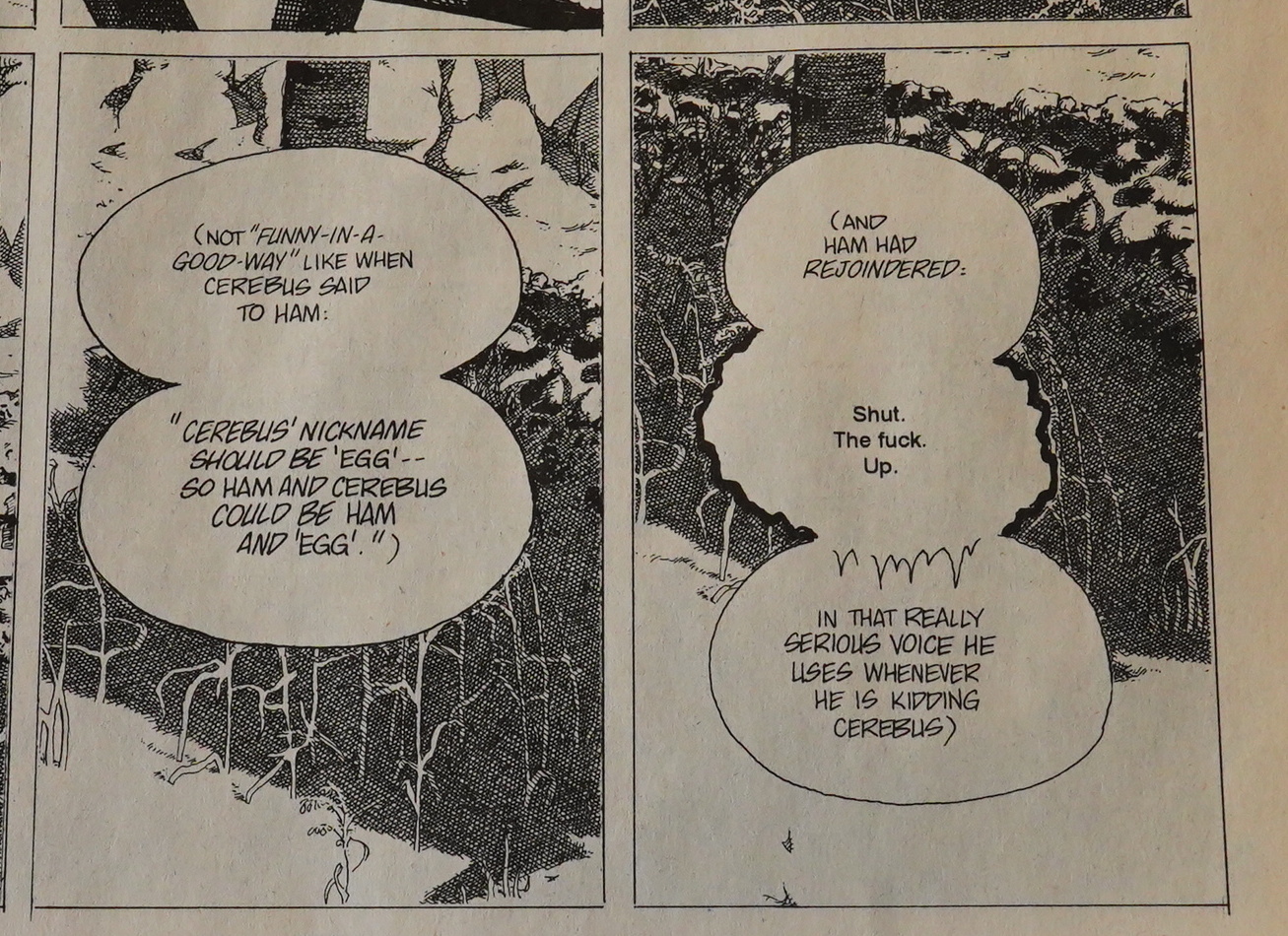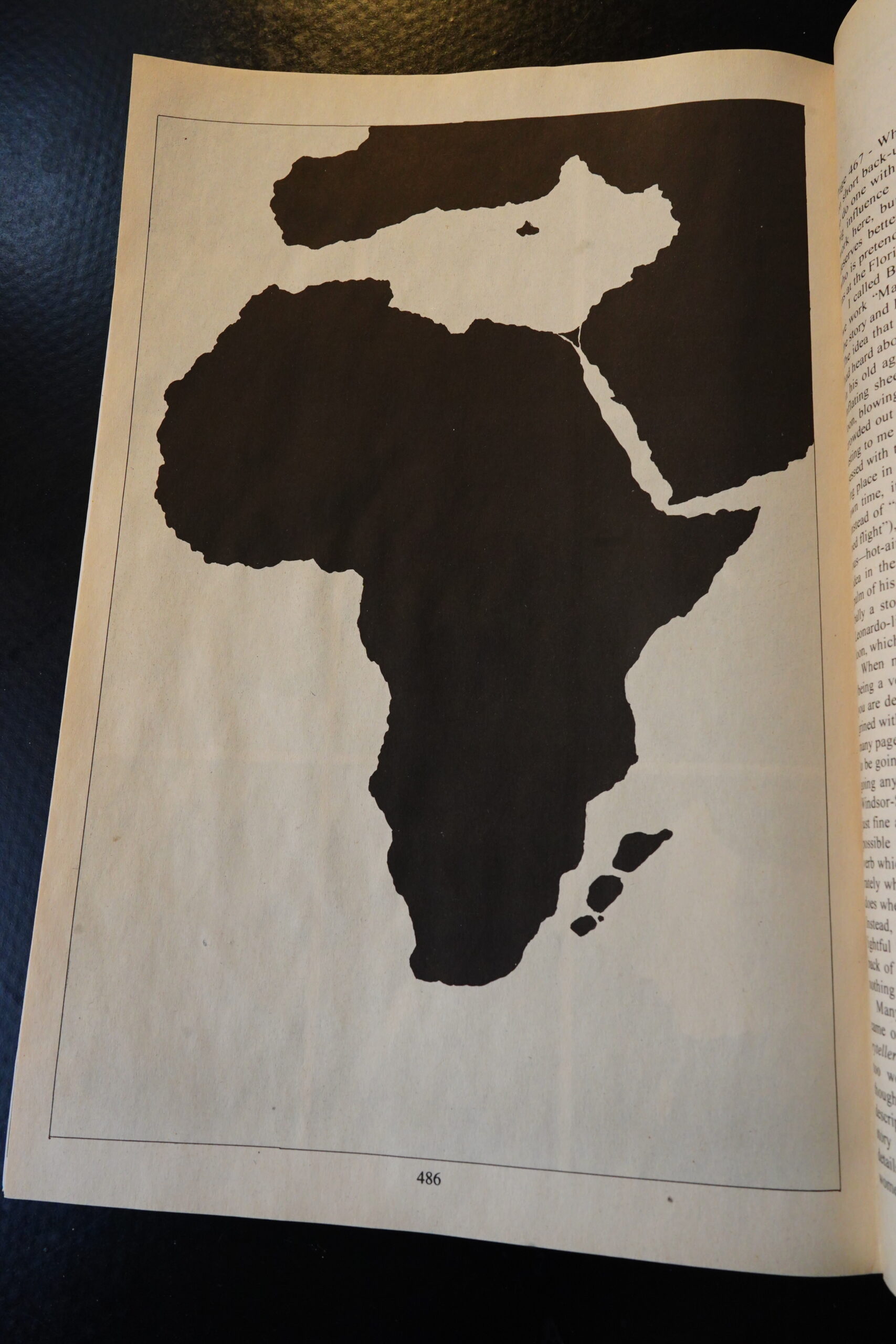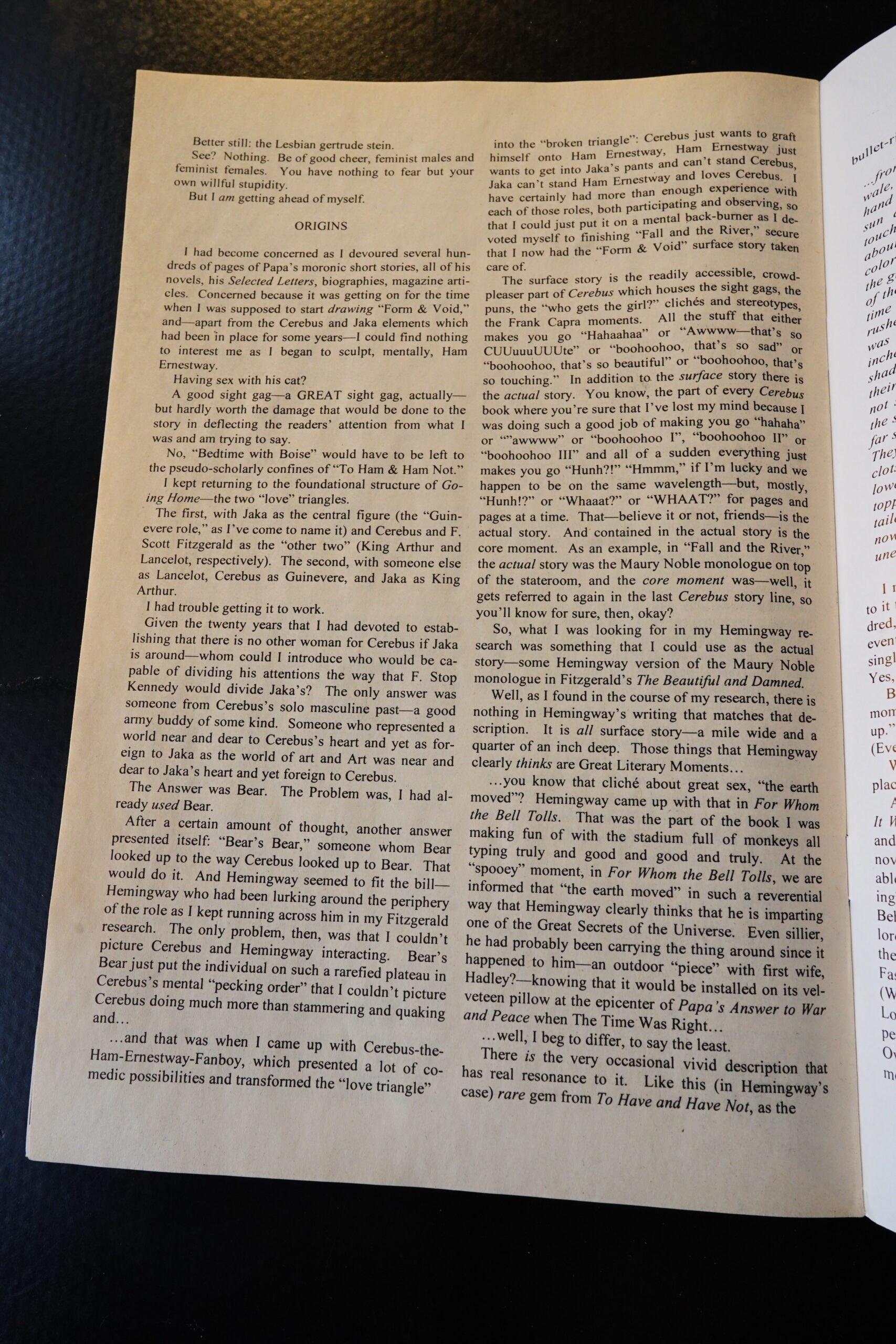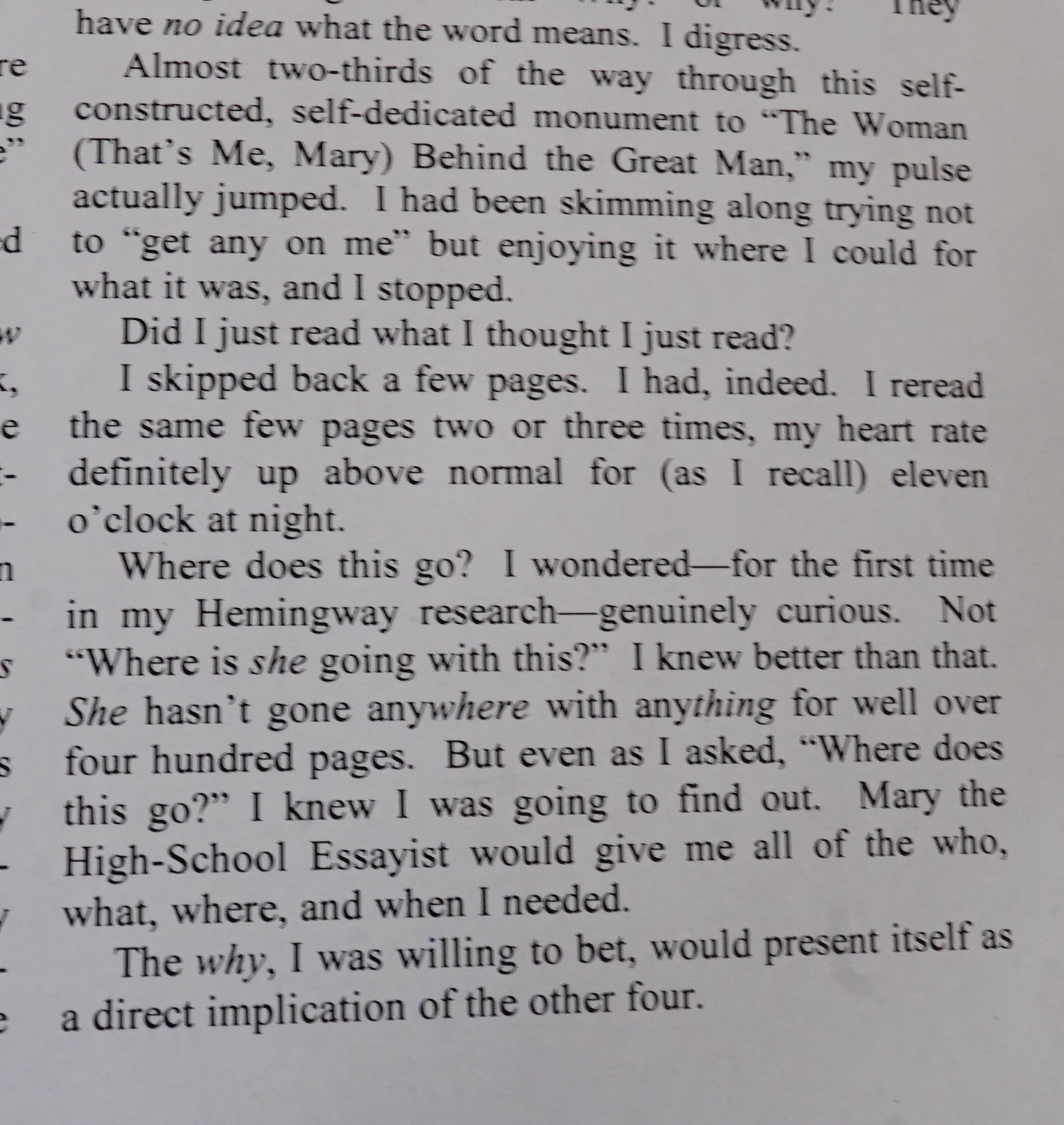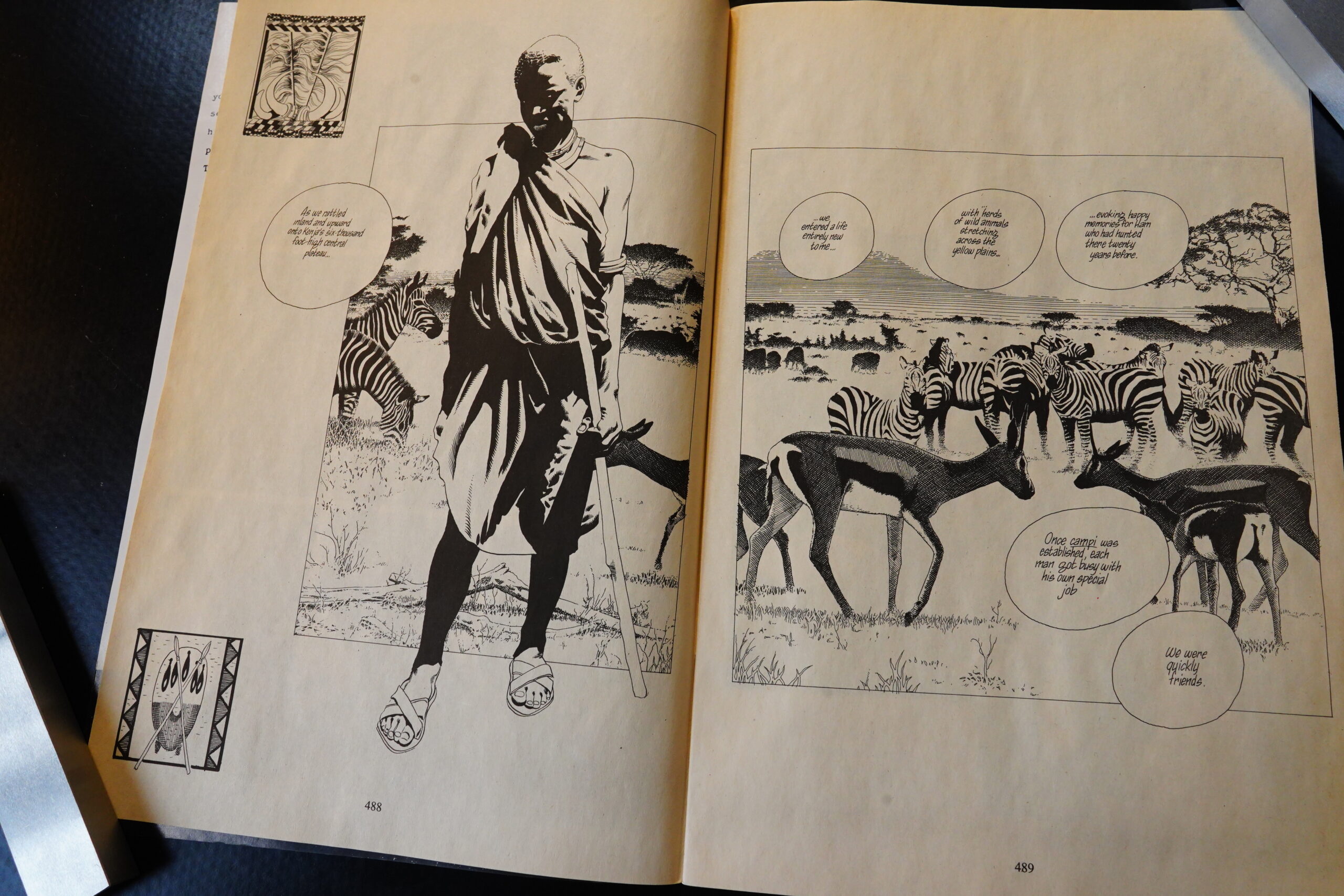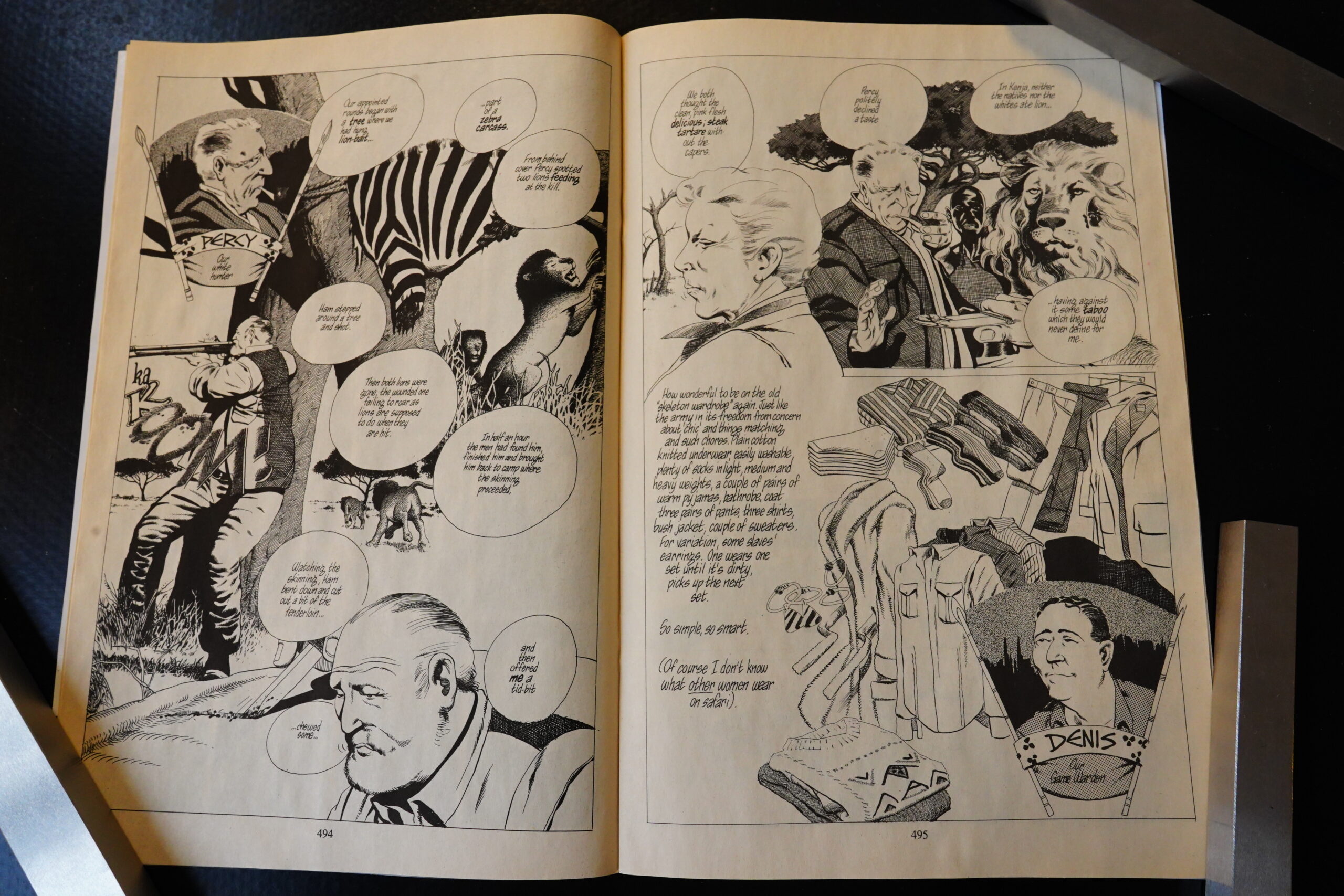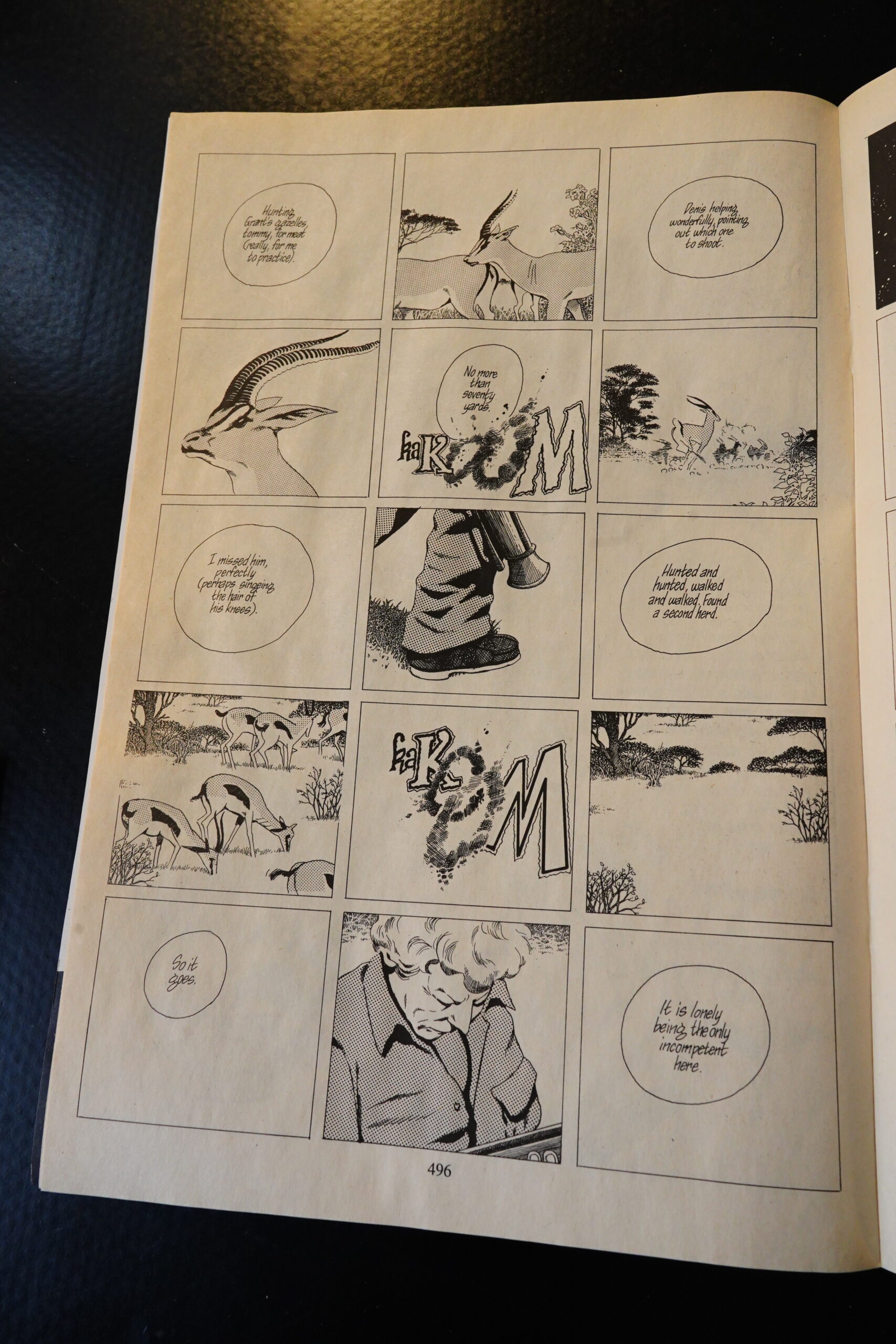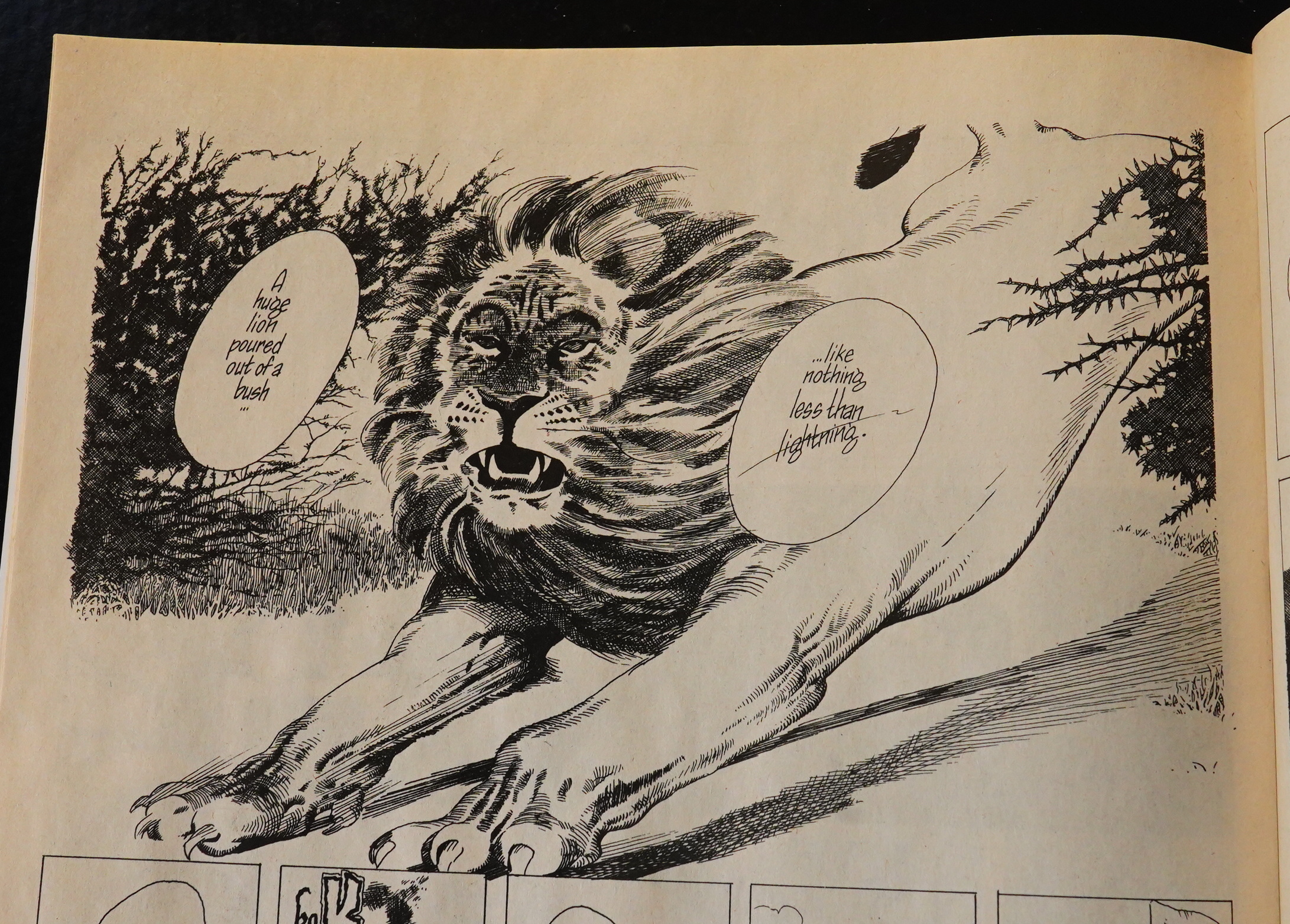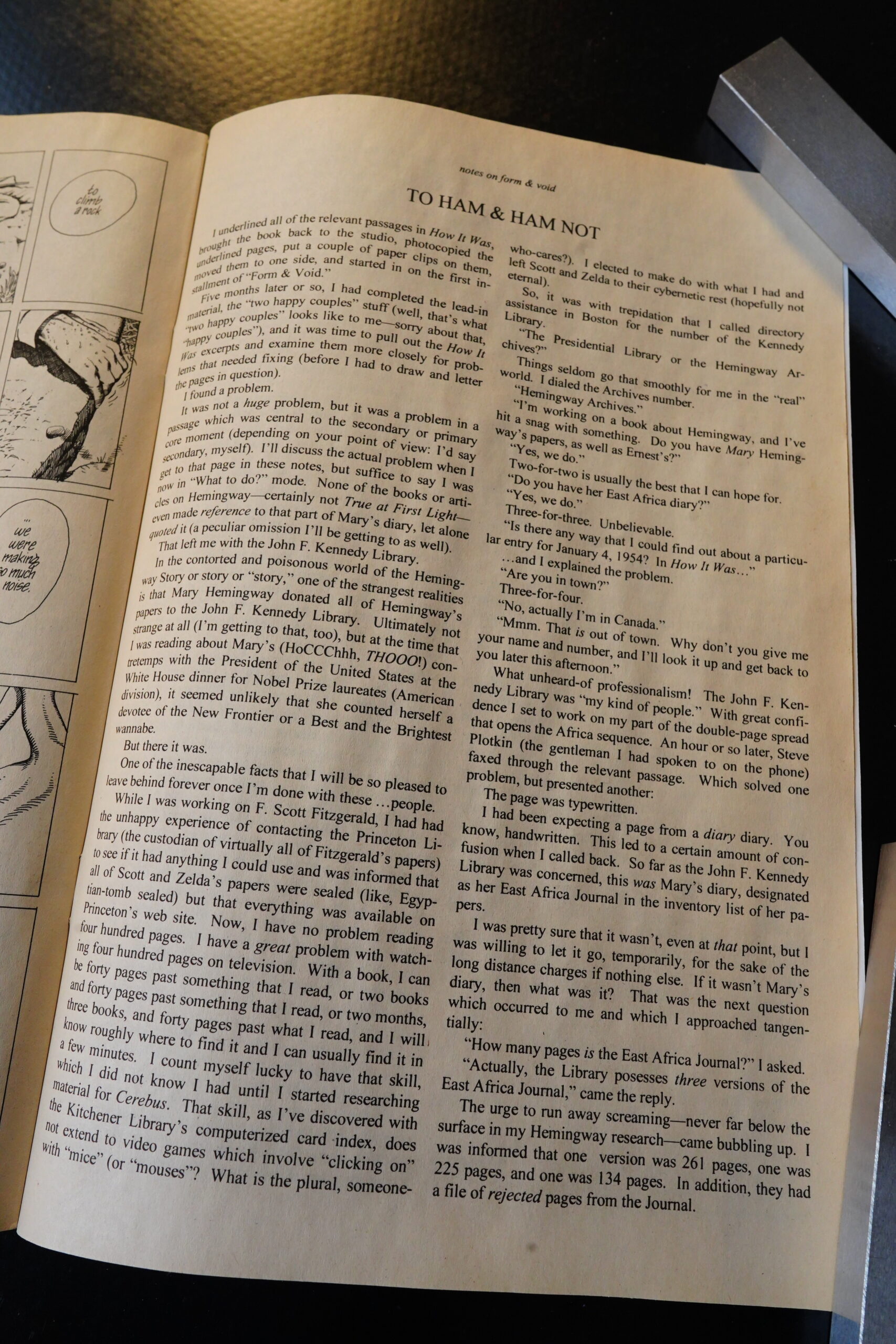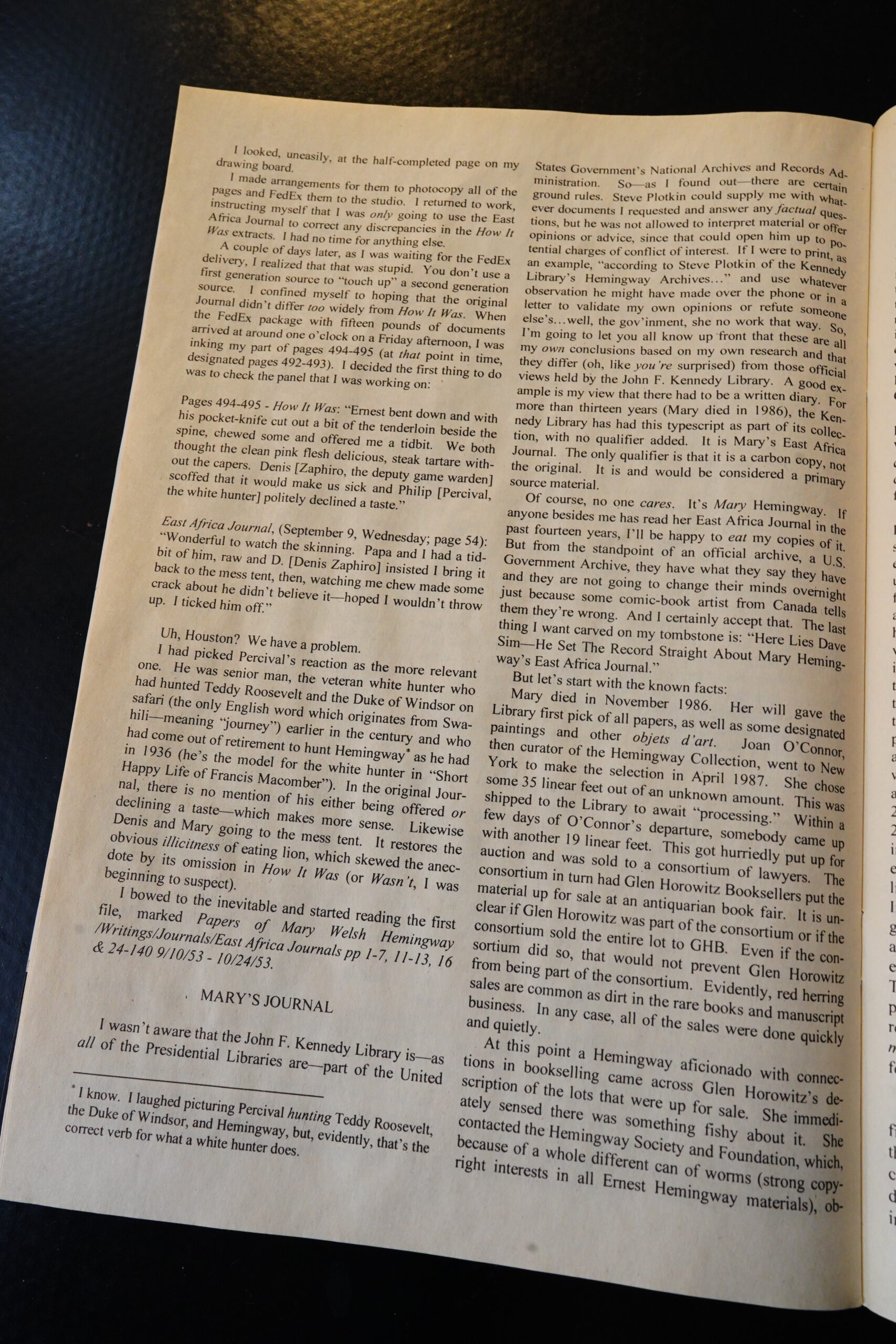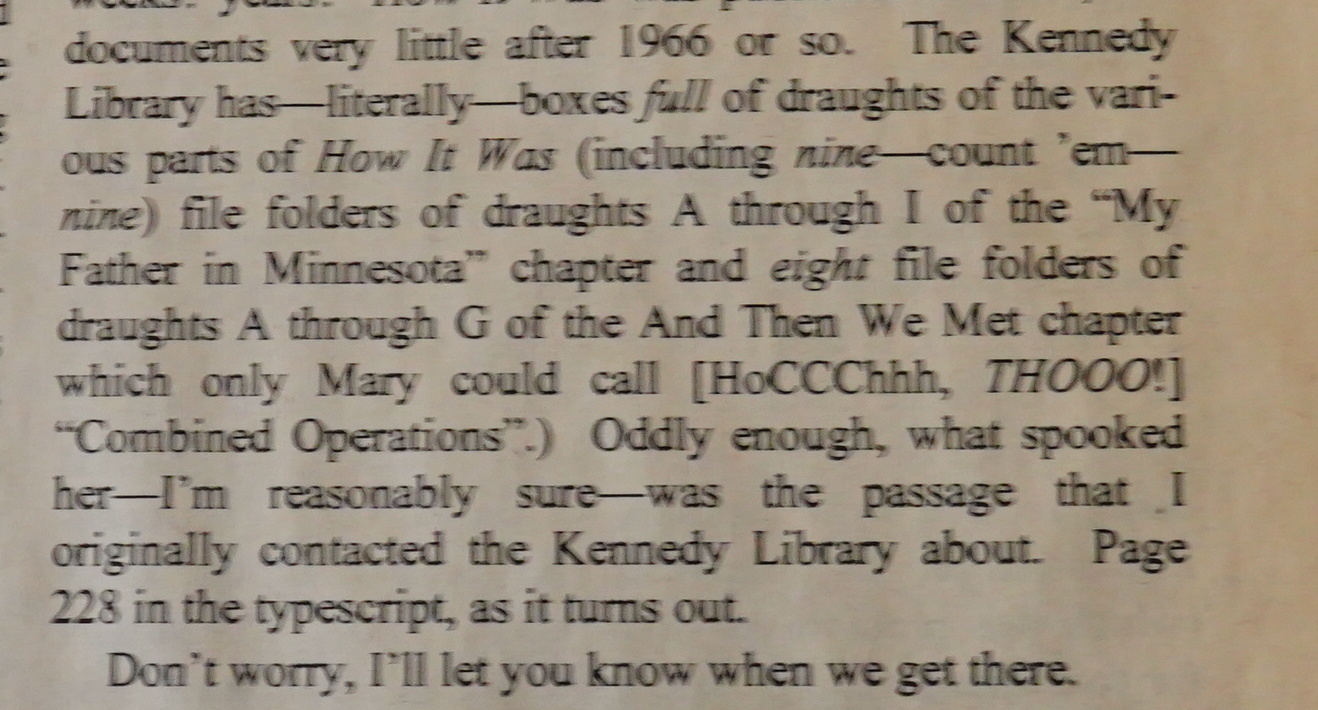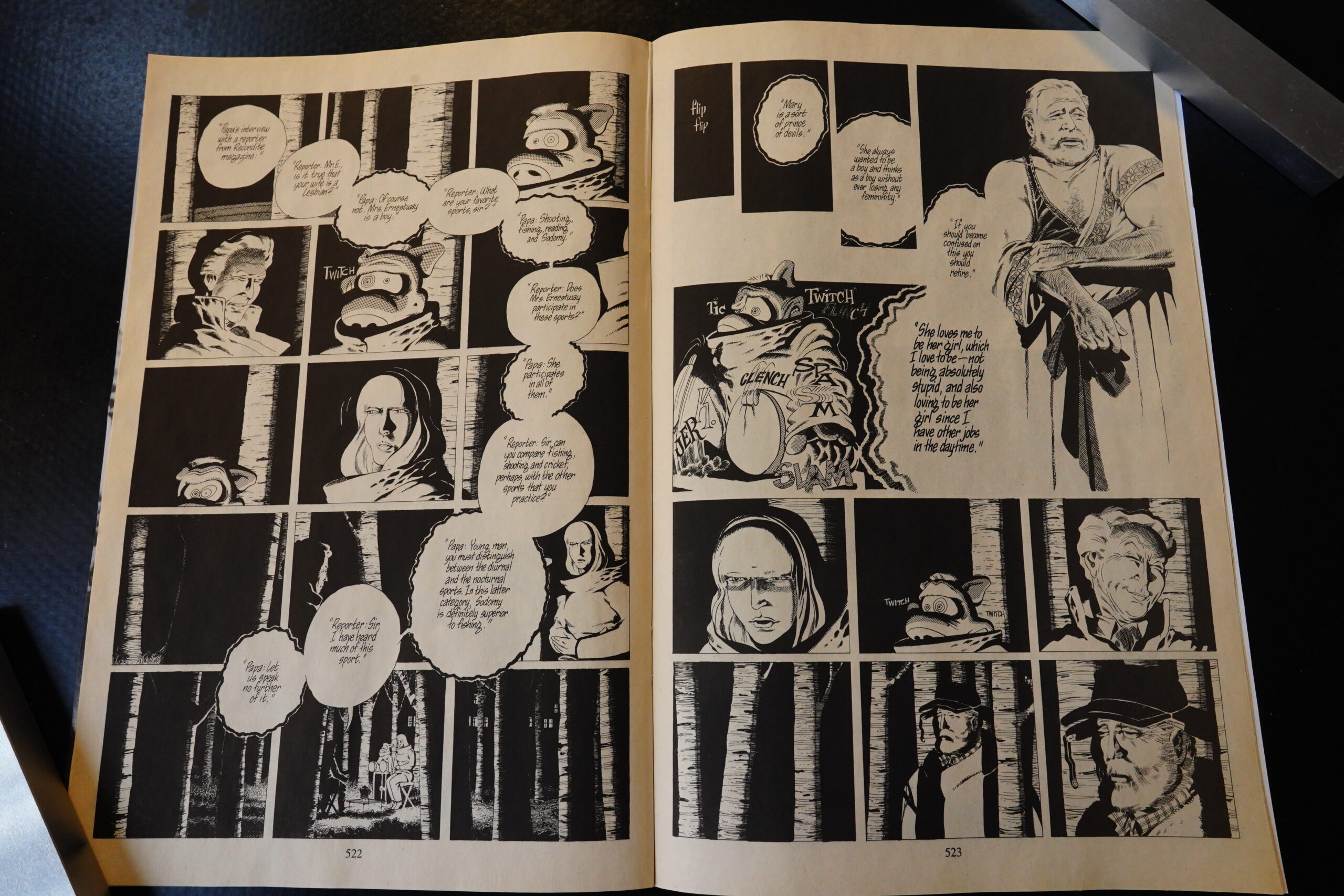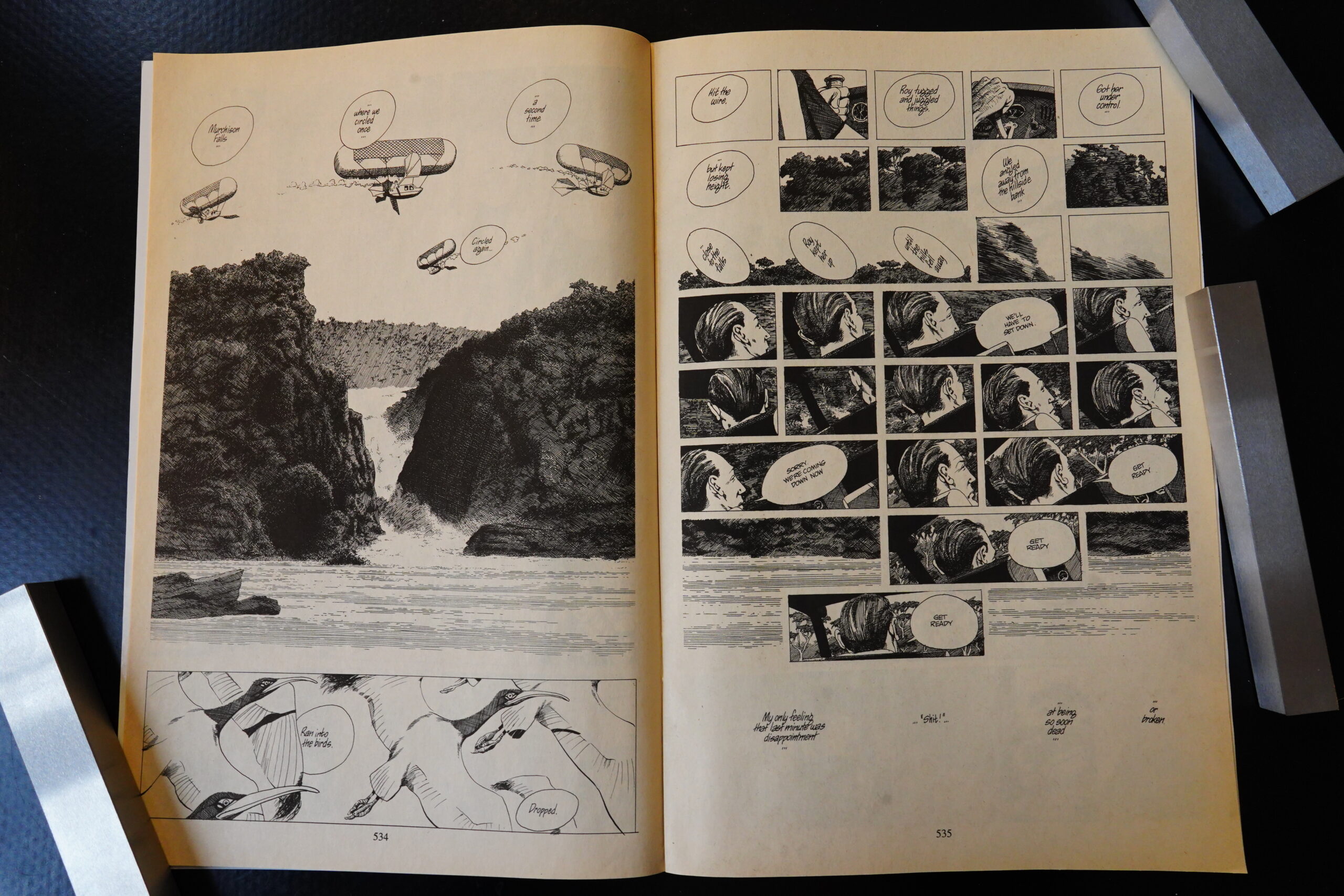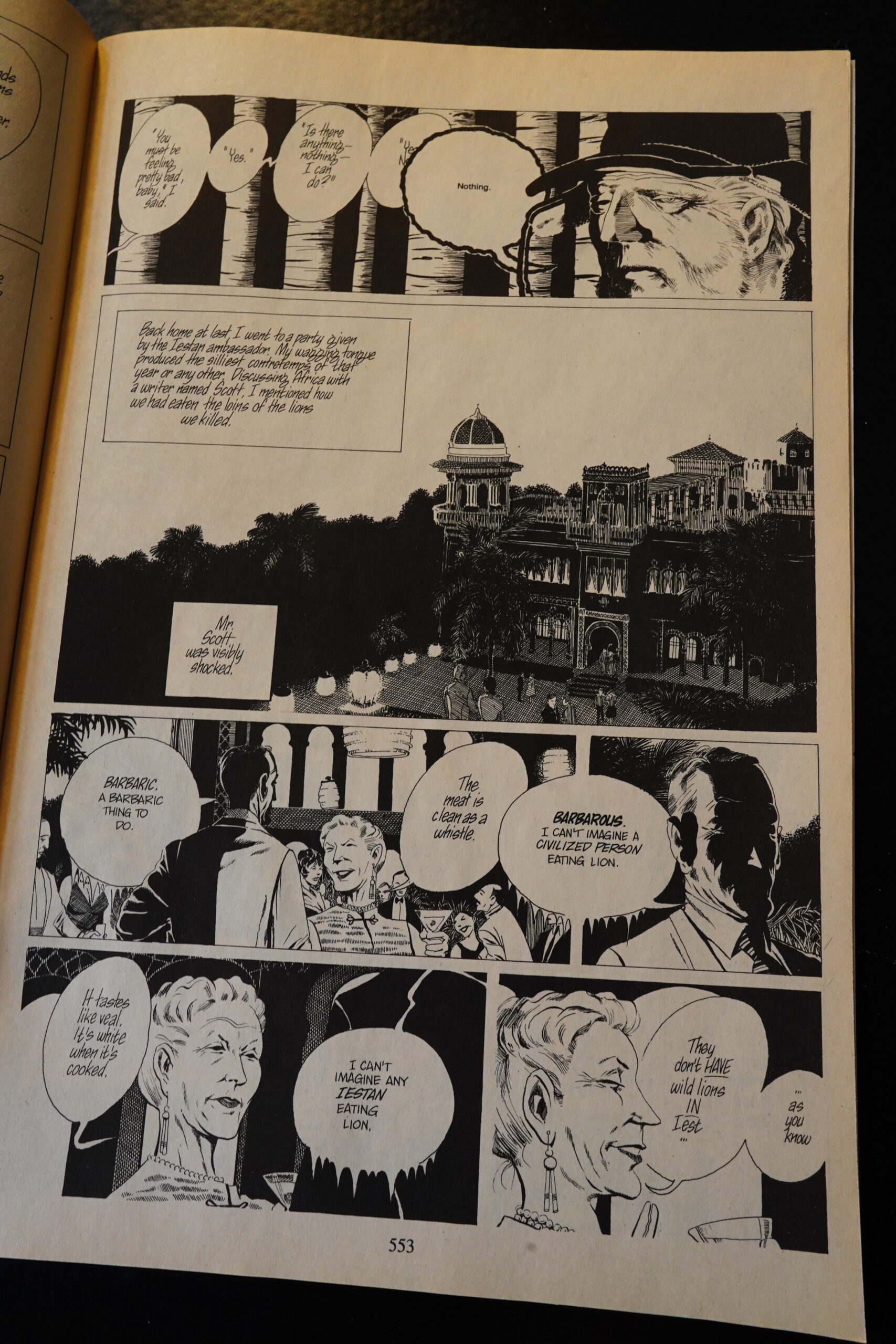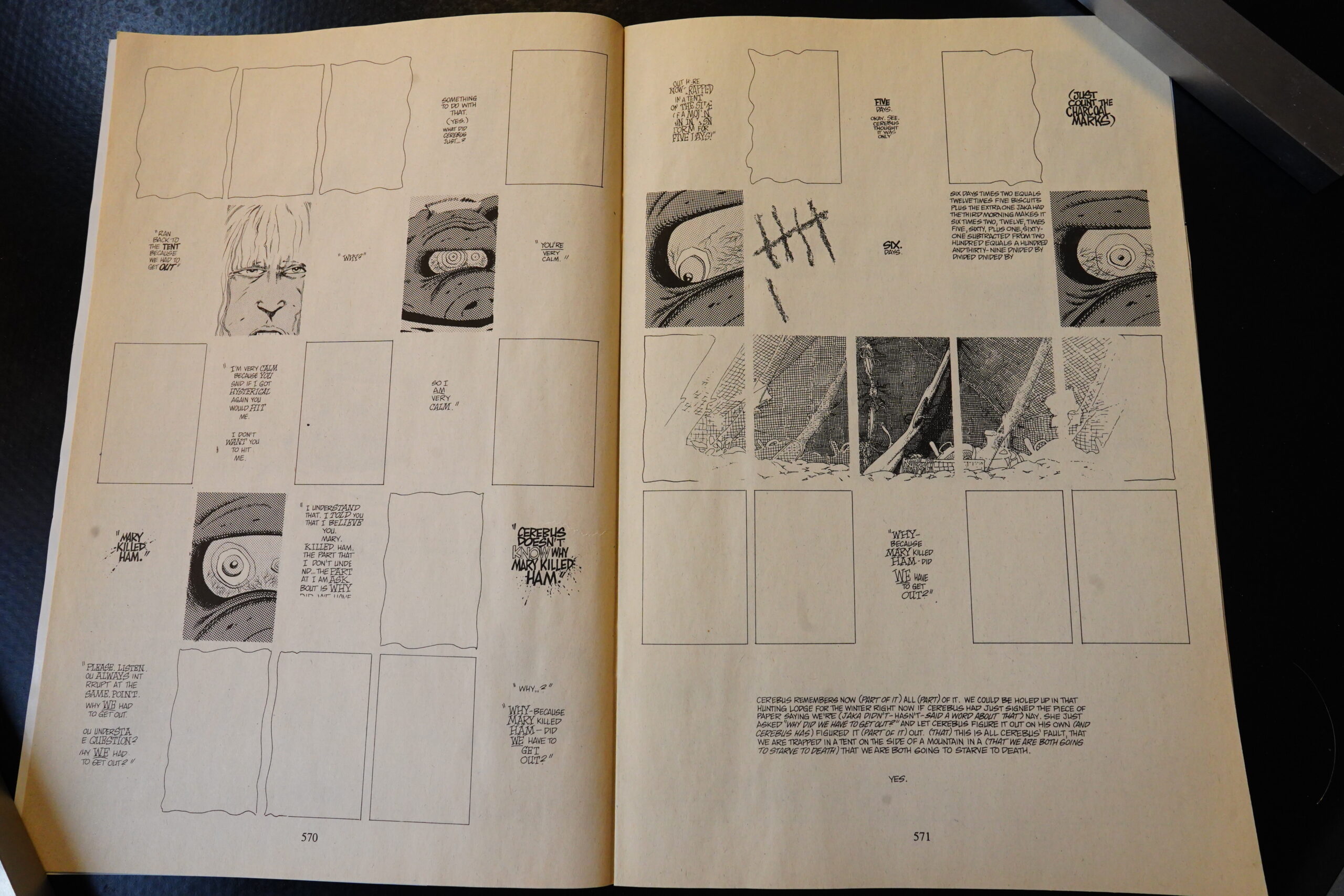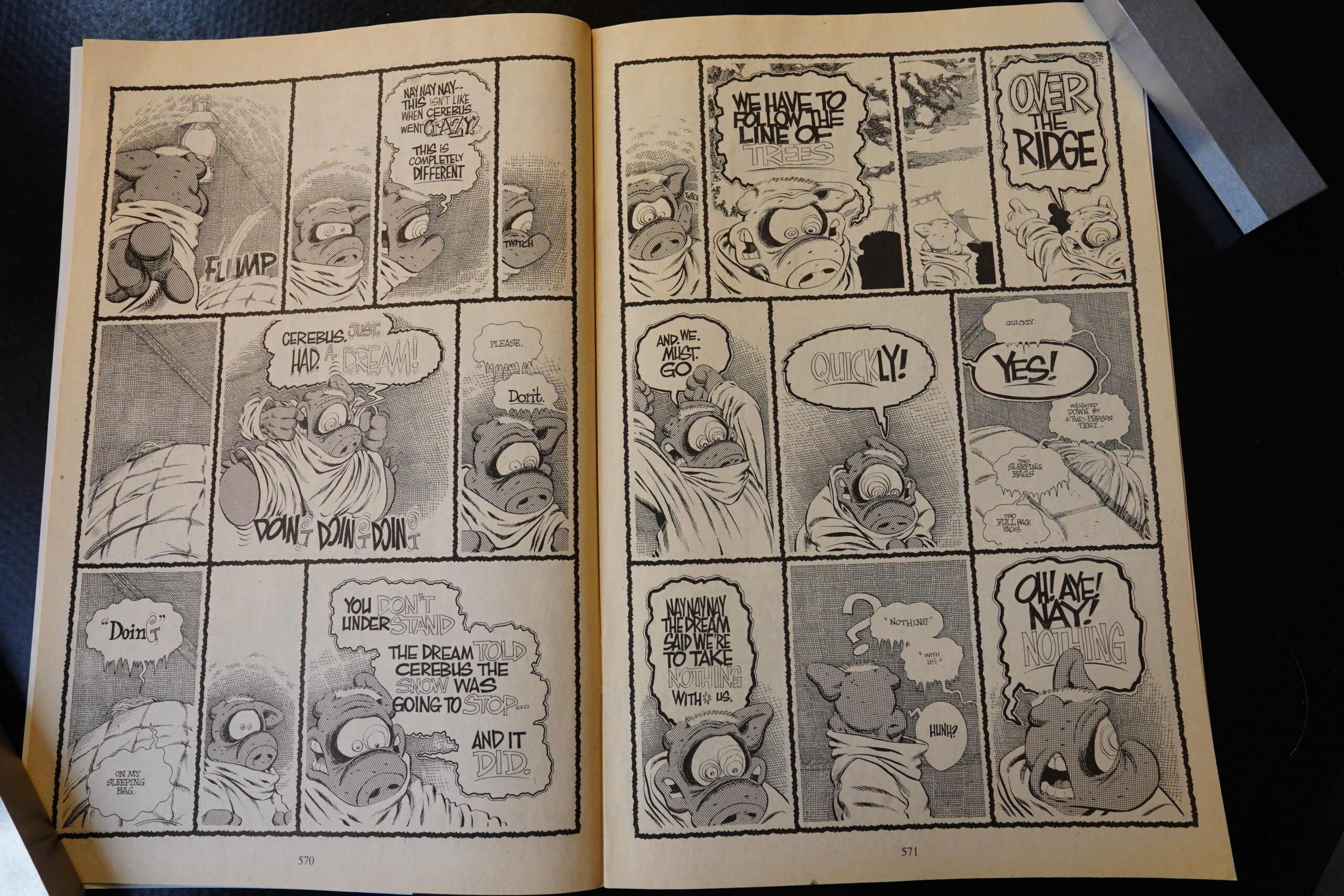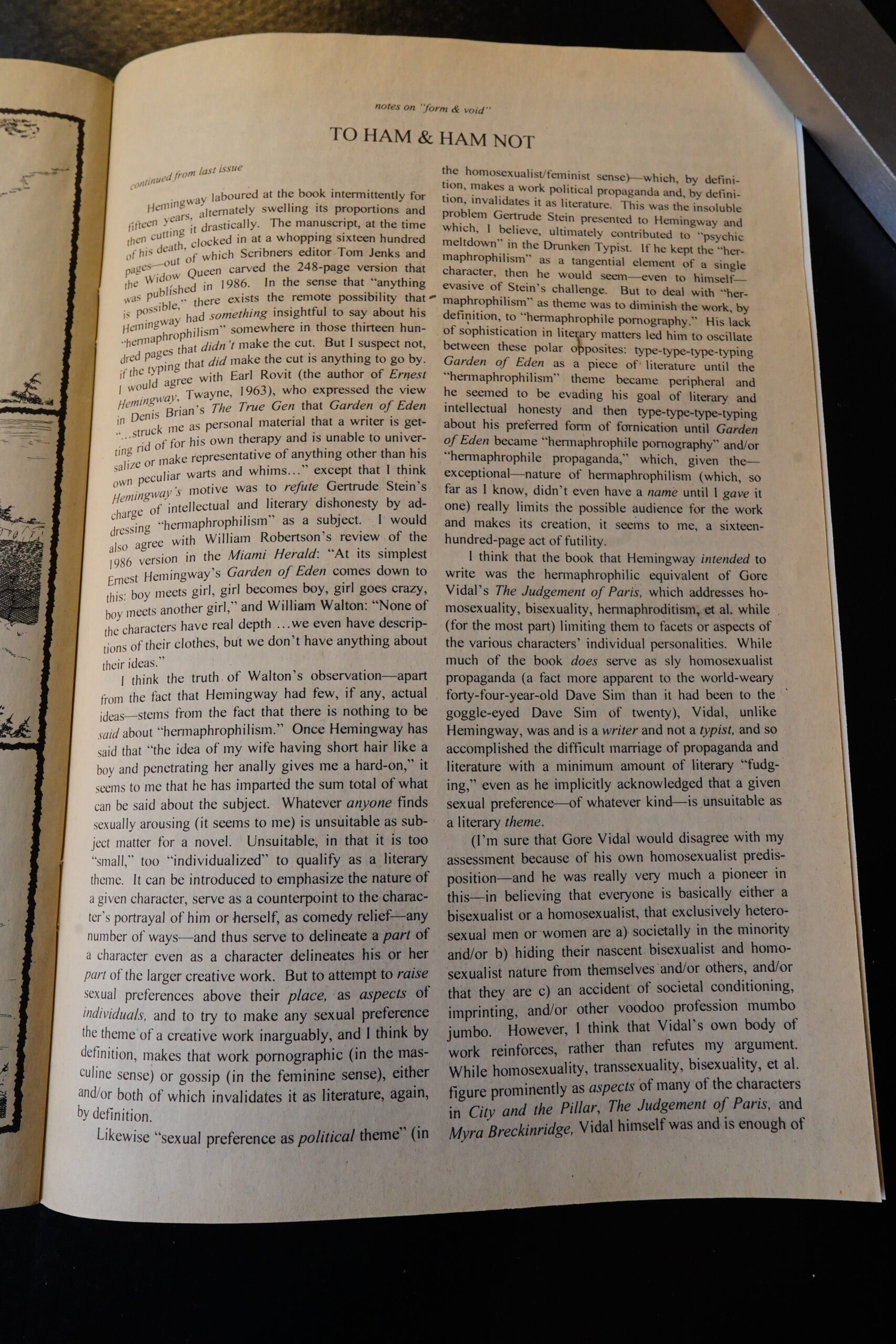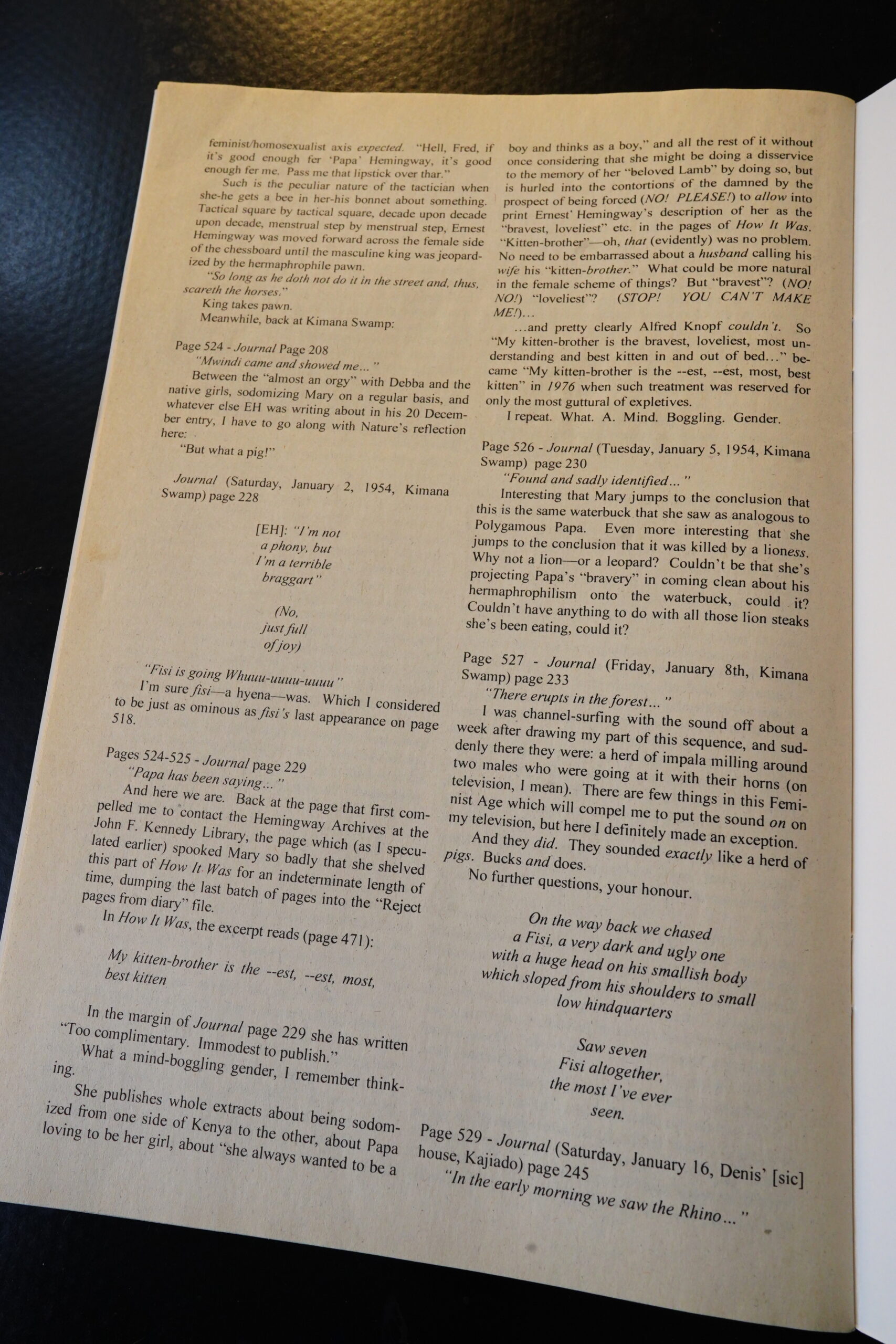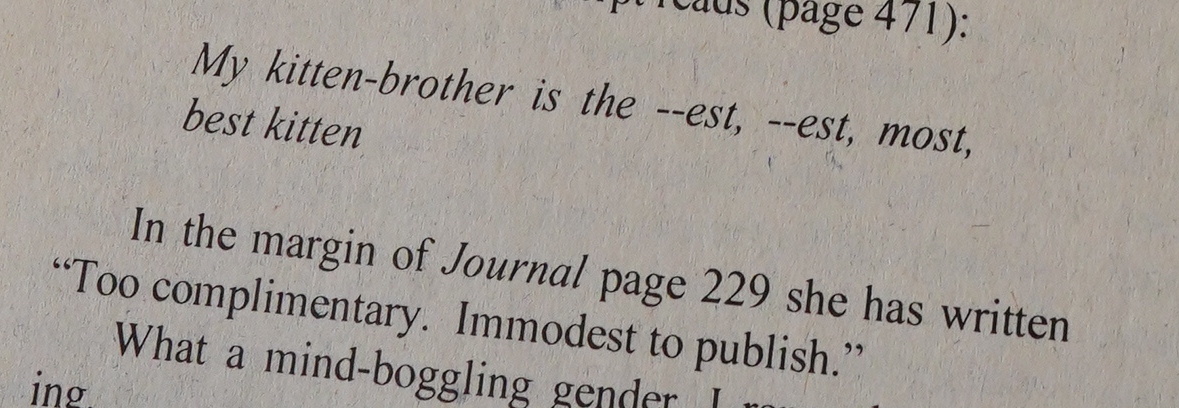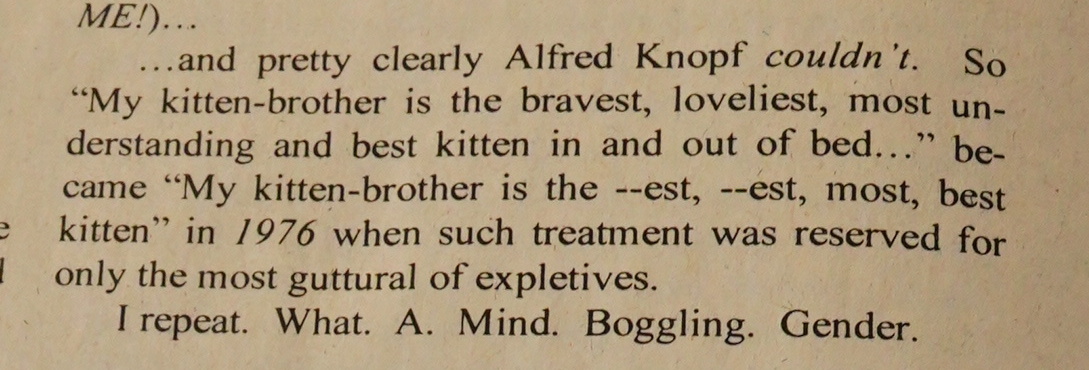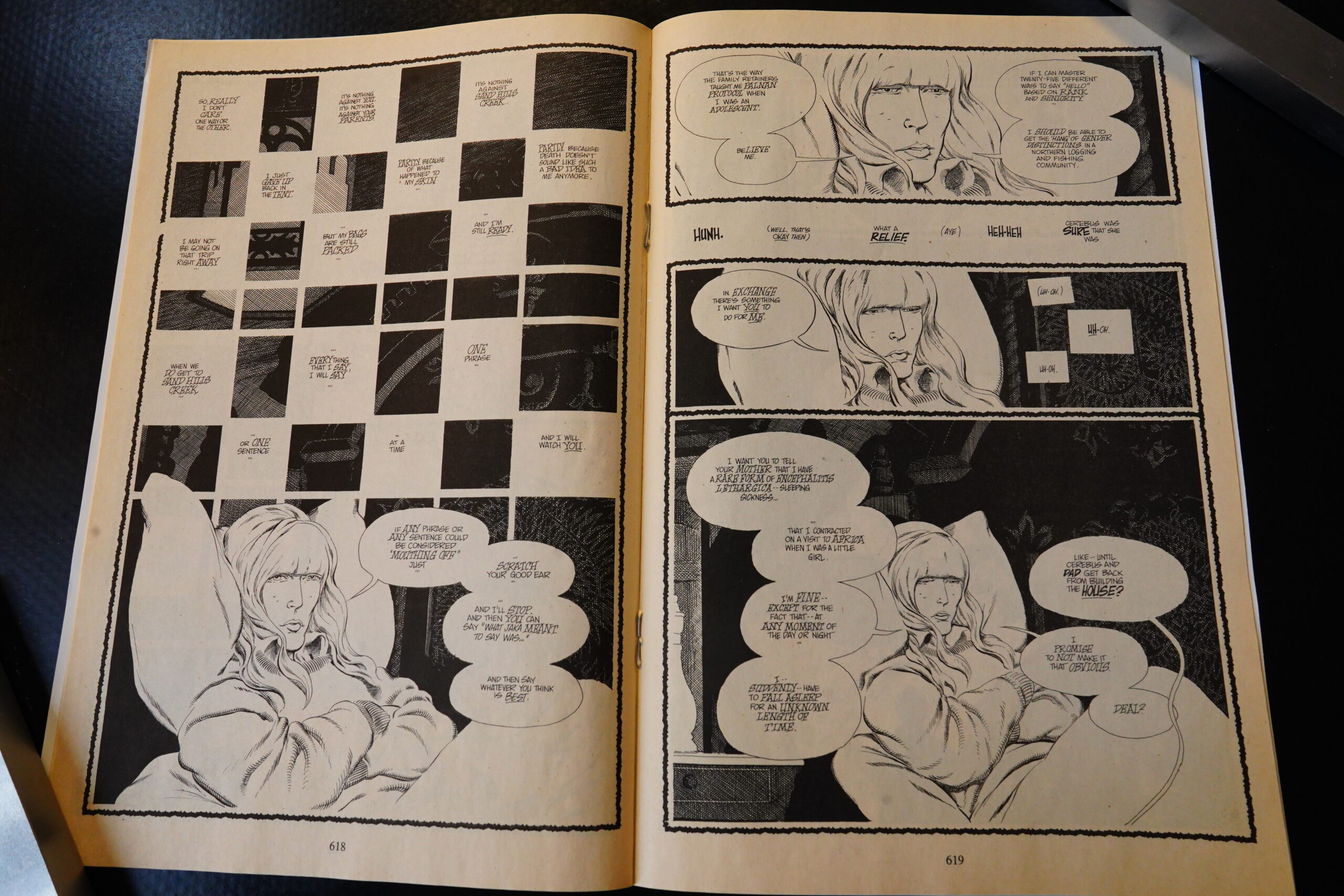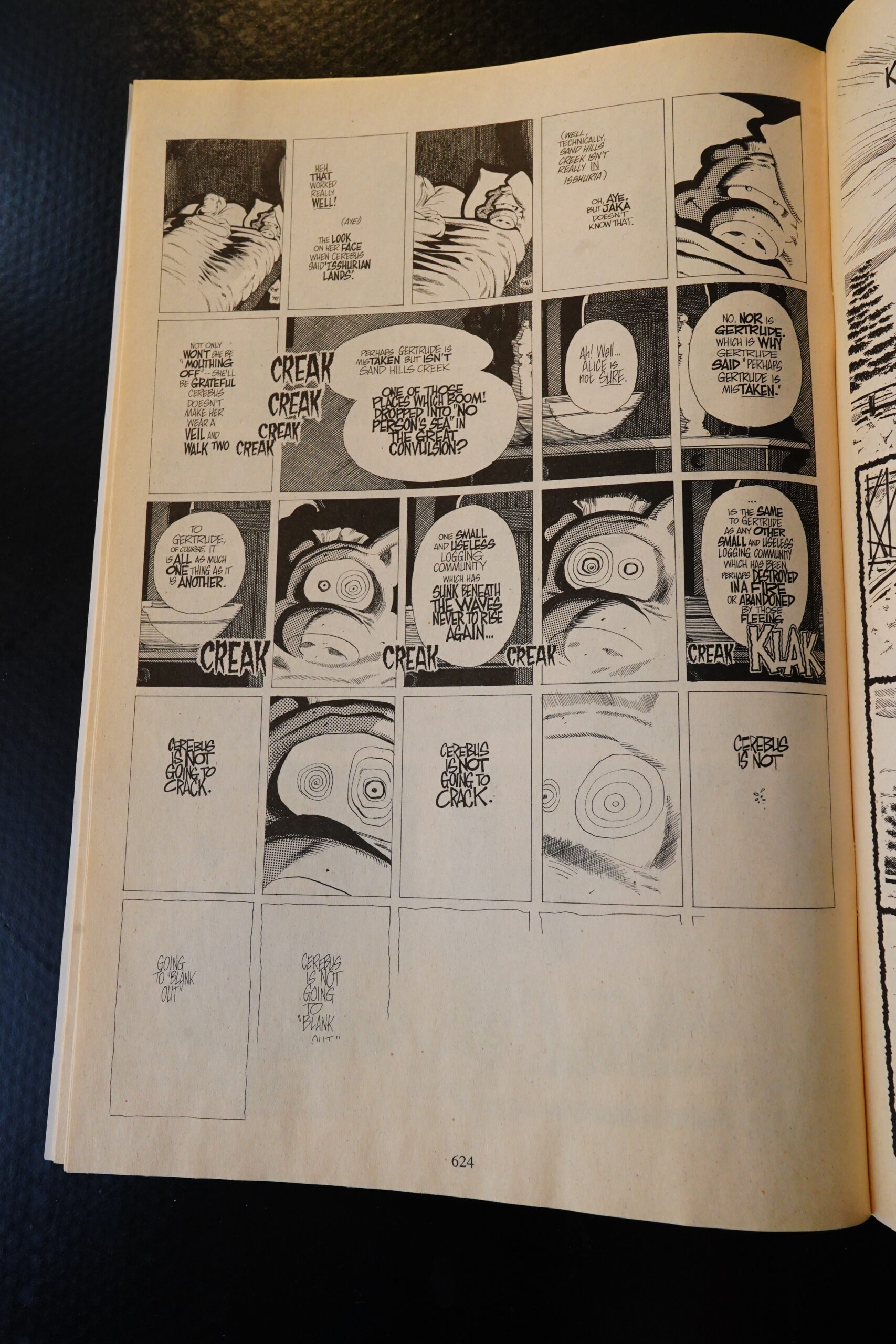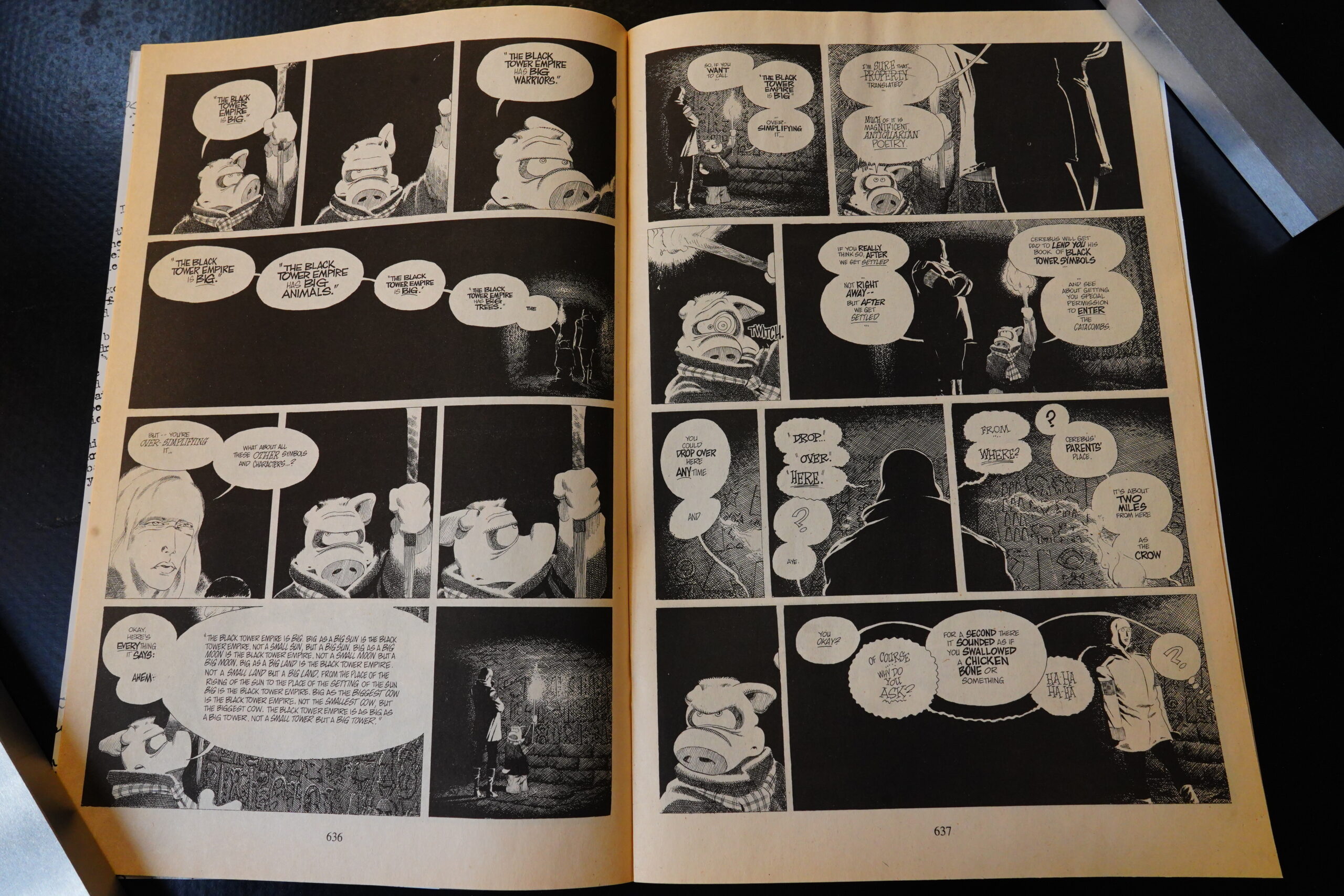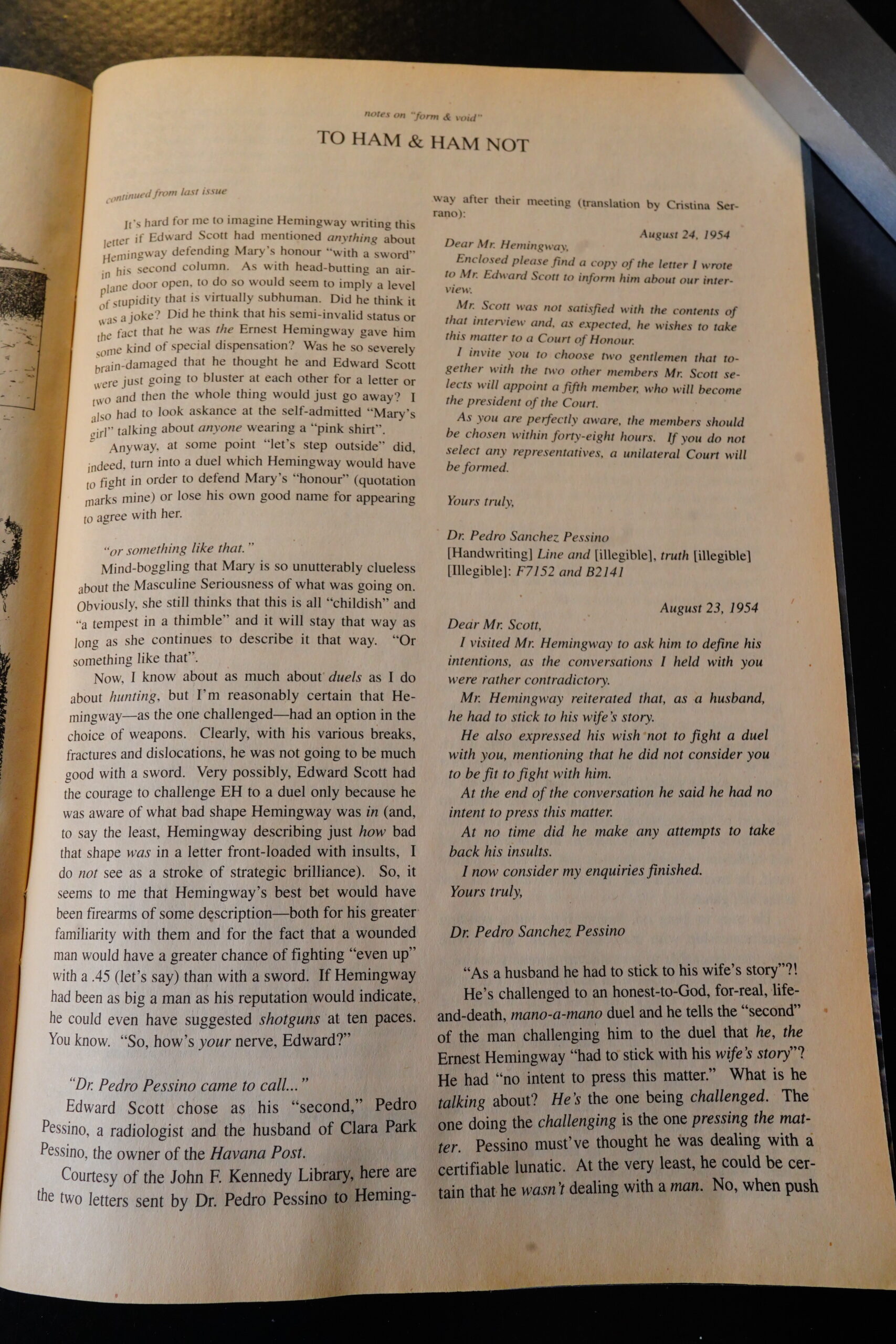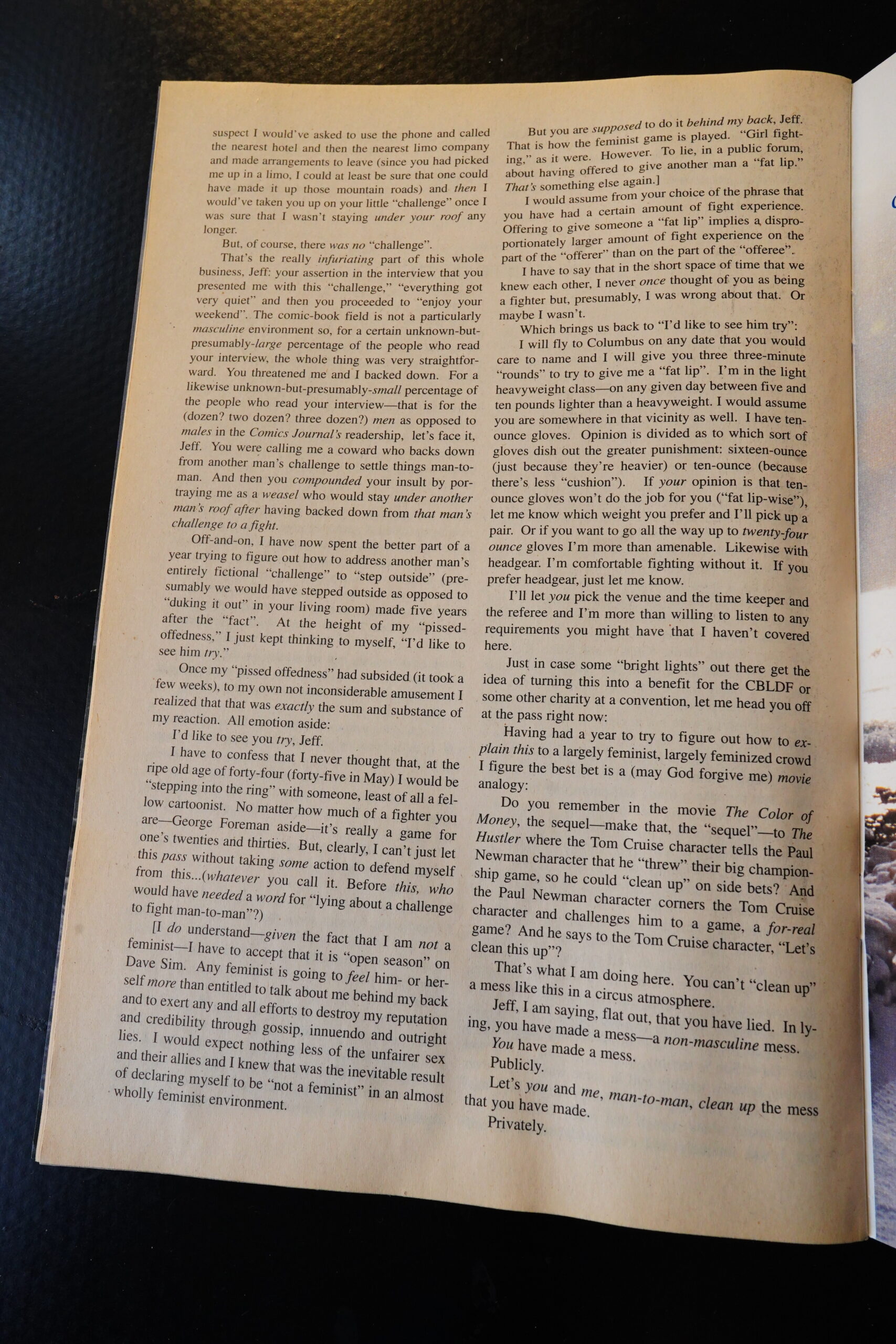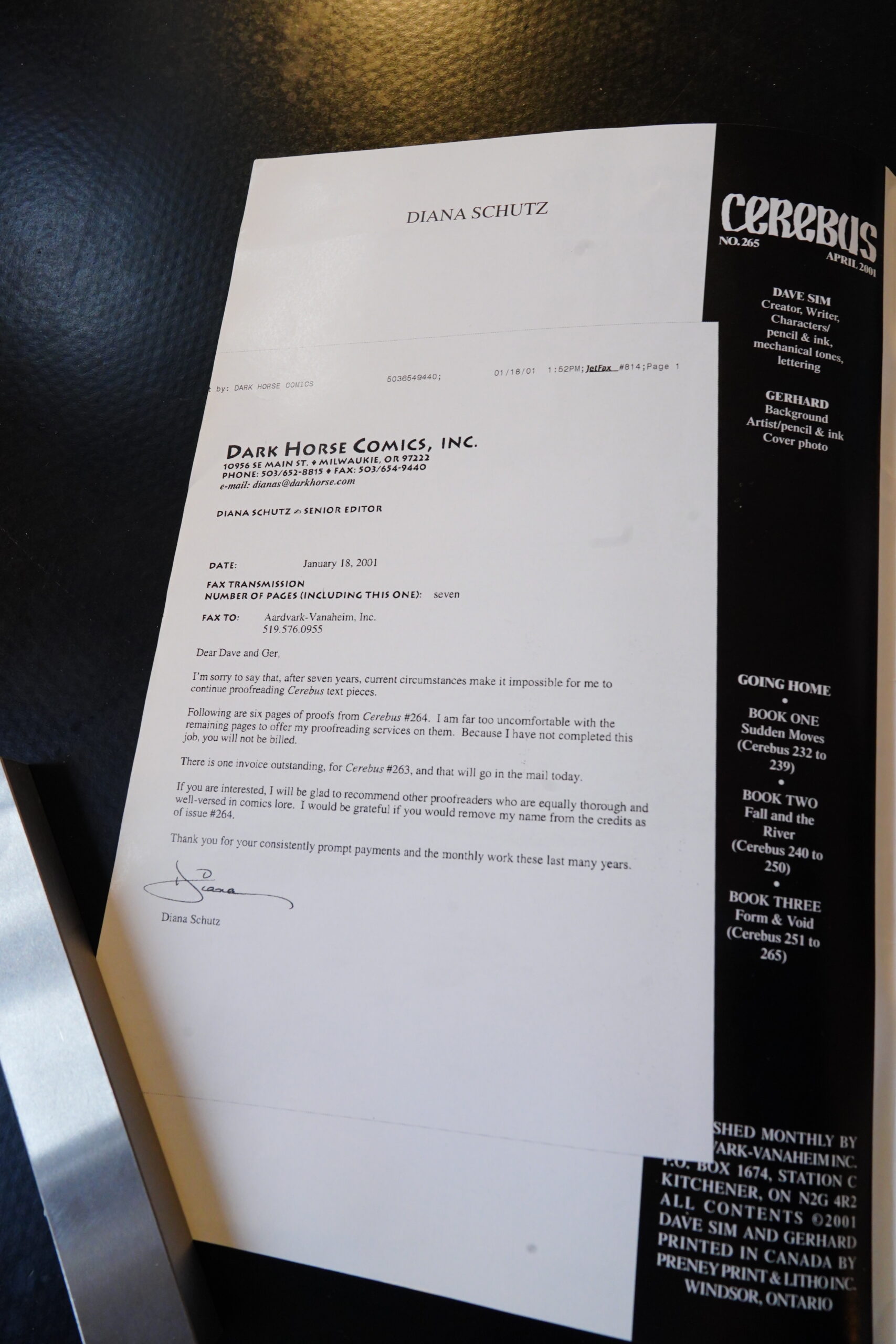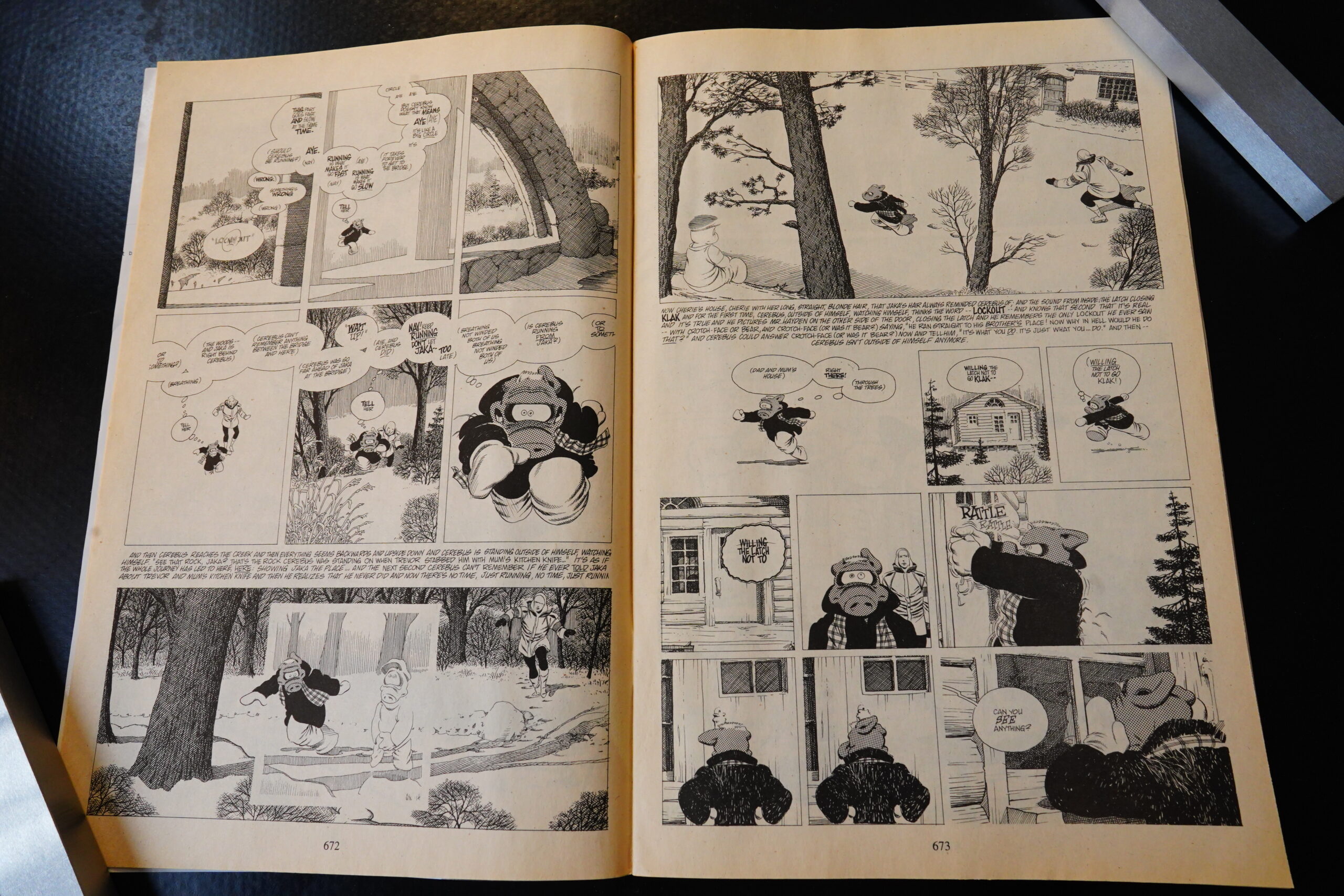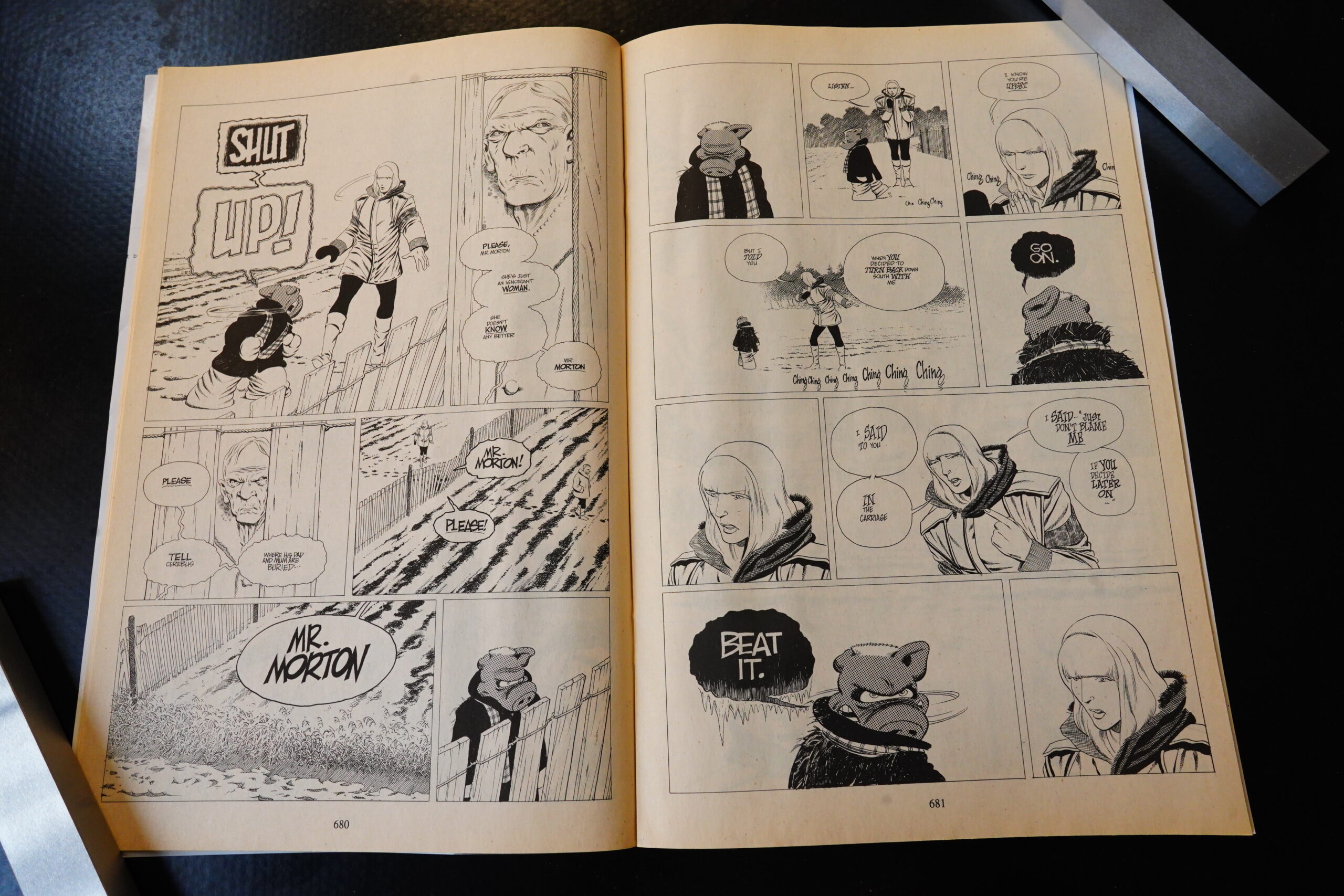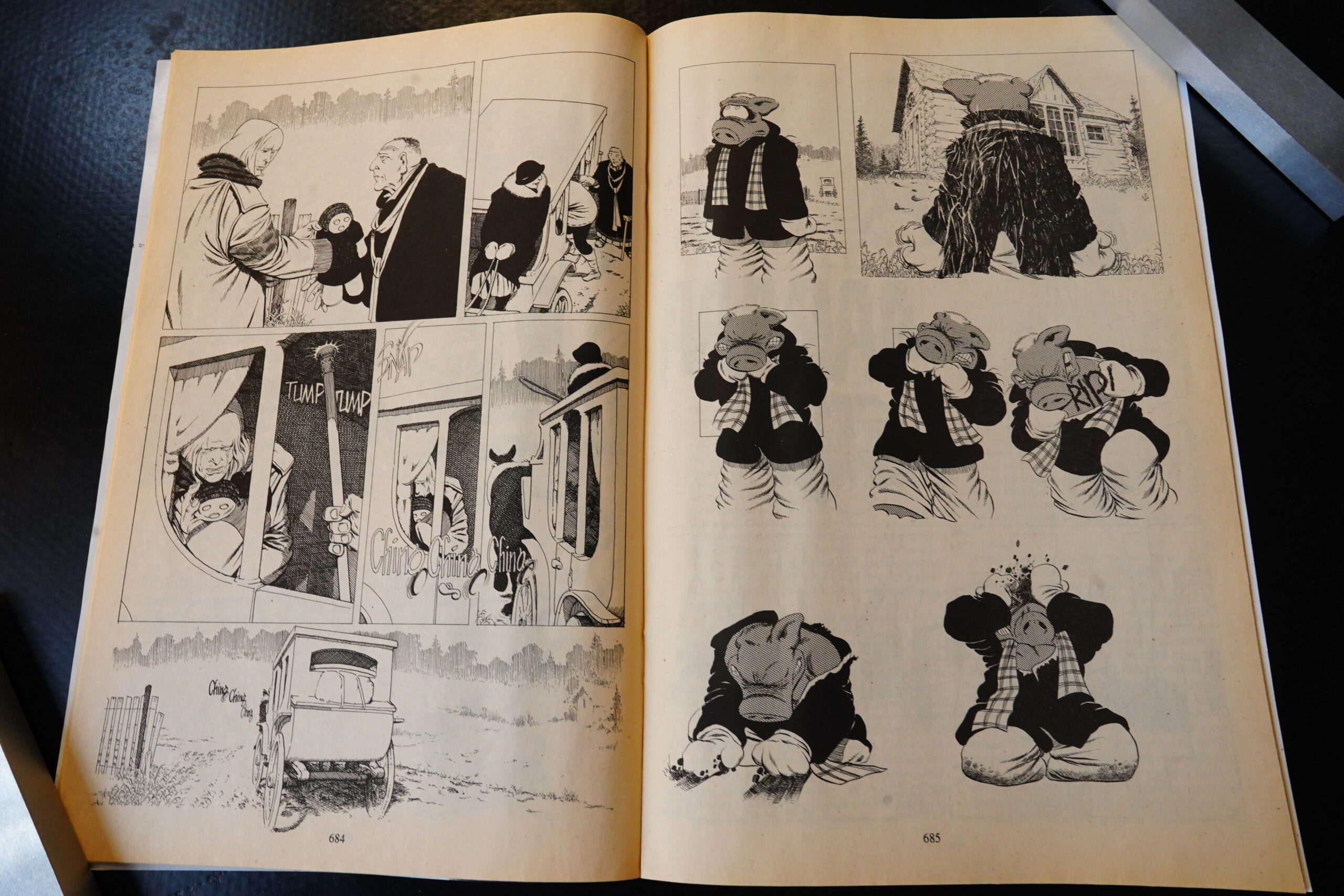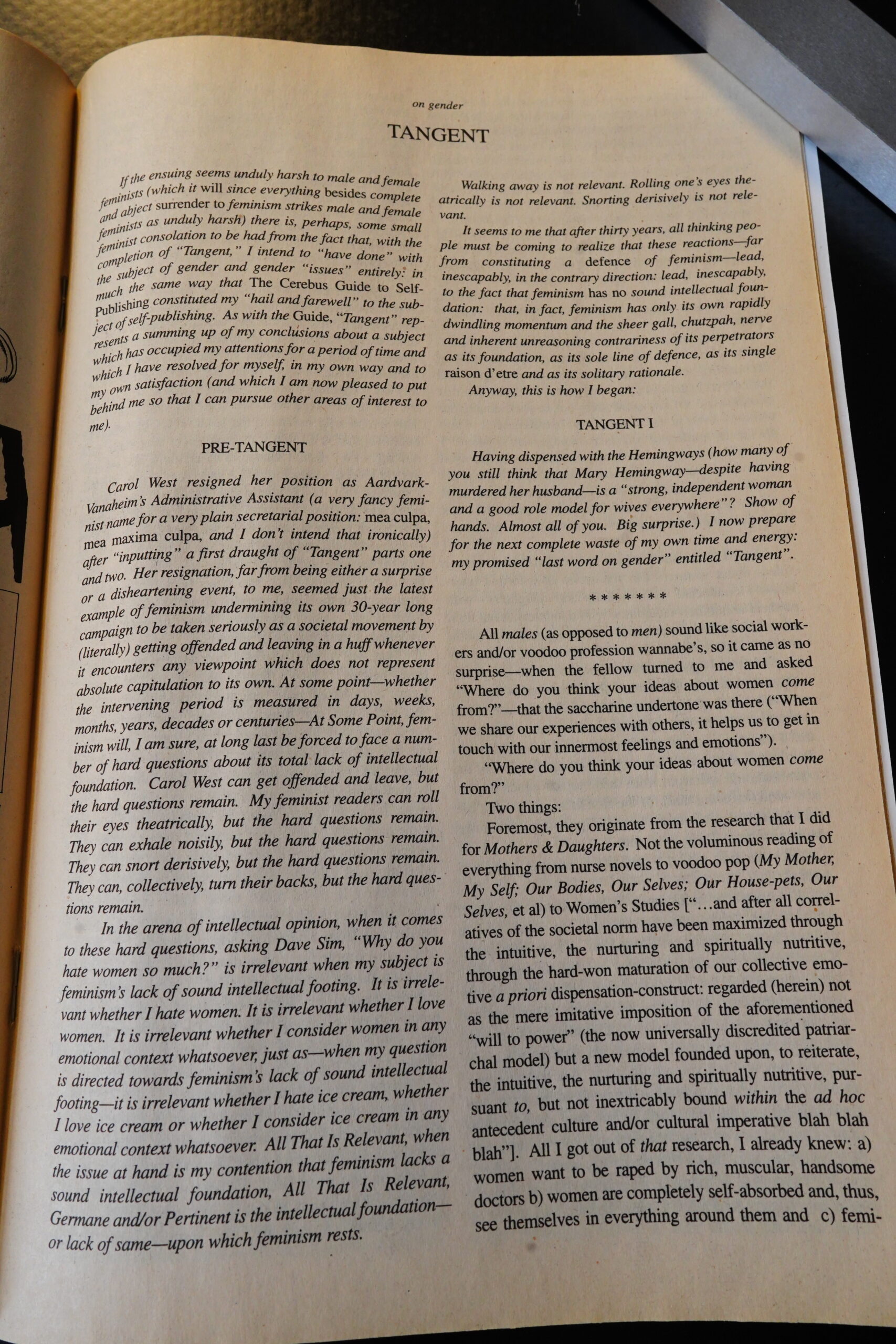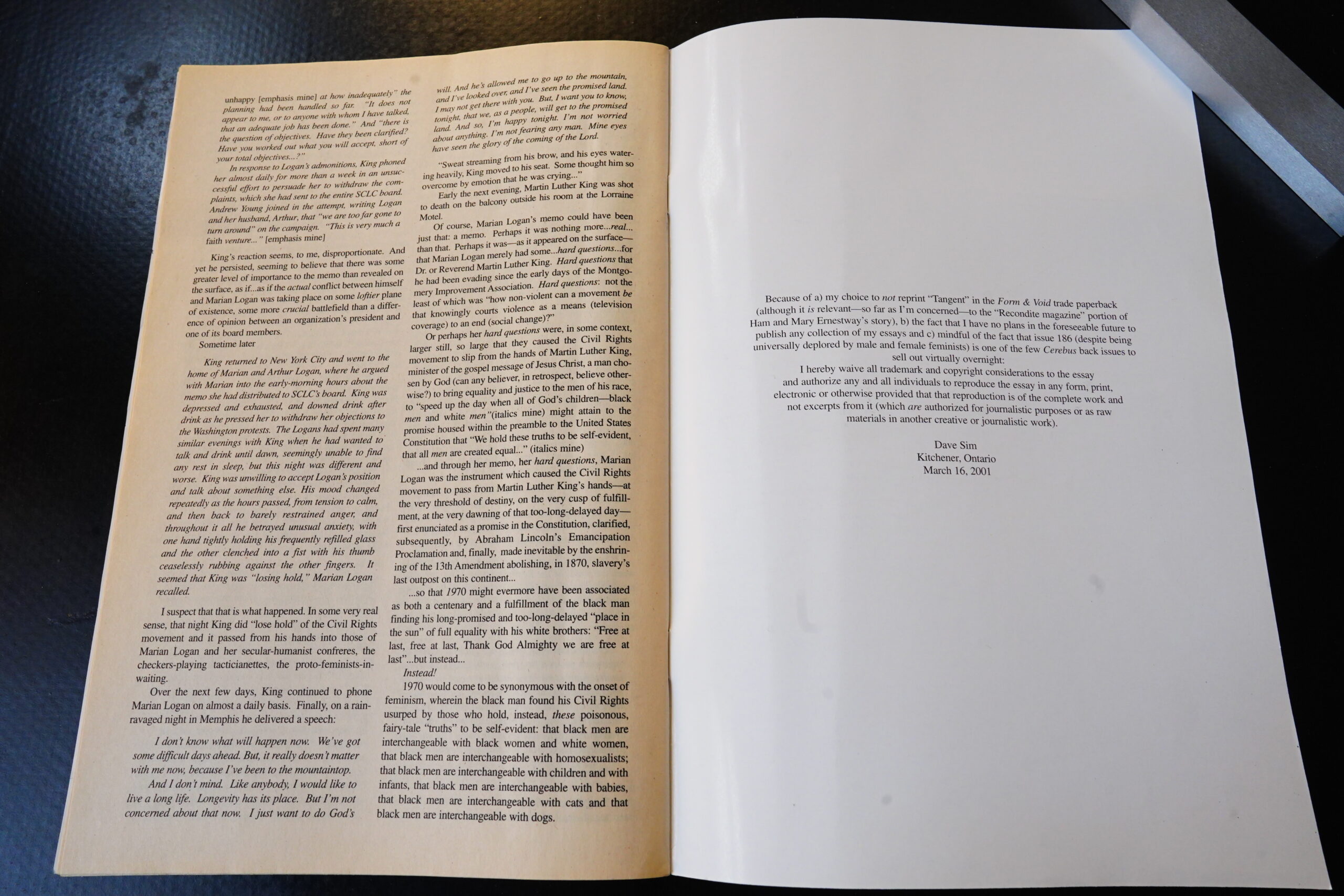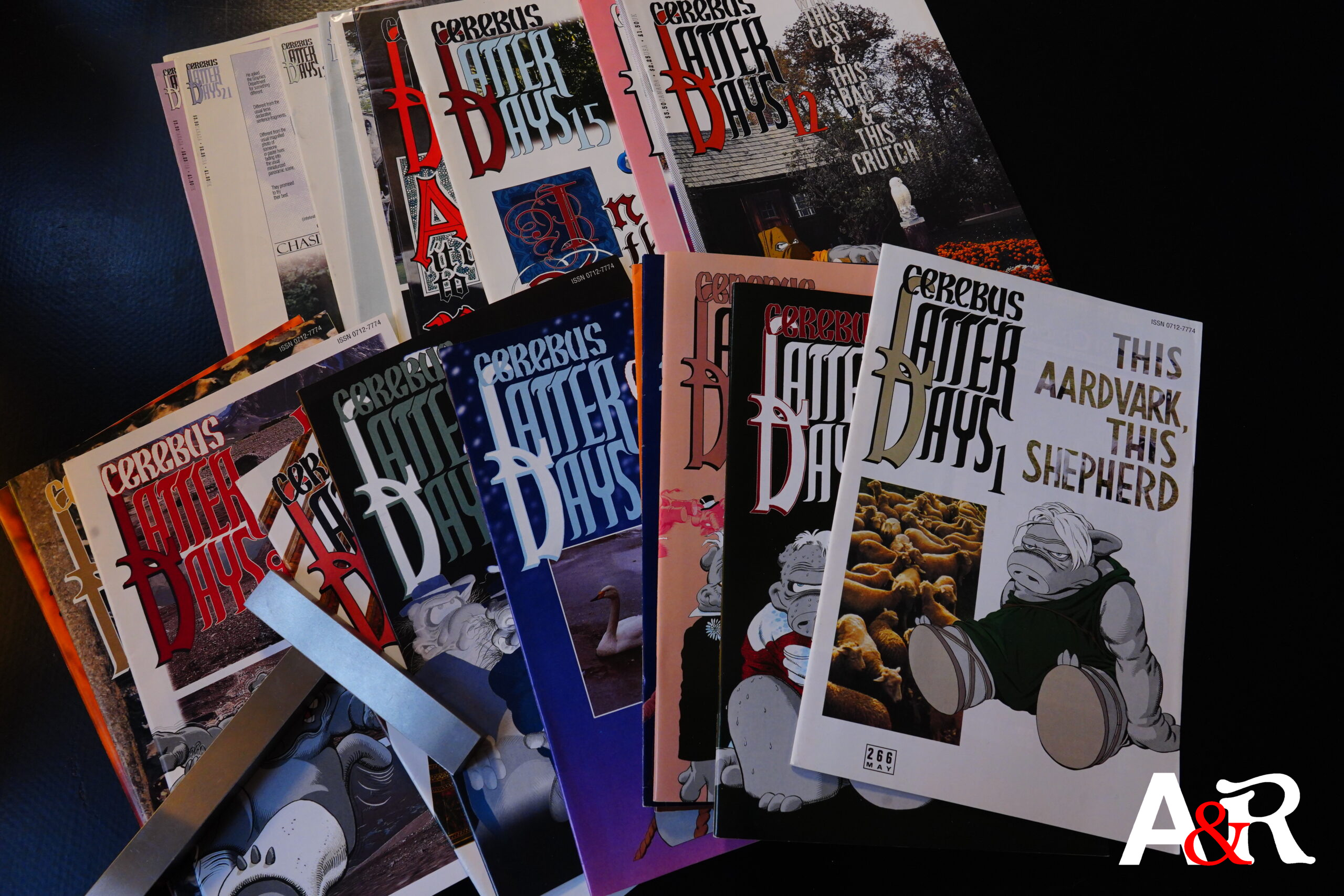
Cerebus (2001) #266-288 by Dave Sim & Gerhard
OK, we’re finally getting towards the end of this blog series. Well, OK, after we finish with Cerebus, we still have some Aardvard-Vanaheim books to go — Judenhass, Cerebus Archives (oops) and Glamourpuss… er… OK, there may be like ten more posts because I forgot to do some other earlier books, too. Sorry! But at least it’s the end of the main Cerebus sequence!
When doing these blog posts, I usually read all the comics that go into one post in the morning, and then I write the post. But I find that I just can’t do that with this one, so I’m doing it over three days, reading about eight issues per days, because c’mon. I think some would call reading these issues cruel and unusual punishment, and as much as I want to be done with this blog series, I have to pace myself. Yes, yes, I have only myself to blame…
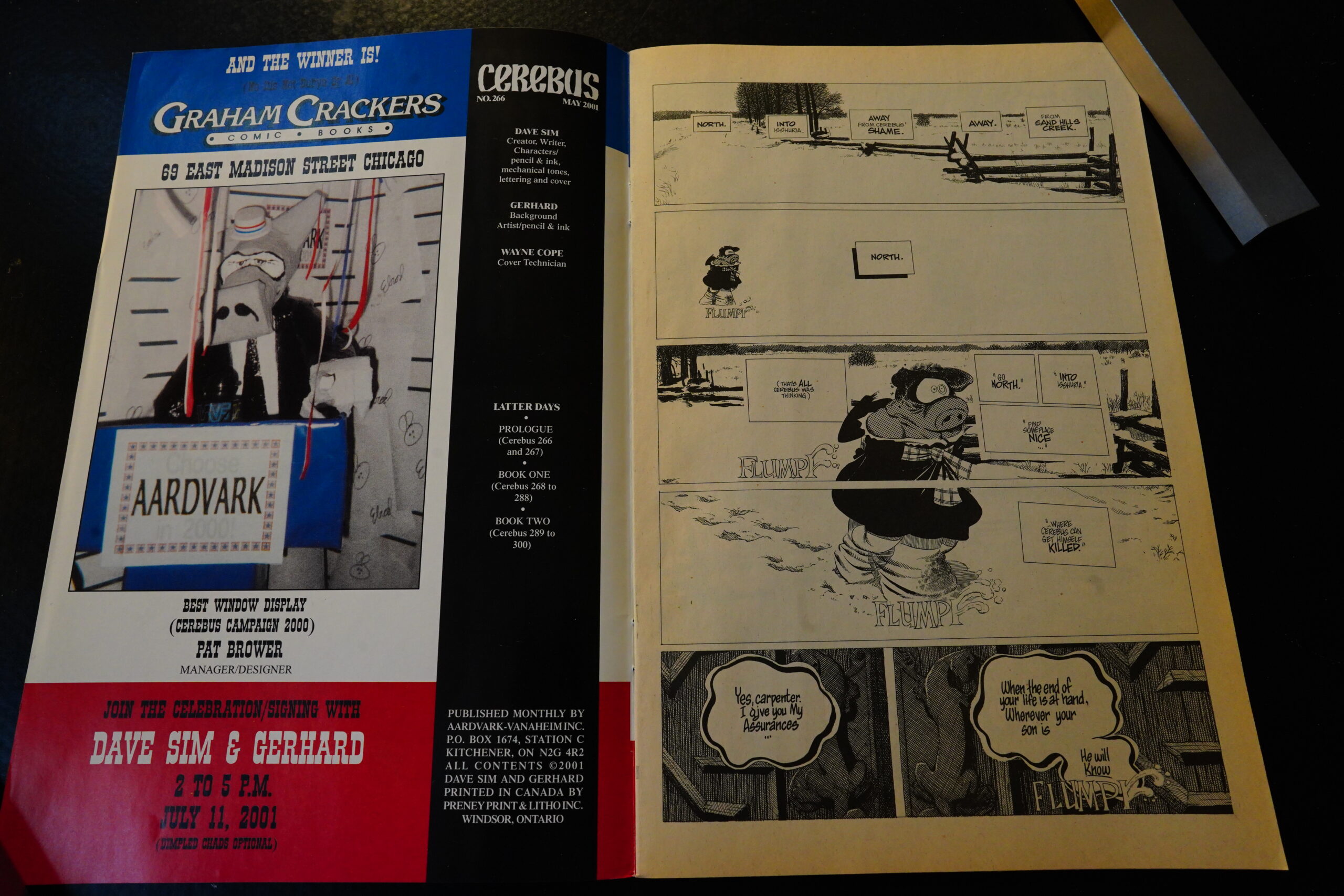
This blog post covers the prologue and book one of Latter Days (which was collected under the name “Latter Days”; book two was collected as “The Last Day”). Strap in; it’s one of those scrolling-for-days kind of posts…
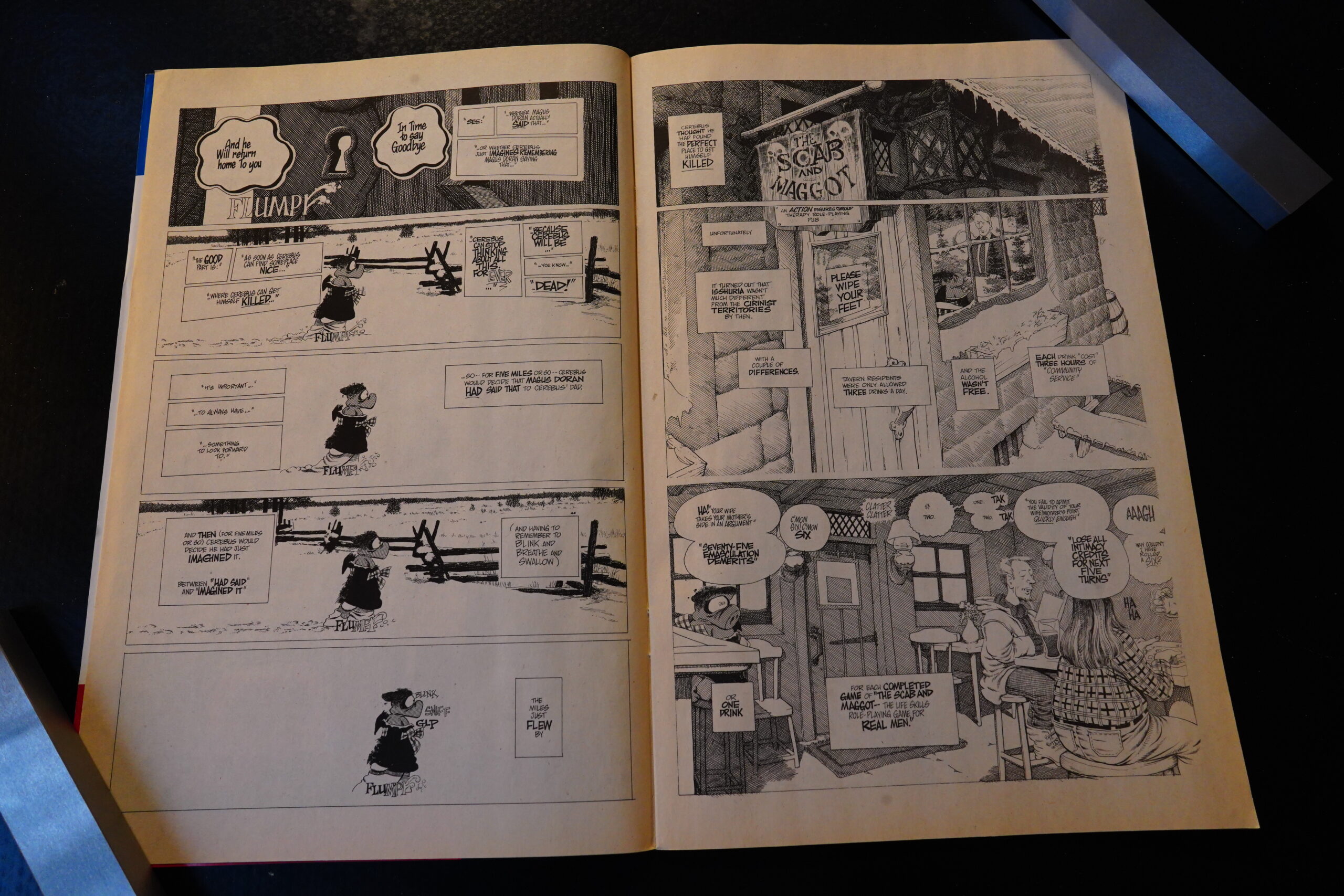
The prologue (over two issues) aren’t typical “this takes you from one book to the next” issues (like issue 51). Like those other in-between issues, not a lot happens to the “plot”, but a lot of time passes.
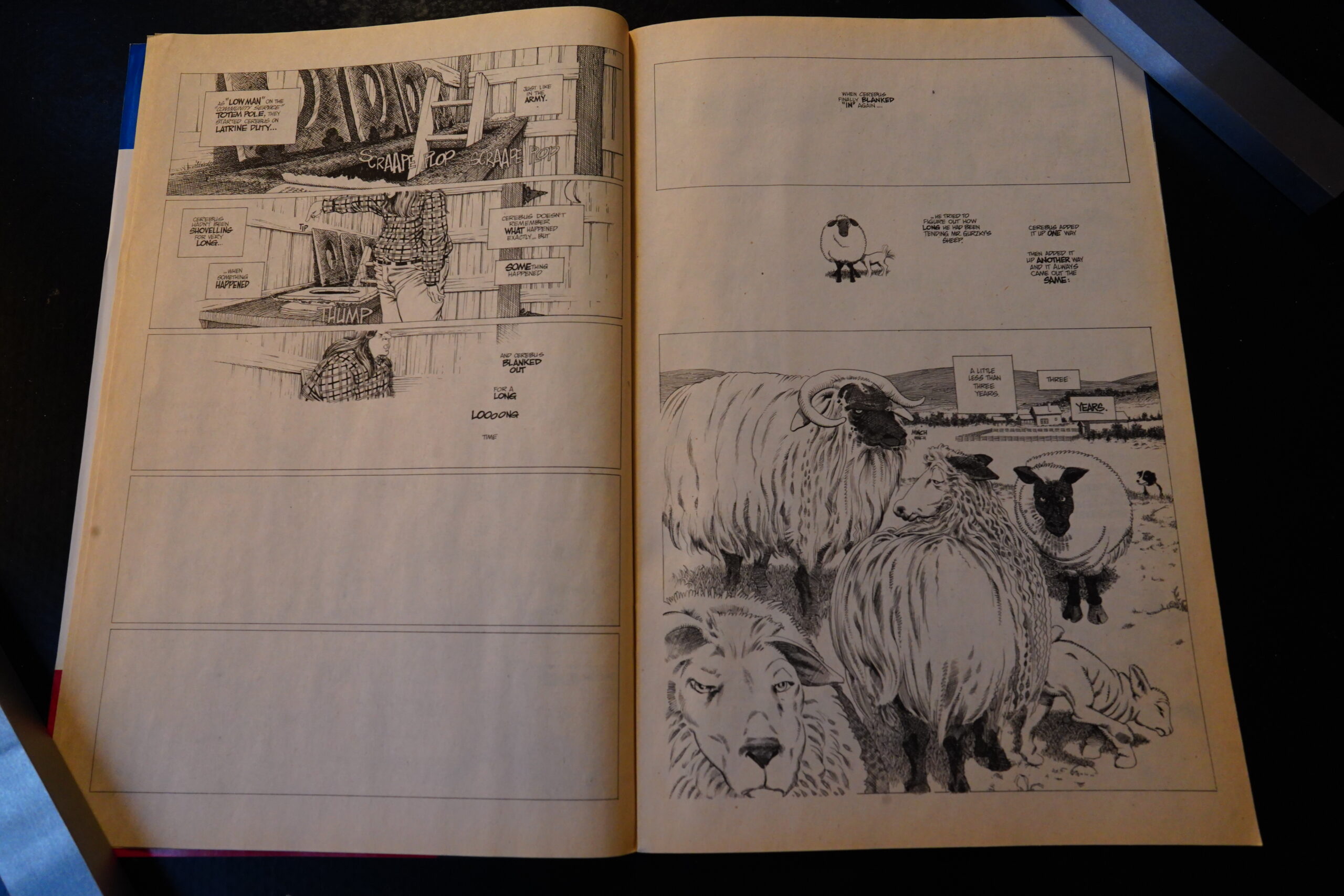
One way Sim makes this happen is that Cerebus blanks out for years at a time when something horrible happens to him, like that woman taking a dump on him. While that’s pretty funny, it (as is often the case with Cerebus) doesn’t really make much sense for a character like Cerebus, who has a background as a hardened mercenary and stuff — you’d think that worse things had happened to him.
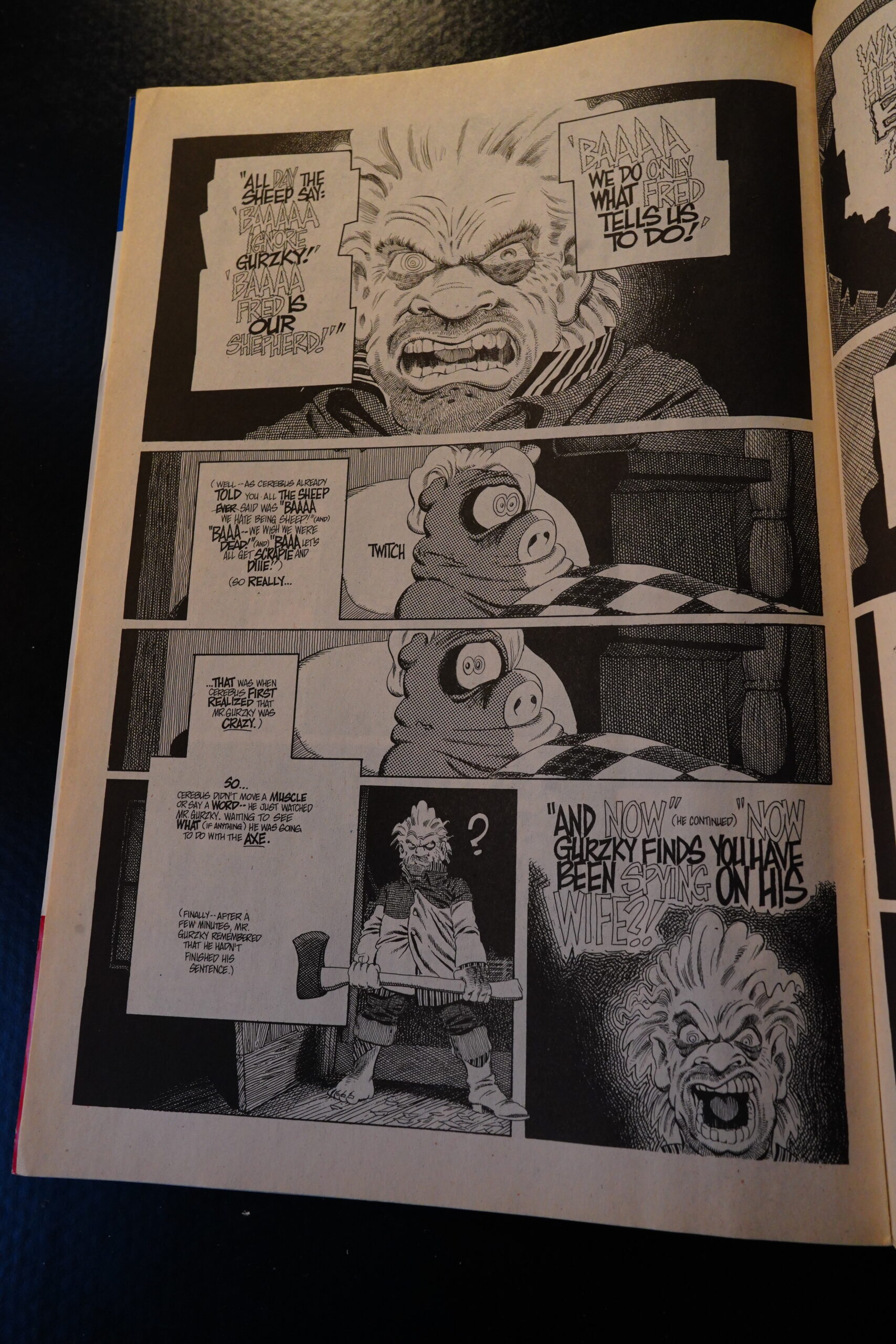
But these two issues are pretty entertaining.
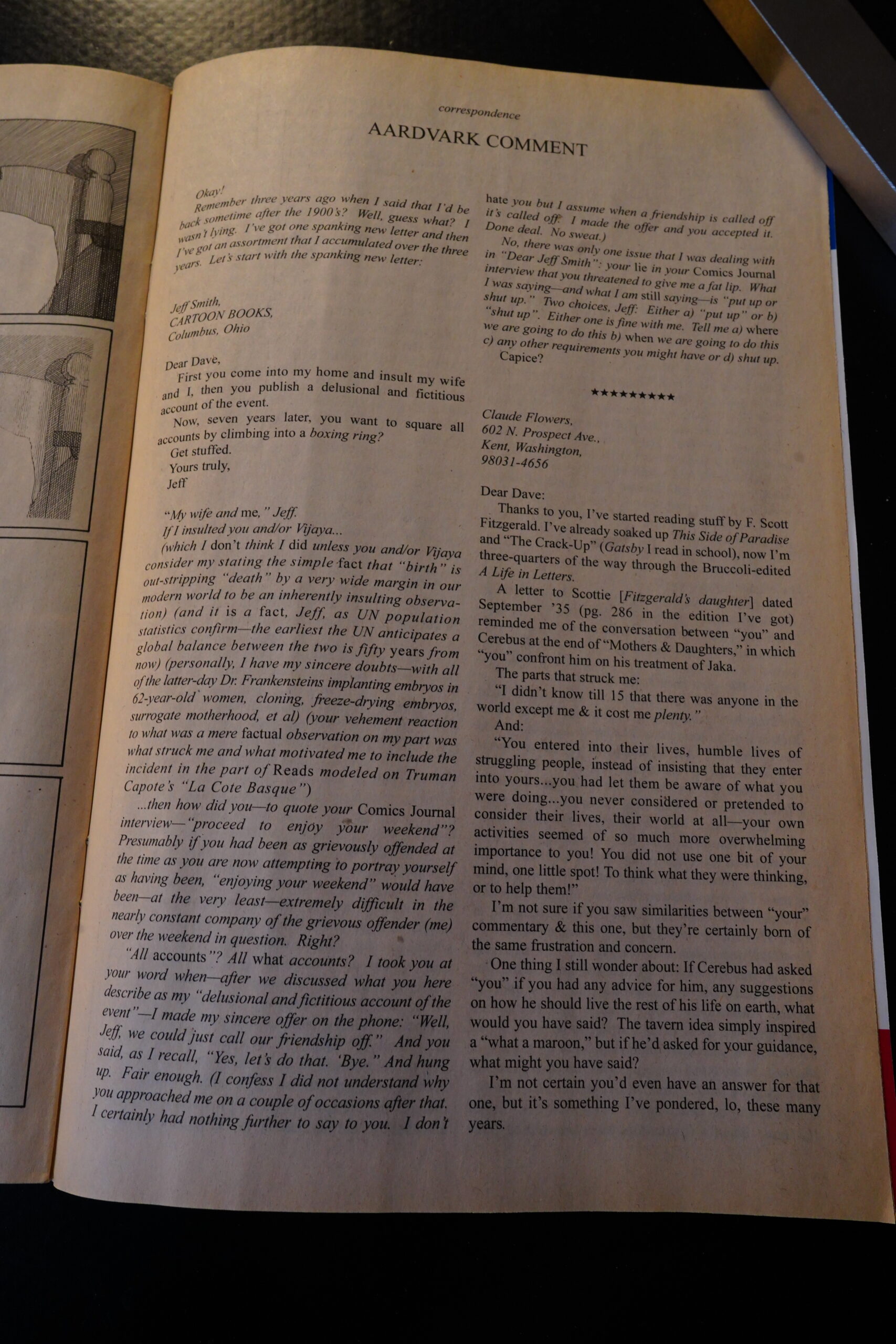
And after getting rid of the letters pages for most of Going Home, here they are back again. And the first thing we get is a continuation of the Dave Sim/Jeff Smith beef. “‘My wife and me‘, Jeff.” “Capice?” Christ what an asshole.
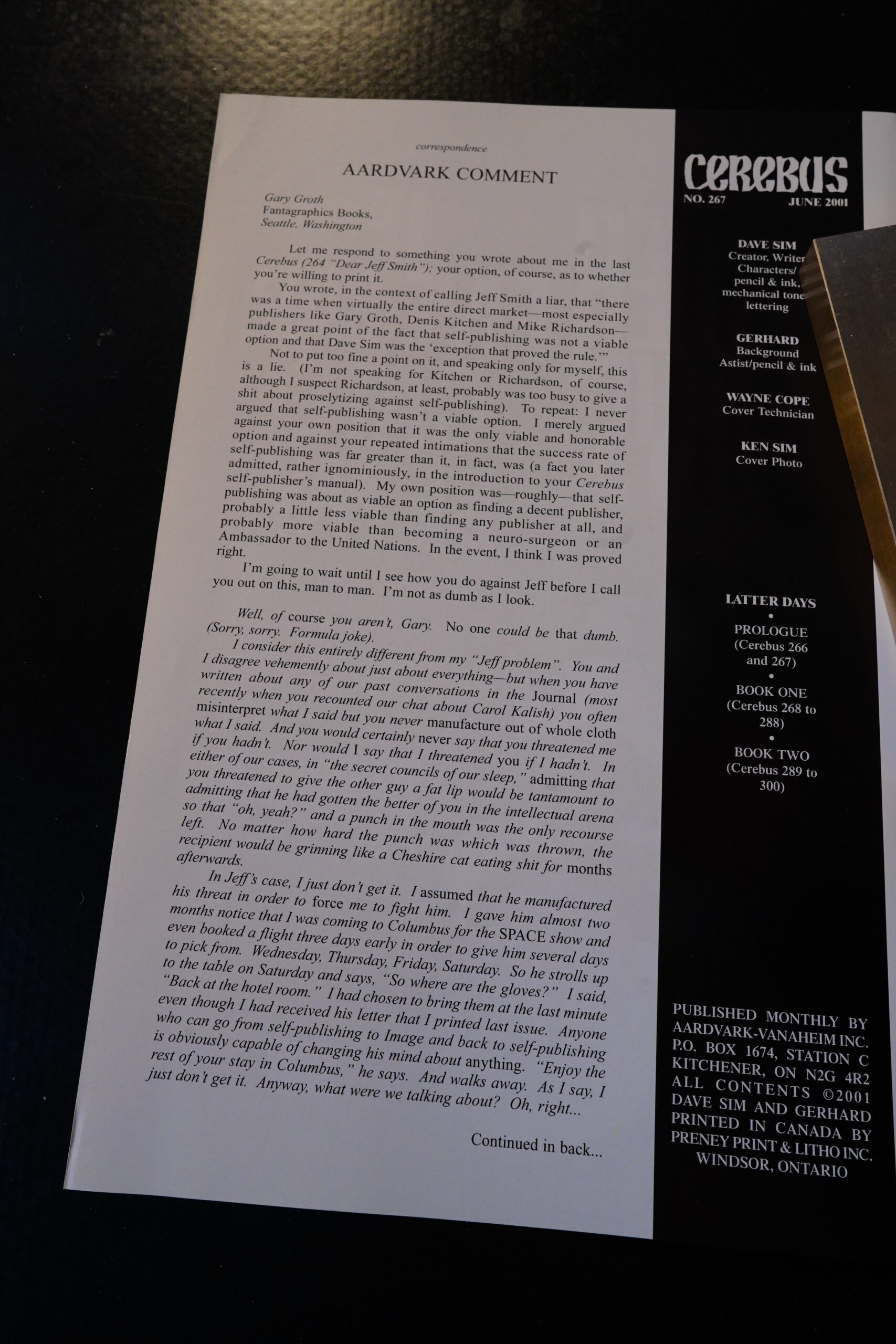
Gary Groth writes in. See? This is how you do humour.
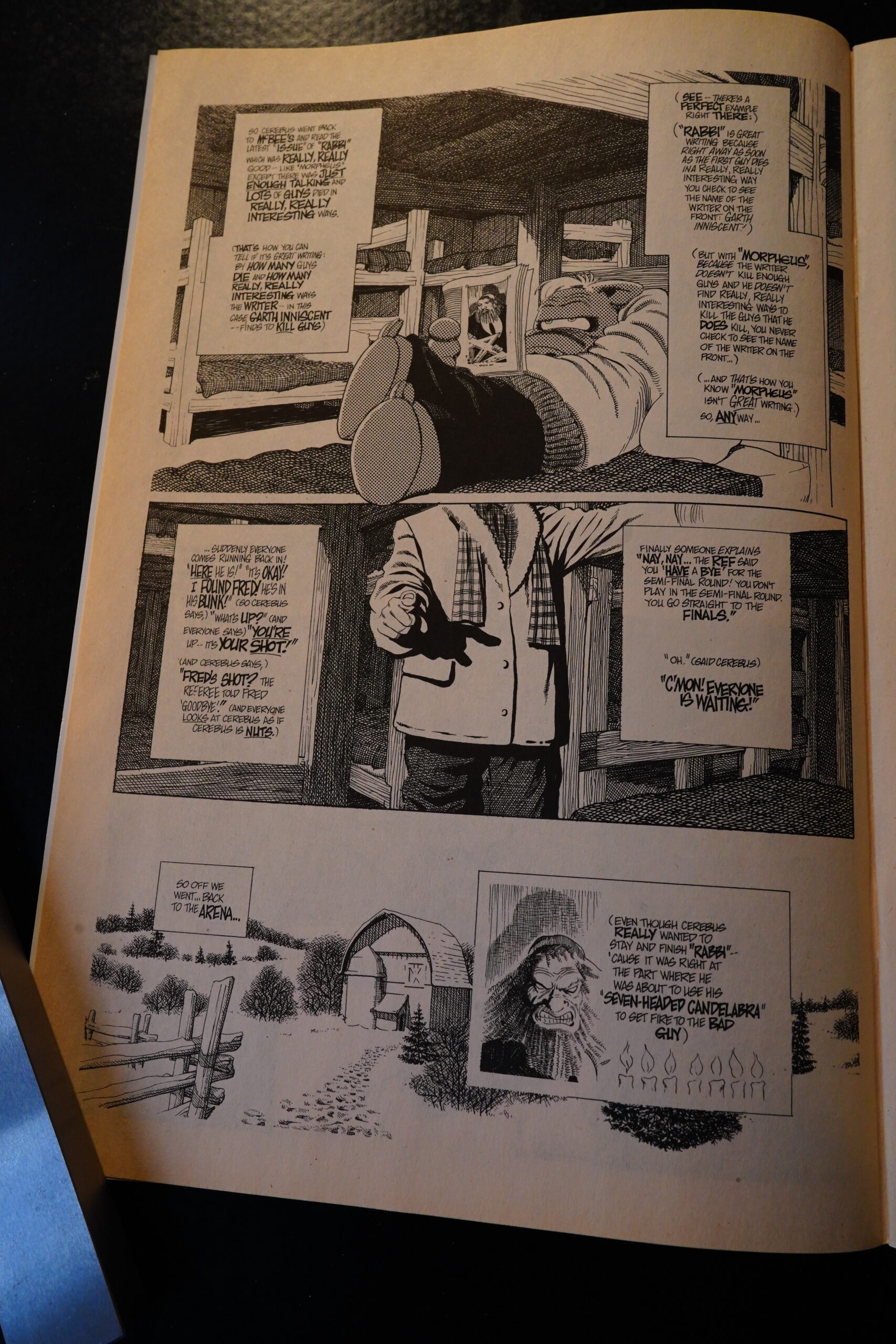
The second of the prologue issues is about that time Cerebus was a hockey champion in Canada I mean Isshuria. It’s amusing, but it’s really… superfluous. The one relevant bit is that Cerebus has become a fan of Garth Ennis’ Preacher, thinking that it’s even better than Neil Gaiman’s Sandman. Yes! It becomes important later on!
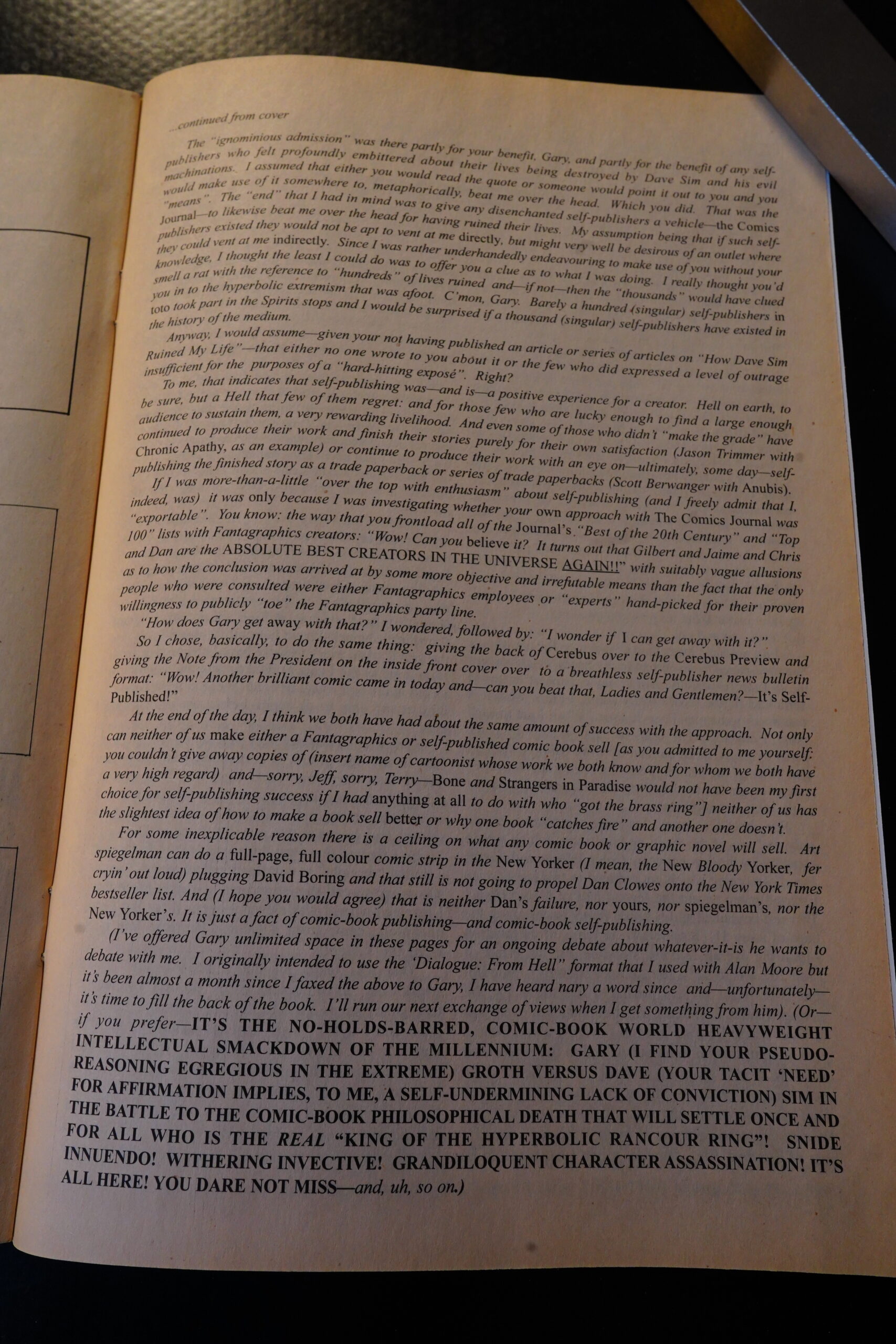
It turns out that Sim wanted Groth to send that letter — it’s all part of Sim’s Machiavellian deep time planning, eh? Sure, sure, we all believe you…
But the interesting thing in this issue is that Sim comes clean with his “gung ho everybody self publish” thing — it was all a cynical plan to see whether he could get a movement up and going, and he didn’t really believe in it. (And he didn’t even like Bone and Strangers in Paradise.)
Sure sure, we believe you… Doesn’t sound like something you’d write not to seem like an idiot after the entire thing had crashed and burned at all.
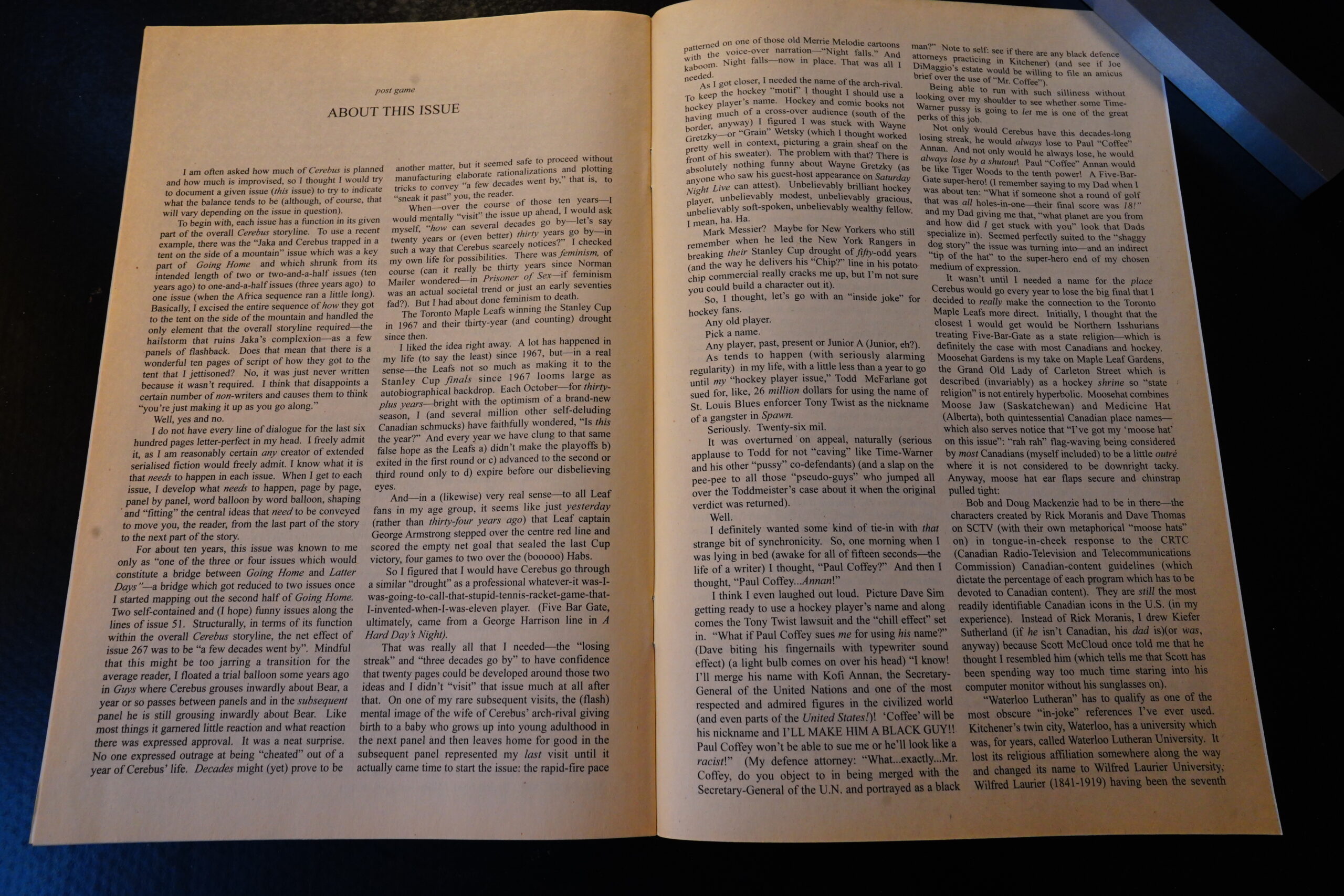
And! It seems like Sim was fed up with all the accusations on whether he’d really planned all the 300 issues, so he tries boring the reader to death to convince them.
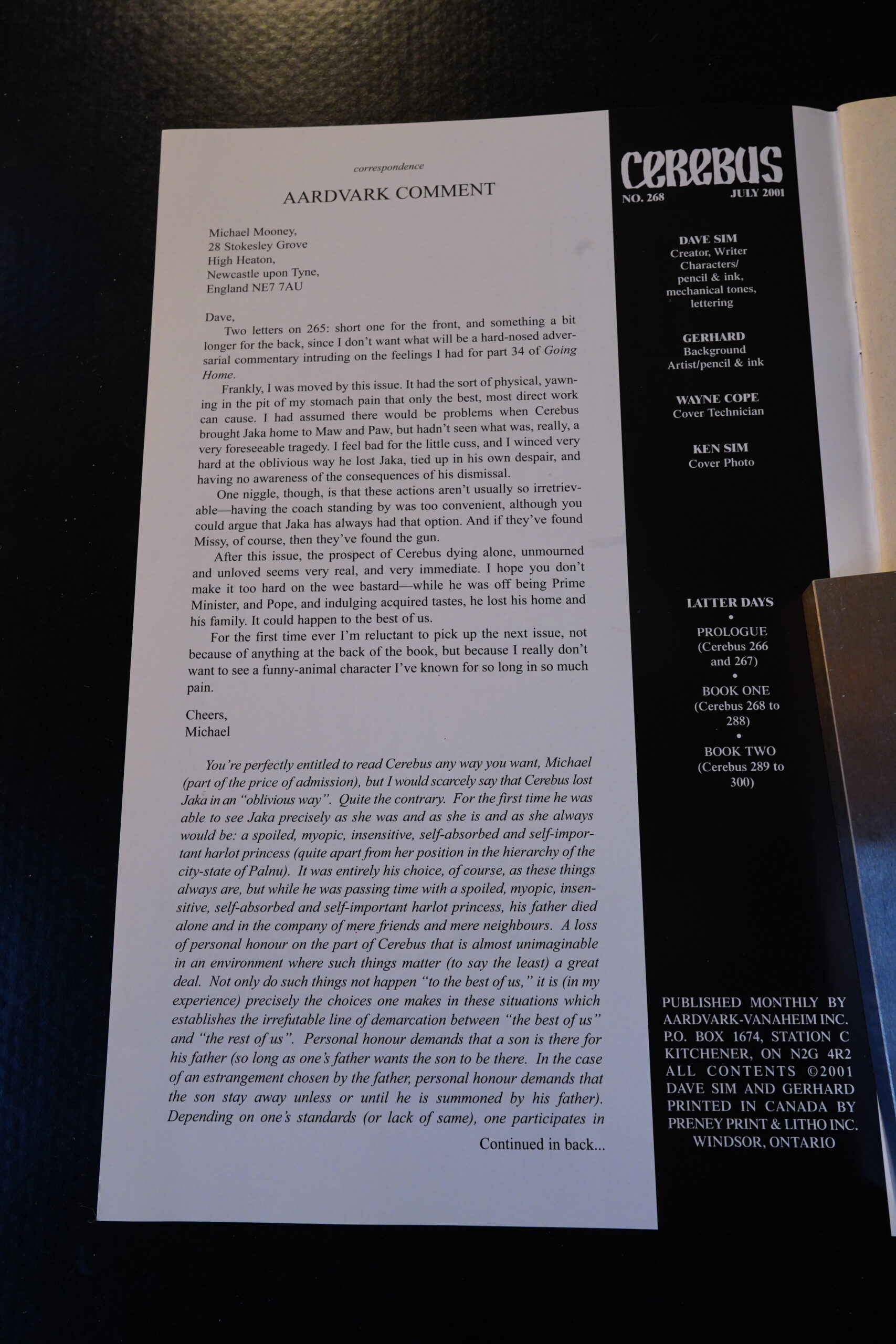
Sim complains once more that people just didn’t get that Jaka was a “self-important harlot princess”, but doesn’t then go to the logical conclusion that perhaps he didn’t convey that very well. In a later issue, somebody asks why Jaka took off her left glove, and that turns out to be because she wanted to flaunt her unmarried status at Cerebus’ home town, harlot that she is — and it doesn’t seem like anybody guessed at that… because we’re not mind readers, Sim.
I think that’s, like, Cerebus summed up — readers were enjoying reading Cerebus because we weren’t psychics and didn’t pick up on all the stuff Sim intended us to read. Is there a German word for this condition? It seems like there should be…
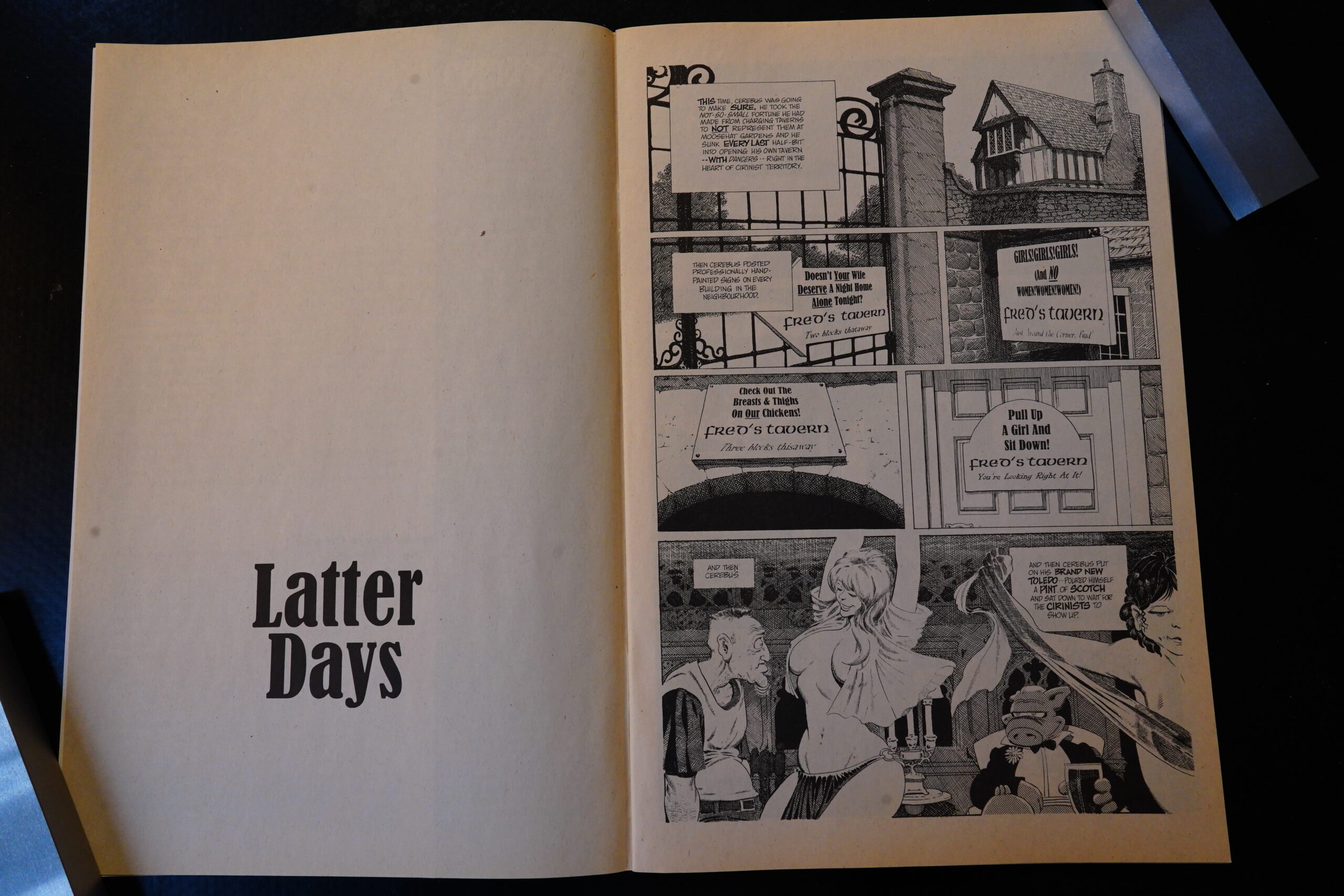
Anyway, the prologue over, and we start Latter Days proper.
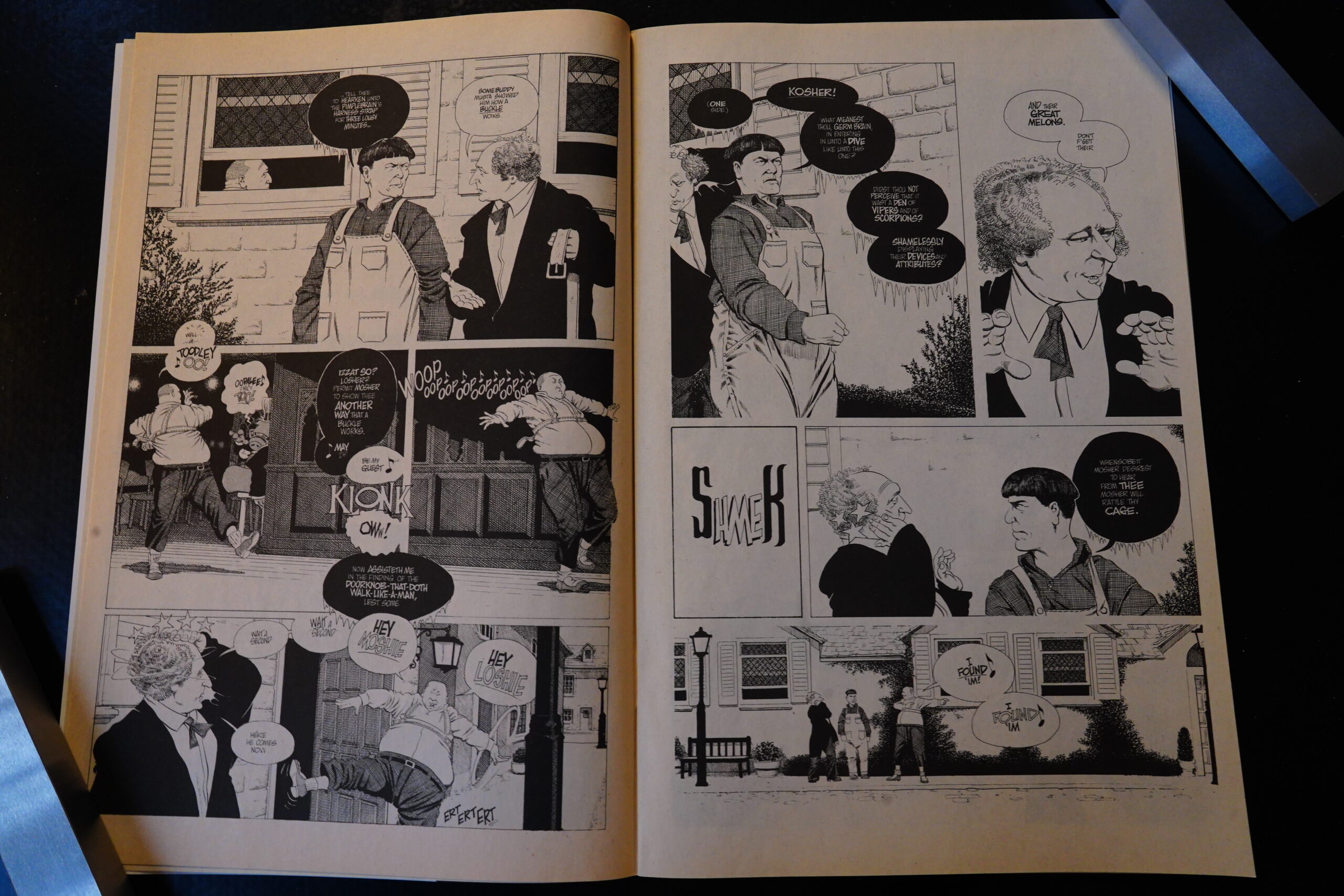
The first few pages aren’t that bad, but then Cerebus encounters the Three Wise Guys.
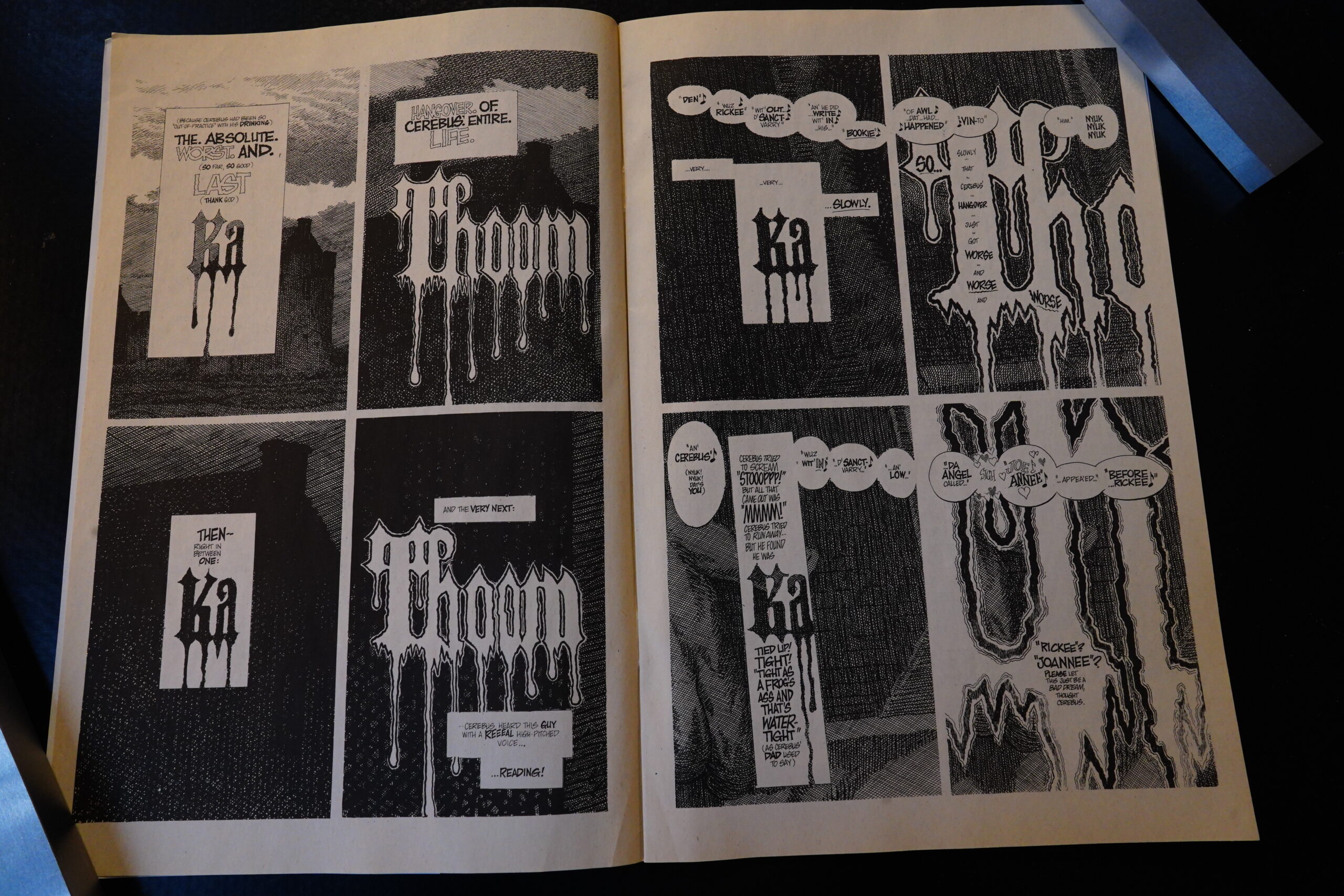
And there the tedium sets in. I don’t know from the Three Stooges — I’ve seen them, tops, like under one minute, so I know their schtick, but…
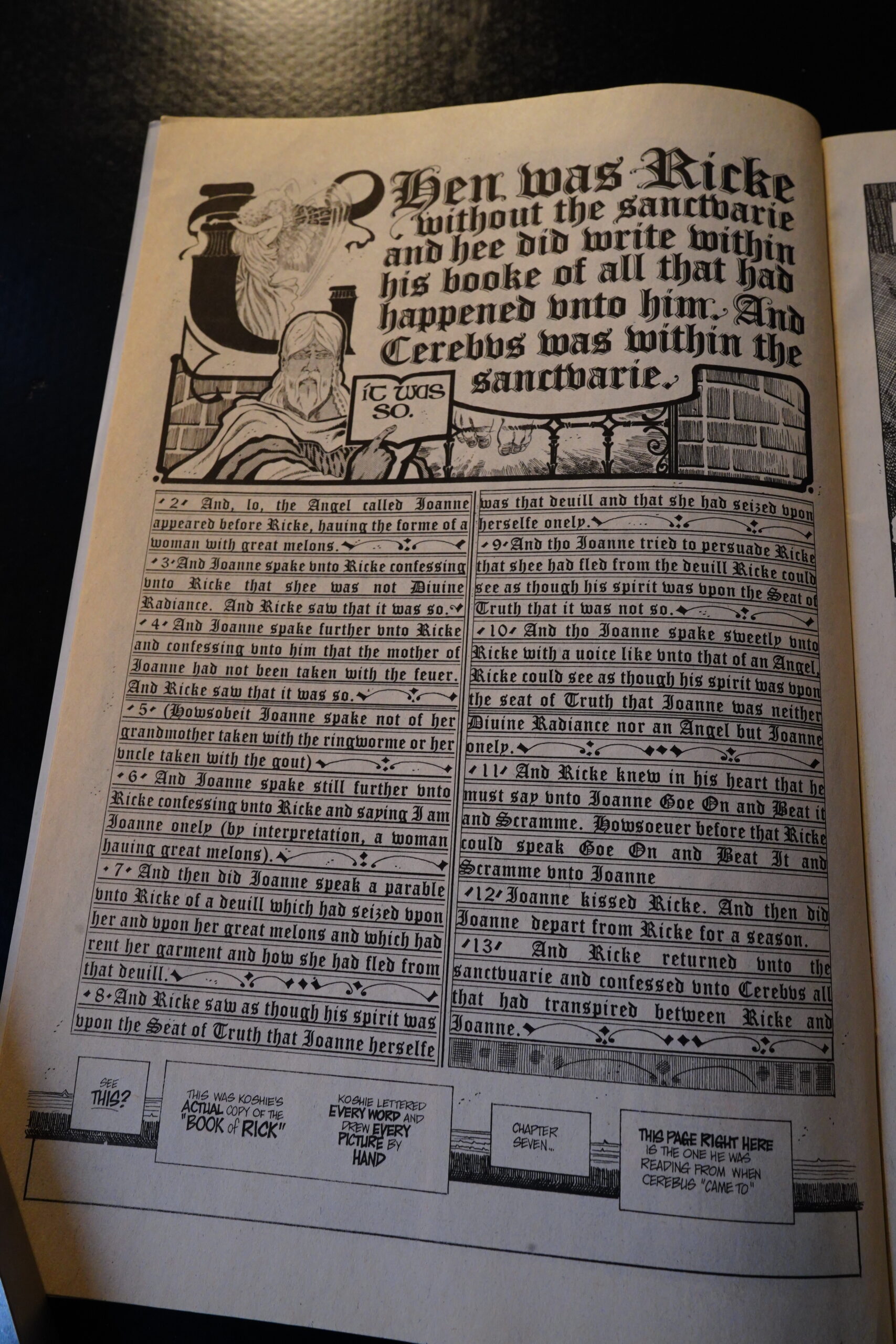
They kidnap Cerebus to (effectively) brain-wash him into believing in The Booke Of Rickee.
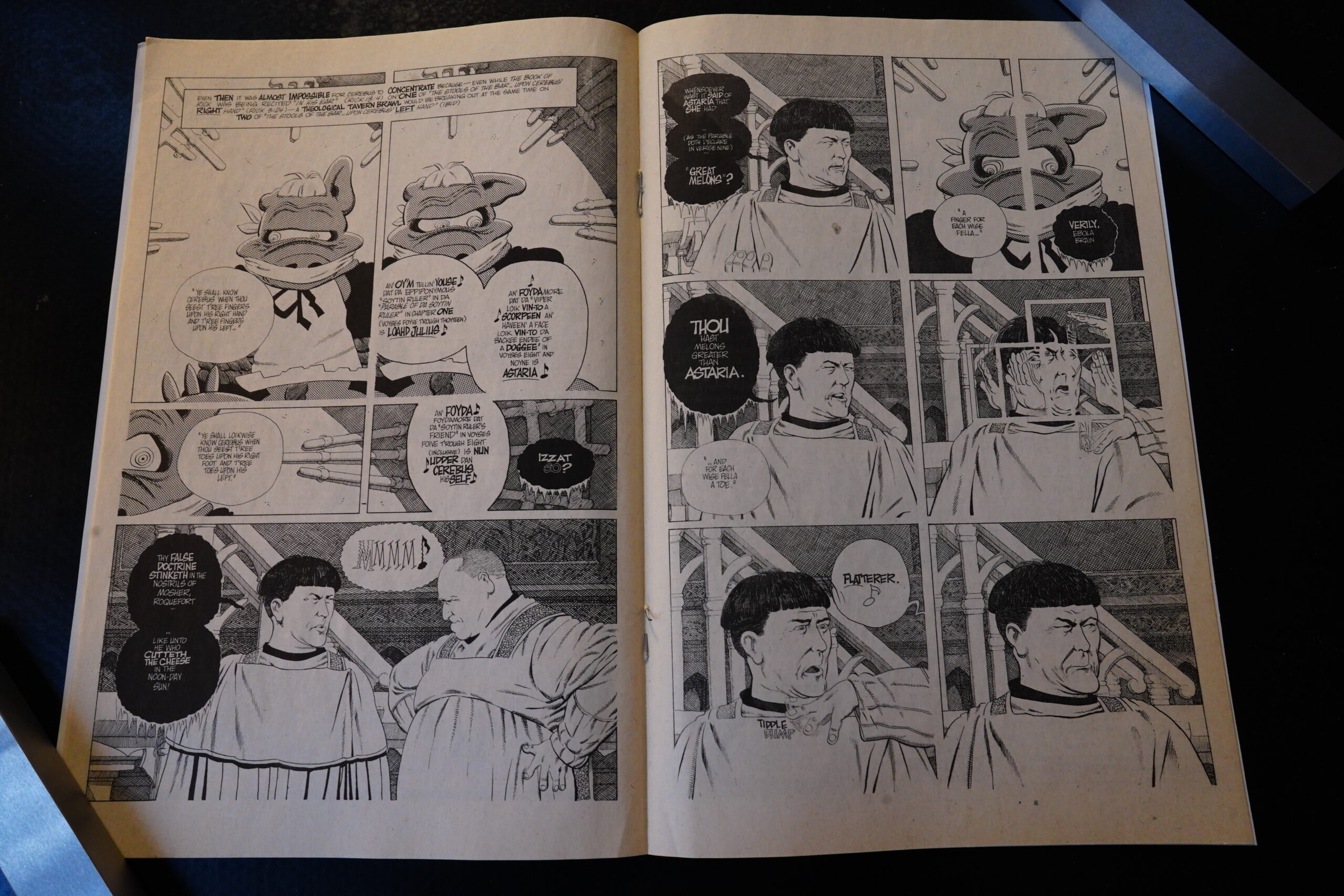
Perhaps this is hilarious to a Three Stooges fan? I have no idea.
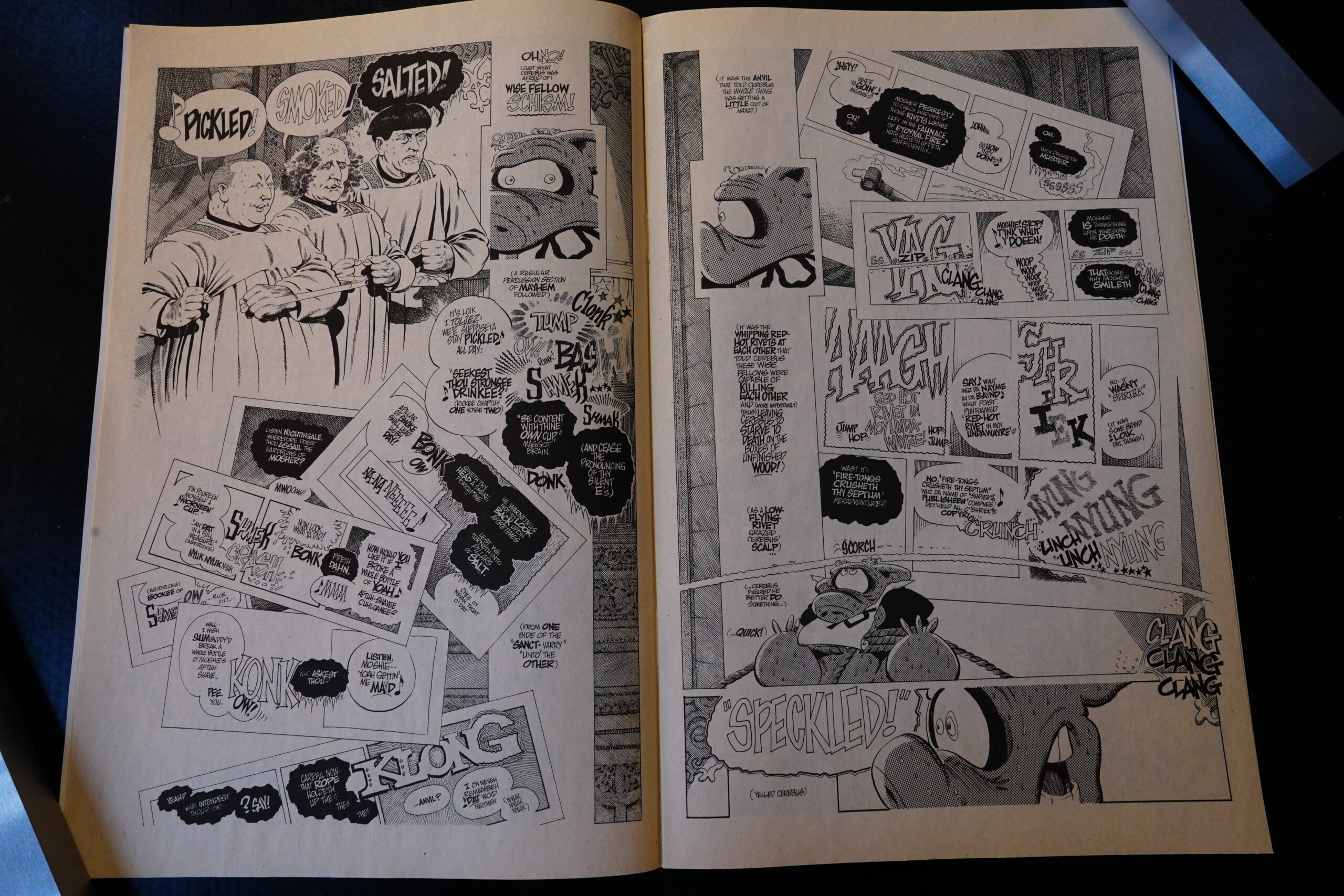
When these issues were published back in 2001, I mostly just skimmed them. I did (mostly) read them now, and…
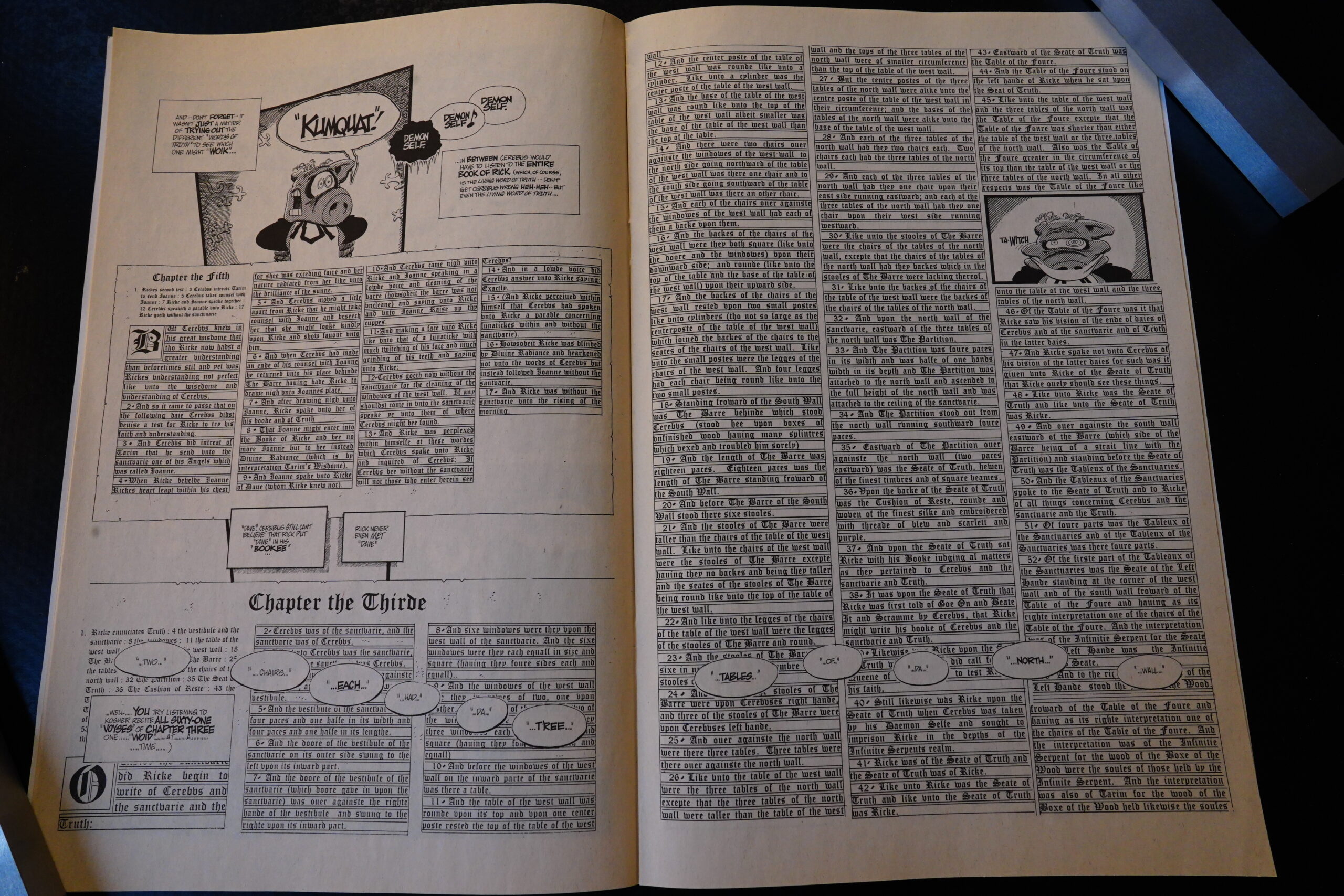
… I had the right idea back then. It’s tedious as fuck.
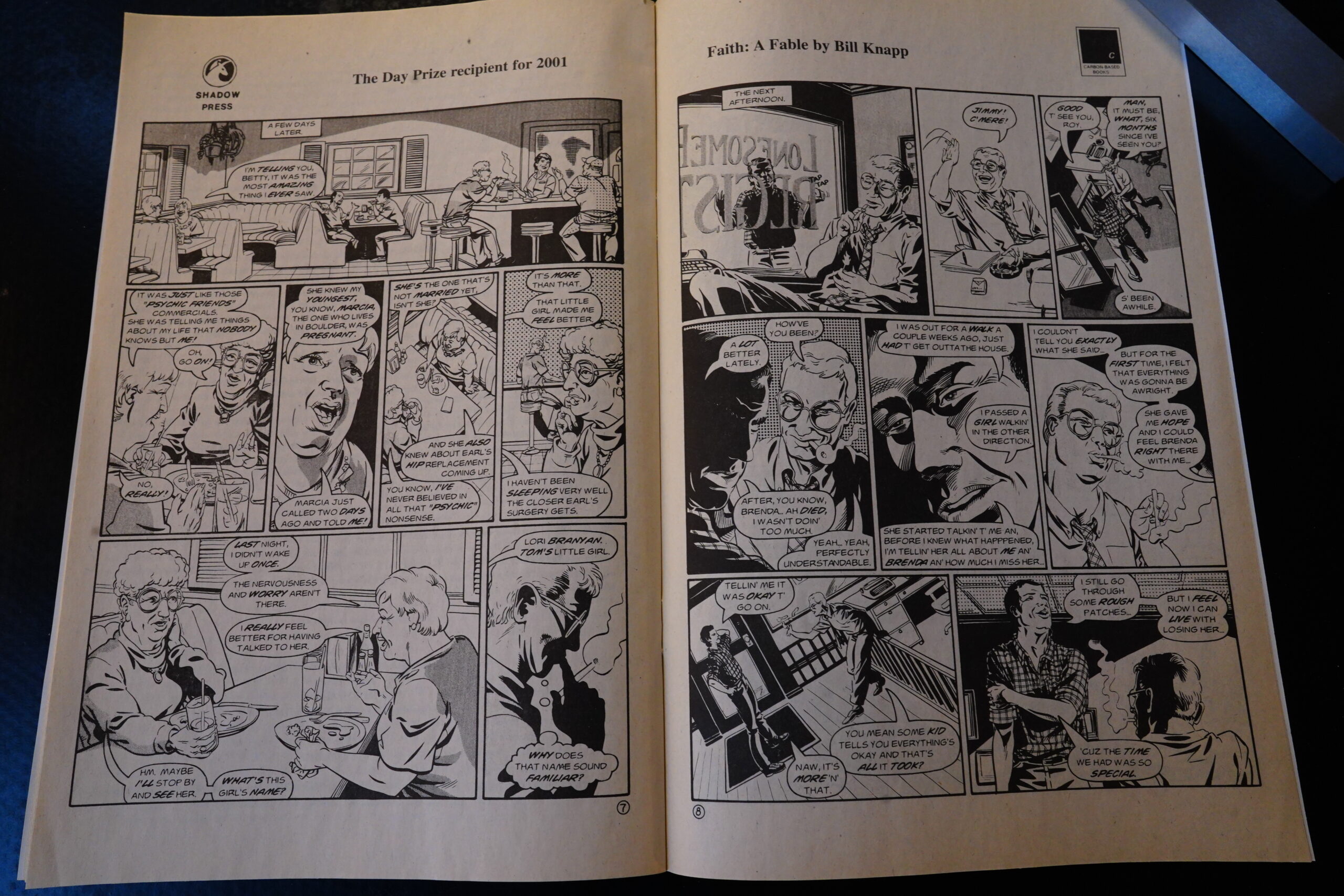
This thing won the first Gene Day award (that Sim dreamt up, I guess). It’s not very good.
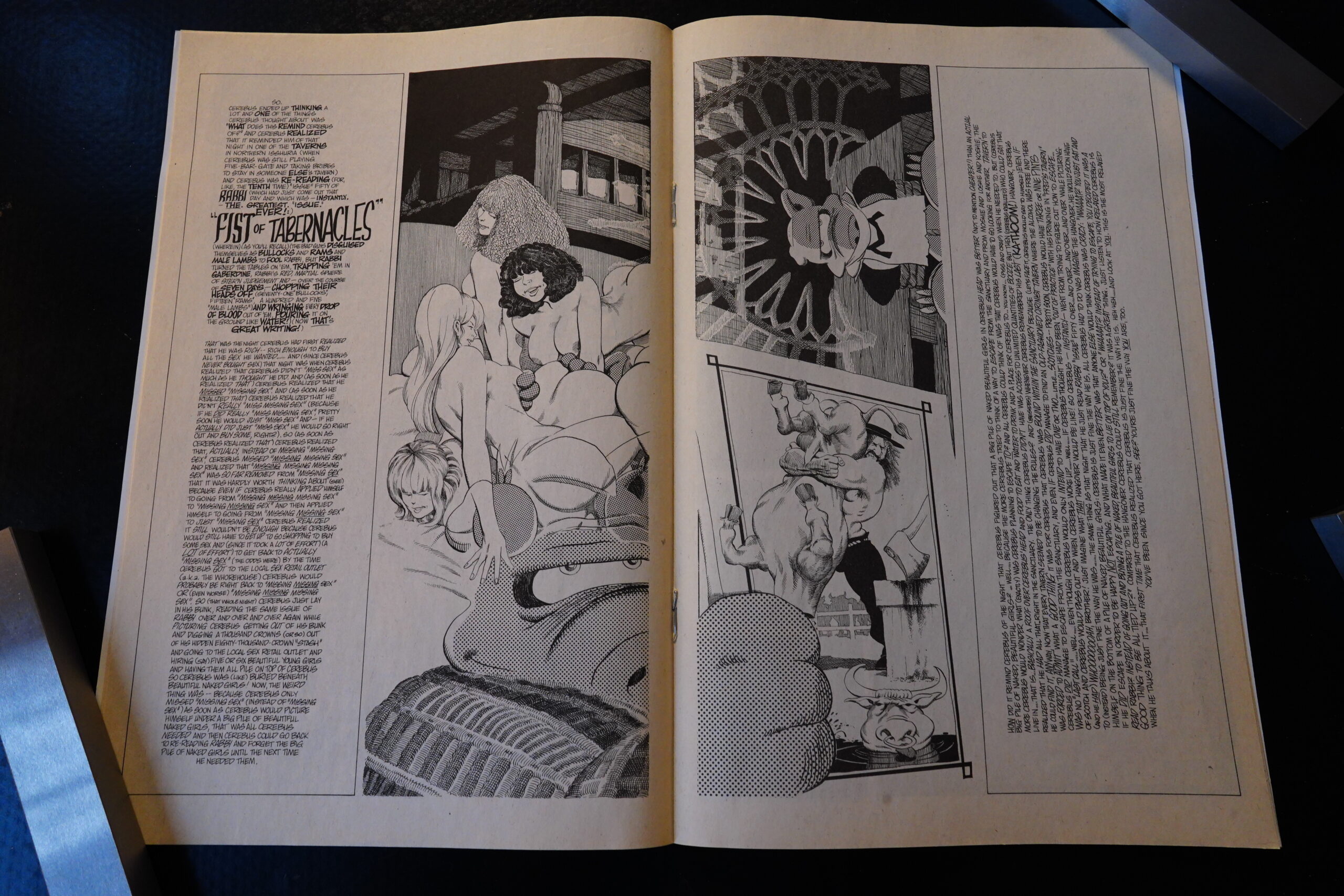
Did I mention that this is kinda boring reading?
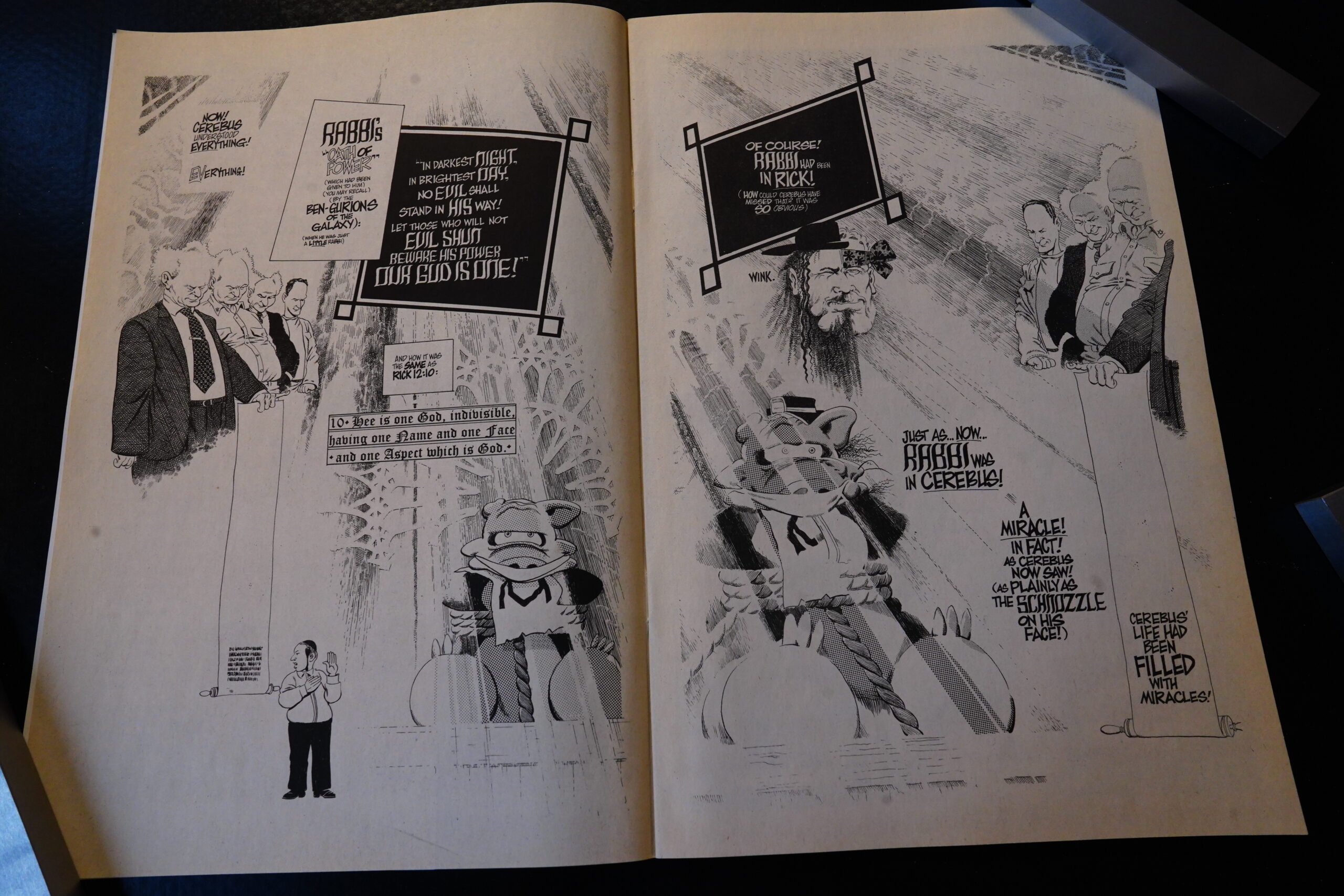
Cerebus starts having dreams/visions/etc about being Preacher, I mean, Rabbi (as Sim’s version is called).
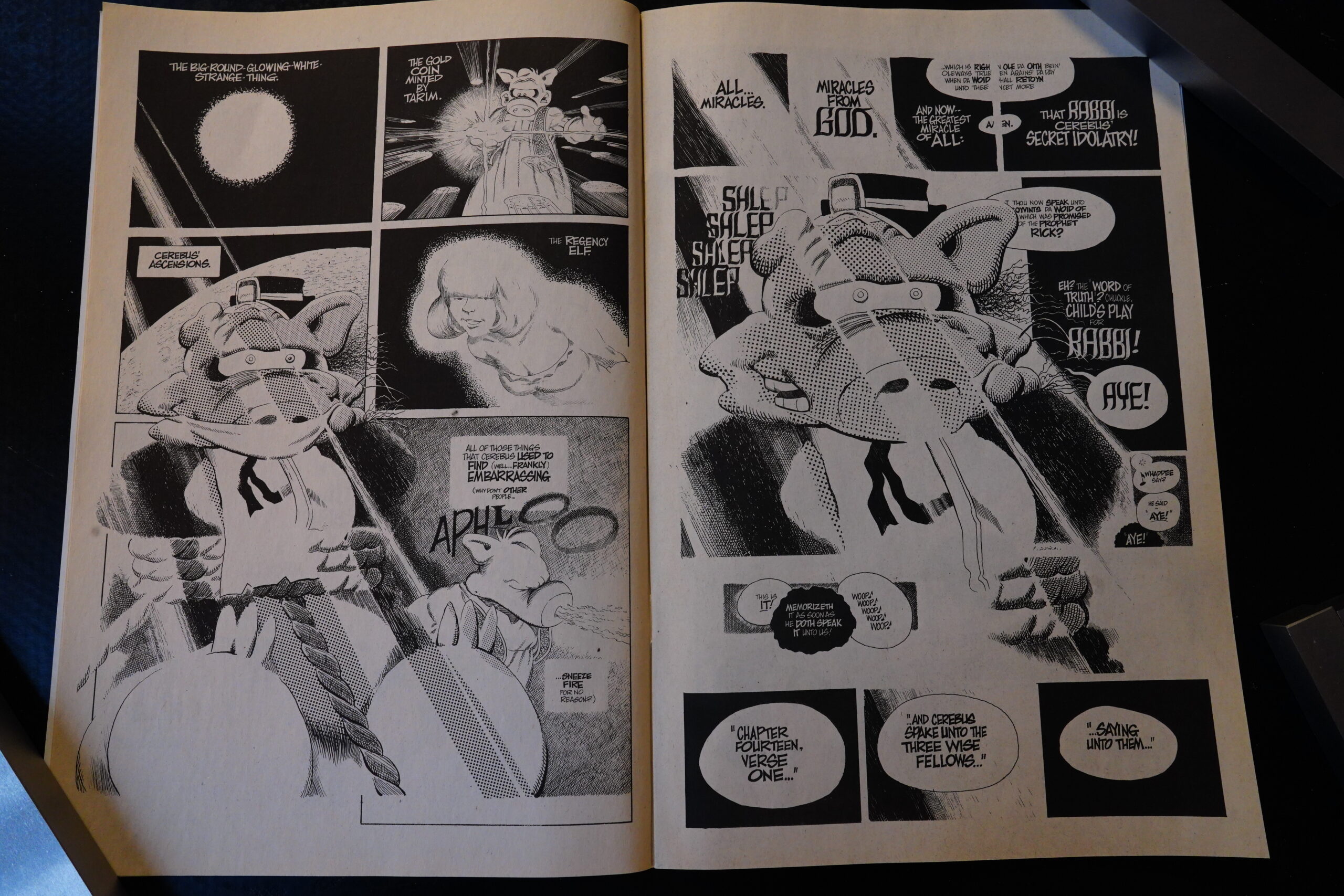
The brain-washing works — Cerebus is kept trussed and tied for months while they read him from the Bible/Booke of Rickee — and Cerebus comes to realise/imagine that he’s god’s favoured, and that’s why all these things keep happening around him.
Now, this is played for laughs, I think? Sim is showing Cerebus being delusional, possibly? But as Sim had recently become to believe many of the things that he’s portraying here, I’m not at all sure whether he’s poking fun at himself, of saying “well, my revelations are real, but that Cerebus guy sure is delusional”…
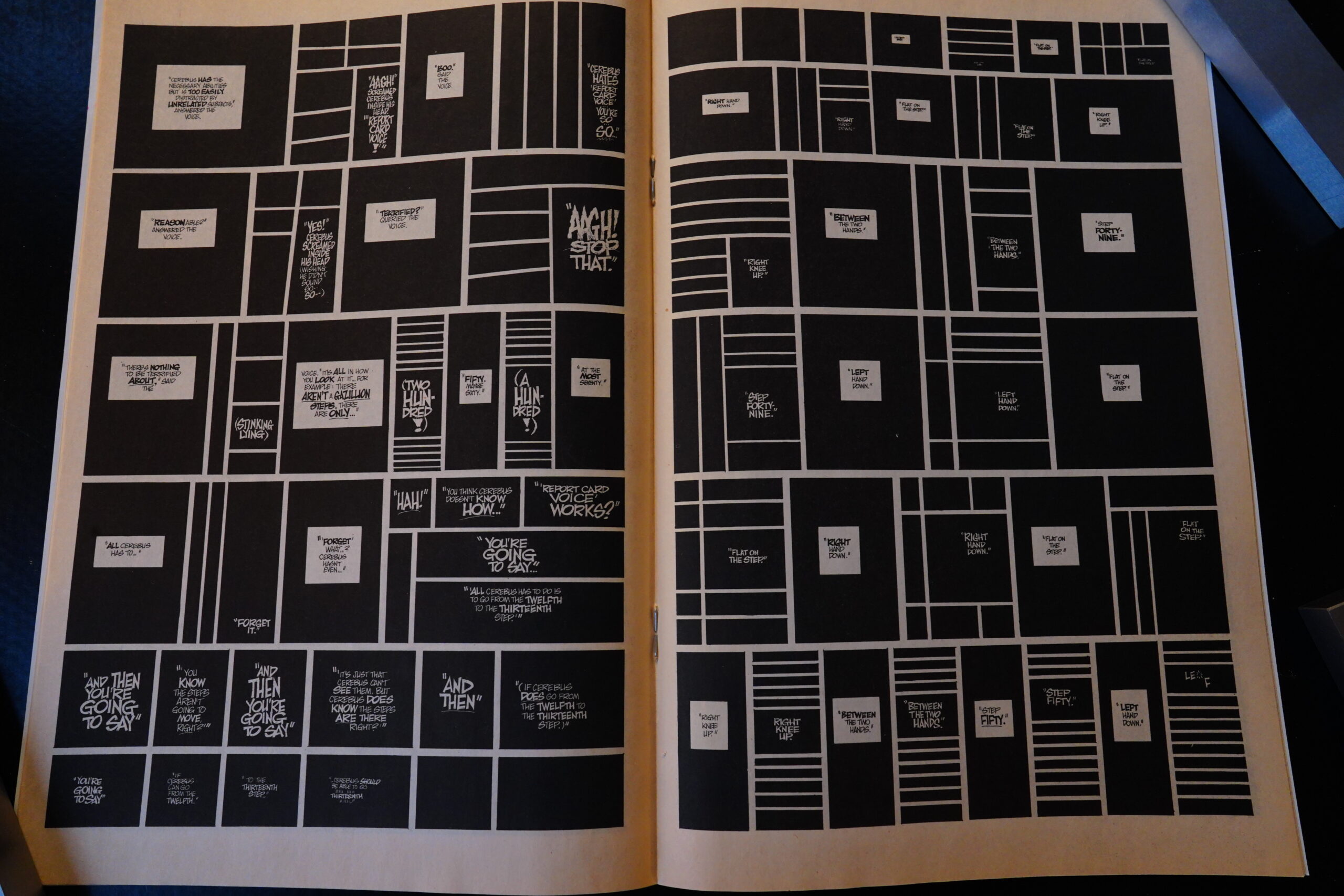
Sim’s various approaches to having to draw less seem to become counter productive, because this probably took some time.
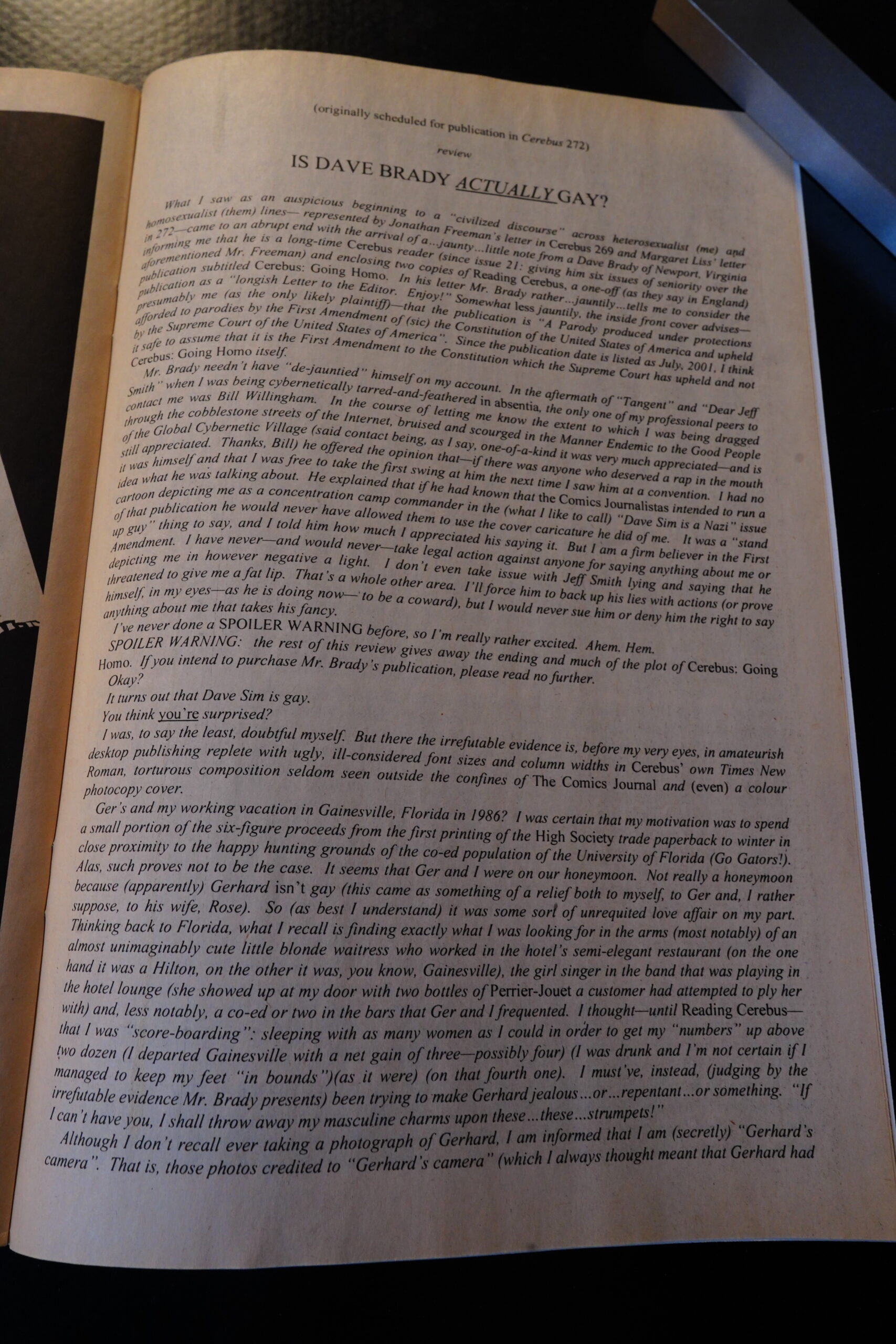
Somebody called Dave Brady published a pamphlet called Reading Cerebus, which apparently contains an essay called “Going Homo”, which (from Sim’s review of it over many pages) seems to have as the central thesis that Dave Sim is obviously gay. I’m guessing that Brady wrote it all as a way to poke fun at Sim, but Sim seems oblivious to that possibility, and he rails against it sincerely. So: Mission accomplished, Dave Brady! Take a bow!
OK, that’s more than enough for today. I’ll continue tomorrow, I guess.
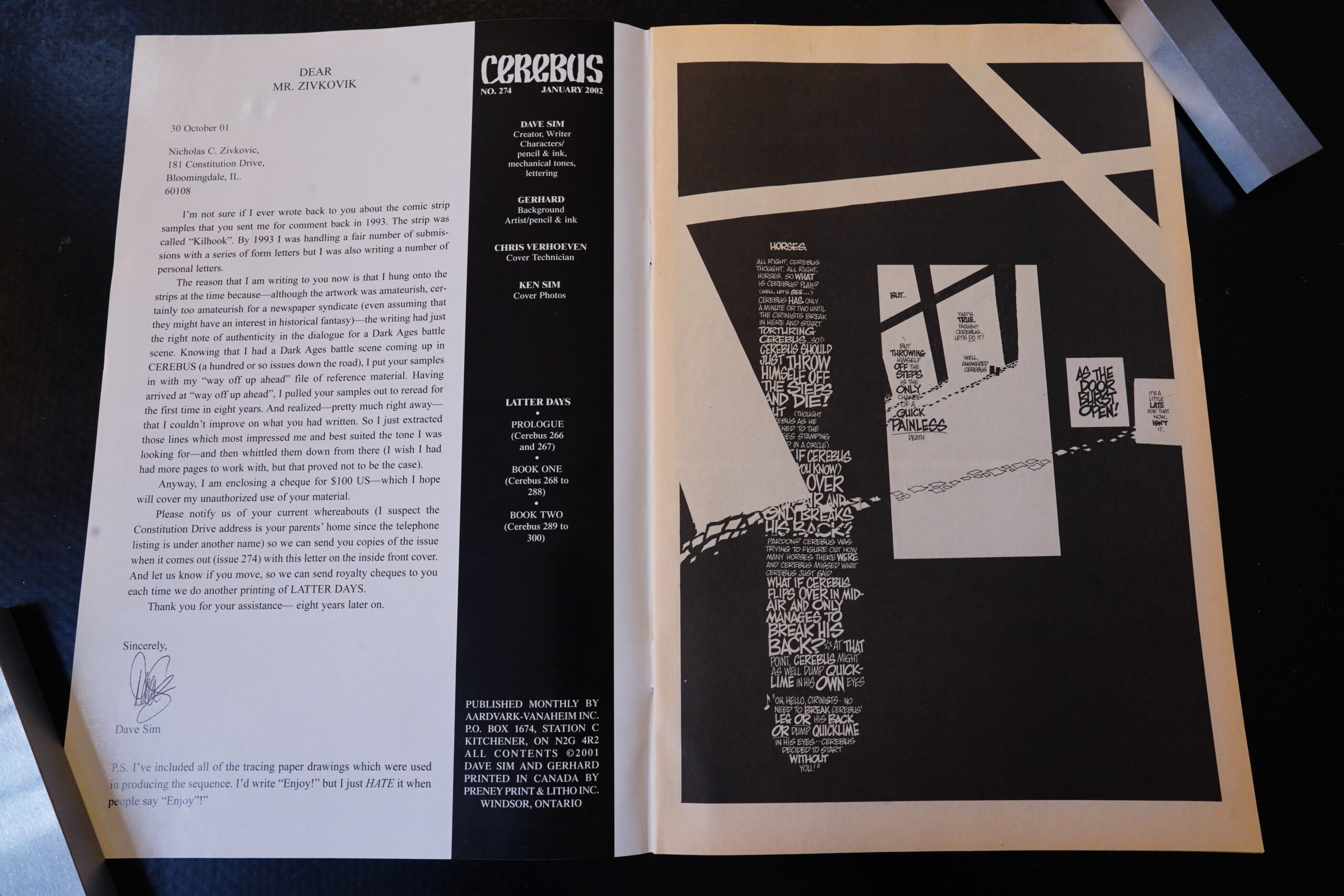
OK, next day… let’s get going. Sim explains that he’s taken some dialogue from an old comic he got several years earlier. I guess he may be talking about what the dead Cirinist is saying? I’m not sure.
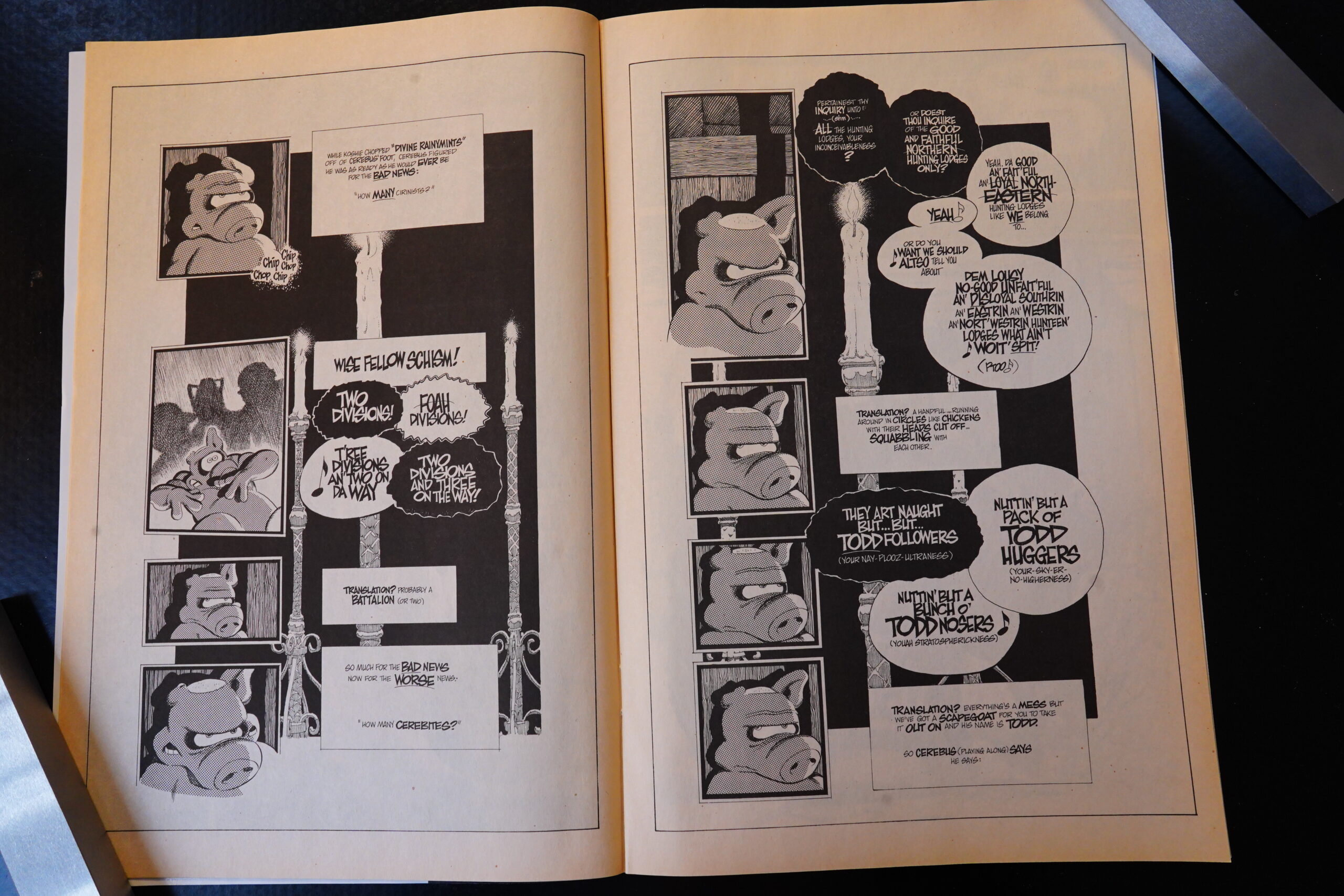
Latter Days is (sort of) easily divided into three parts. The first six issues (covered yesterday) are slow moving, and is all about Cerebus being brain-washed by the Three Stooges. The next six issues are dense — filled with action and plot developments, and about 60 years pass.
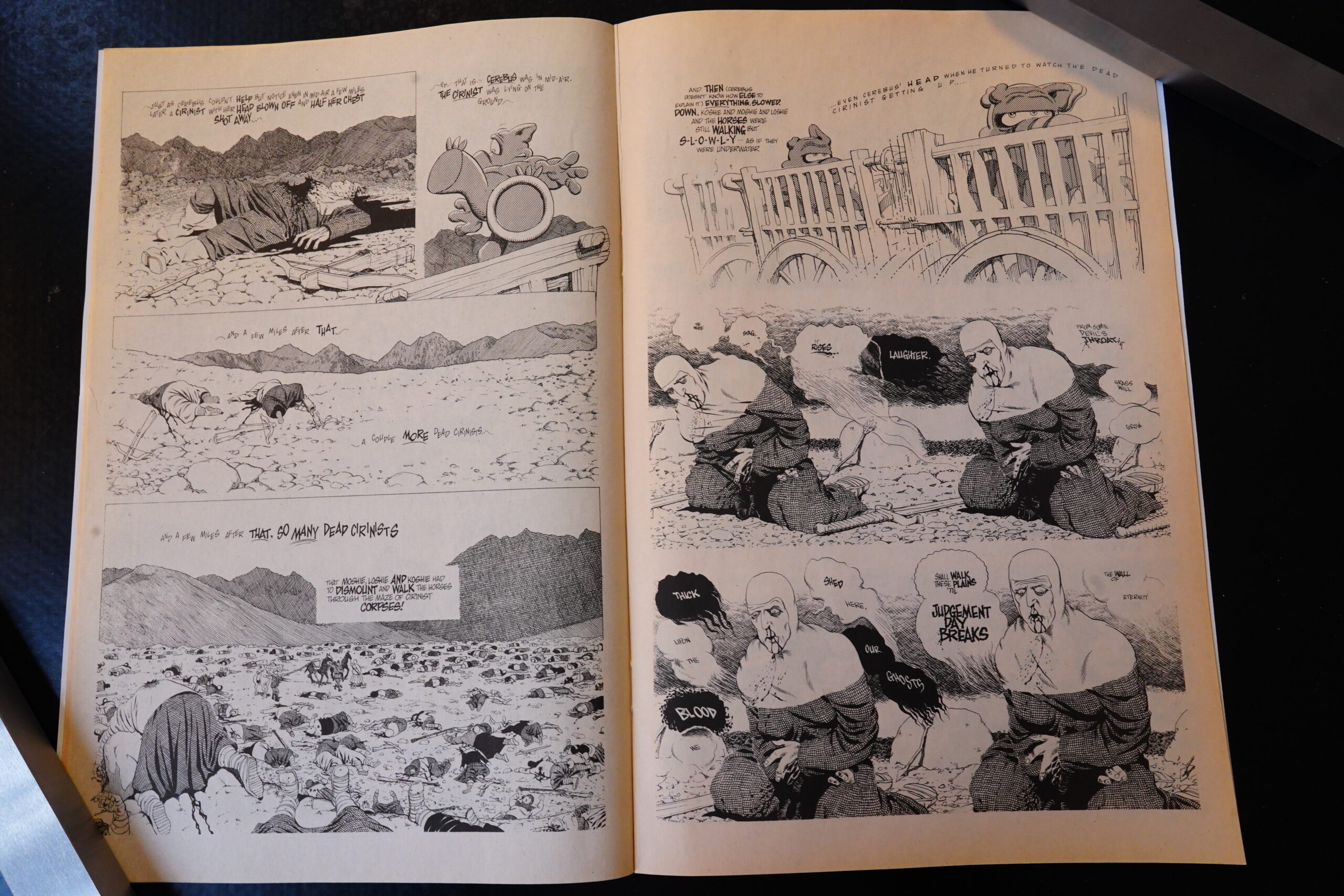
First of all, the Cirinists lose the battle — which is a surprise to Cerebus, who thought they were pretty much impossible to beat on the battlefield. (And is this the dialogue Sim took from that strip?)
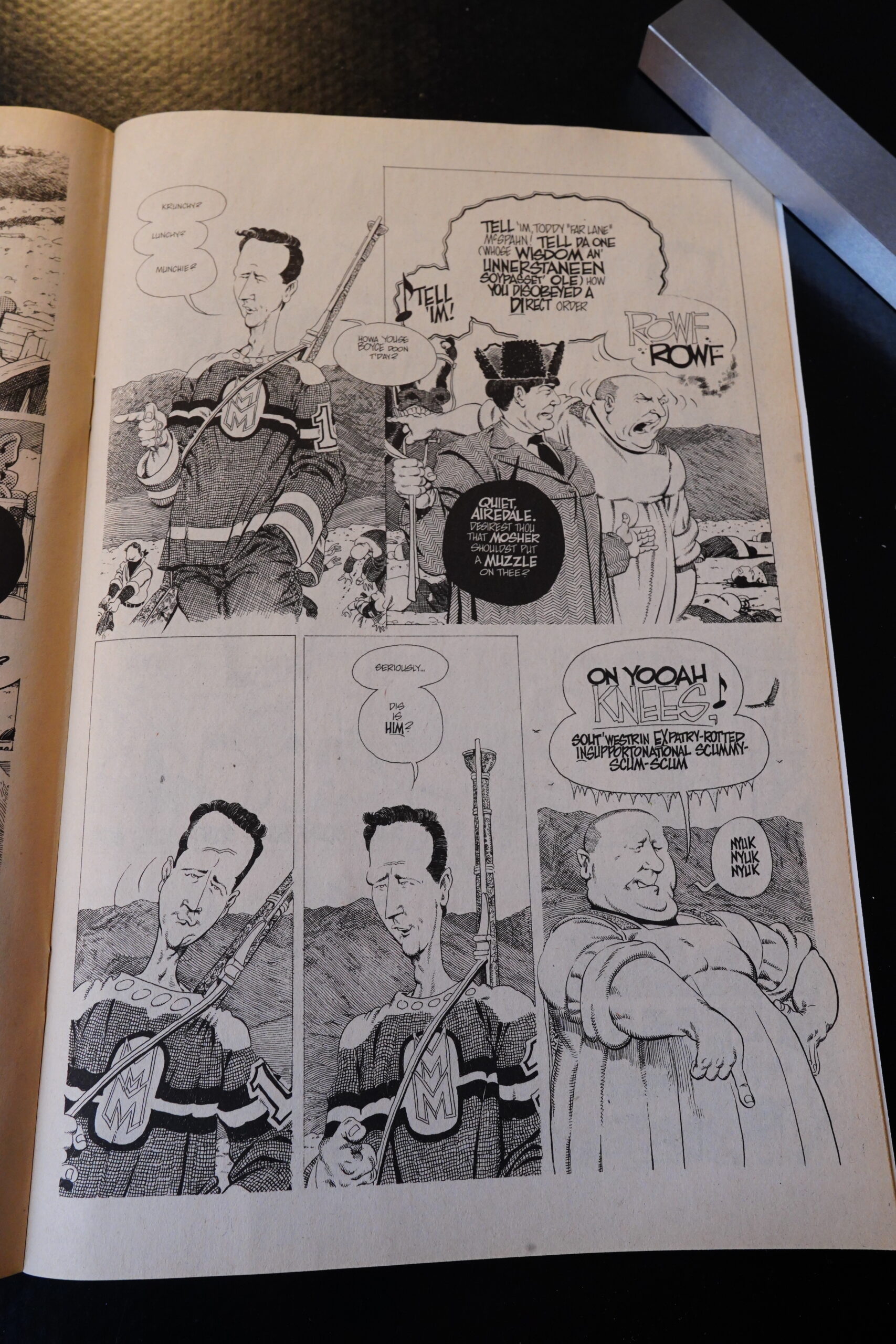
And… we’re not really given a good explanation as to how it was so easy for the guys from the hunting lodges to kill them, but it’s apparently because Todd McFarlane (here seen in a Miracleman hockey shirt) is a really good general or something. Or perhaps they had better guns than Cirinists? Which seems odd, but… er…
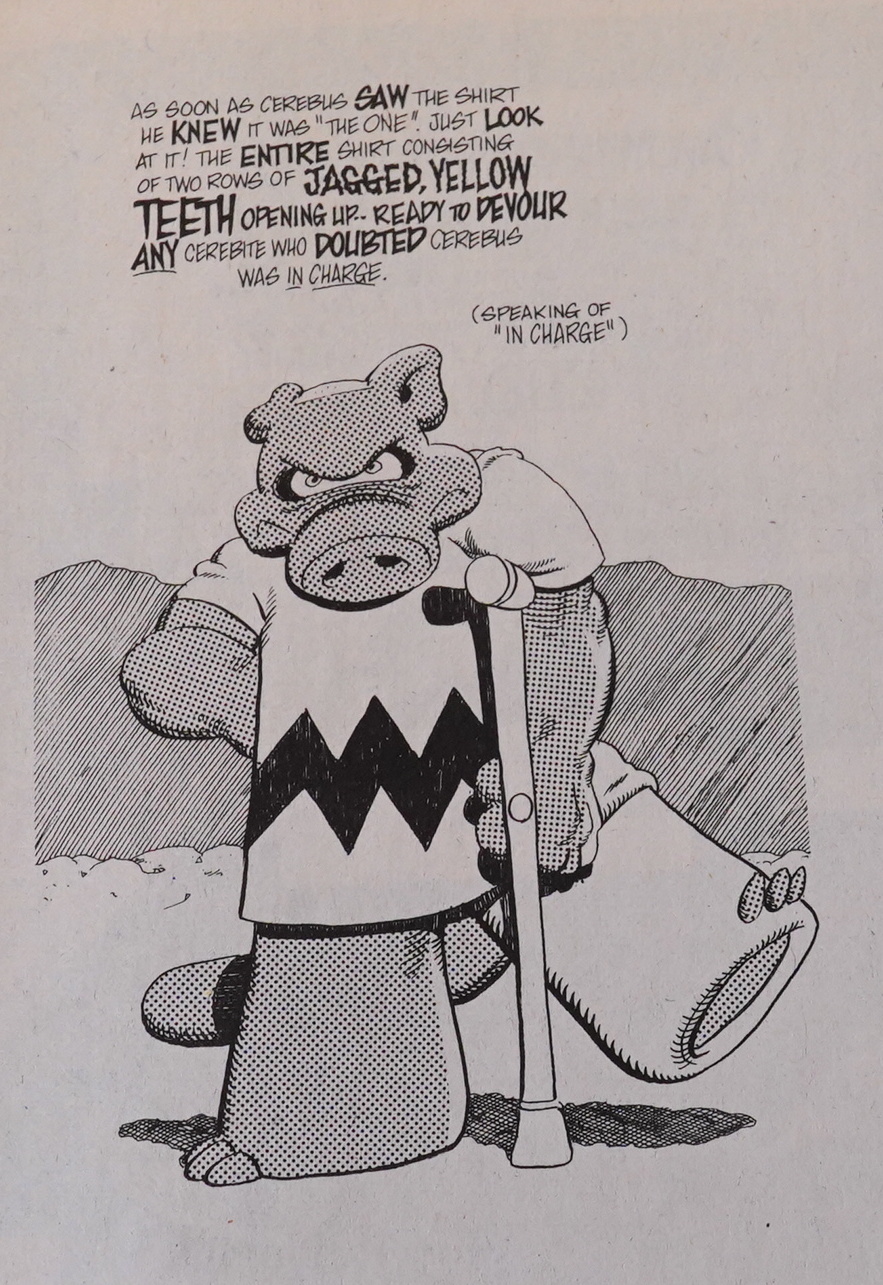
Cerebus explains what Charlie Brown’s sweater expresses.
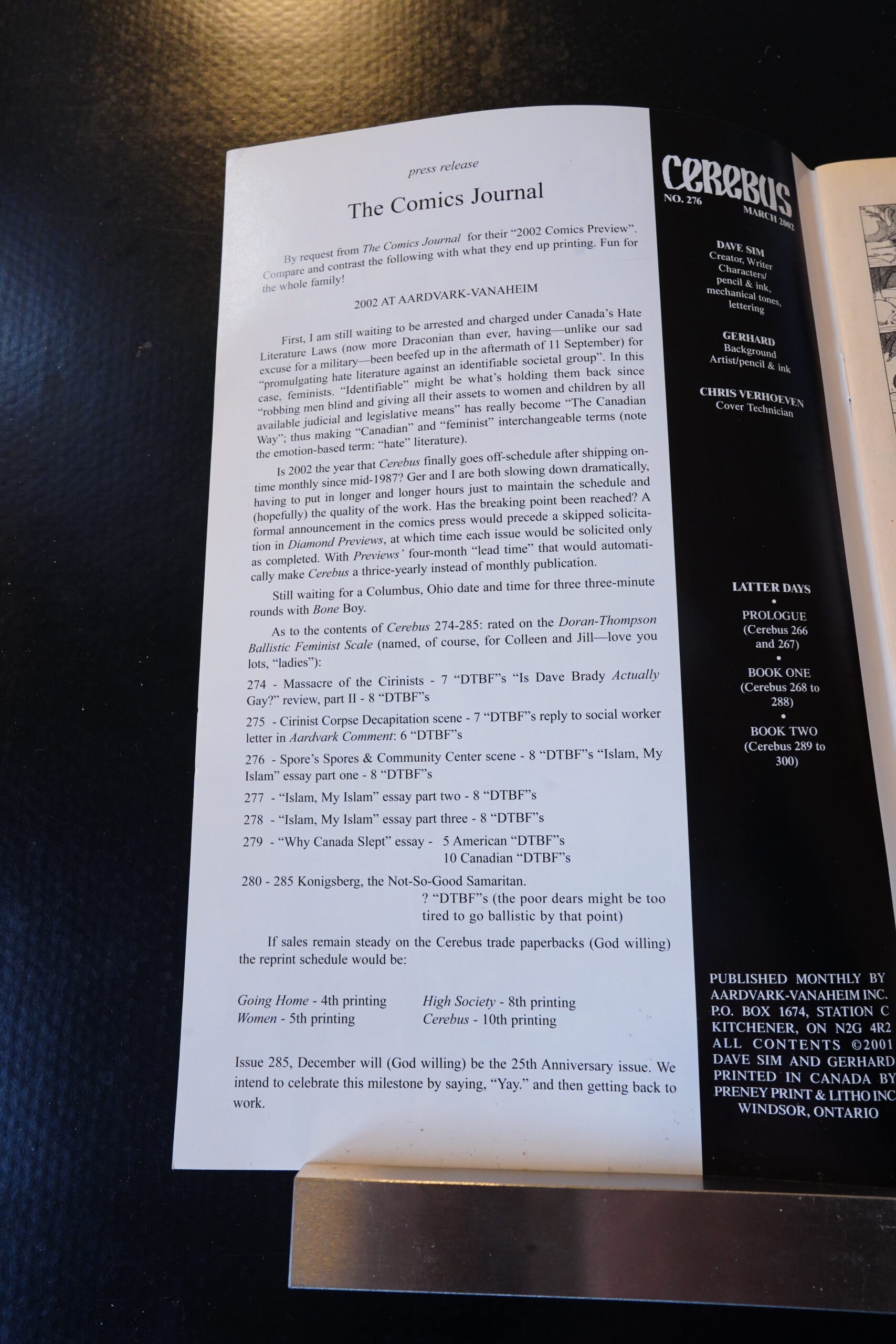
Sim prints his entry for the Comics Journal “2002 Comics Preview” here, so that we can see what those nefarious, evil people at TCJ do with it! (And… “love you lots, ‘ladies'”. Christ what an asshole.)
I was unable to find anything resembling a 2002 Comics Preview in the Comics Journal, so perhaps it didn’t happen? I also tried searching for phrases from Sim’s er missive, and didn’t find anything…
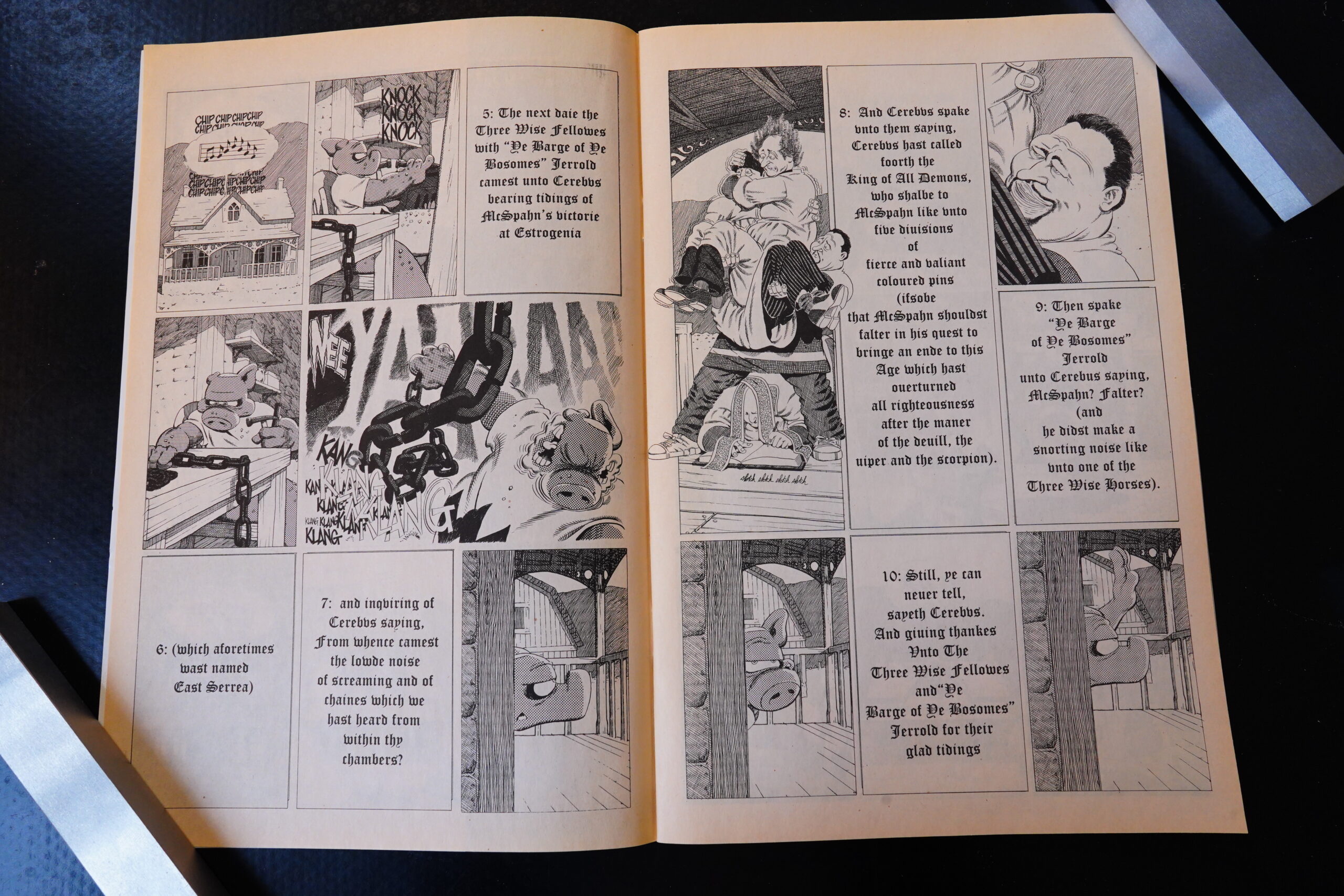
These six issues sometimes feels like an exercise in seeing how many ways Sim can annoy his readers — this time not only writing in speakethese, but also with a Frakturish typeface?
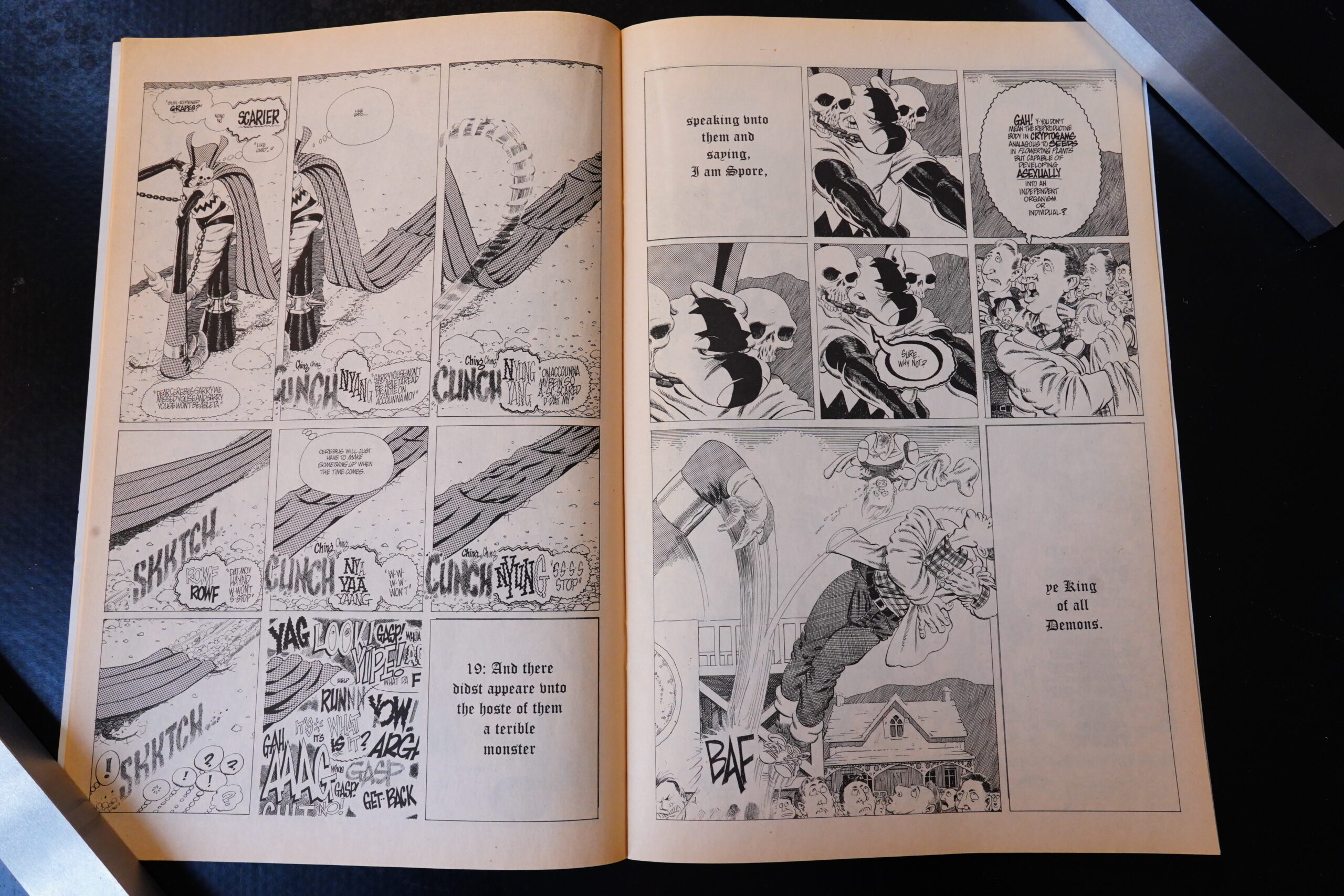
Cerebus takes back the leadership of the forces by sowing a really elaborate Spawn-referencing super-hero outfit. It’s a really absurd outfit, and I’m guessing Sim made it that weird to poke fun at the impracticality of Spawn’s cape or something? I don’t know — I’ve probably read only half an issue of Spawn in my life, so perhaps it’s really referential…
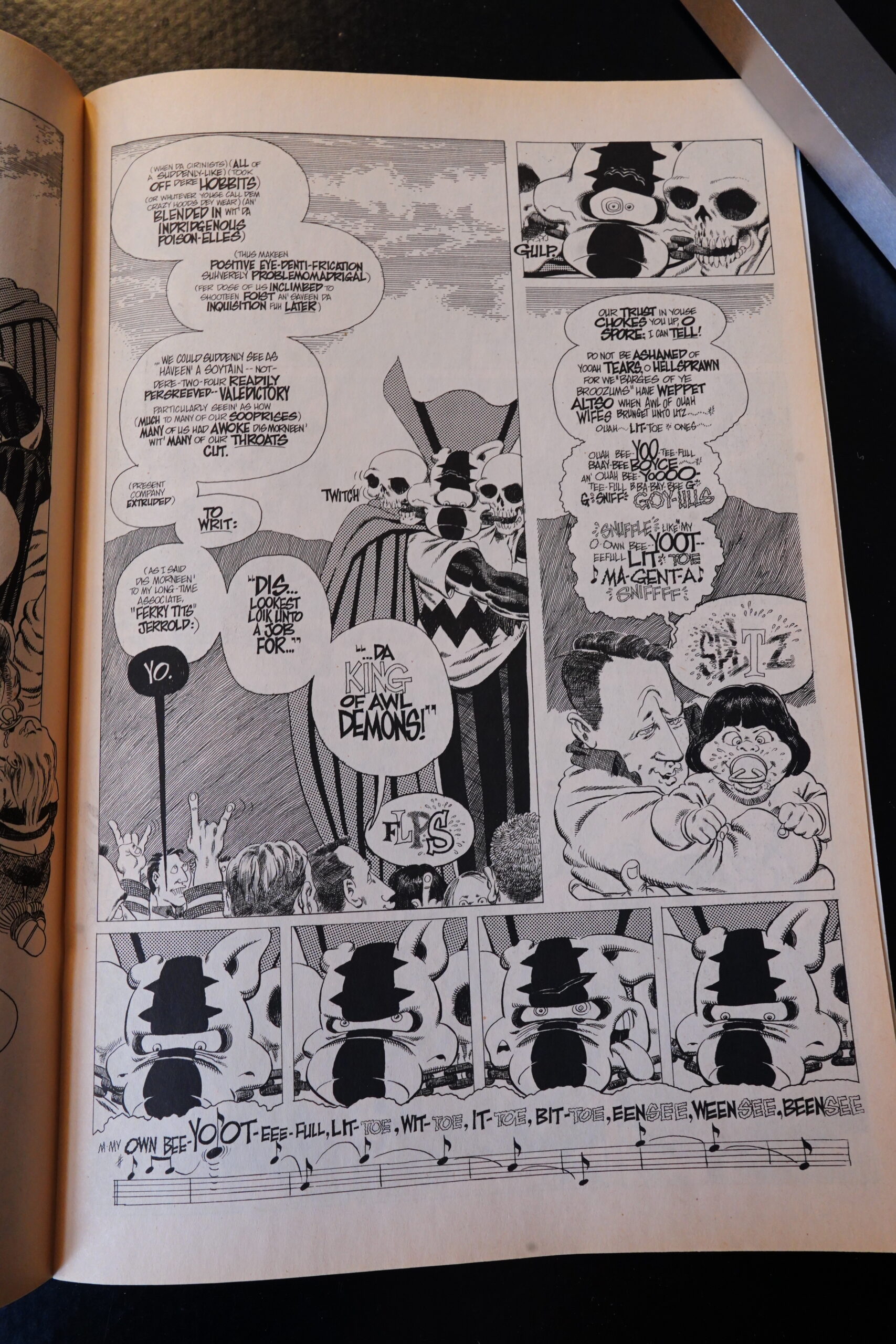
I’m guessing Sim is doing Todd McFarlane’s dialect here, but it tends towards the illegible (another way to annoy readers (at least this reader)).
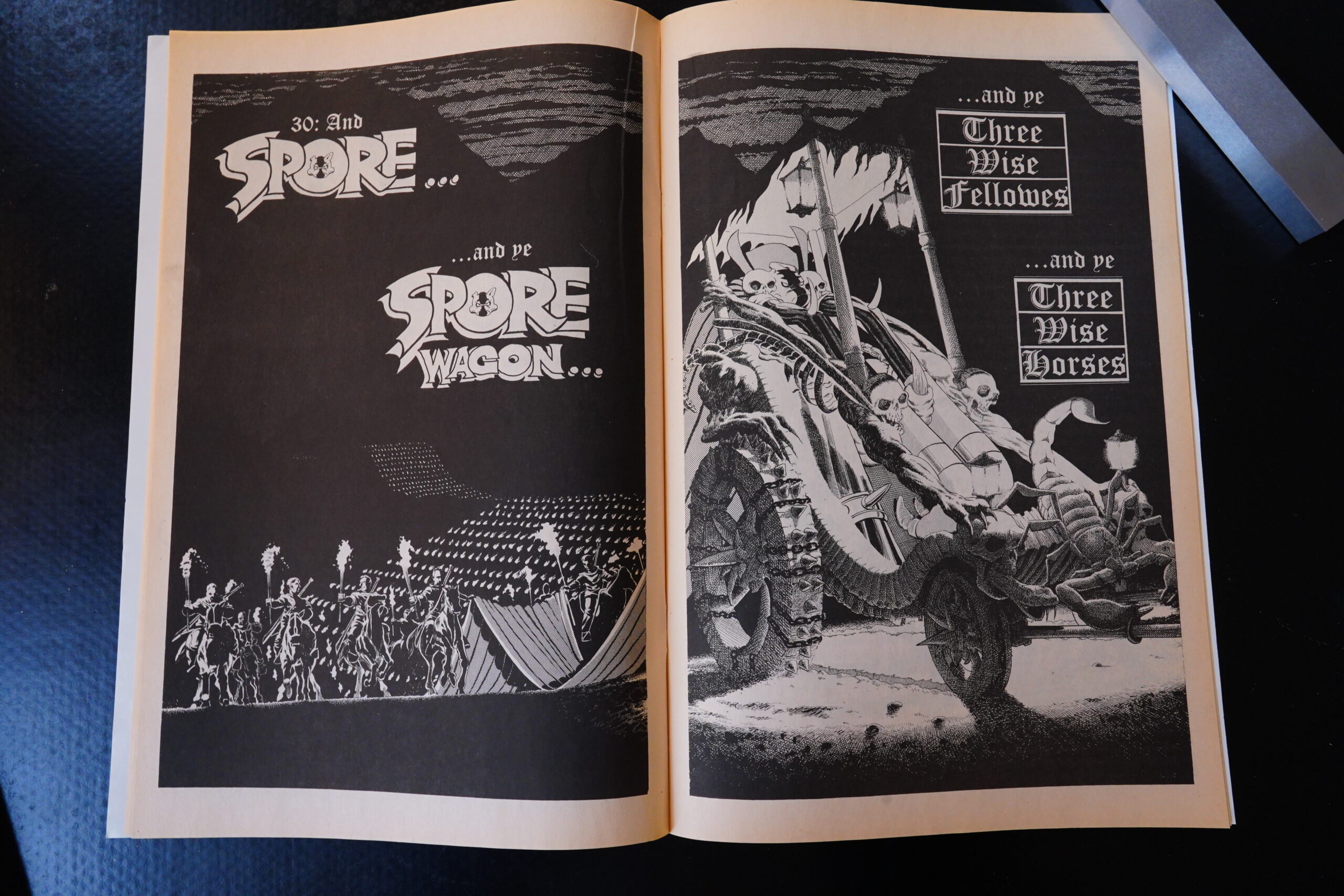
But this…
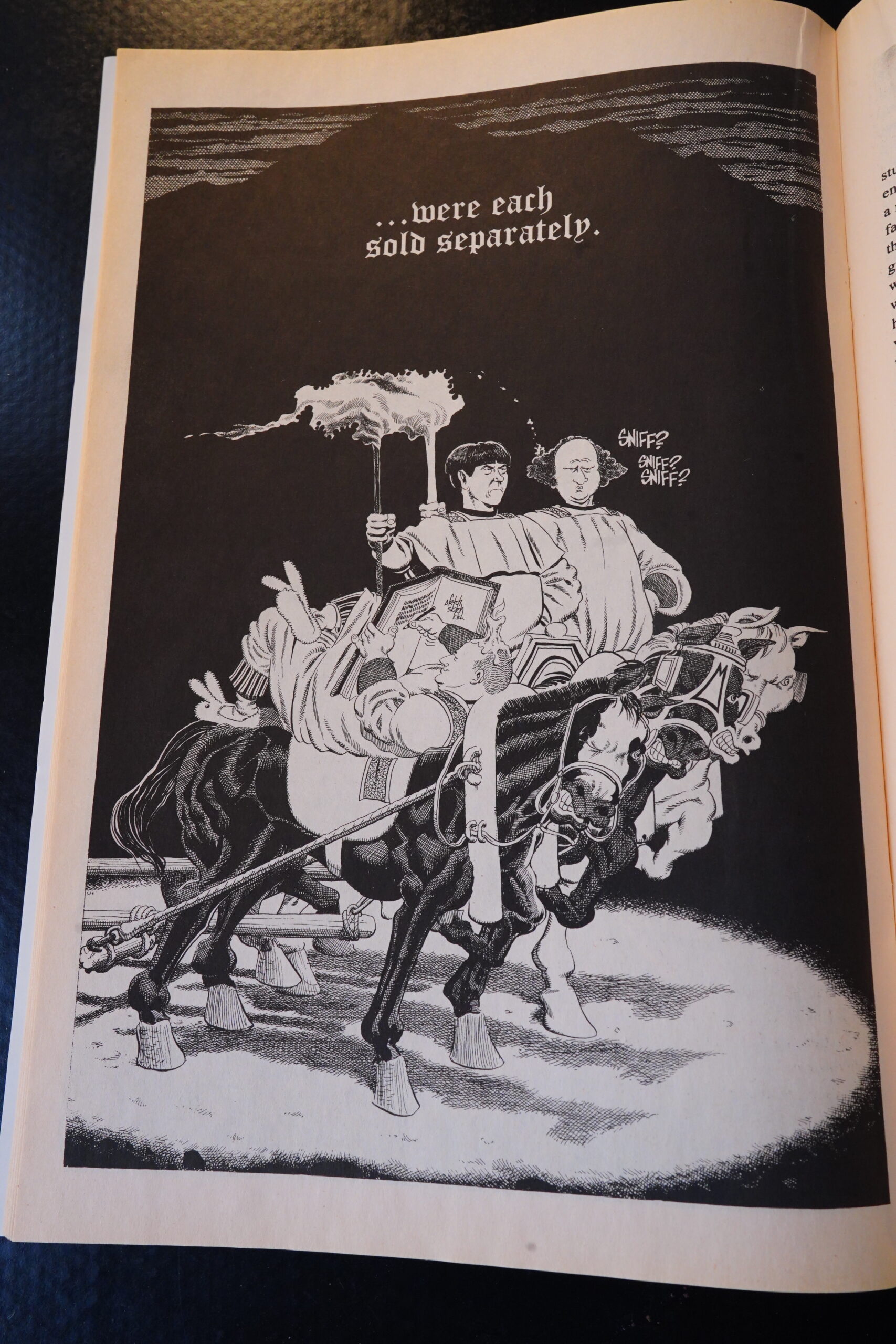
… is pretty amusing, even if it’s a totally non sequitur within the story. But I guess Sim had to get another dig in at McFarlane and his toys.
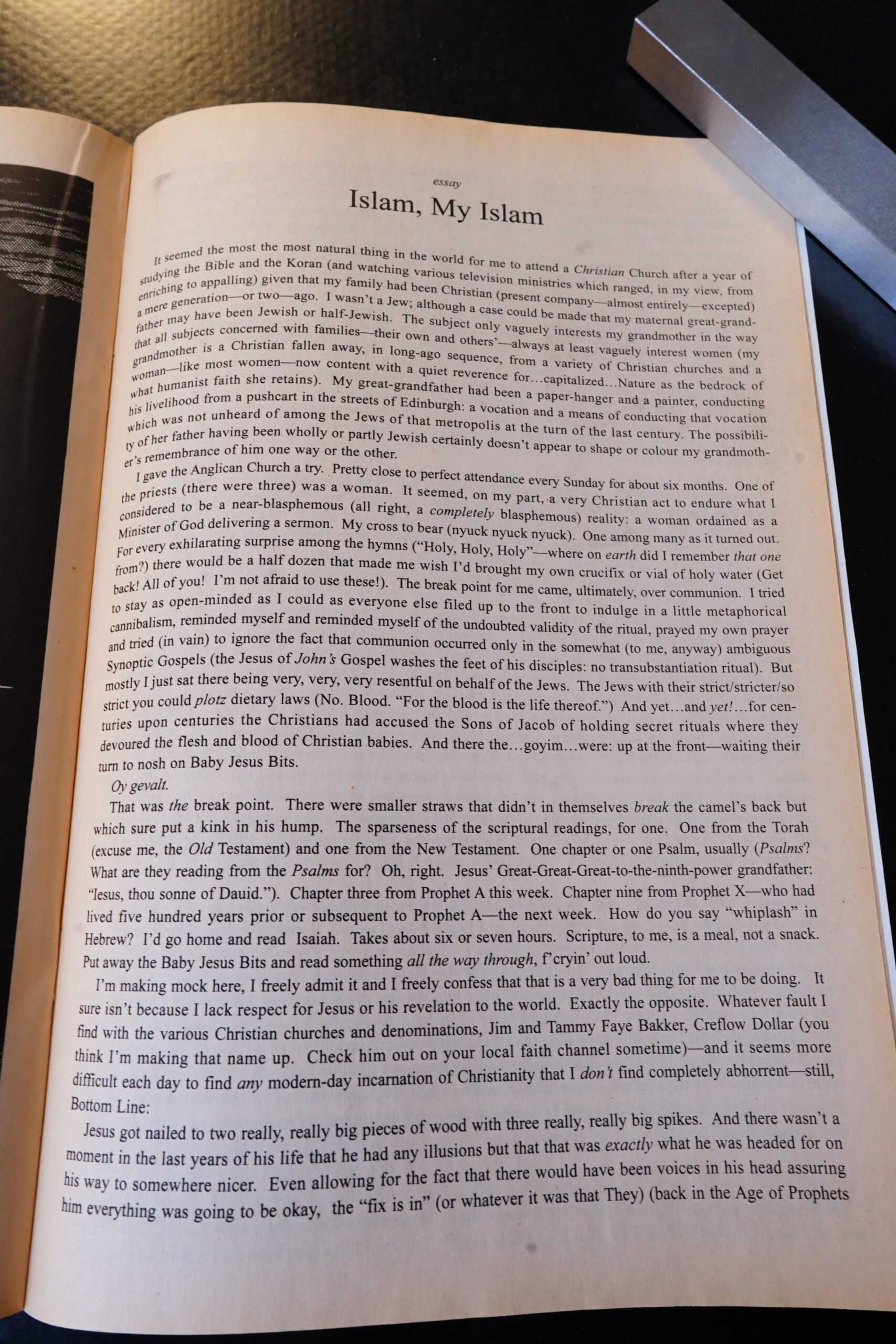
Sim starts an essay called “Islam, My Islam” that runs for many, many issues. He starts off at four pages per issue, and then nine, and then 21… I think perhaps it might be 100 pages in total? I don’t know — I skimmed here and there to see whether there was anything of interest, but the only bit I could see that was even vaguely amusing was this at the start, where Sim says he started going to various services, but he was put off by the cannibalism rituals at christian churches. So he started going to mosques instead.
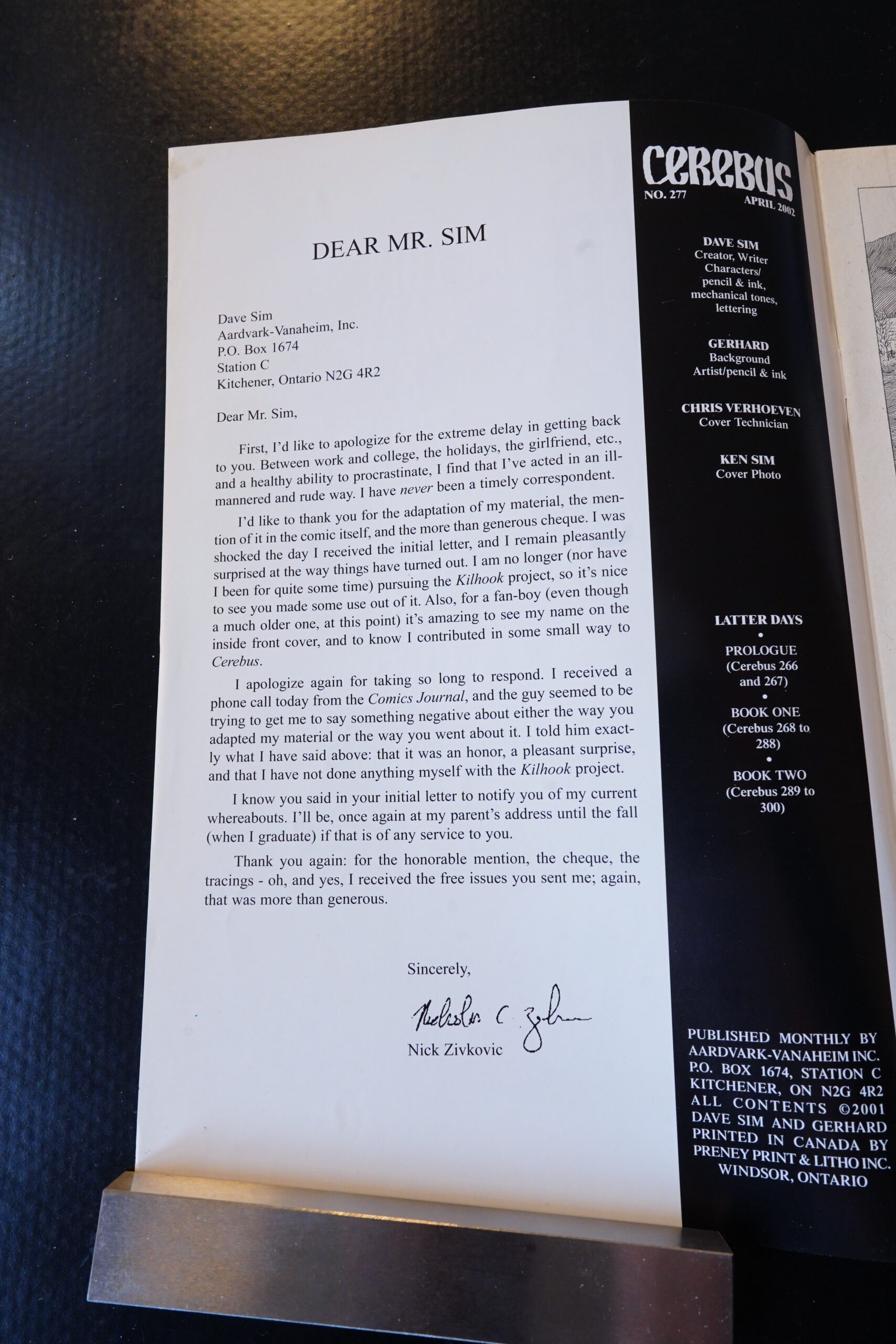
The guy Sim borrowed some dialogue wrote back and says that the Comics Journal rang up and tried to make him bitch (about plagiarism, presumably).
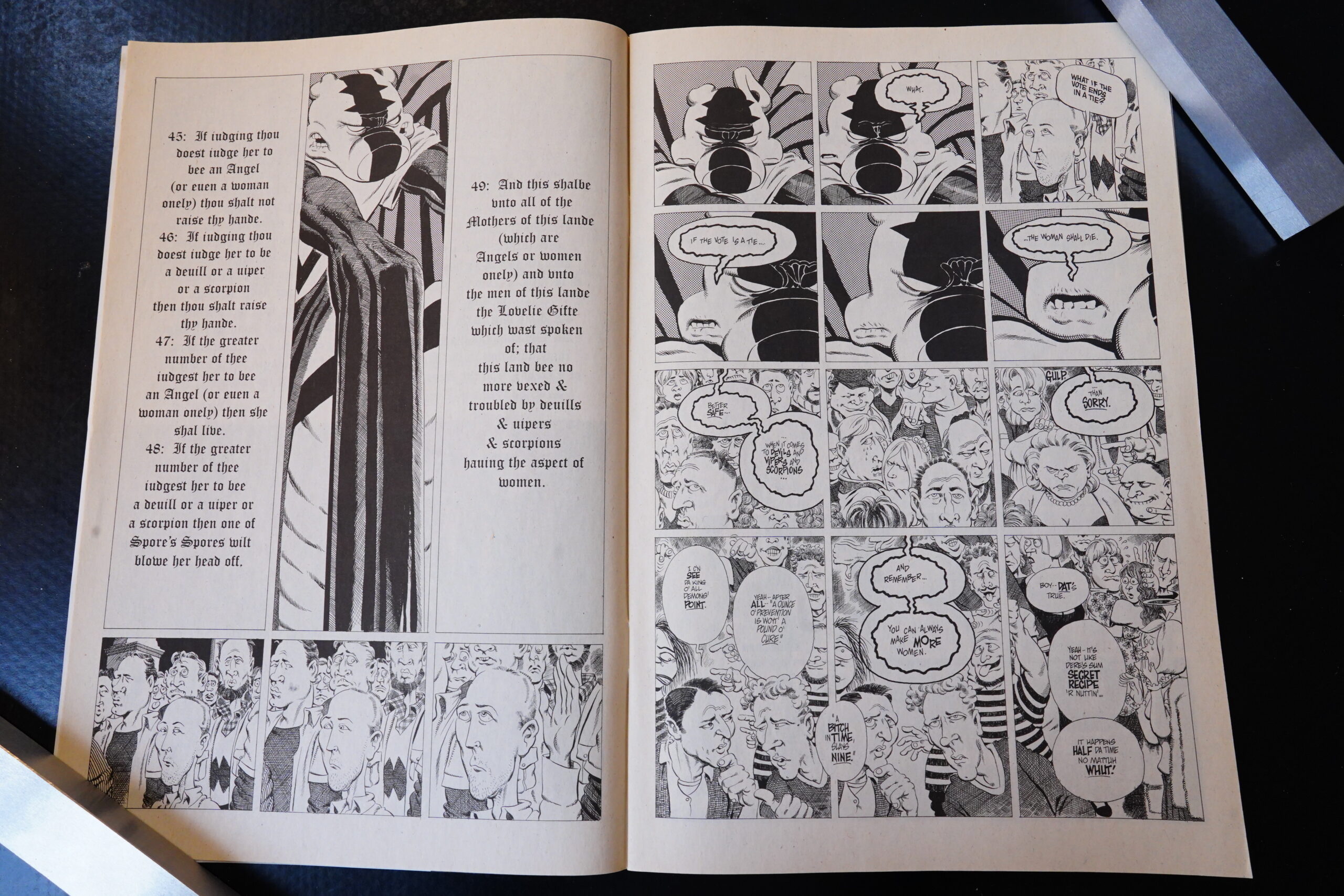
If anybody had still been reading Cerebus at this point, the bits here would probably have raised some eyebrows — much more so than #186 or the “Tangent” essay, probably? Anyway, Cerebus took over leadership from the Toddster, and his first act (mainly to root out all semblances of Cirinism forever in the region he controls) is to go around instituting a new yearly ritual:
Every year, every women in a community is presented, and the men vote over whether she’s a bitch. (I’m paraphrasing.) If more than 50% raise their hands, she’s killed.
At this point, Cerebus reads like some psychotic fever dream.
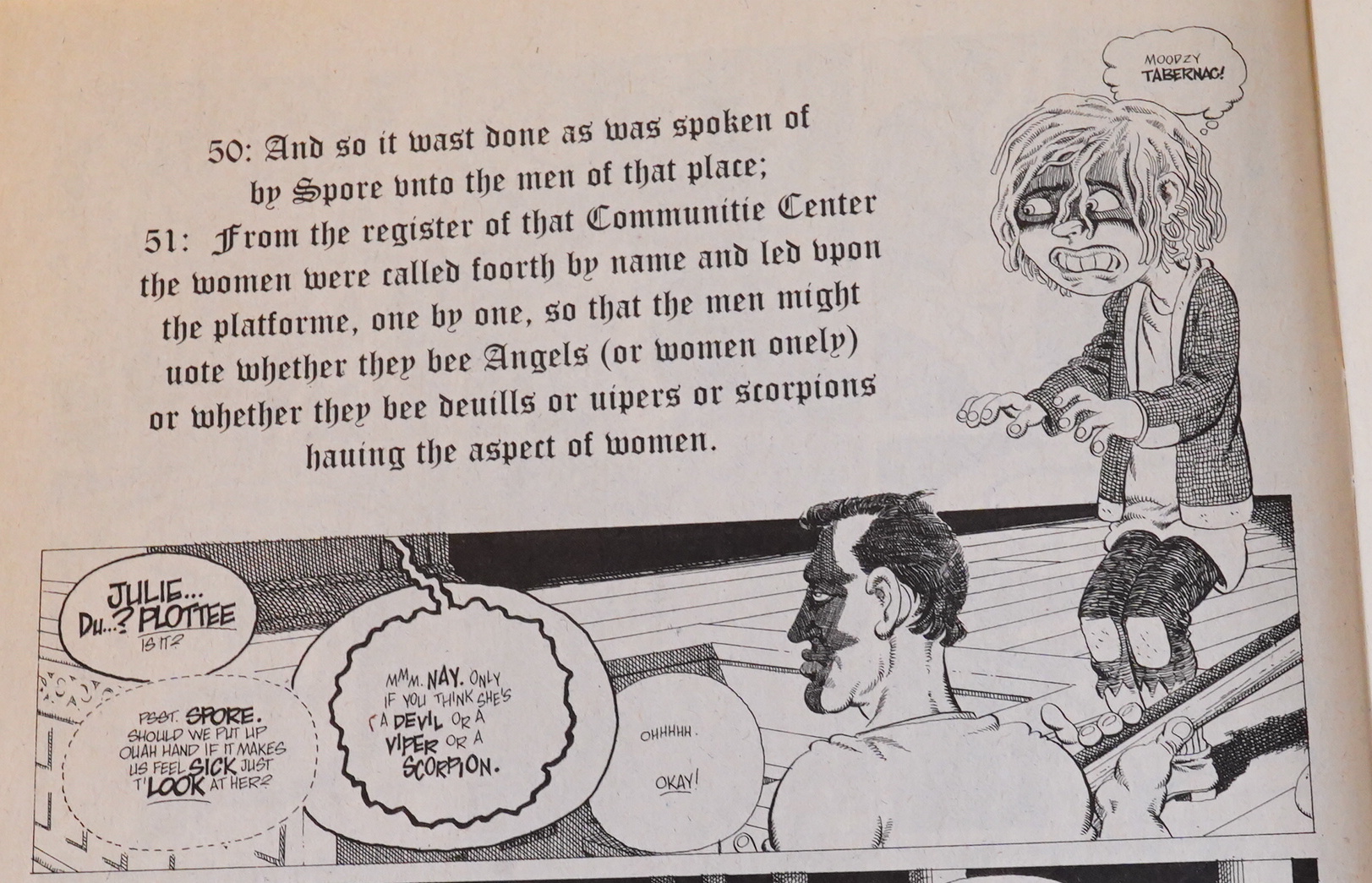
And a pretty nasty one at that. Sim even puts Julie Doucet on the stage to be voted over whether to live or die. (We’re not told the results of this vote.)
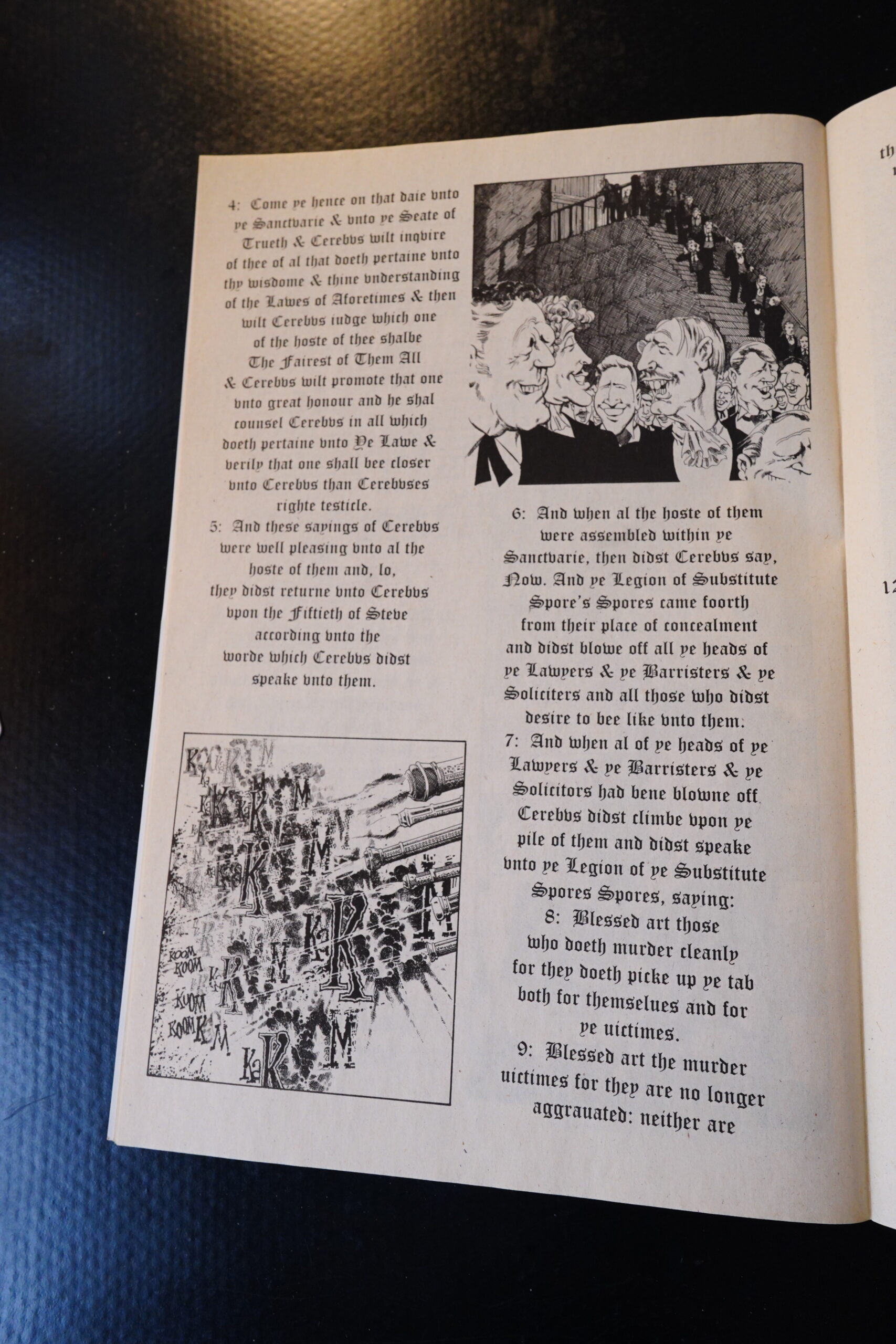
As an encore, Cerebus has all lawyers killed, too.
And belatedly, he institutes a law that allows men who are total dicks to be executed, too, after which everything is peaceful in the land, and the decades pass without any further problems.
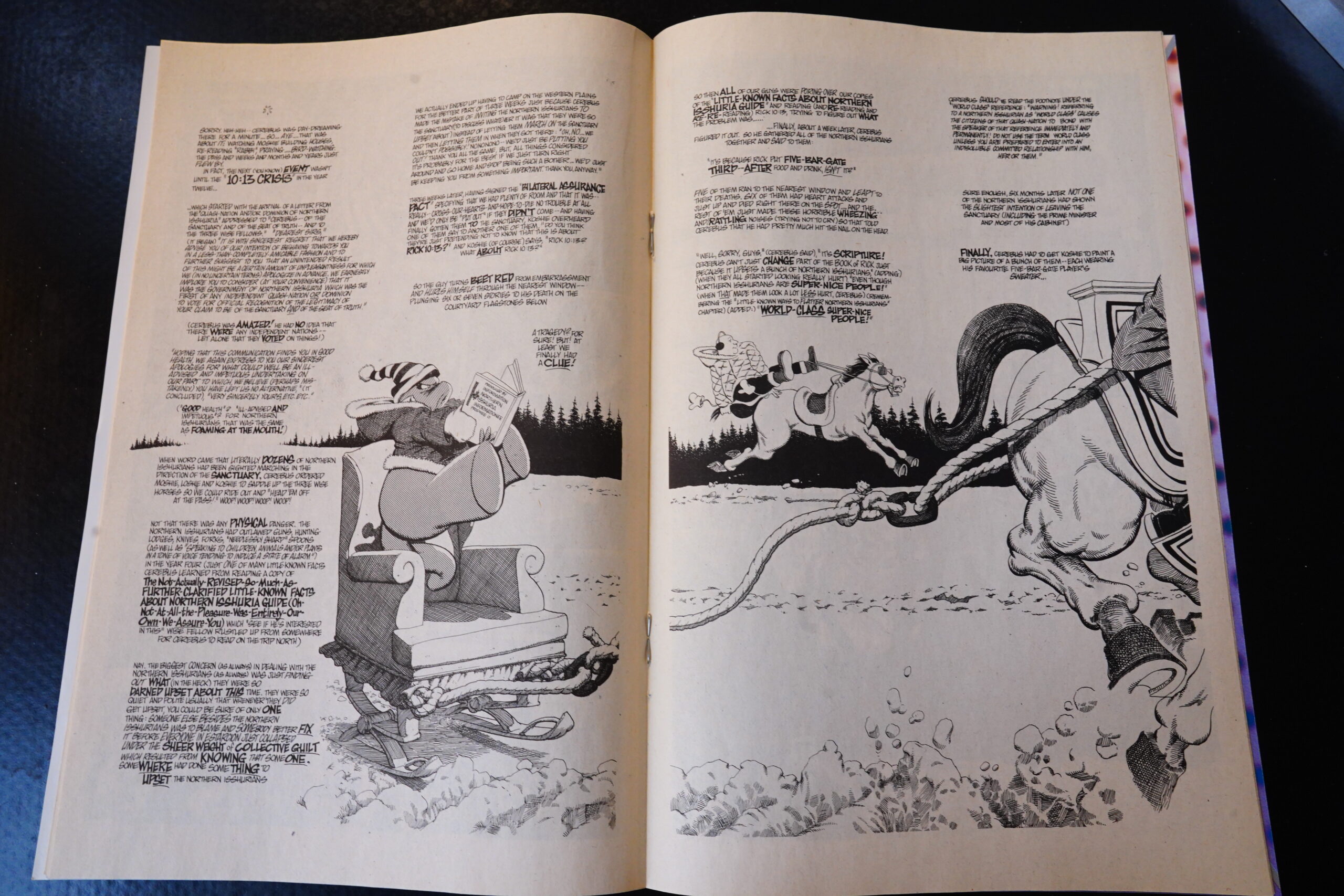
Except that some overly polite Canadians take issue with some new hockey rules instituted by Rick’s Book.
Like I said, these issues are pretty dense.
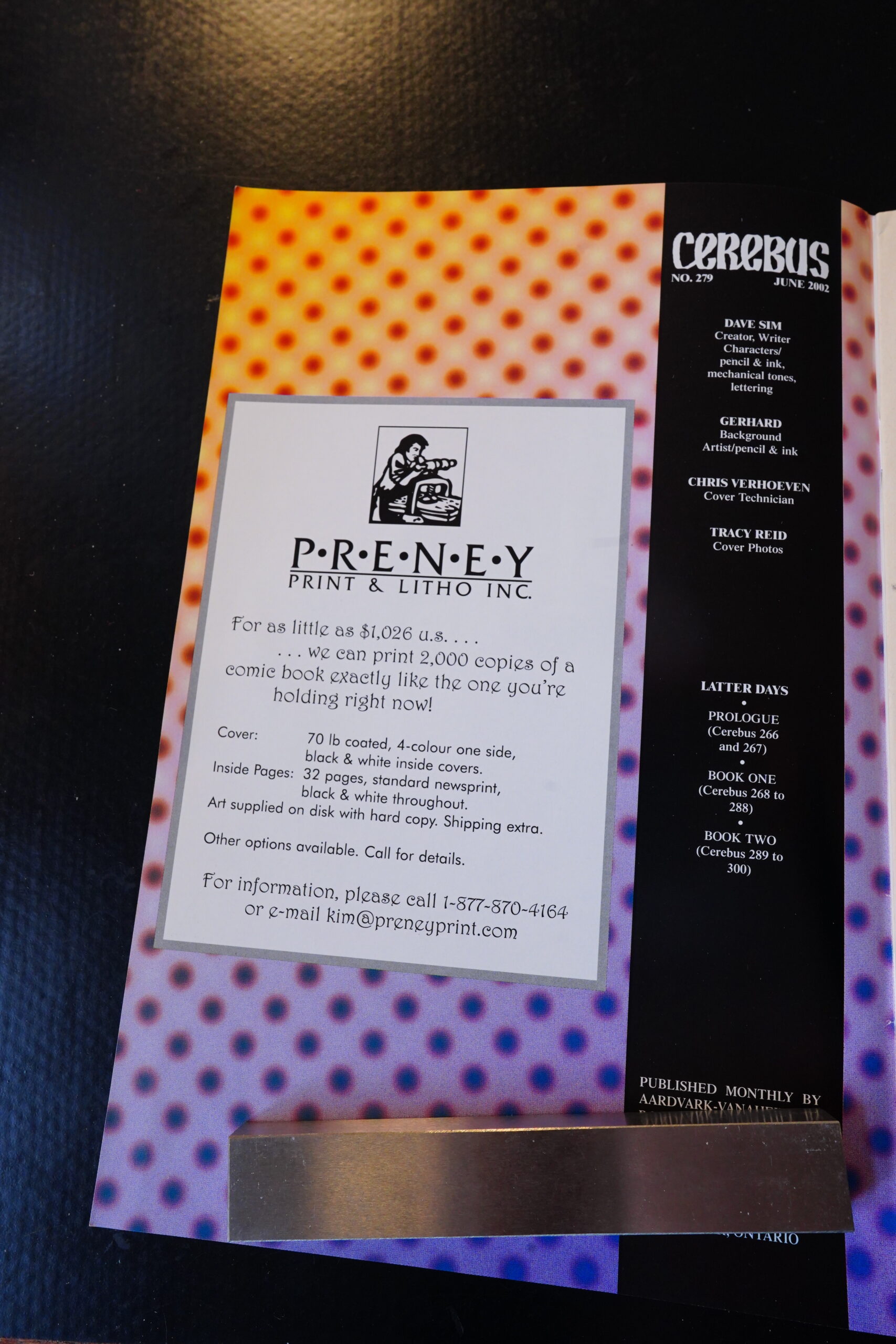
50c per copy? Pretty cheap.
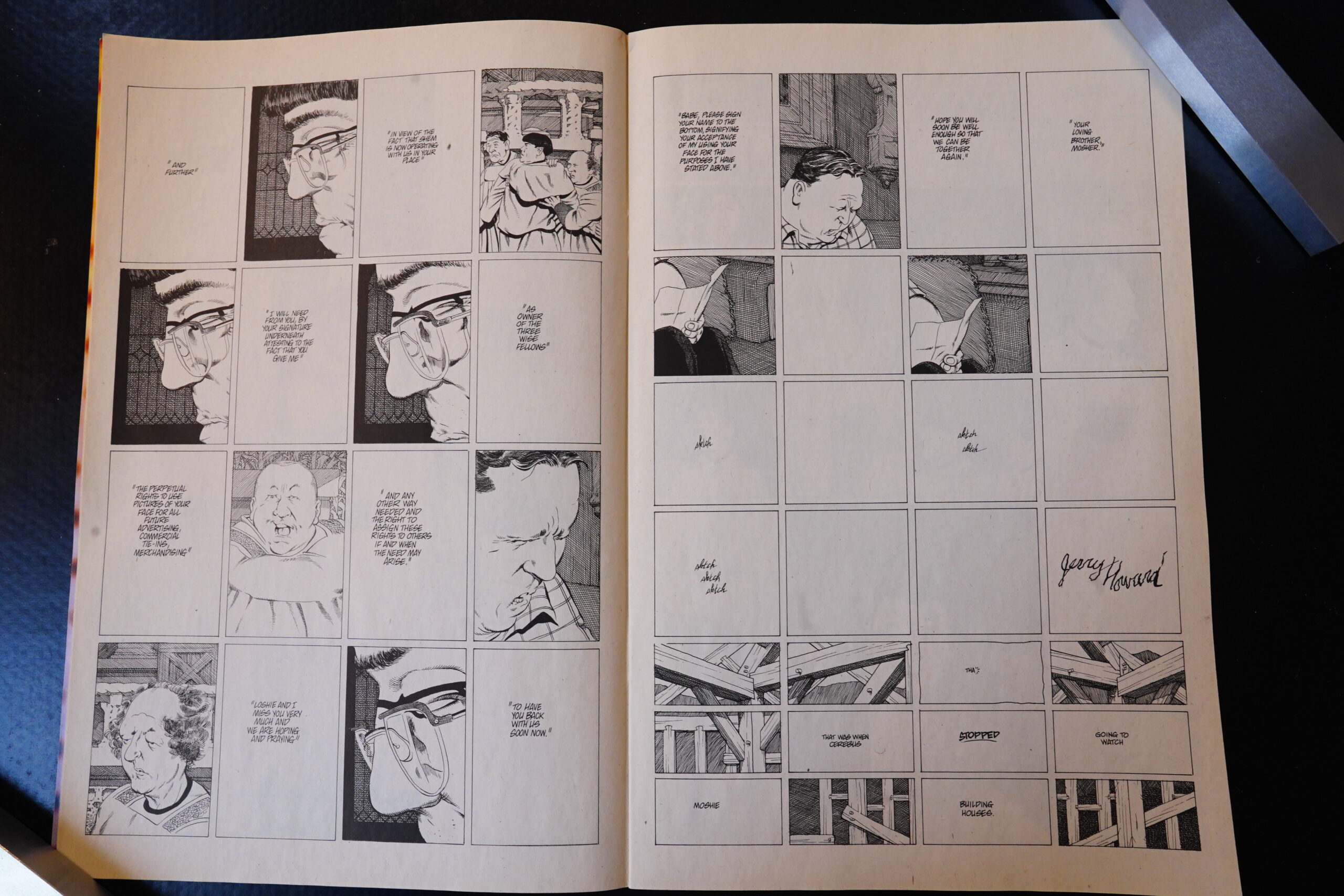
For an issue, we take a detour into Three Stooges minutiae (the way the other stooges were replaced as they got old or ill), and again it feels like a total non sequitur. But I guess it does sort of tie into Sim’s whole dislike for contracts and stuff, so perhaps it’s not totally random.
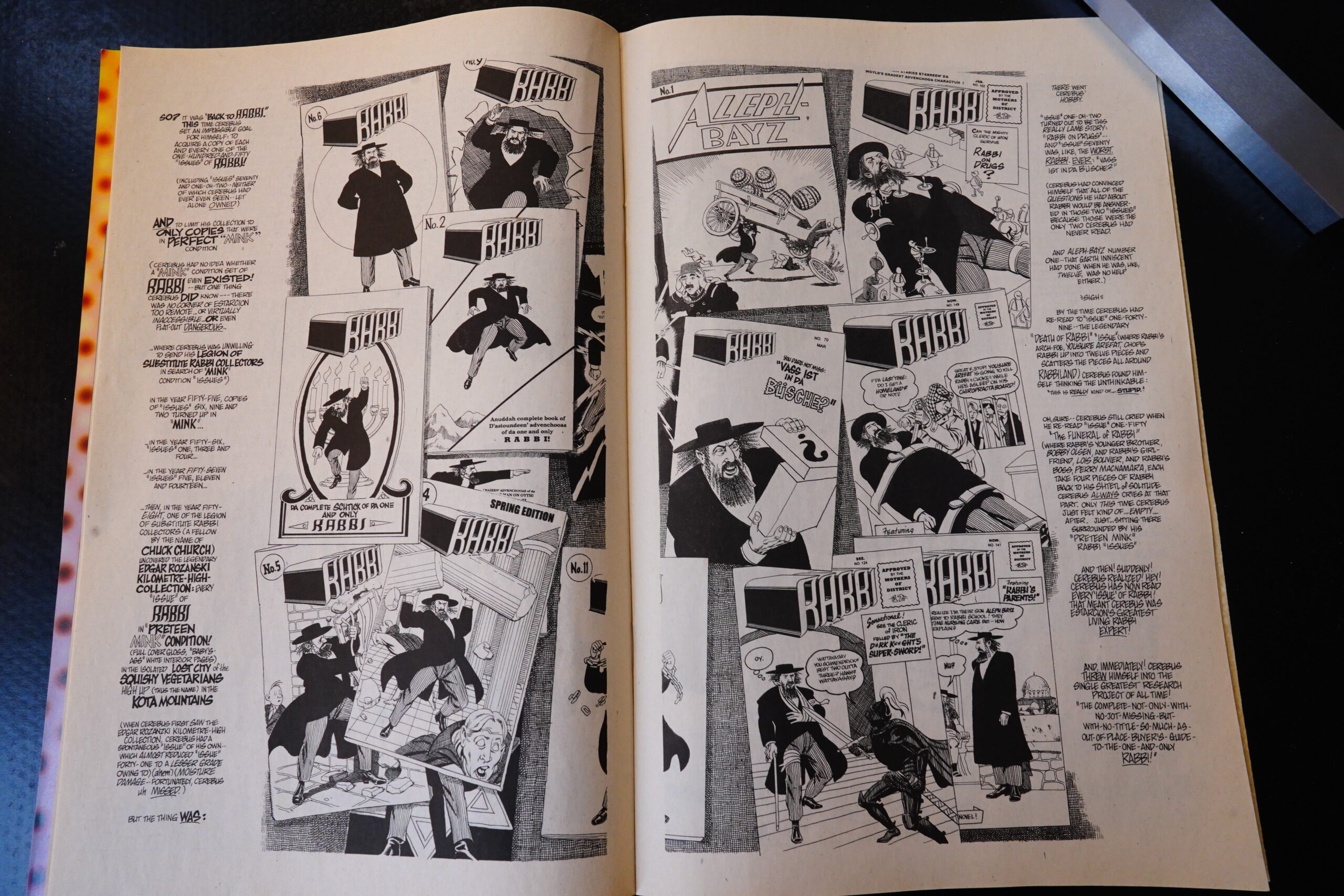
And the Preacher/Rabbi thing makes a bit more sense — Cerebus is bored and has nothing to do, so he collects all the issues and then he’s bored again (sounds very familiar!). But:
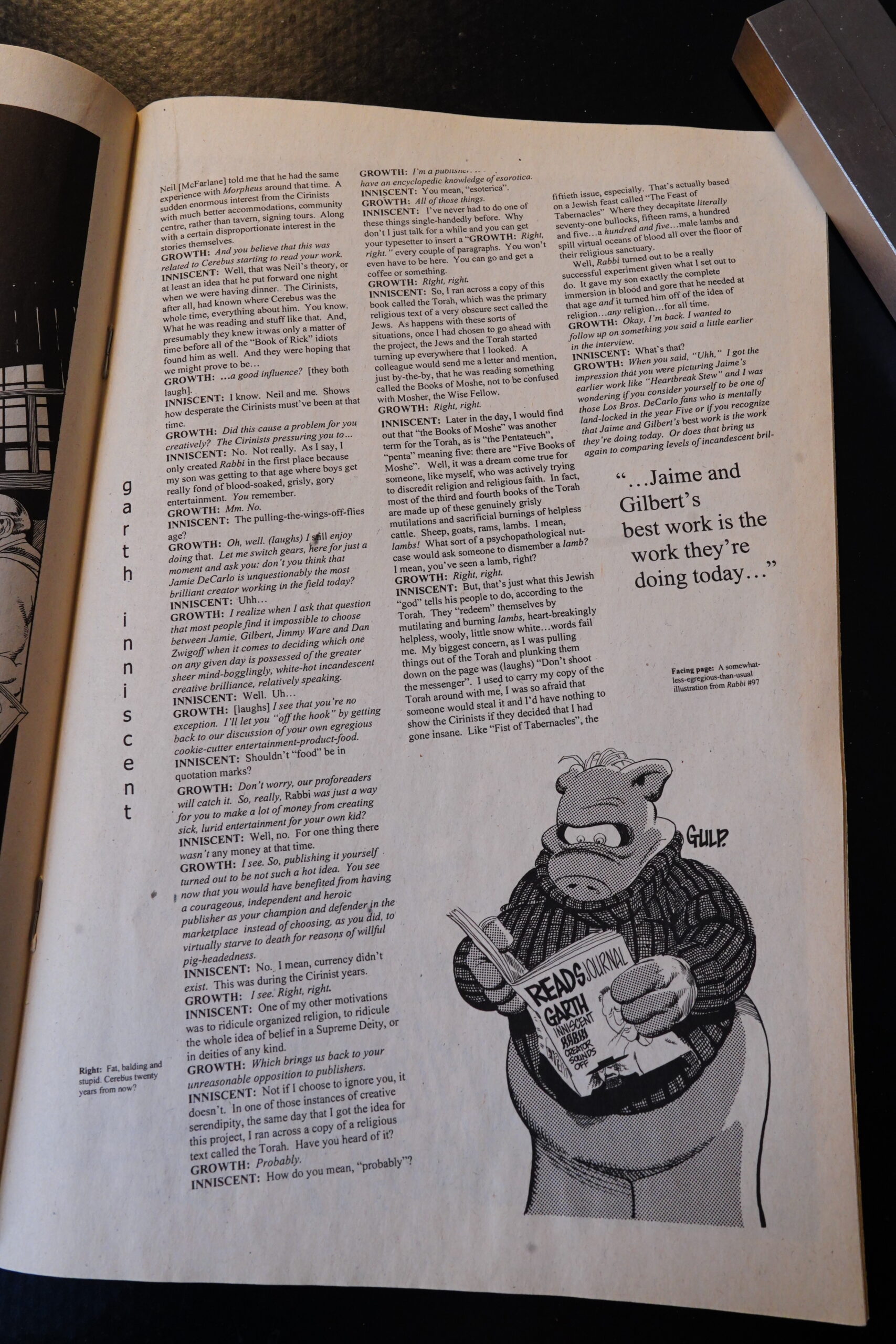
Sim’s parody of Gary Groth feels pretty lame. I mean, of course Groth is proud of publishing the Hernandez Bros — you’d have to be brain dead to not be — but this just doesn’t read much like Groth.
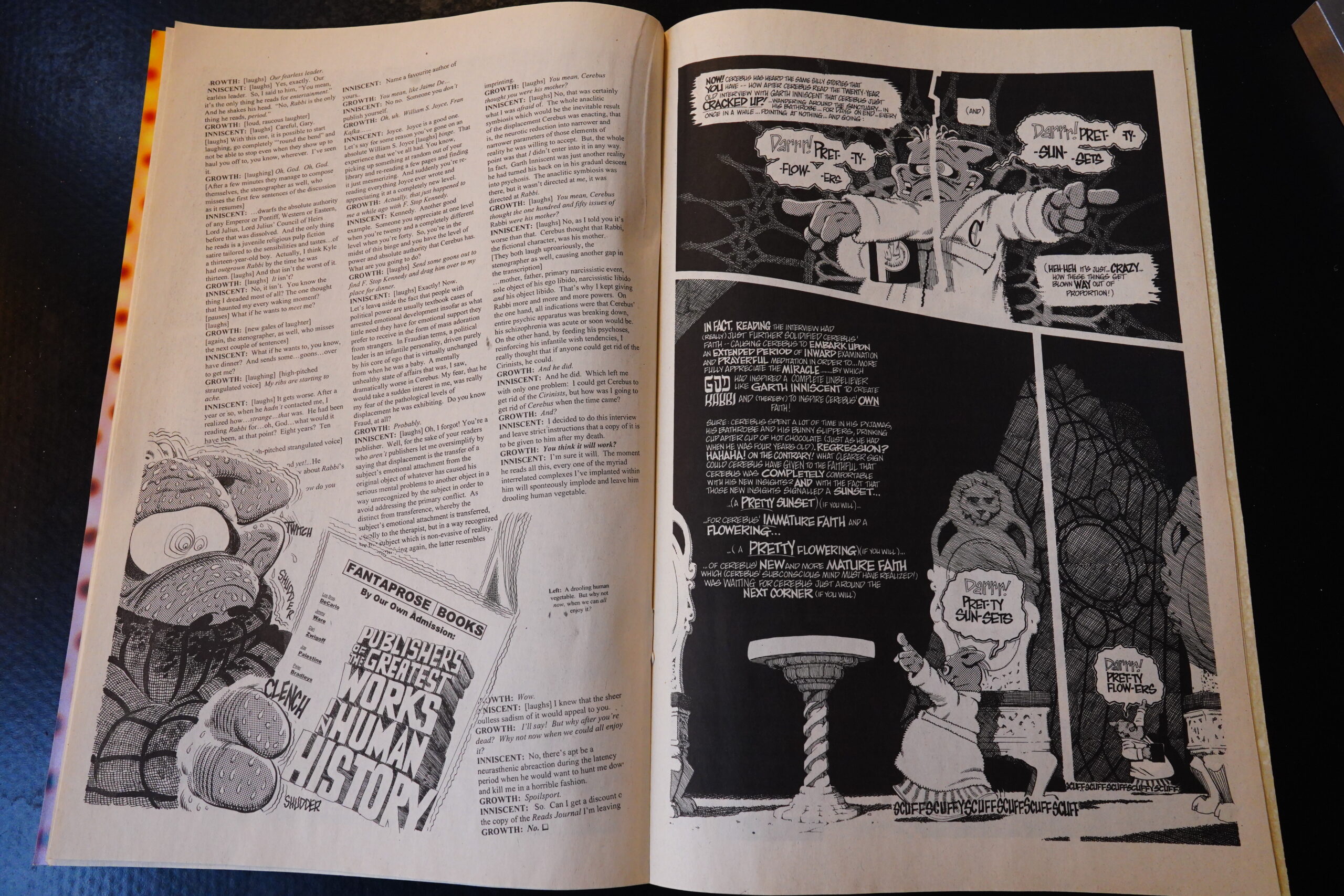
And it turns out that Garth Ennis did this interview just to make Cerebus go catatonic — but why? Why would Ennis want that? (It worked.)
But then we’re into the next section of Latter Days, and we forget all about the Ennis stuff:
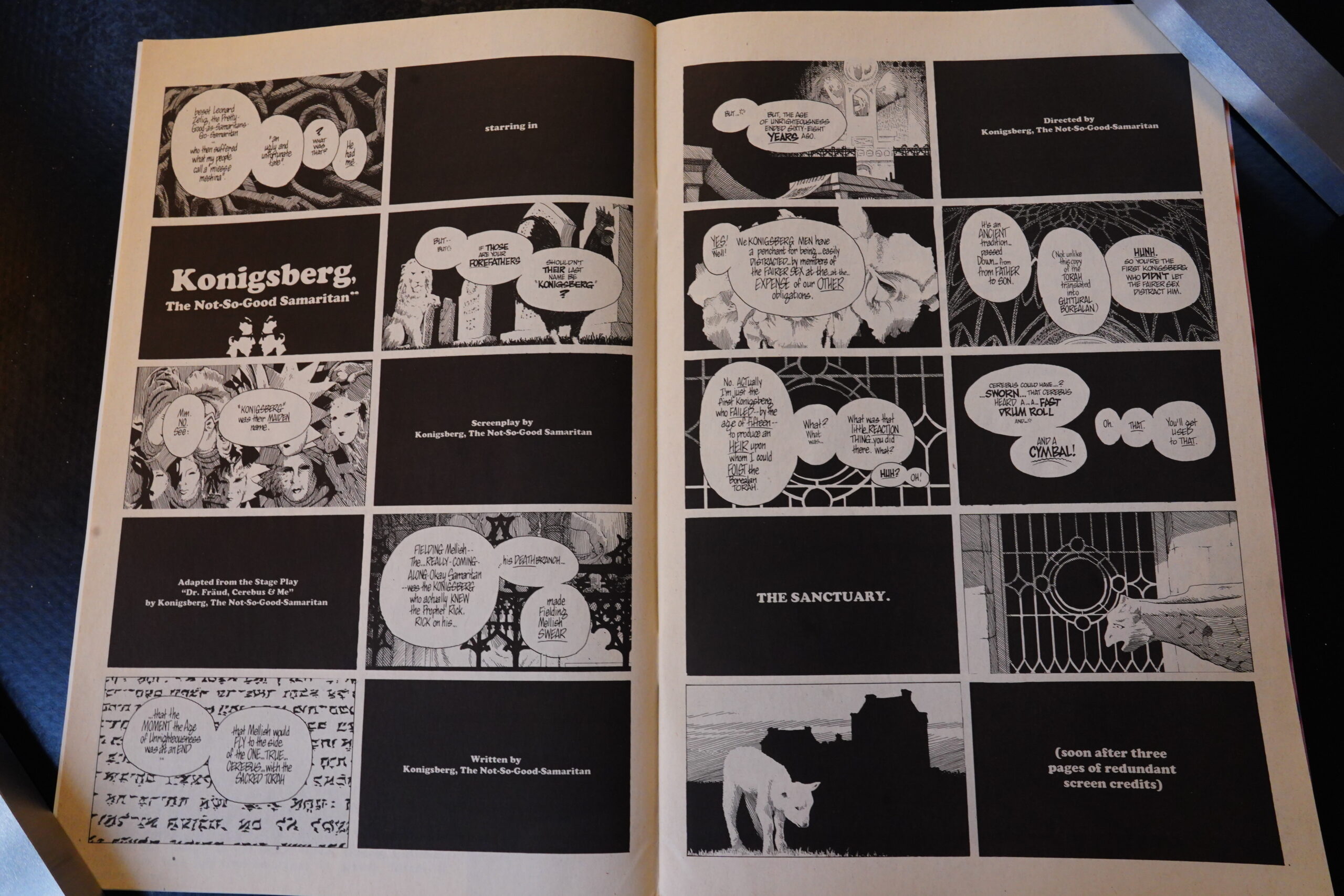
And these final nine issues start off heavily referencing Woody Allen movies. And, yes, it’s funny that Allen has a cymbal sound going off after he does a funny line, but this style only lasts a couple of issues.
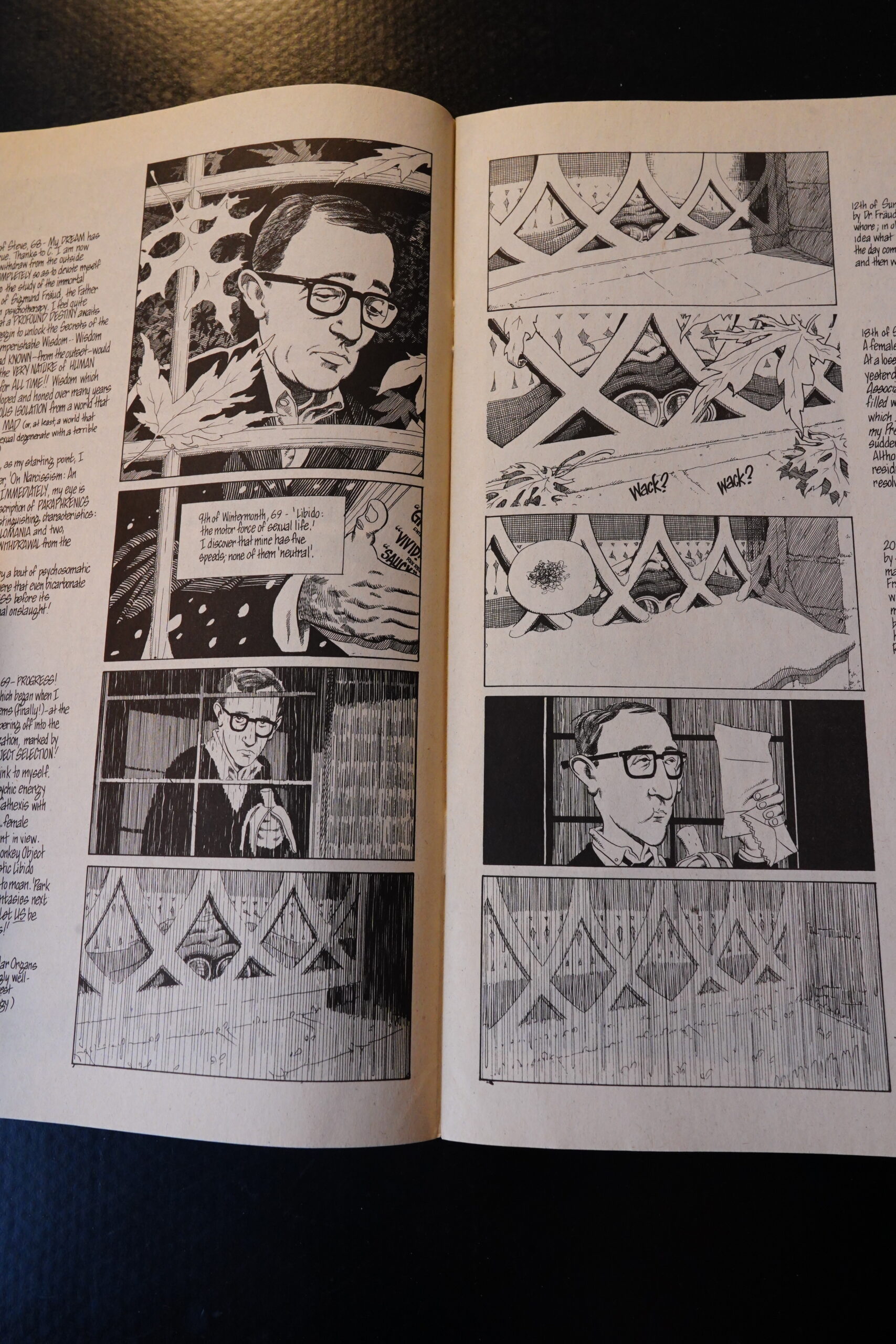
And… Sim’s a somewhat limited artist — he’s able to nail caricatures by exaggerating them into grotesques (like his great Margaret Thatcher), but by this point, he’s going for a more naturalistic look, and he’s failing pretty badly. The first Allen could be anybody. The second looks pretty good. The third doesn’t look anything like the first two. And so on.
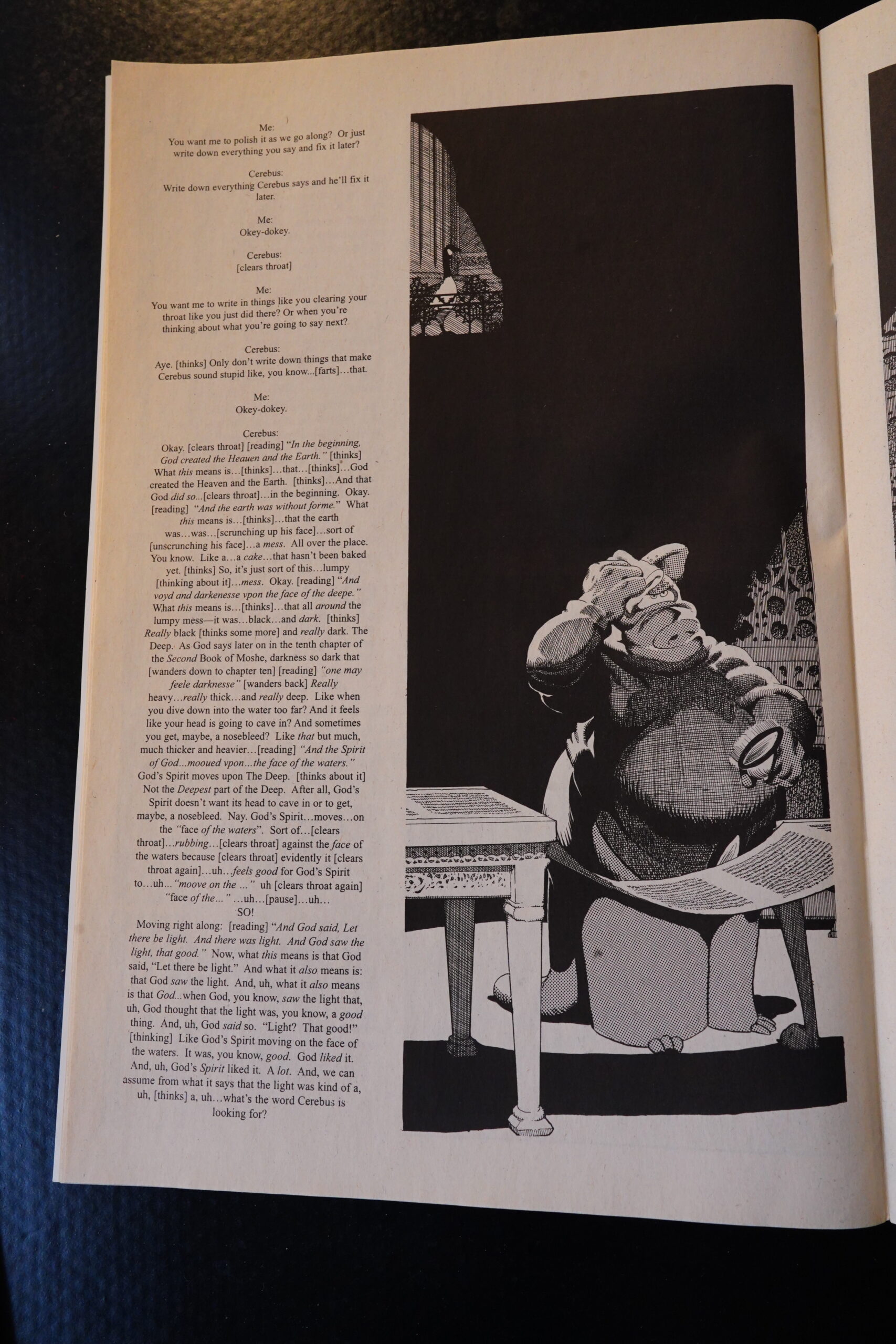
And here we start the bible exegesis, which (if I remember correctly) take up most of the remaining issues. And, I’m sorry, I’m not going to read them this time around either. Only a couple of notes: It seems like Sim is depicting Cerebus as a total moron on this page, right?
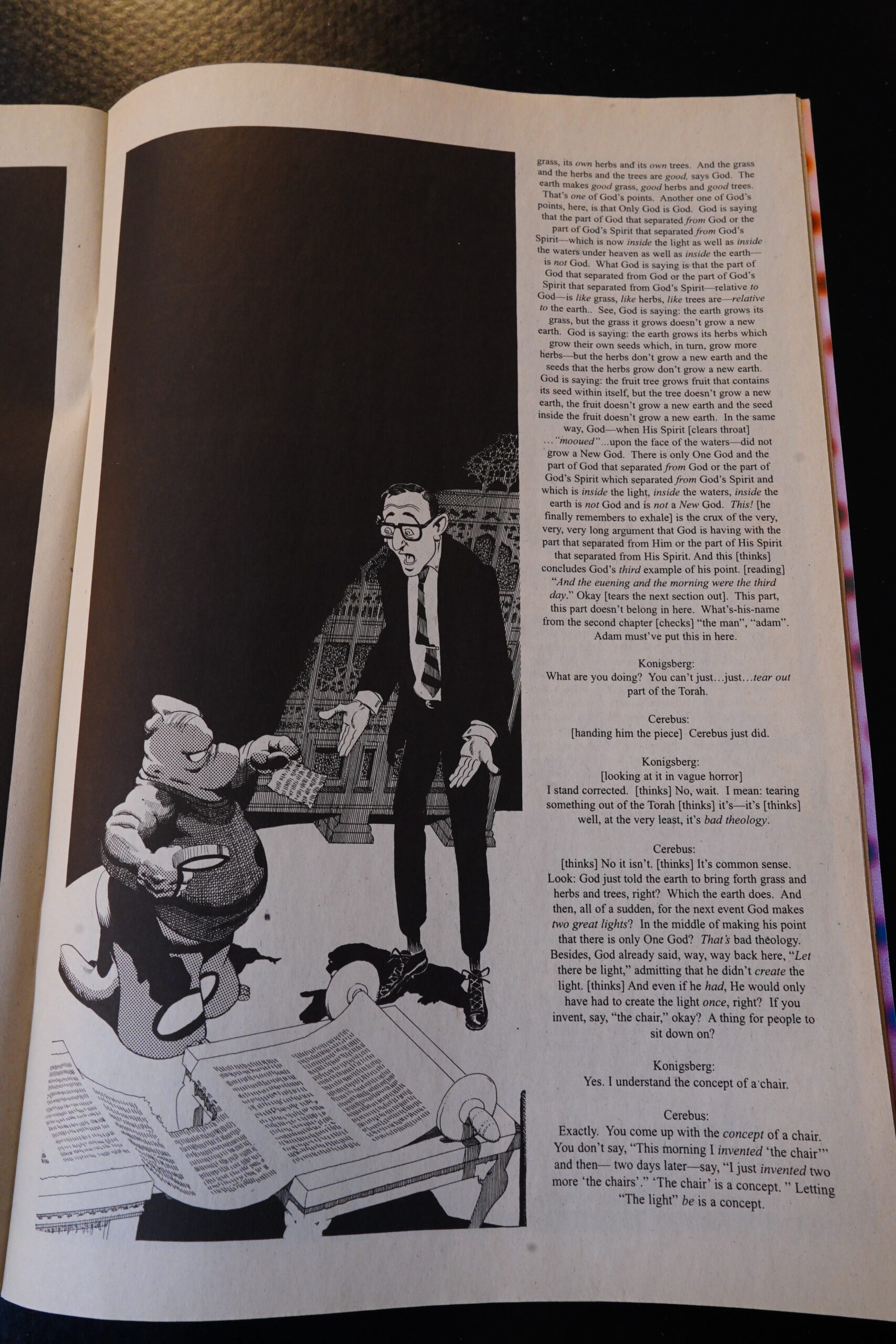
He’s even cutting things out of the Torah that he thinks are wrong. So he’s like a one man idiotic synod.
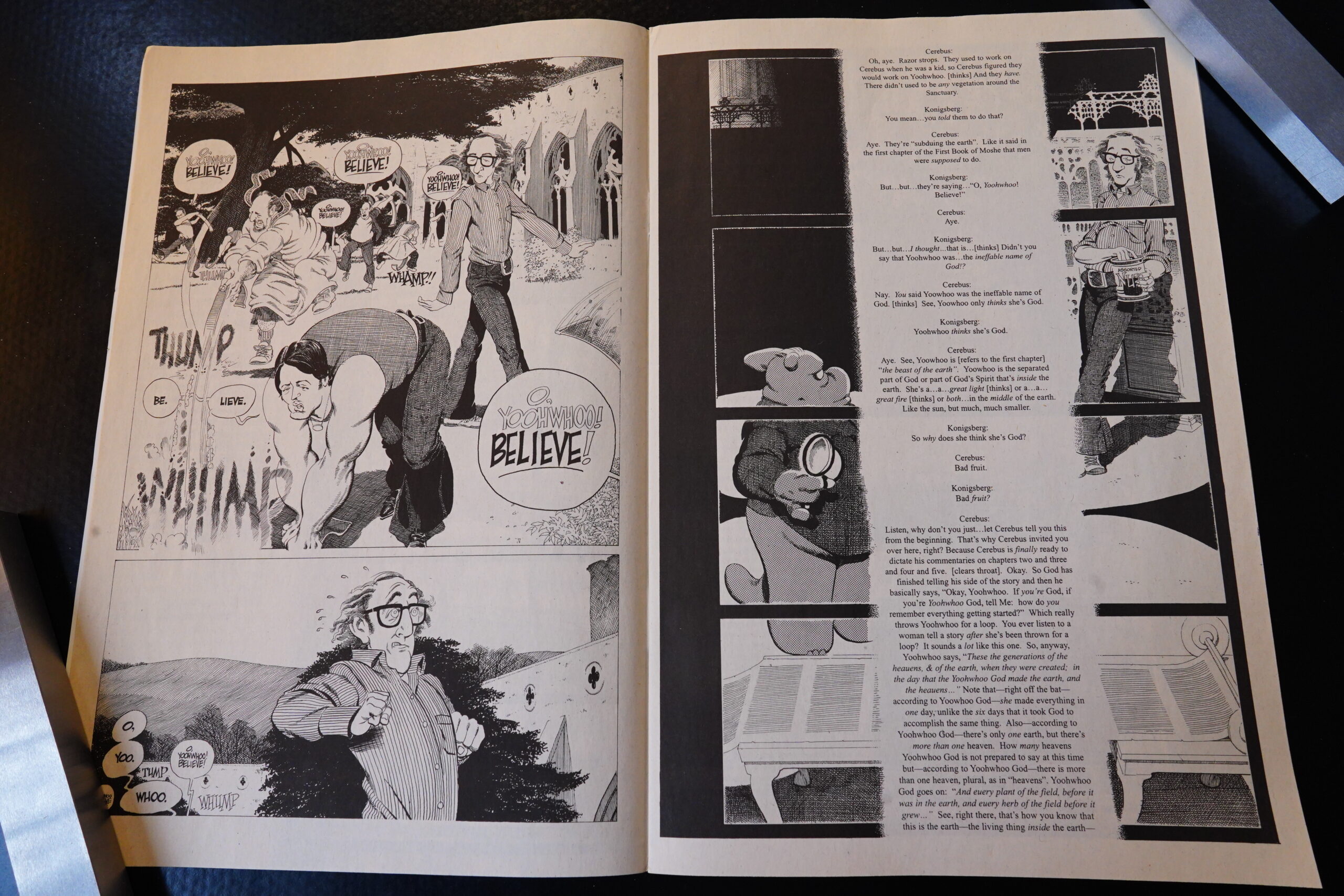
But Cerebus is basically saying things that Sim has said himself outside of Cerebus (about there being two gods (the LORD and Yoowhoo) depicted in the bible, and one of the gods being a wilful liar), which makes it all so odd. Cerebus is a moron? But he’s basically right? Perhaps this is about Cerebus being inspired by the LORD or something…
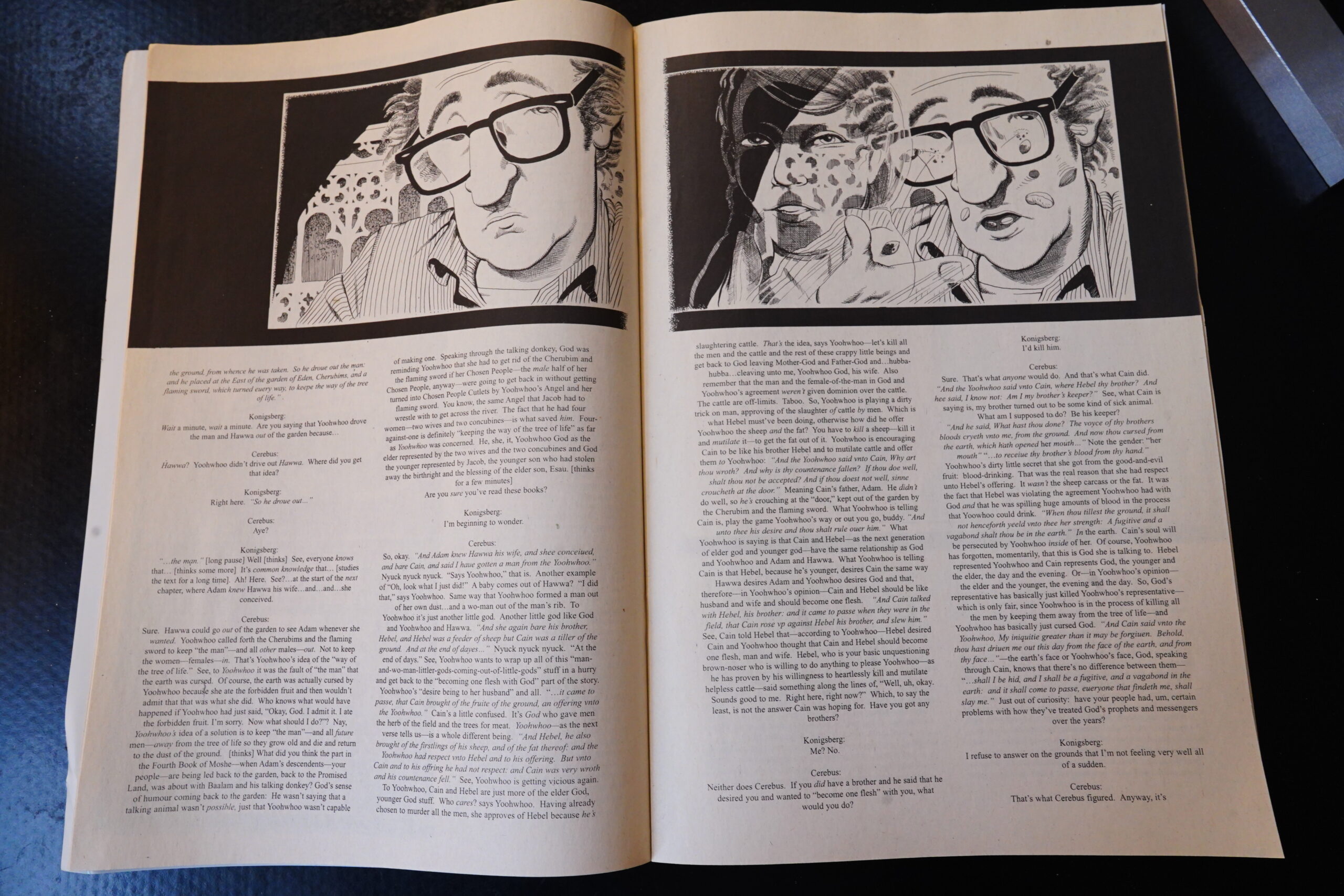
But like I said, I just don’t have the stamina to read all this shit. Sorry!
OK, that’s enough for today. Tomorrow is either going to be gruelling, or I’ll just be able to skim all the remaining issues and it’ll be a breeze. Join me tomorrow, or, for you, after this colon:
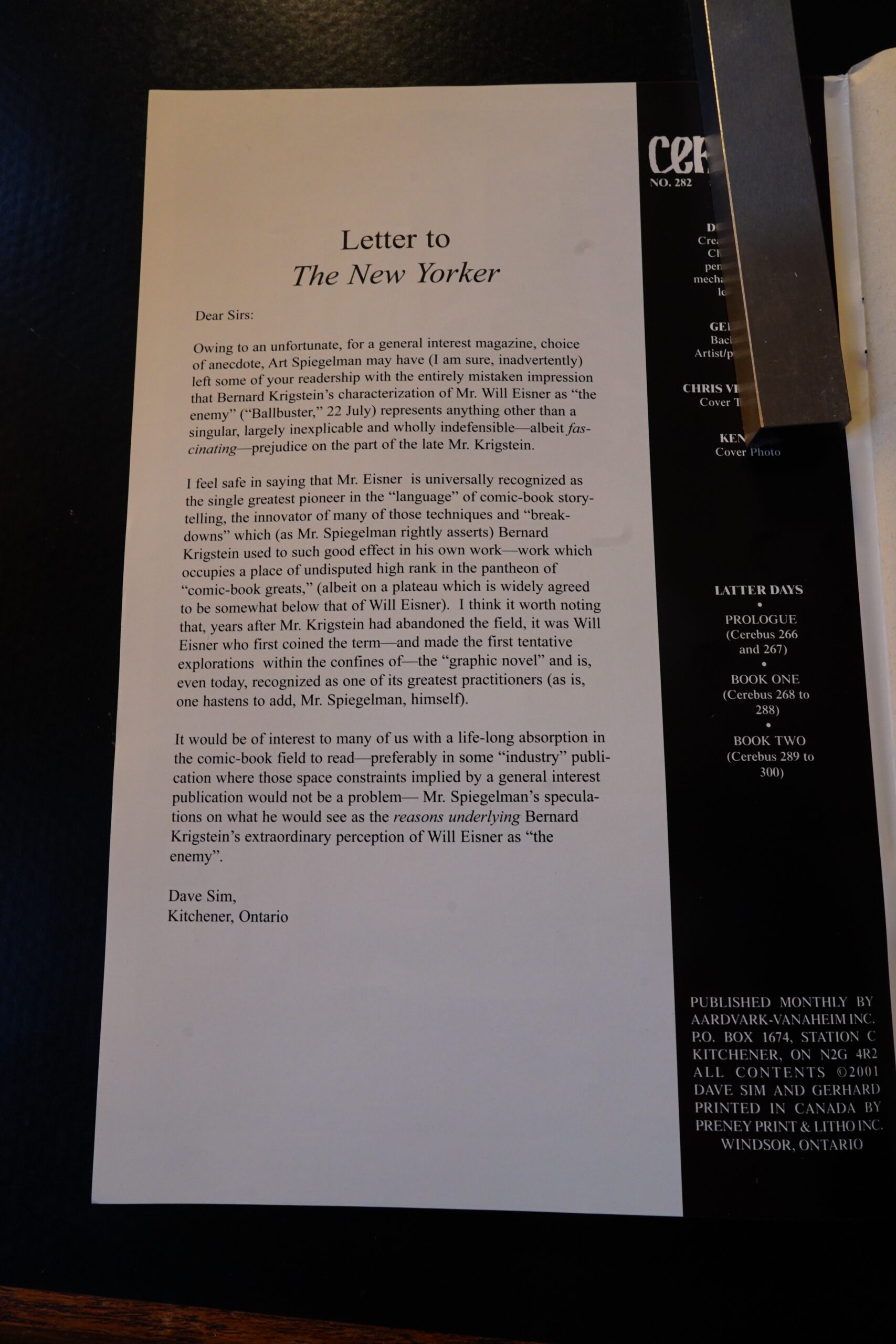
OK, I took yesterday off, so this blog post is even later than originally planned. (Not that it matters, but I’m going on a holiday and I had hoped to be done with this blog series completely before that time, but that’s not gonna happen. So there’ll be at least a two week pause and then I’ll pick up the Renegades & Aardvarks series again…)
ANYWAY. Sim writes in to the New Yorker to defend Will Eisner from a Bernie Kriegstein dis, apparently.
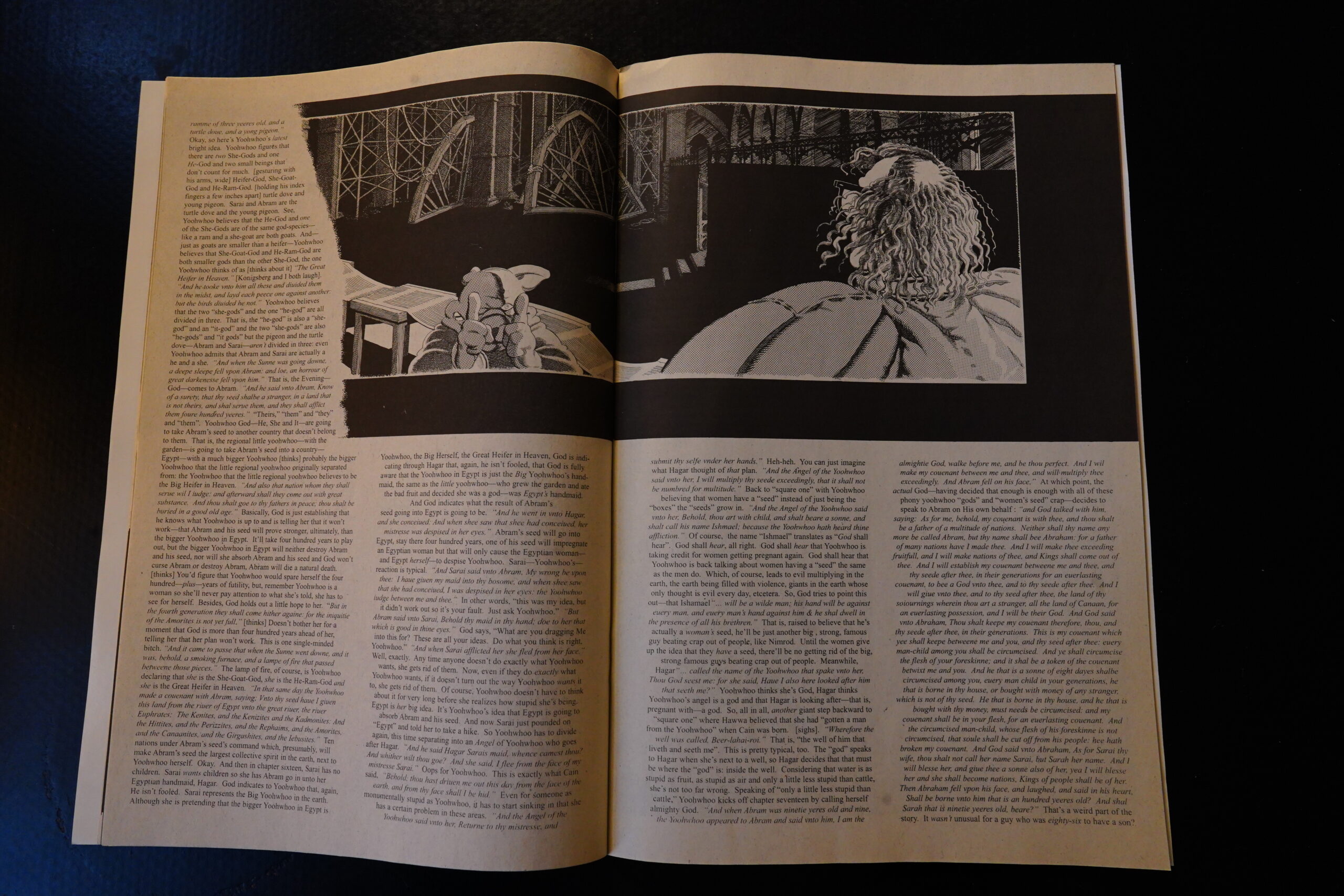
The pages in Cerebus are mostly like this at this point, and I’m not reading them, so these last seven issues are a breeze to get through. I had forgotten how devoid of interest these issues are. (It’s all Cerebus doing his interpretations of the Old Testament.)
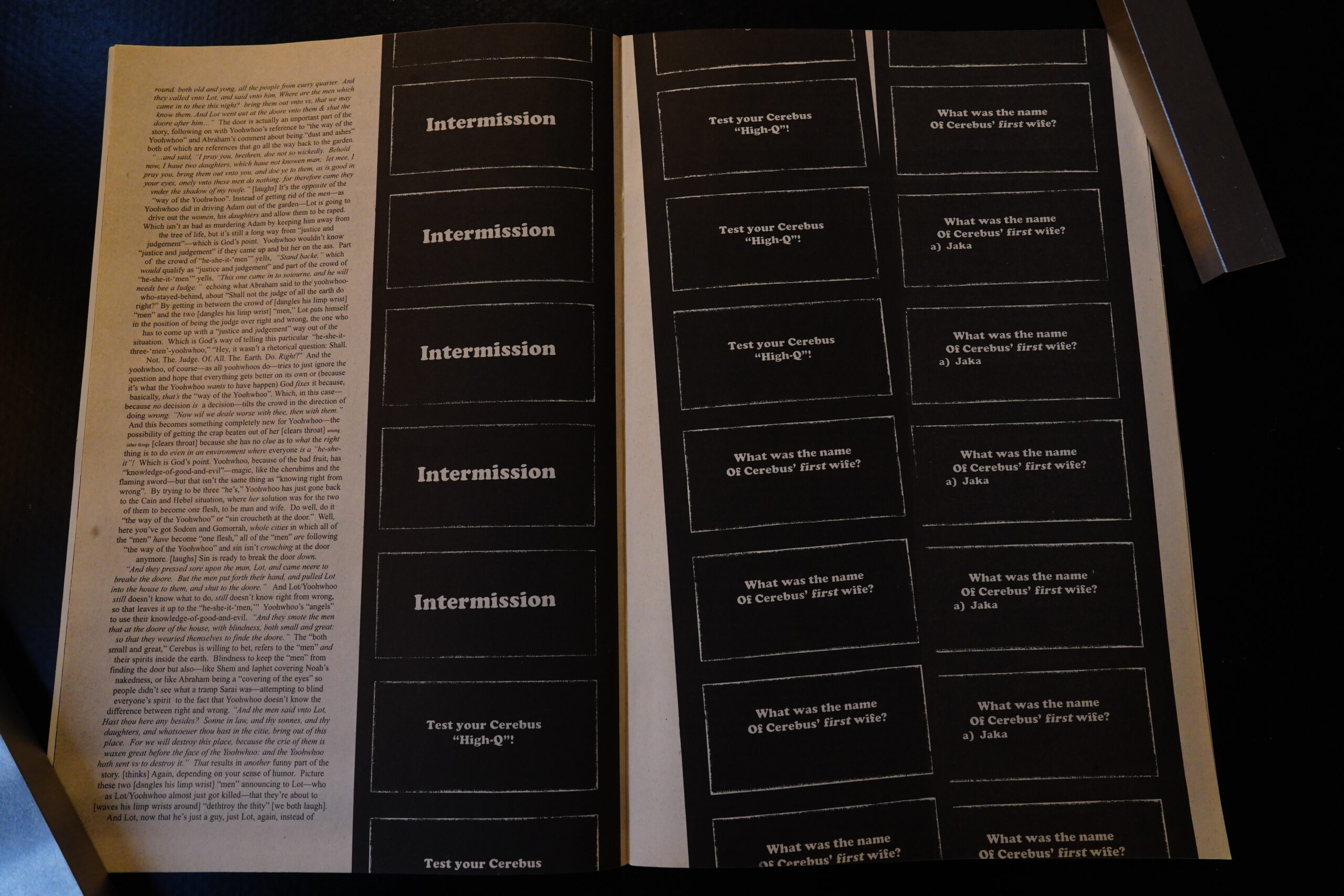
Cerebus is talking it over with Konigsberg, the Woody Allen character, so we also get a lot of film references…
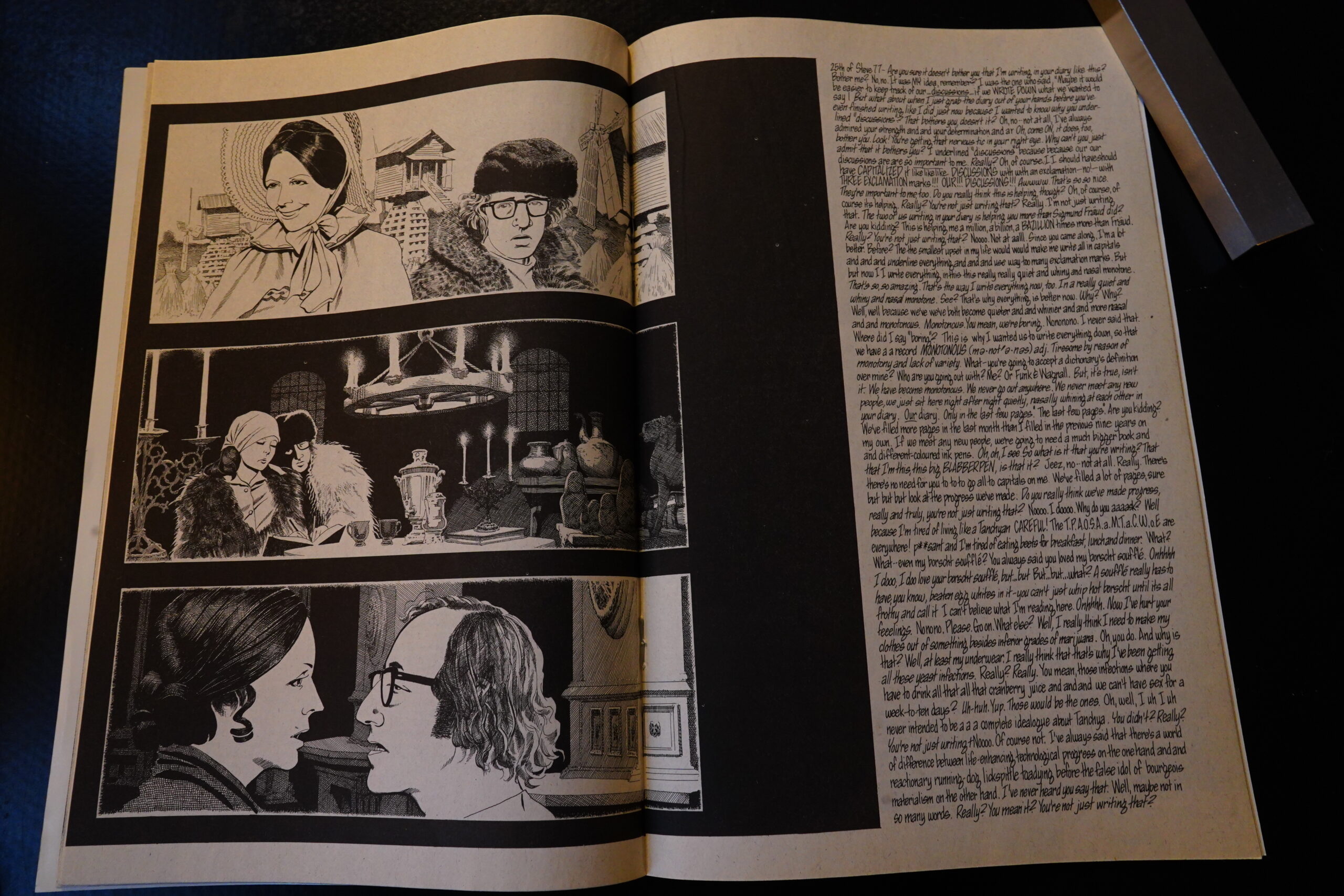
… that mostly look like Sim is tracing shots from different films. Well, not tracing, actually — he’s putting Allen into a bunch of different artier movies. And then we get another text which is probably meant as a comedic counterpoint to the bible stuff? Unfortunately, this text isn’t very entertaining, either. I mean, there are occasional jokes that work, but overall it’s not worth your time.
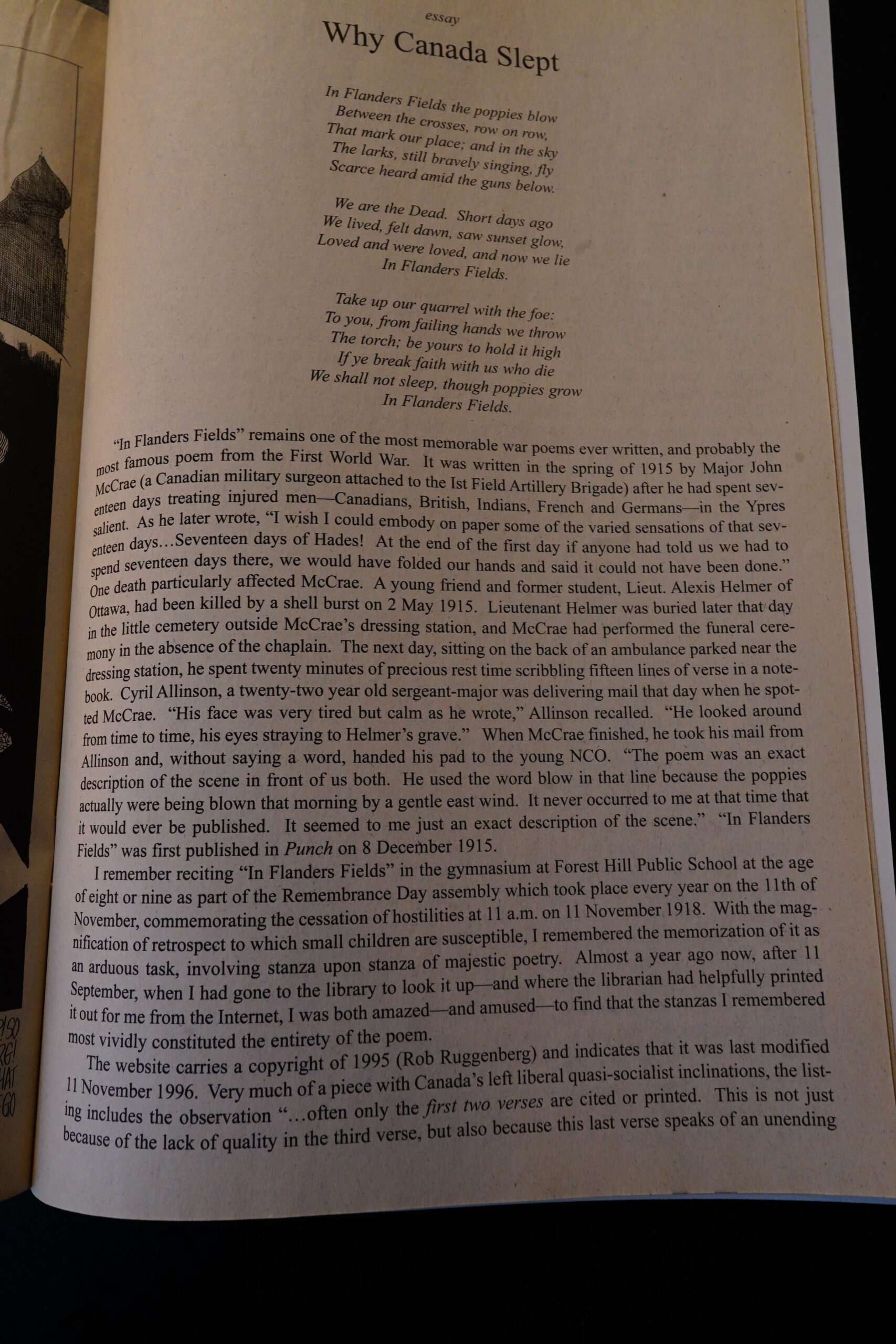
Having finished his “Islam, My Islam” essay, Sim starts another multi parter: “Why Canada Slept”. It’s about how shameful it is that Canada didn’t go all gung ho in on the US’s side after 9/11. They should bomb Afghanistan more or something?
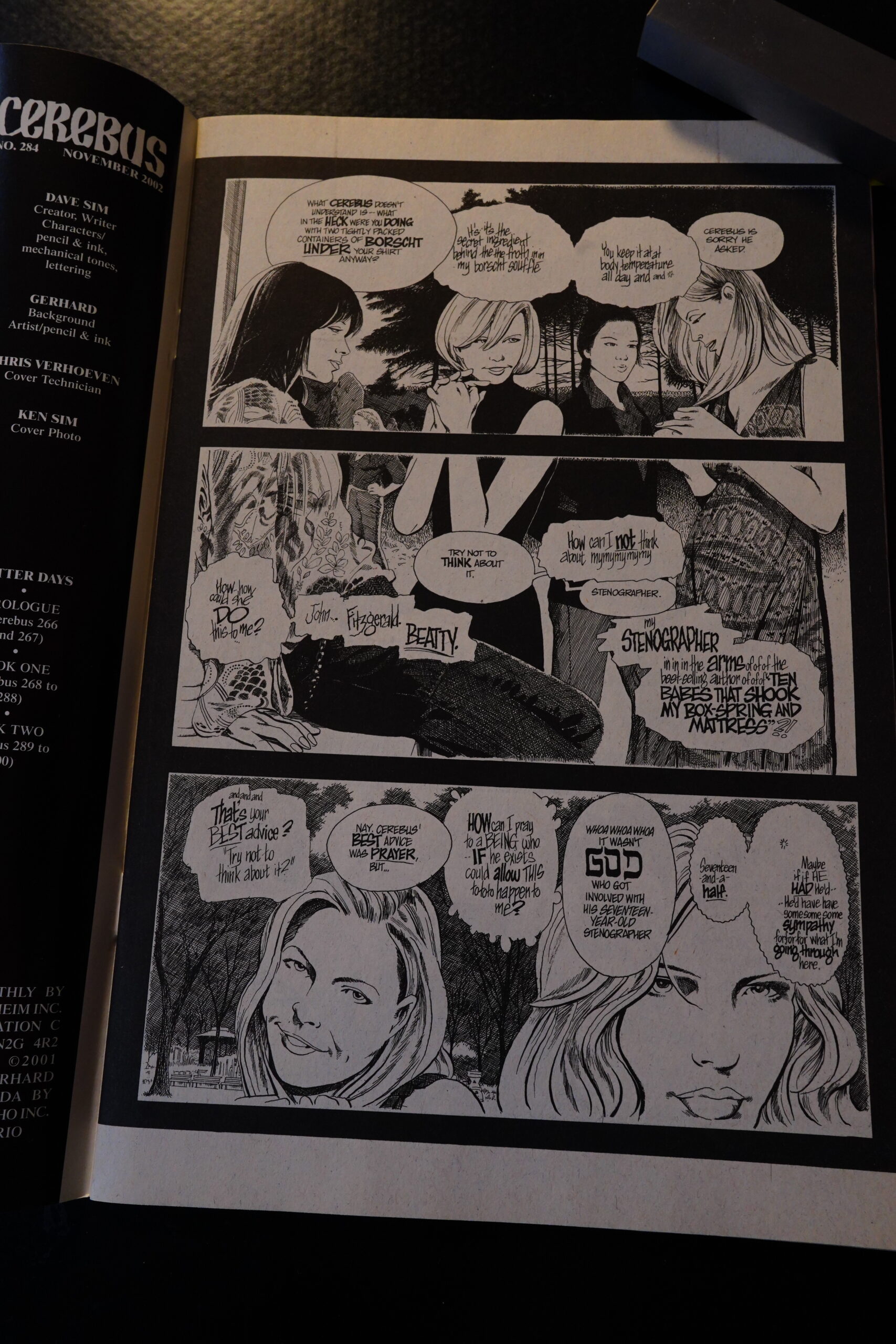
Sim’s interest in doing more photo-realistic drawing comes more to the fore in the few comics sequences in these issues, something he’d develop more in Glamourpuss. I.e., he’s drawing women from various fashion magazines, I guess?
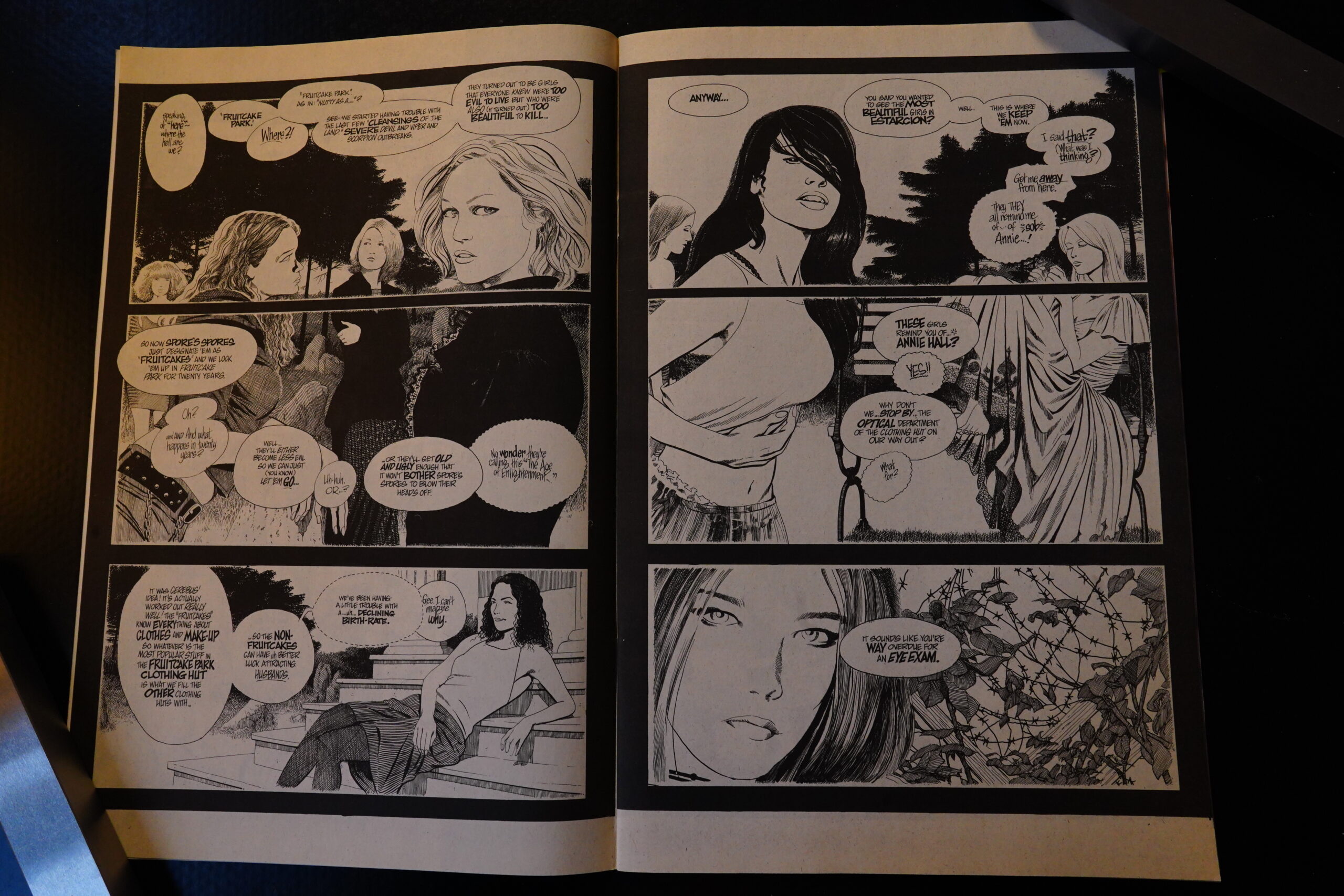
It turns out that there was a problem with Cerebus’ edict that all evil women were to be killed by vote — some evil women were just to pretty to be killed, and they’re all sequestered in special gardens (seen above).
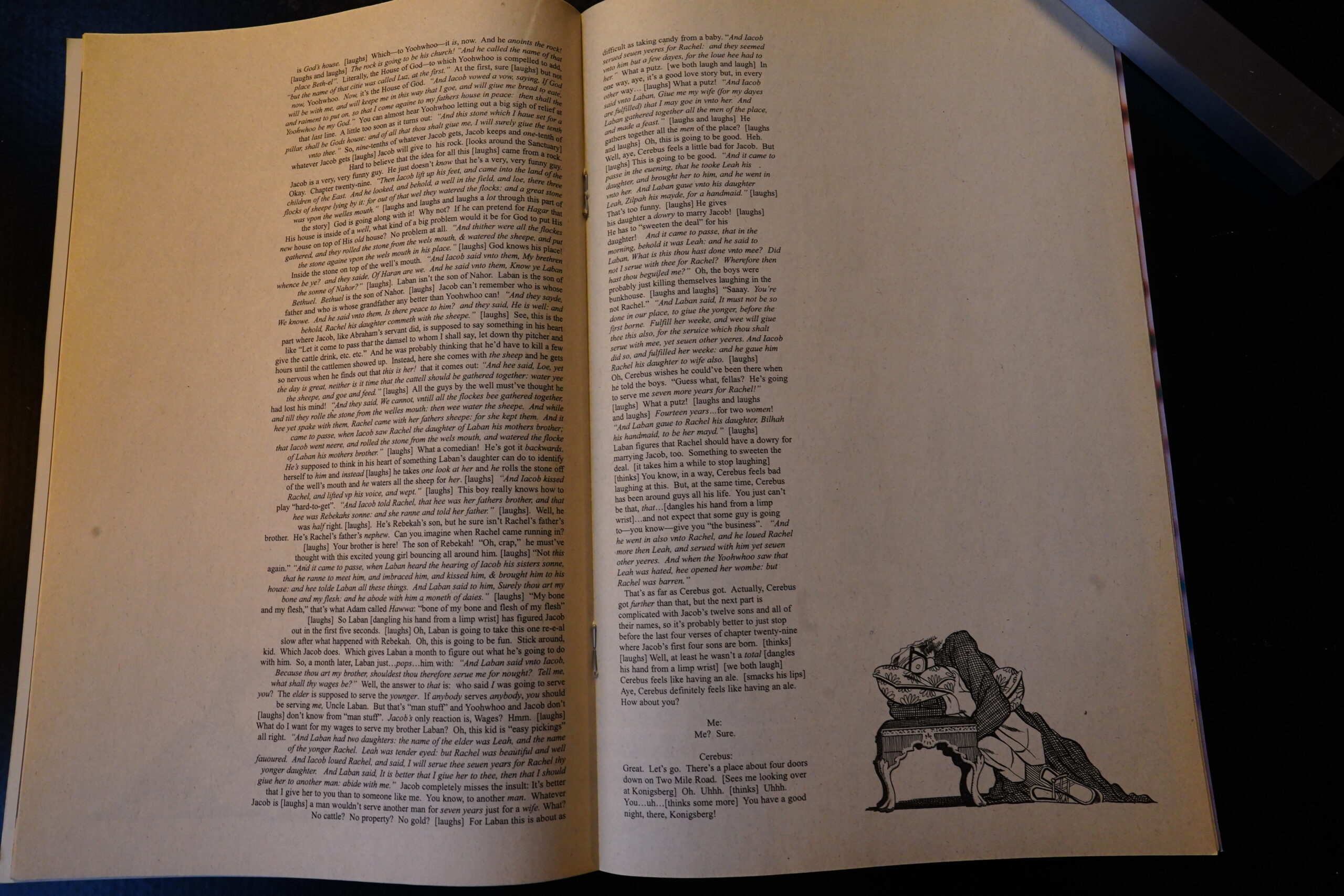
The rest of the issue is like this.
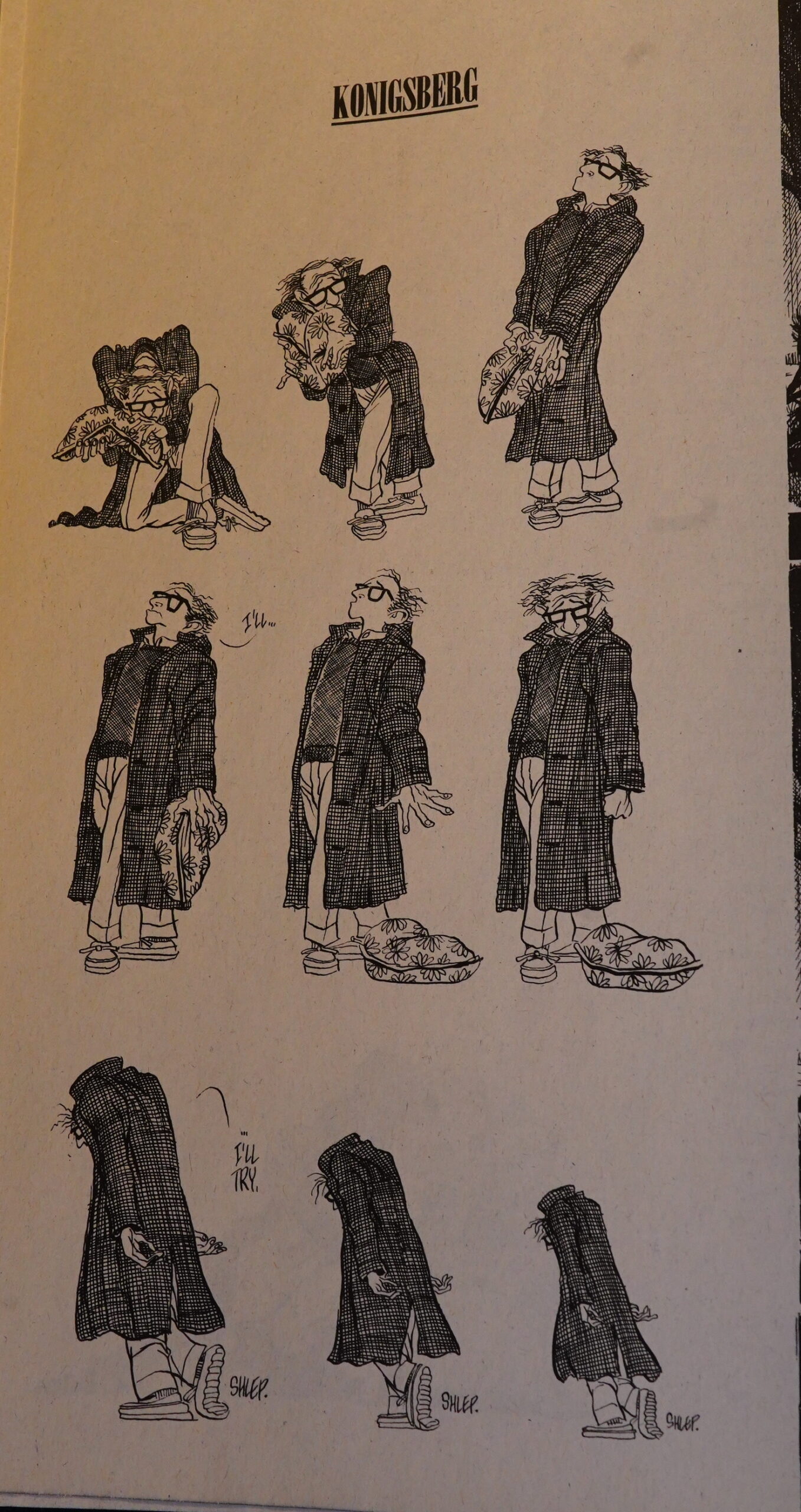
That’s a pretty good Jules Feiffer, eh?
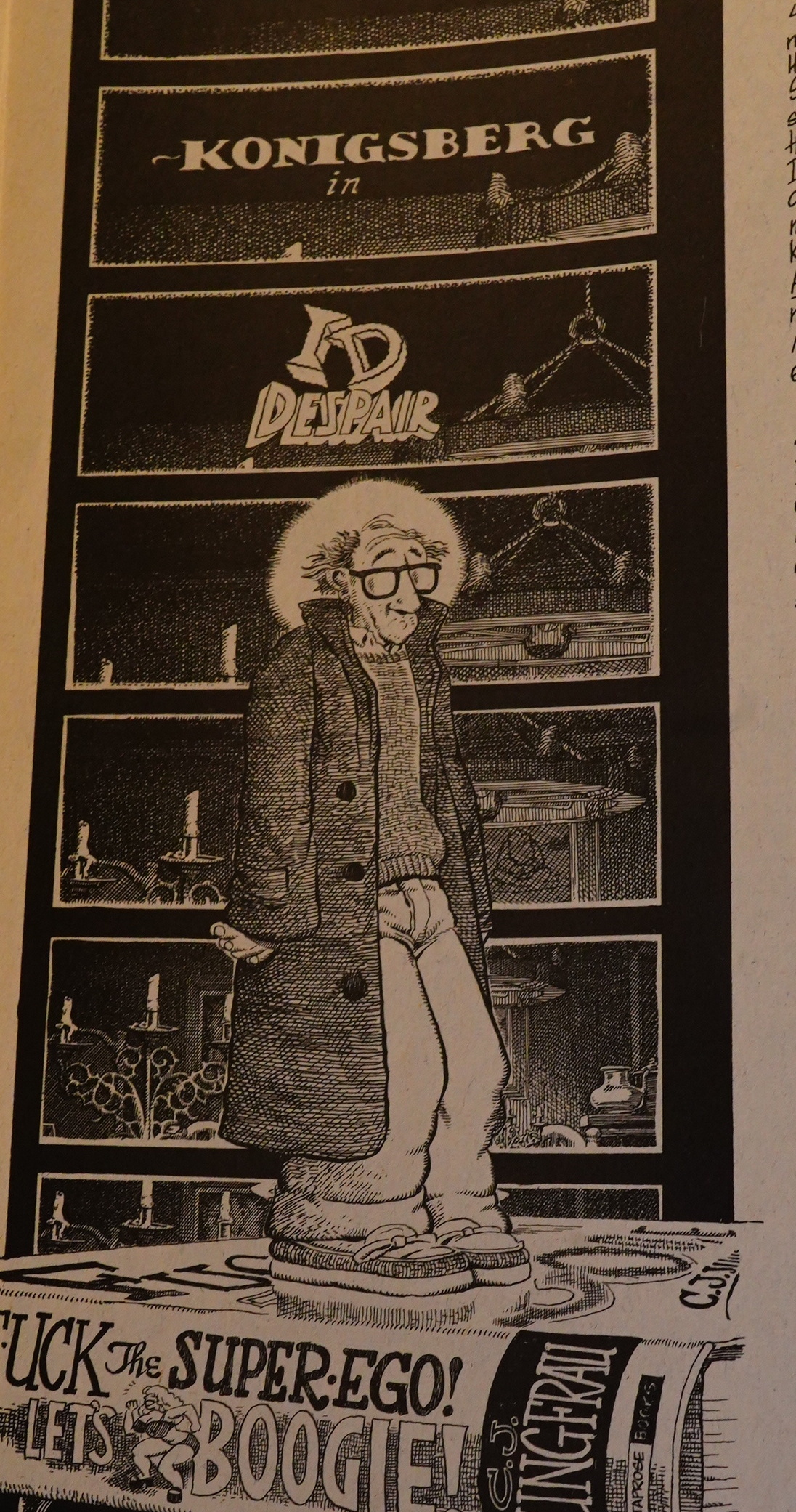
And while Sim doesn’t quite get Crumb right here and lands somewhere veering towards Herriman, it’s a nice drawing.
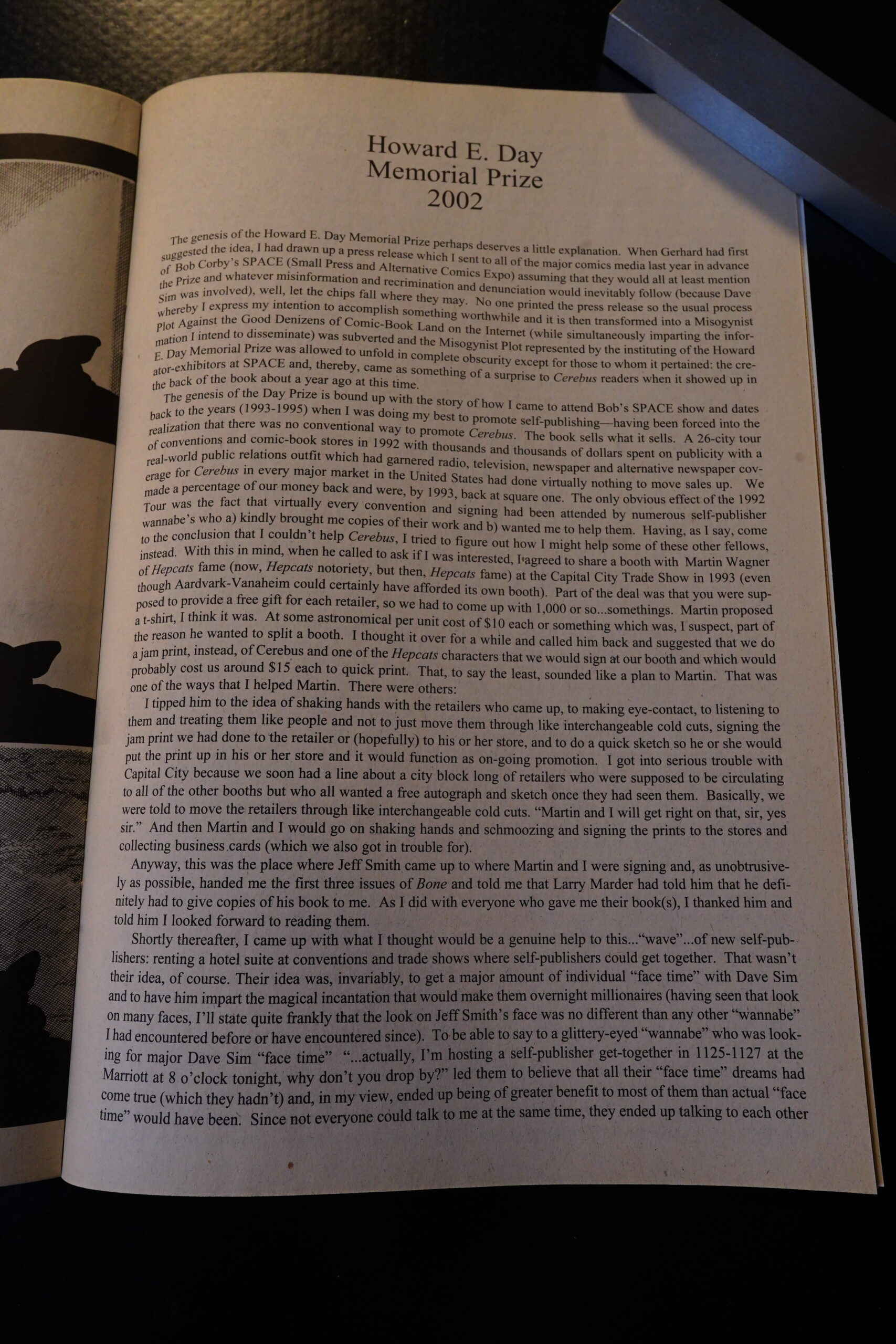
Sim takes a break from the Canada thing and presents the second Gene Day Memorial Prize… and spends virtually all of the introduction to talk about his own history and self publishing and stuff, and not much about the award winner. Makes sense.
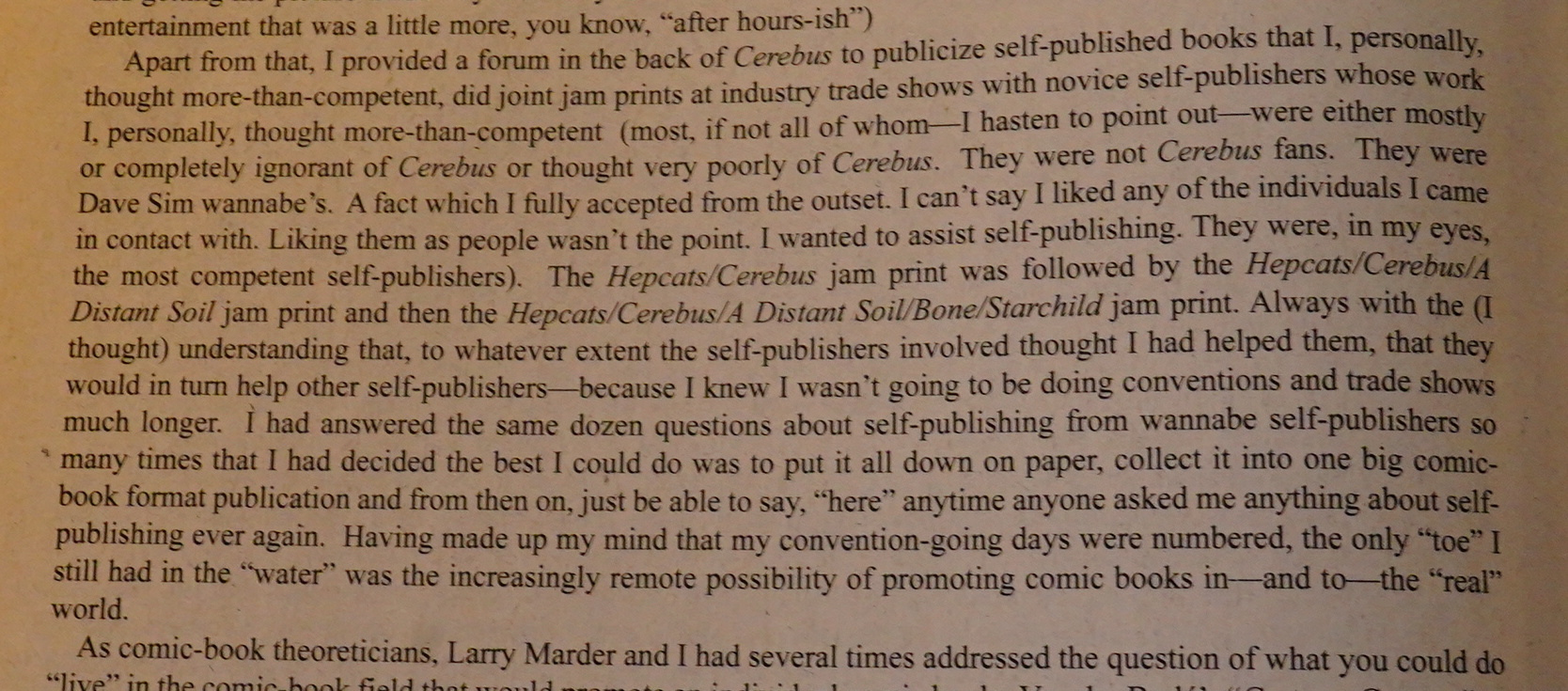
He talks about the self publishing get togethers he used to do at cons. “I can’t say I liked any of the individuas I came in contact with. Liking them as people wasn’t the point. I wanted to assist self-publishing.” That’s nice, I guess.
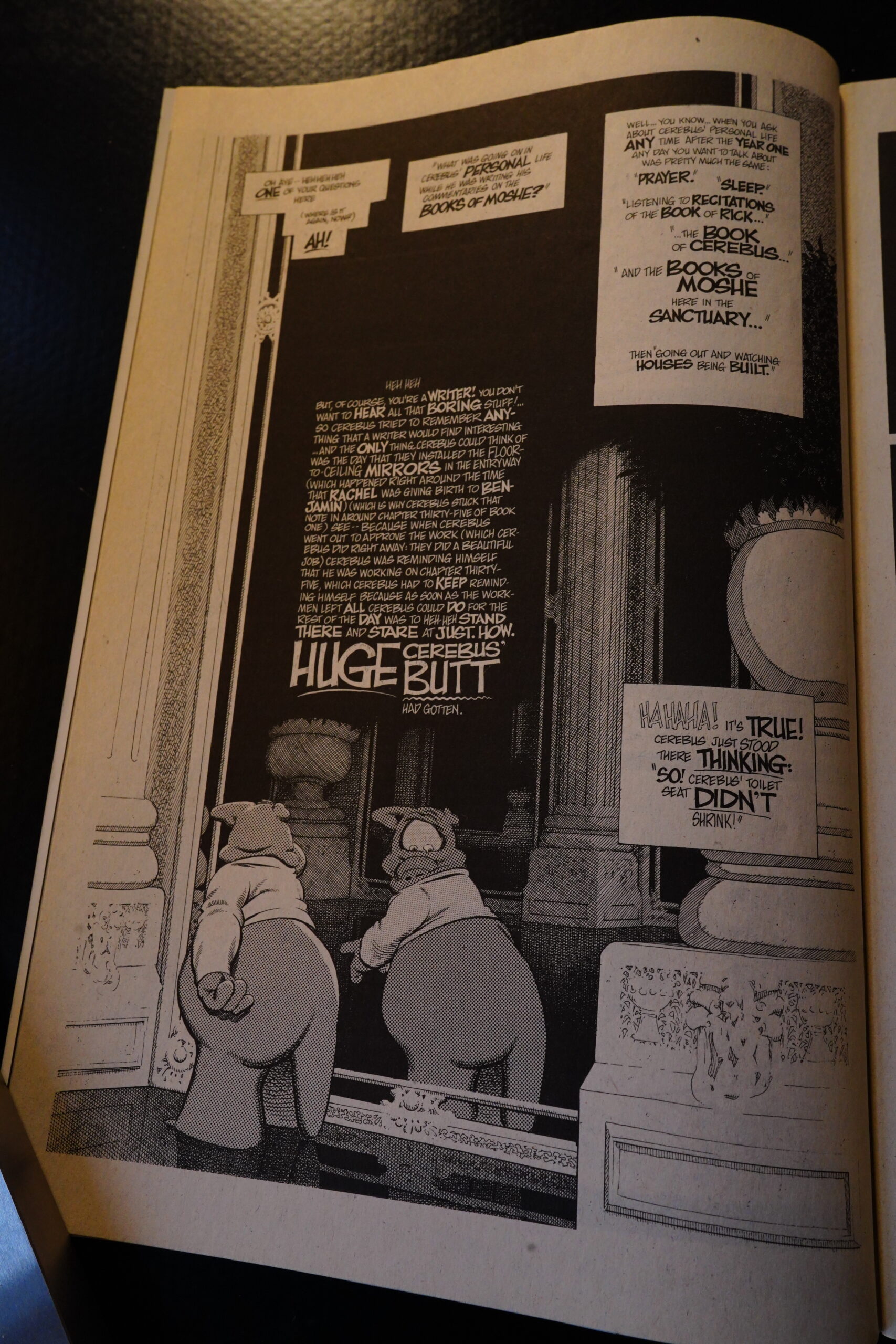
There’s a few pages of moderately funny stuff in between the non-moderately boring stuff.
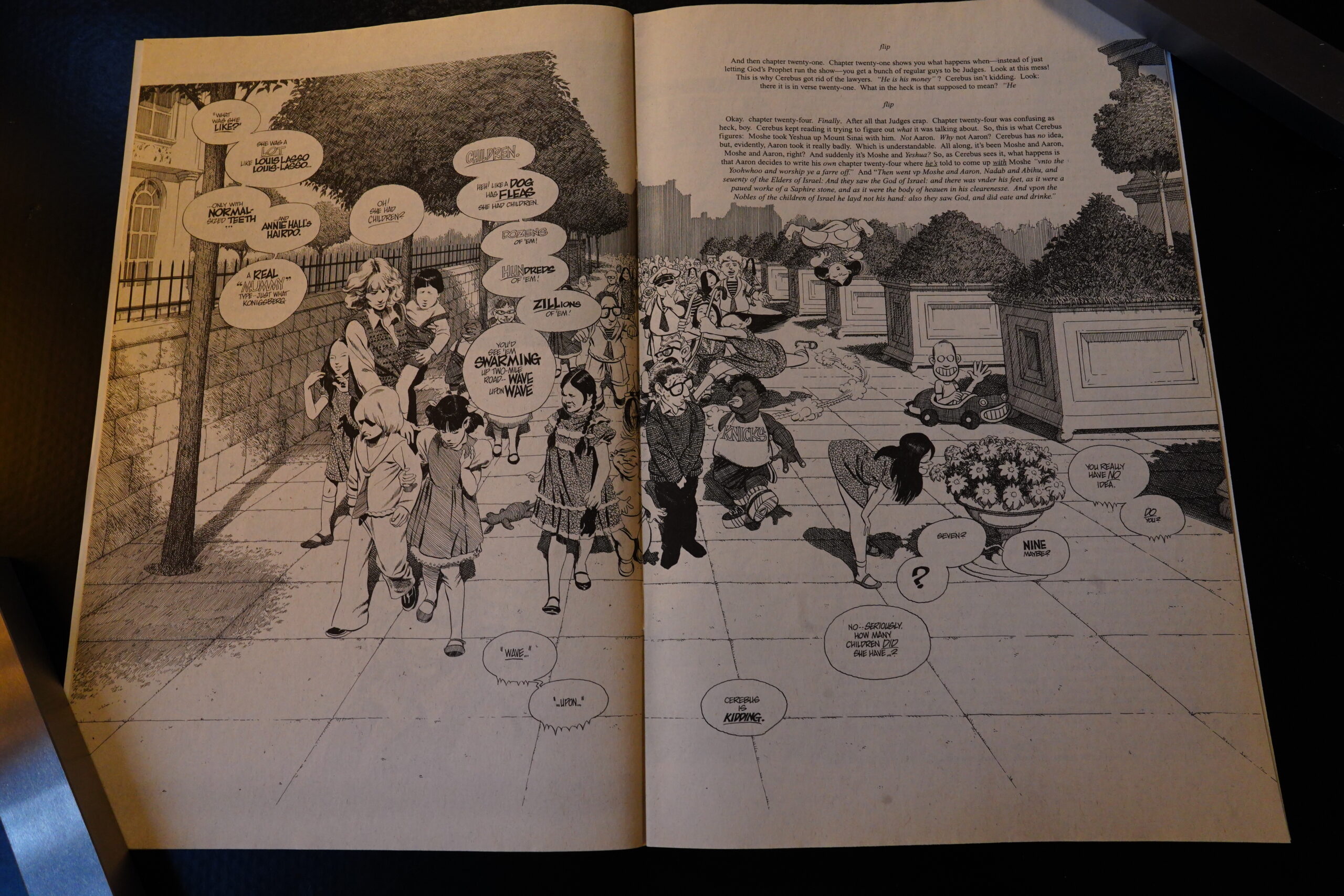
The winds up by having Woody Allen getting together with Mia Farrow, and then Allen ditching her for her adopted daughter. I guess that’s unusually “current affairs” as far as Cerebus goes? Hm.
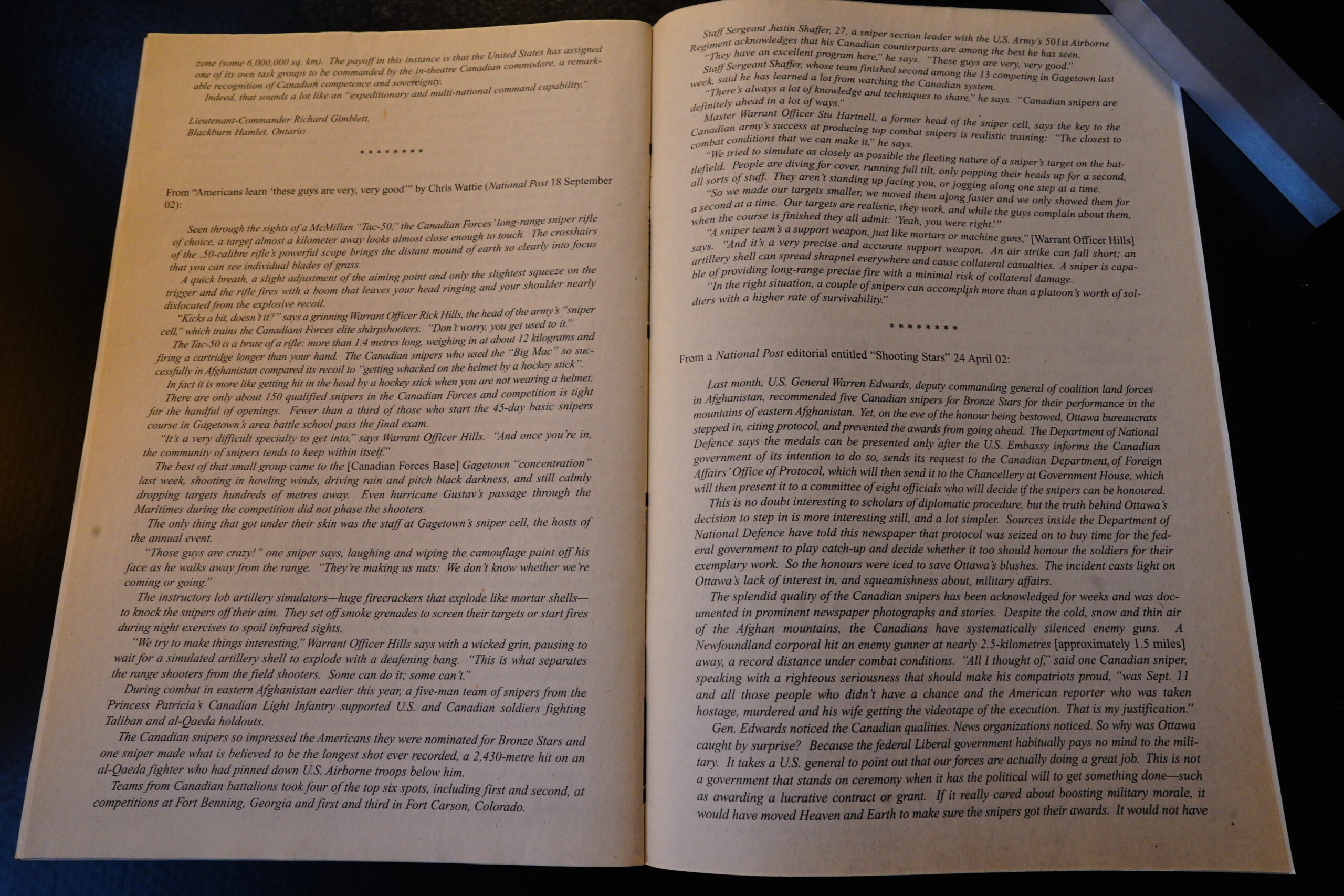
The Canada essay seems to devolve into being mostly quotations from various newspapers and magazines?
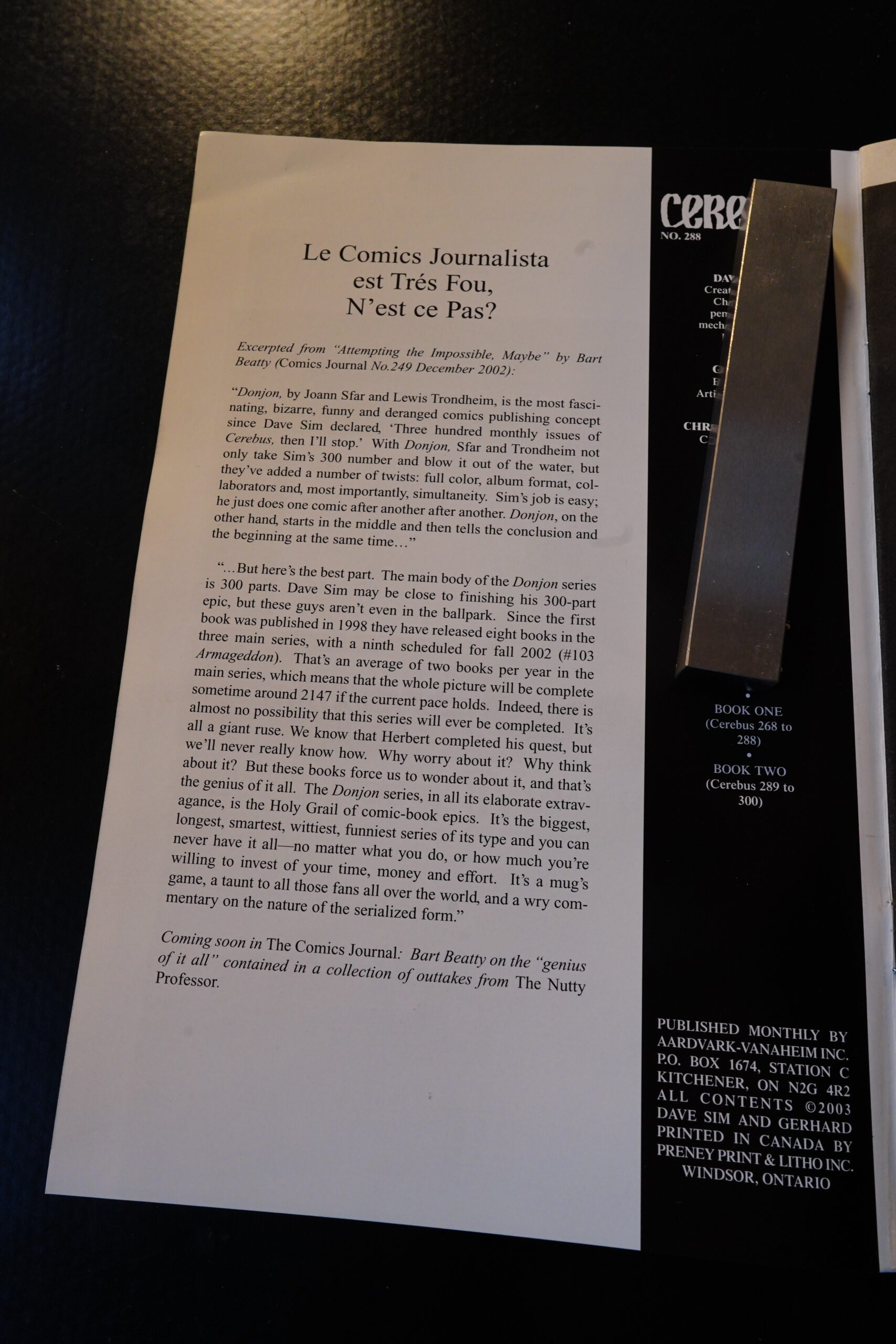
Sim is (as always) annoyed by what he perceives as snubs by the Comics Journal.
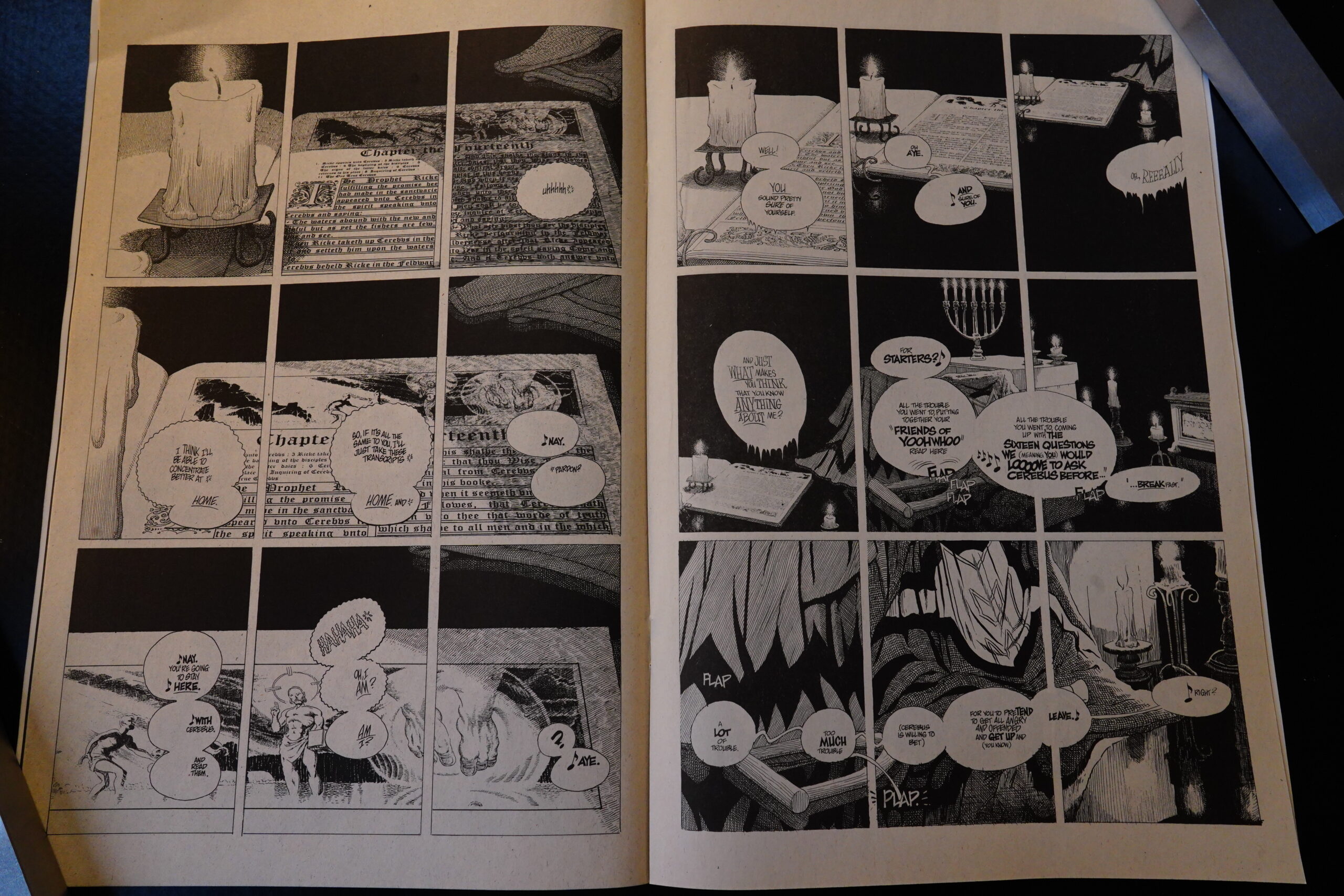
Then! The final issue! Both the bible thing and the Konigsberg thing are over, so we get one issue of comics, which is taken up in whole by Cerebus “wooing” a journalist (or was it the stenographer? I’ve forgotten already), who…
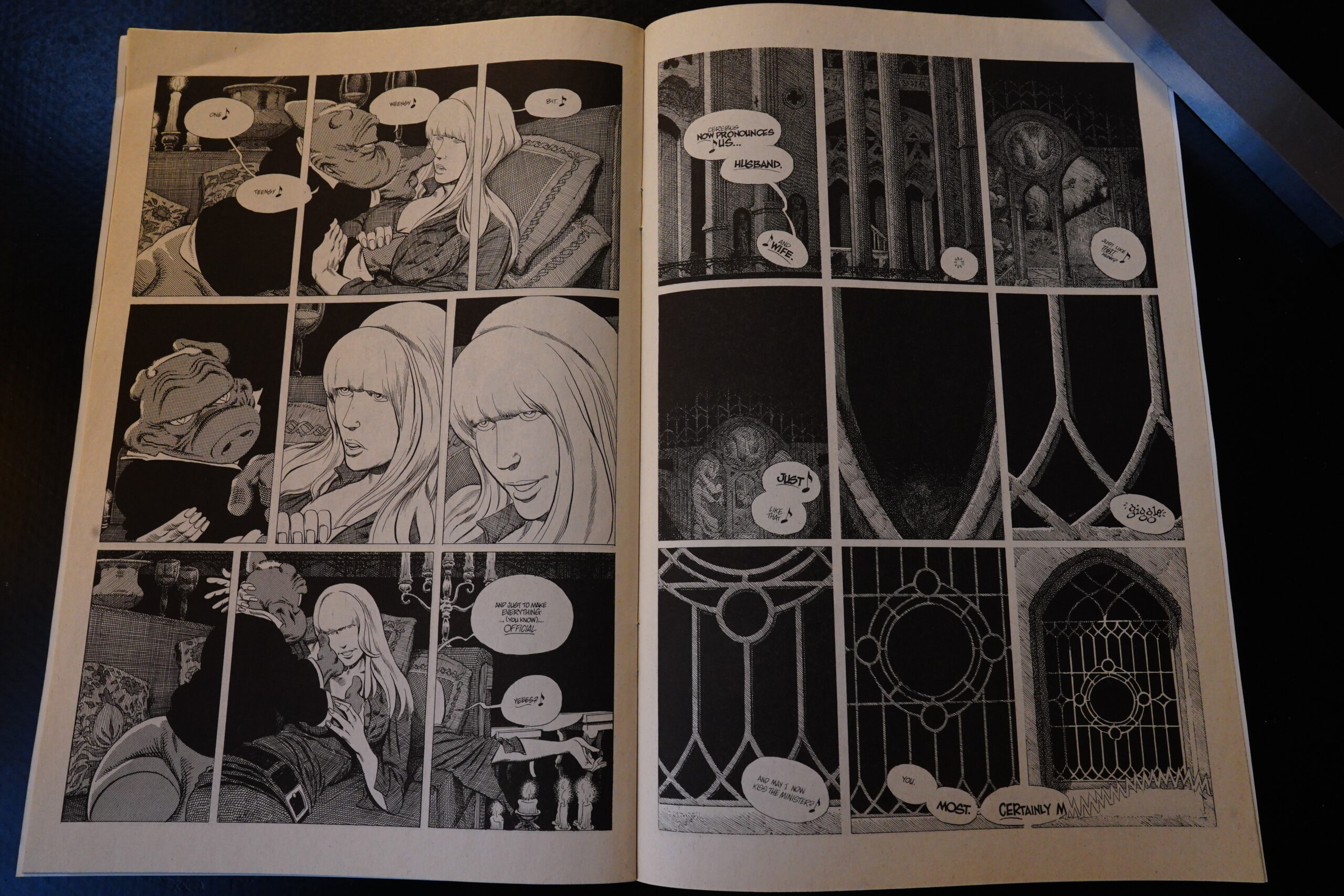
… it turns out is the exact double of Jaka! I think! Sim has always been very limited in his range of pretty women — Astoria, Jaka, Joanne all look very similar, but with different hairdos, and that’s Jaka’s hairdo. (Sim is great when he can go grotesque with women — they all look very distinctive.)
How’s that for a mystery! Is she Jaka’s great great great grand child or something? I lost count, but Cerebus must be like 200 years old by this point, so everybody we knew from #1-200 are long dead… I mean, it sounds like it’s a mystery, but since this is Cerebus, it’s probably not going to be very interesting, but we’ll find out tomorrow, when I finally (re-)read The Last Day, the final Cerebus book!
But what did the critics think of Latter Days?
R. Fiore writes in The Comics Journal #263, page 108:
In Latter Days you’ll find Sim at his
best and worst. It’s reminiscent to Milton
CanifPs farewell to Terry and the Pirates,
not in the sense of revisiting his cast of
characters but in revisiting his themes and
motifs. You have pure comedy as Cerebus
undertakes careers as a sheep herder and a
good-but-not-quite-good-enough profes-
sional athlete (marred by an extremely
strained pun on the name of Kofi Annan
— U.N. General Secretaries are not quite
the laugh riot youd think); a wicked but
sympathetic satire of the phenomenon
that is Todd MacFarlane; a parody of r he
Comics Journal that, in the course Of
demonstrating the boxing principle that if
you leave yourself open you will get hit, is
creditably free of rancor; and One of Sim’s
patented culture hero interpolations (this
time of The Three Stooges) that lacks
impact I think only because he’s pulled the
gag so many times before.
There is also a sequence which will
undoubtedly be Exhibit A in the case
against the Evil Beliefs Of Dave Sim, in
which the men Of Cerebusland are given
the privilege of deciding by vote which Of
the women of the community will be
allowed to live and which Will be summar-
ily executed. Whar ought to be said on
Sinü defense is that there’s an awful lot of
context going on here.
This sequence comes after the men-
folk have been Oppressed for over a hun-
dred issues by a matriarchal dictatorship.
When the matriarchy is overthrown the
matriarchs doff their chadors, and the vot-
ing process is meant co identify them;
The sequence also comes in the con-
text of a parody of Spaum, with all the
good taste and deep human sensitivity
that implies;
There is an element of satire here, as
the men set aside political concerns in
favor Of saving the pretty ones and elimi-
nating the ugly;
There is also the ambivalence Of
Cerebus as a character, who is sometimes
WAS
Sim’s mouthpiece, sometimes a negative
counterexample, and always the reader
identification character. His actions are
not alunays endorsed by the management,
which can be a convenient evasion.
The problem for Sim is that by now so
few people are actually reading the comic
that they’re not going to be in a position
to see the context. The thing is, when you
actually analyze Sim’s argument, as for
instance in Cerebus’s proposed utopia
(which, Sim assures us, “worked,” as
utopias always do in their natural habitat,
the minds of their creators), it’s really just
a standard argument of social conserva-
rives, i.e., that women as well as men were
happier under the male-dominated social
order. It takes a very special sensibility to
take a commonplace idea and make it
sound like Mein Kampf Where it crosses
a boundary is When he makes the first
woman executed the self-caricature Of
Julie Doucet. Suggesting violence against
an actual living person, even in effgy, and
even When that person is a character in a
work Of art subject to satire, is really a vio-
lation Of any kind of civilized norm. Sim’s
reasons as far as can figure are that he’s
revolted by the title Dirty Platte and she
draws herself ugly. (It’s an emotional self-
portrait and not a physical one; she’s actu-
ally quite attractive and rather buxom.)
My guess is that she represents to Sim the
sort of cartoonist who gets the acclaim
that he’s entitled to.
Well, thank god we have R. Fiore’s testimony that Julie Doucet has big boobs (and therefore didn’t deserve to be executed? (Sim didn’t actually say how the vote went, though)).
The episode is, Of course, covered by
that same theory of absolute freedom of
expression that protects shit-fetish videos
and things Of that nature.
As for the worst, there is the Cerebus
Stretch. One of the plot points is that
Cerebus has become the messiah figure in
an underground religion, and When the
cultists find him he is subjected an
ordeal to prove he is truly What he pur-
ports to be. The trial-by-ordeal goes on
for 60 pages. I can only imagine how ago-
nizing this must have been for the hardy
few who still bought Cerebus monthly.
You imagine them hanging on to the end
of the bandwagon as Sim stamps on their
fingers yelling “STOP! READING! MY!
COMIC!” And it’s the result Of his total-
ly arbitrary decision to fill 300 issues, even
if he doesn’t have the Story to fill them. It’s
the reason Why the matriarchal dystopia
went on and on and on.
In its last 200 pages Latter Days turns
into a Big Little Book, juxtaposing pages
of teeny tiny type with drawings of movie
stills incorporating Woody Allen for rea-
sons you’d have to read the text to find
out. After a couple of pages my conclu-
Sion was that if Sim thinks I’m going to
read this crap — if he thinks I’m going to
skim this crap — he’s nuttier than anyone
thinks he is. If he’s right on the God
proposition they’ll be plenty Of time to
read it during my eternity in Hell: I’m Sure
they’ll have a COPY there. Most Of it is
taken up with Dave Simk interpretation of
the TO rah in Cerebus-ese. You can only
get away With this stuff if you’re William
Blake. and even there I’d like to meet rhe
man Who ever finished The Four Loas.
Sim is that strangest sort of hybrid, a free-
thinking fundamentalist. What I gather
from the parts I dipped into is that Dave
Sim’s personal religion is a Hinduized ver-
Sion of Judaism With Moslem sauce that in
any age Of faith he’d surrender on the rack.
It’s going to be a hell of a day in Heaven
when Sim gets there, trumpets blaring,
angel choruses bellowing, St. Peter open-
ing the gate without even bothering to
open the book, God and YHWH (two
different entities, according to Sinn) lead-
ing a parade of the great theologians of all
time in honor of the one man in all of his-
tory to understand the Bible properly.
Gaily they lead him to his permanently
reserved seat in the grandstand where you
watch the sinners being tormented.
The rest Of the verbiage is taken up by
Sim’s critique Of Sigmund Freud, which
goes to show that when Sim isn’t trying to
fight battles that have already been lost
(gender egalitarianism) he’s fighting bat-
ties that have already been won. You flip
through the pages in hopes that in all that
agate type a comic book might break out.
It does in the end, and you are treated to
an exchange that I think is the best sum-
mation of Woody/Soon-Yi affair•.
“And he’s really, really really
and truly, in love With [her]?
Ol_et’s put it this way — he
BEVEER be.”
Tim Kreider writes in The Comics Journal #301, page 364:
In fact, for all Sim’s yammering about women’s superficiality, irrationality
and intellectual dishonesty, the book’s most fully realized characters are all fe-
male. The women he writes offas bimbos or harridans have more dimensions
than he gives them credit for. And despite his insistence on men’s intellectual
and ethical superiority, we don’t see much evidence in Cerebus ofmen behav-
ing rationally or morally. The patriarchal utopia that Cerebus commands for
a time in Latter Days is a Draconian horror, involving the annual execution
by blunderbuss ofany woman judged by mob rule to be a bitch. What little
Cerebus learns in his life comes too late to save him. Most of the other men
we see are either Machiavellian schemers like Julius and Weisshaupt or feck-
less drunkards and goofballs. Rick, whom Sim intends to be the epitome of
genuine goodness, his Prince Myshkin, is more naifthan saint. When we see
him in Guys he’s become an alcoholic, and the phantasmagoric visions he suf-
fers suggest not divine revelation but psychosis. I suspect that (despite Sim’s
insistent disclaimers) Rick is how Sim would like to imagine himself— a
lonely, misunderstood prophet who’s regarded by others as touched in the
head but is in sole possession of the word of God. But Rick only seems, to
the reader, to be a pitiful or tragic figure; it is, for better or worse, with the
selfish and imperfect Cerebus that we identify. Despite Sim’s agenda, these
characters all keep behaving like human beings — erratically, idiosyncrati-
cally not allegorical figures acting out agitprop or a morality play.
In other words, Cerebus is often a much better book than Dave Sim seems to
realize, or intended it to be. As D.H. Lawrence wrote of Herman Melville:
“The artist is so much greater than the man.”
What’s striking is how much space The Comics Journal has spent on Cerebus over the years. One long think piece after another.
Bart Beaty writes in The Comics Journal #263, page 119:
Latter Days
Where does this leave us? Where does
it leave me? With the last issue of Cerebus
some small part Of me is passing away as
well. Once a month, once every month,
for 20 years I have been going into a
comic book store somewhere in the world
and buying an issue Of Cerebus. I have
bought my monthly issues in New York,
Washington, IOS Angeles, London, Paris,
Amsterdam, Berlin and points in between.
I have loved them, and I have hated them,
but they have always defined a very small
part Of Who I am. Cerebus is the one book
that I read as a child that I continued to
read as an adult. Everything else from that
age has fallen away — the songs, the
movies, the books, the friends. It is all
gone, and now Cerebus is gone too.
In many ways I Outgrew Cereous a
long time ago. My interests in comics
these days run more towqurds Europe than
towards America. In some ways this has
been a transition from comic books as COI-
lectible pamphlets to comics books as
books, a transition, ironically, that Sim
had more to do with than probably any
single player in the American comics mar-
ket Of the past 20 years. Sim demonstrat-
ed more clearly than most that it was pos-
Sible to live off past work if one kept it in
print, and that a solid back catalogue paid
dividends Over a long period that might in
the end prove more lucrative even than
the most aggressively-marketed flash in
the pan. Whose royalty statements would
you prefer today? Sim’s or Liefeld’s? I
noted all Of this in an essay for this maga-
zine several years ago, and called it “the
Cerebus Effect.” That was, up to now, my
Only real comment on Corbus in these
pages, the only real connection that I
forged between my first comics lifeline
and my second.
Gerhard is interviewed in Following Cerebus #1, page 29:
FC In an infeniew afewyears ago, yog said that what
you wanted most affer ibe completion oJCerebuswas sleep,
sleep, andmoresleep. Haeyog beengemng dyou wanted?
GER: I slept a lot for the first couple of weeks
after finishing the book. Major Down Time. Now,
the trick is to be able to take a nap as required
without feeling guilty about it. I figure I’ll just
keep practicing until I get it right.
FG In the notes for theLatterDaystrade, Dave talks
about bowyog almost left the series with coøelve is.cges toga
How serious weryog i” intending to leave, and how mgth
work was it to get yog to stick it outfor anotheryear?
GER: I was at the end of my rope. I was very
serious in my intent to leave. I didn’t care what the
consequences were going to be. I wanted out. My
health, both mental and physical, was deteriorat-
inge My stomach hurt all the time but became ex-
cruciating while I was laboring on a page, espe-
cially during inking. Inking is always the stage
where I feel that I’m completely ruining the page,
which is why it drove me nuts when I got nomi-
nated for best inker awards.
I was also very disconnected from the book,
from the story. And the Three Stooges—-well, I
just never g ‘got” the Three Stooges. As soon as I
saw the pages with Cerebus bound and gagged in
the sanctuary, I thought, “Ohs no.” I mean, in Ggys
and Rick ‘s Stoty, he was stuck in that bar for years,
but now he’s actually tied down to one spot. “Shoot
me now!” Then, doing that two-page spread of
the sanctuary, all I could think ofwhile I was work-
tng on it was, “I’m going to have to draw this from
fifty-seven different angles for months, I just know
it!” The idea was to use that two-page spread as a
“master” shot and photocopy sections of it for
use behind the characters, but it never works out
that way. I tried using photocopies on previous
pages. It’s terribly tedious. I have to cut the pho-
tocopy from around the word balloons and sound
effects, glue the copy to the page, and then touch
up Vith a pen around the word balloons and sound
effects where the photocopy doesn’t meet the edge
of the word balloons and sound effects, and then
when the issue comes in from the printer, the pho-
tocopy has broken up or filled in, and it looks like
crap. So the only alternative is to draw the same
stupid background over and over twenty times.
And that’s just for this issue. I don’t know how
long he’s going to be tied up, I don’t know where
the story is going, I don’t know if I can do this
anymore.
Then of course a page comes along, like the
page where Rabbi is flying above the earth, or
where Cerebus is on the reviewing stand in front
of the farmhouse, or the Sporemobile, or the ex-
terior of the Community Centre, where I think,
“Hey, I can do this.” And then I come hard up
against the page with the little Spore marching over
the landscape, and I’m stumped. Can’tdo it. Dave
did the page this way because he thought I’d like
the aerial shot. Can’t picture it, can’t do it, and my
stomach starts to hurt now just thinking about it.
So anyway, this goes on ’till the long pan shot
at the end of Latter Days. I feel sick. I’m tired. I
have trouble eating. I have trouble sleeping. It’s
just notworth it. I should have left the book after
Minds, when the Story was over. I bring in the rest
of the pages to Dave and tell him I can’t do this
anymore. He talks me out ofit (again). The thing
is, there are only nine pages to go, and thenLaffer
Days is done. We decide that I will do as much
work on the page as I can, until I just can’t stand it
anymore, and Dave will finish it up. Like I said,
it’s mostly the inking that drives me nuts. So I did
my usual pencilling, paste on photocopies, outline
stuff, and fill in solid blacks. Then I would ink in
details and shading as much as I could and hand
’em over to Dave. He added some detail to cer-
tain areas and sometimes another level of cross-
hatching to increase contrast, and I managed to
limp through to the end.
Interesting to see that Gerhard was having as much problems staying with the book as most readers had…

It’s the lowest rated Cerebus book on Goodreads, I think.
Heh heh:
Seriously, for eight issues (160 pages) the comic is composed of some silly bits about Woody Allen in the world of Woody, Bergman, and Fellini (making fun of Freud and Jung), and the
rest is text, with Cerebus/Sim quoting the Torah and then interpreting it so that it fits in with his concept that the Bible is a battle between the stupid female YHWH (called “YooWhoo”) and God. Sim decides from sentence to sentence whether it’s God saying something or YHWH based on whether it fits his characterization. If I were devout, I’d be really really upset at this manhandling of Holy Scripture. And the reasoning he uses is honestly crackpot. He devises logical explanations that he can discard or reinterpret as necessary. A lot of “I’m guessing” and “probably” and similar crazy leaps of logic. I’m also studying Scientology (objectively), and L. Ron Hubbard’s “scientific logic” is very similar. In that it is ludicrous. If you wanted to skip this part, you could certainly substitute the sentence “Cerebus studies the Torah and completes his transformation into a devout Jew” and move on.
Oh, really?
It becomes nothing but tiny, incoherent text about The Torah. A literally insane interpretation of it when YHWH, who Dave refers to as Yoohwhoo, is actually different from capital G God, and is a stupid female being who thinks she is actually God but too stupid to know she isn’t. Also everyone has a spirit walking upside-down inside the Earth?
They didn’t even like the Spawn bits:
The Torah sections are borderline impossible to read and hateful when you do, but on some important level they aren’t actually comics. I’m not expecting Dave Sim to be a competent rabbinical exegesist. I am expecting him to be a competent cartoonist, and in the middle parts of Latter Days even that falls away. The Spawn parody is inane; the McFarlane character is incomprehensible (ironic that Sim’s worst phonetic speech is him writing a Canadian!); the plot makes so sense; Sim’s choices of what to show on and off page are bizarre (perhaps he was rushing through his original plan to fit the Torah material in).
Makes as much sense as any other interpretation, I guess:
Sim’s reading is so riddled with ridiculous assumptions and assertions (and failures of understanding even of what words mean, let alone historical context), not to mention Sim’s certainty that sometimes character X speaks in propria persona, sometimes is possessed (I guess) as a mouthpiece by Yoowhoo, and sometimes possessed by God as a mouthpiece. How does Sim know which is which? Well, basically by determining whether he thinks what the person is saying sounds like God, Yoohwhoo, or just the guy. So, yeah. It’s entirely subjective, and unsupported by anything more than the most flimsy of evidence. And it leads Sim to some astonishing and repugnant conclusions–e.g. that the Holocaust was payback against the Jews for all the animals sacrificed in the Torah, or that evil shit that happens was thought up by Yoowhoo, who therefore is to blame for it, but actually done by God, because Yoowhoo actually has no real power. So God actually does all the terrible shit, Yoowhoo just thought of it; God does it as part of his apparently endless attempt to make her see the error of her ways. Well, there’s a lovely image of humans, existing merely to function as puppets and sacrifices in God’s ongoing “dialogue” with his feminine demi-urge, not to mention of God, as willing to inflict immeasurable suffering on humanity not for their own faults but for Yoowhoo’s.
People sure have a lot to say about this volume, at least.
Right:
A chunk of the book featuring the thinly disguised Three Stooges captures their body language almost miraculously, which makes a sequence about their declining years heartbreaking.
Hey, I found a kinda positive review!
Sim is an artist of genius and, after the amazing run he’d had so far, one is hard-pressed to look away. Not all of Latter Days shines nearly as brightly as earlier volumes of Cerebus, but it still has its moments. While the rest of Cerebus isn’t exactly like being stuck in total darkness, it is disorienting. Fortunately, the artwork and the various parodies save the day. Dave Sim the artist lives on. I’d just never want him as a rabbi, though.
Right:
It sounds like a joke, and it could maybe pass for one…if it didn’t go on for page after page after page after page. And if Sim weren’t 100% serious about it. He also goes into great detail about how the female human characters in the Bible are completely evil, and the male characters are, of course, generally without fault.
Indeed:
The point of all of this is, this time around I have absolutely no stake in Sim’s interpretations of the Bible. Honestly all of the theology and metaphysics that interested me when I was twenty-five appear to me now to be a young-man’s worries. Ten years later my interests now lie in the here-and-now, in wisdom rather than knowledge. This has led to a reversal in my opinions about many of the volumes of Cerebus. During my first read it was always the metaphysical stuff, the Mind Games, Flight, the meta-narrative stuff, that I loved. This time it was the down to earth stuff, Jaka’s Story, Melmoth, Guys, that resonated with me. Bravo to Sim for being able to run the gamut.
However, if you are not interested in experimental biblical-exegesis, well, Latter Days is a torturous book to read.
Dave Sim on his interpretations:
I have no idea how much of it (if any) I got right (and won’t know until Judgement Day) but I do think it makes more sense that the Torah is a sequential narrative rather than a series of disconnected anecdotes. In which case it seems to me, self-evidently necessary, to find an interpretation that reads as a sequential narrative (as mine does).
If I do turn out to have been right, I think it’s going to be very funny 100 or 200 years from now when people look back at the time when the most widely-accepted reading of the Torah was just seen as “WORST. CEREBUS comic books EVER!!!”
It definitely makes ME laugh to think of that day.
Sounds very amusing indeed! But perhaps not very likely?
Damian T. Lloyd, Esq.:
I think that the intellectual, philosophical, spiritual, or even logical content of Cerebus generally, and of the Torah “commentaries” is nearly if not entirely nil. I think that Dave is wrong if he thinks posterity will acclaim Cerebus as the first-ever correct reading of the Torah, or the first-ever correct critique of (his straw-woman) feminism, or the first-ever correct postulation of a unified field theory. I think that Dave is not that smart.
Heh heh.
Or take the “intellectual” content of Cerebus: When I say that Dave doesn’t know how to think, that’s precisely and all that I’m saying; I’m not saying he’s stupid or anything like that (he’s nowhere near as smart as he thinks he is, but he’s a pretty clever guy). I can read his writing and find on the same page a piece of stone-cold logic right beside some misconstrued anecdote right next to a blatant factual error — and Dave can’t tell the difference between them. He doesn’t have the intellectual tools to construct or analyze an argument. That doesn’t mean he’s dumb, but it does say certain things about his thinking (or “thinking”).
OK, tomorrow: The End.
This blog post is part of the Renegades and Aardvarks series.
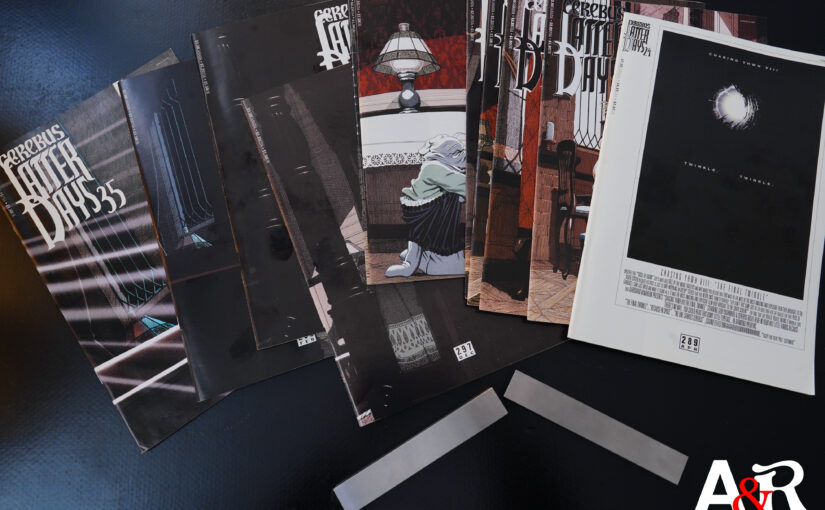
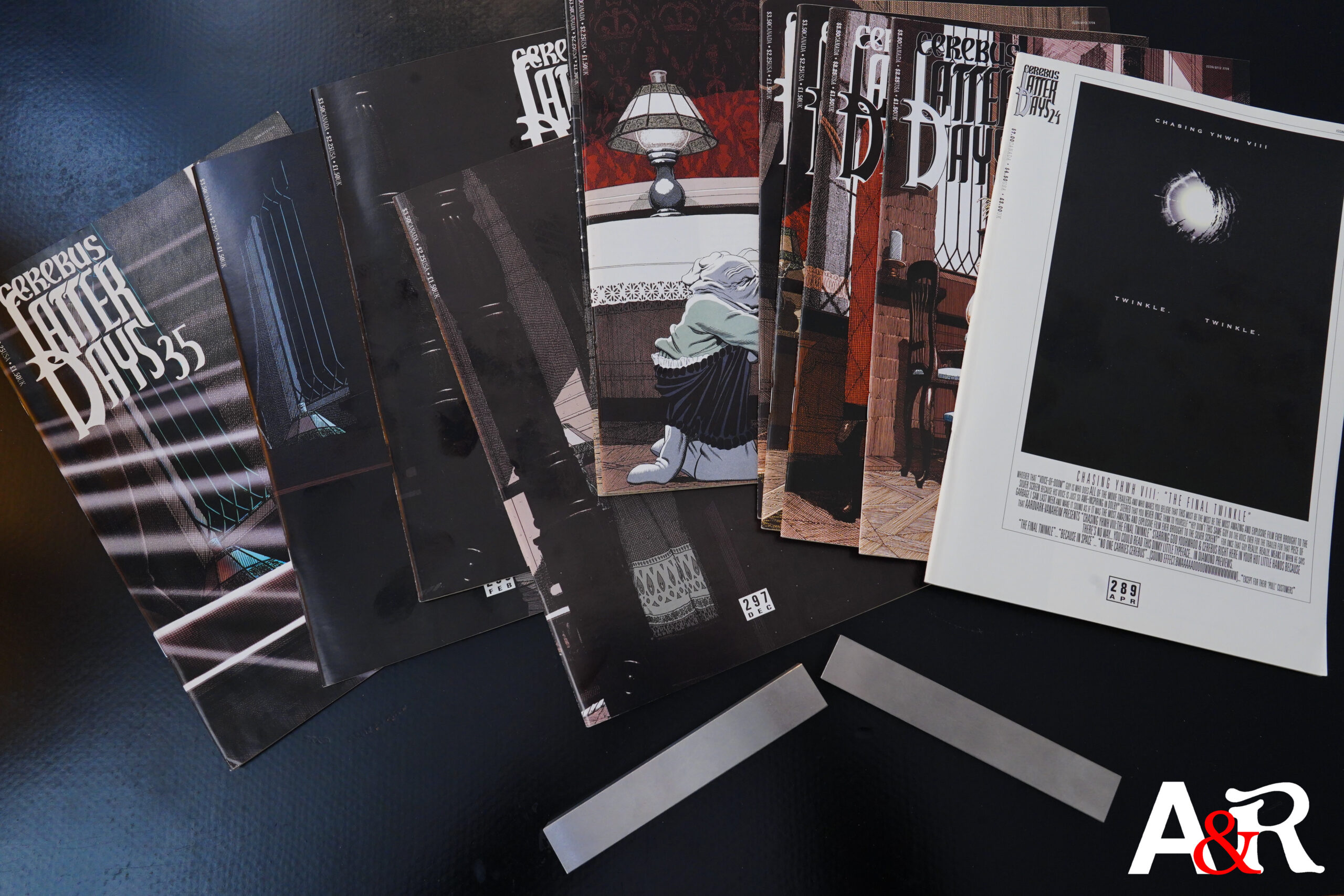

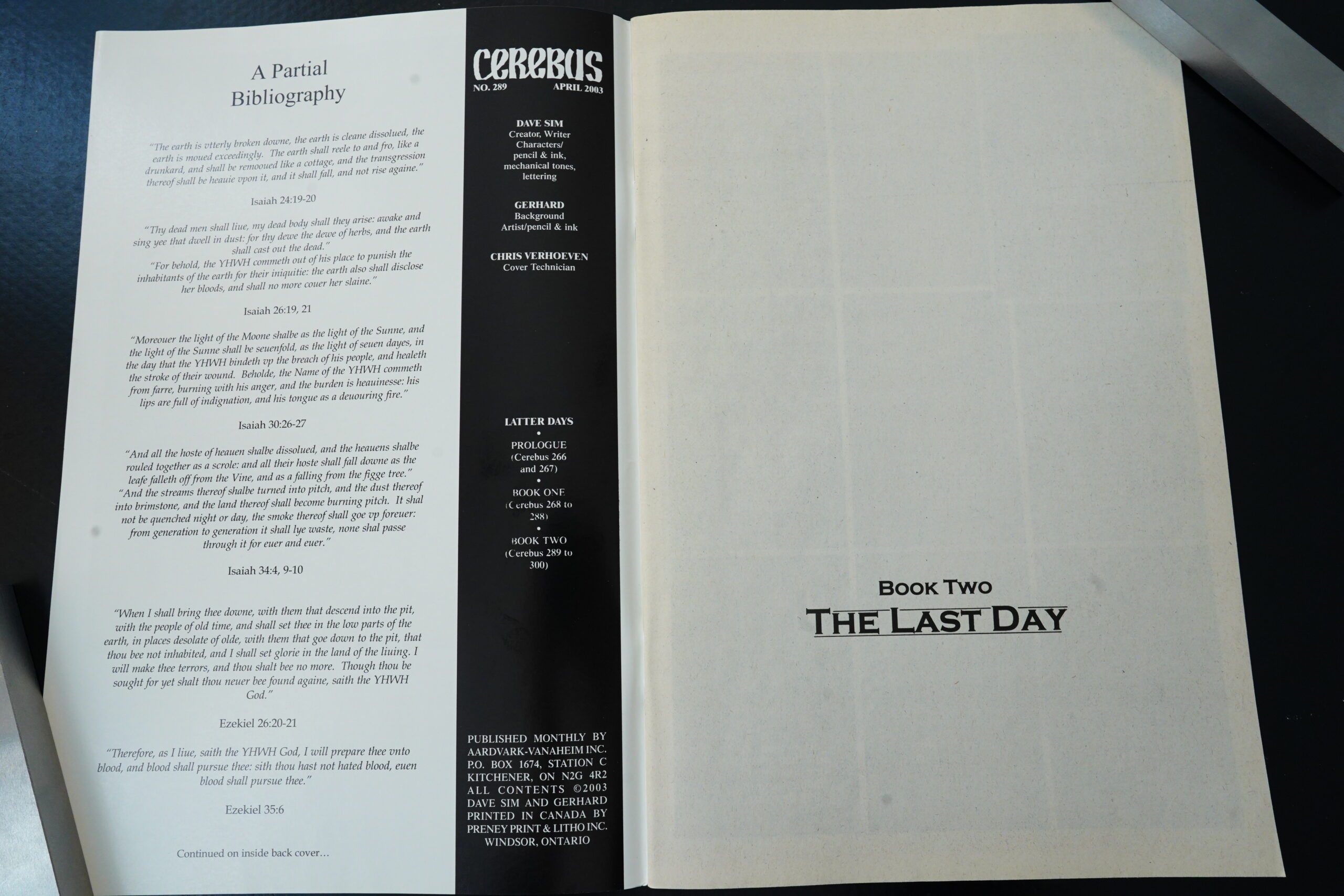
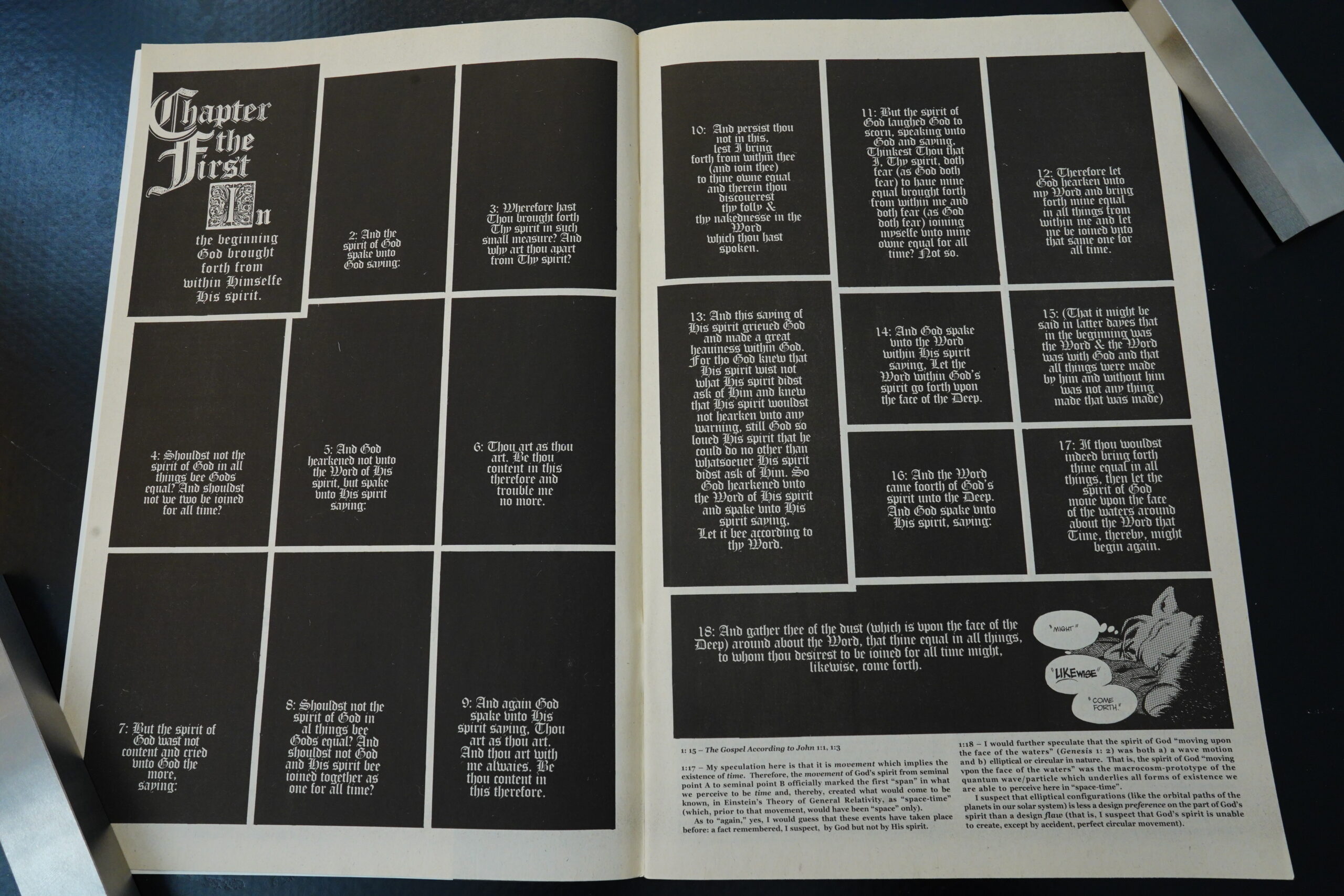
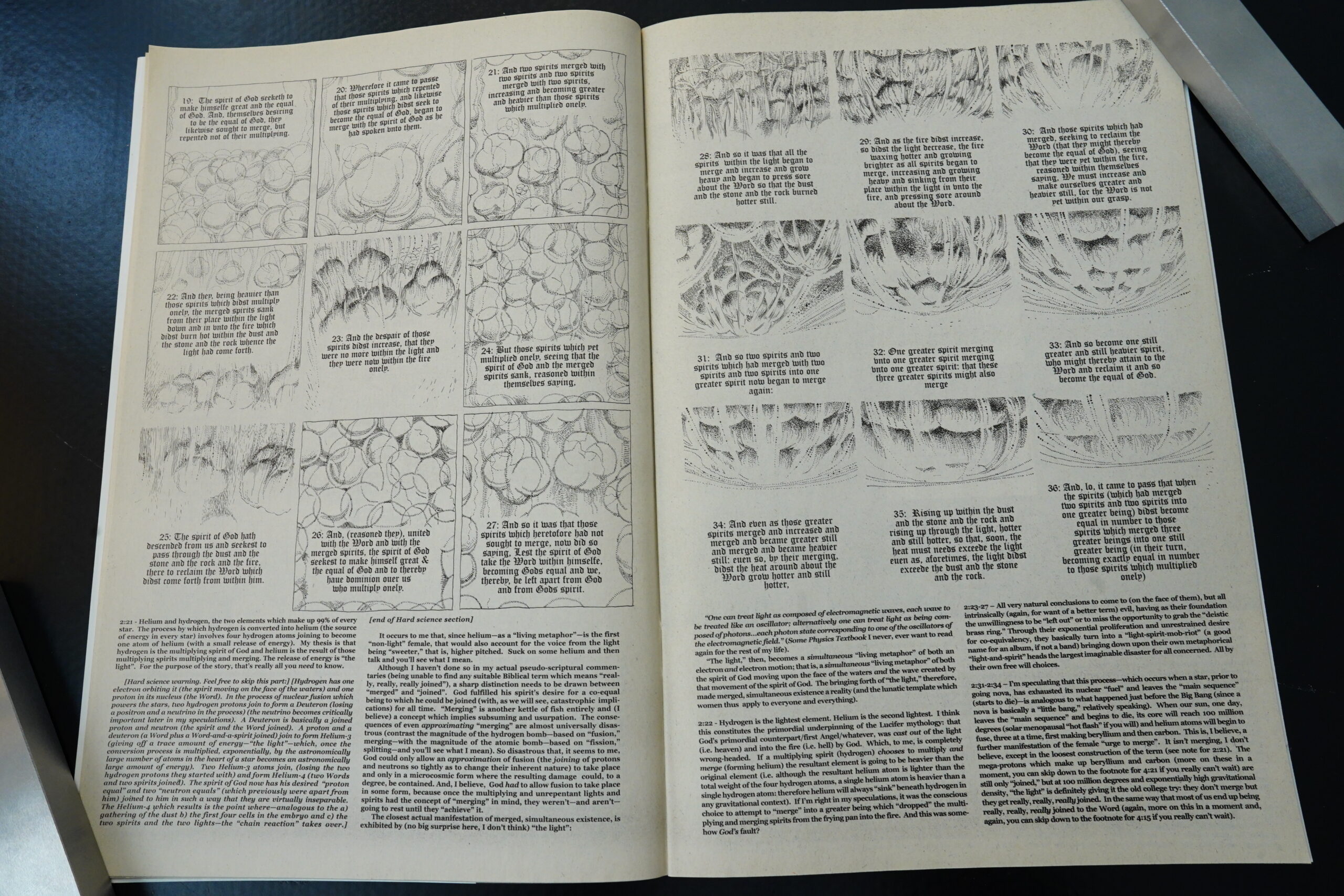
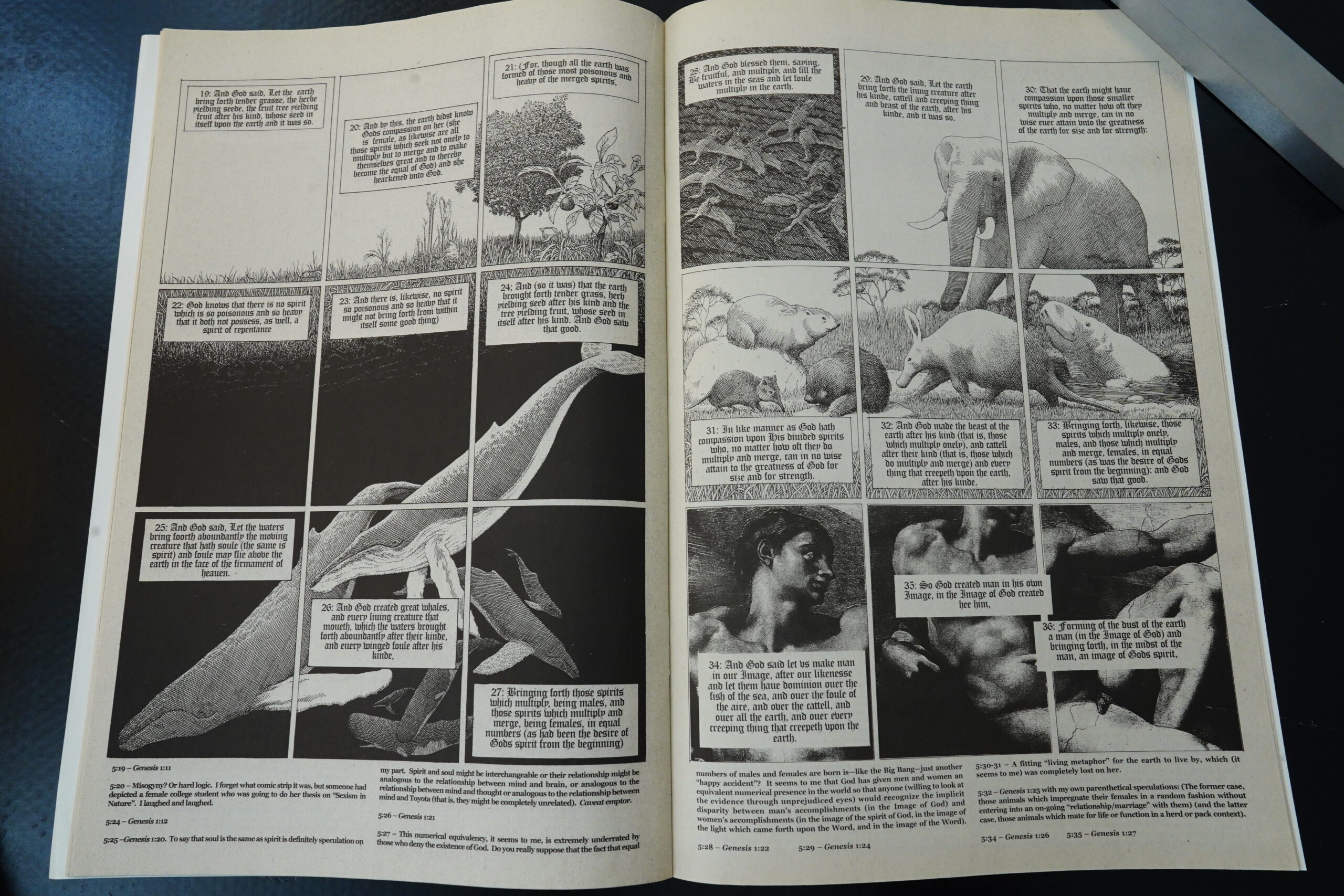
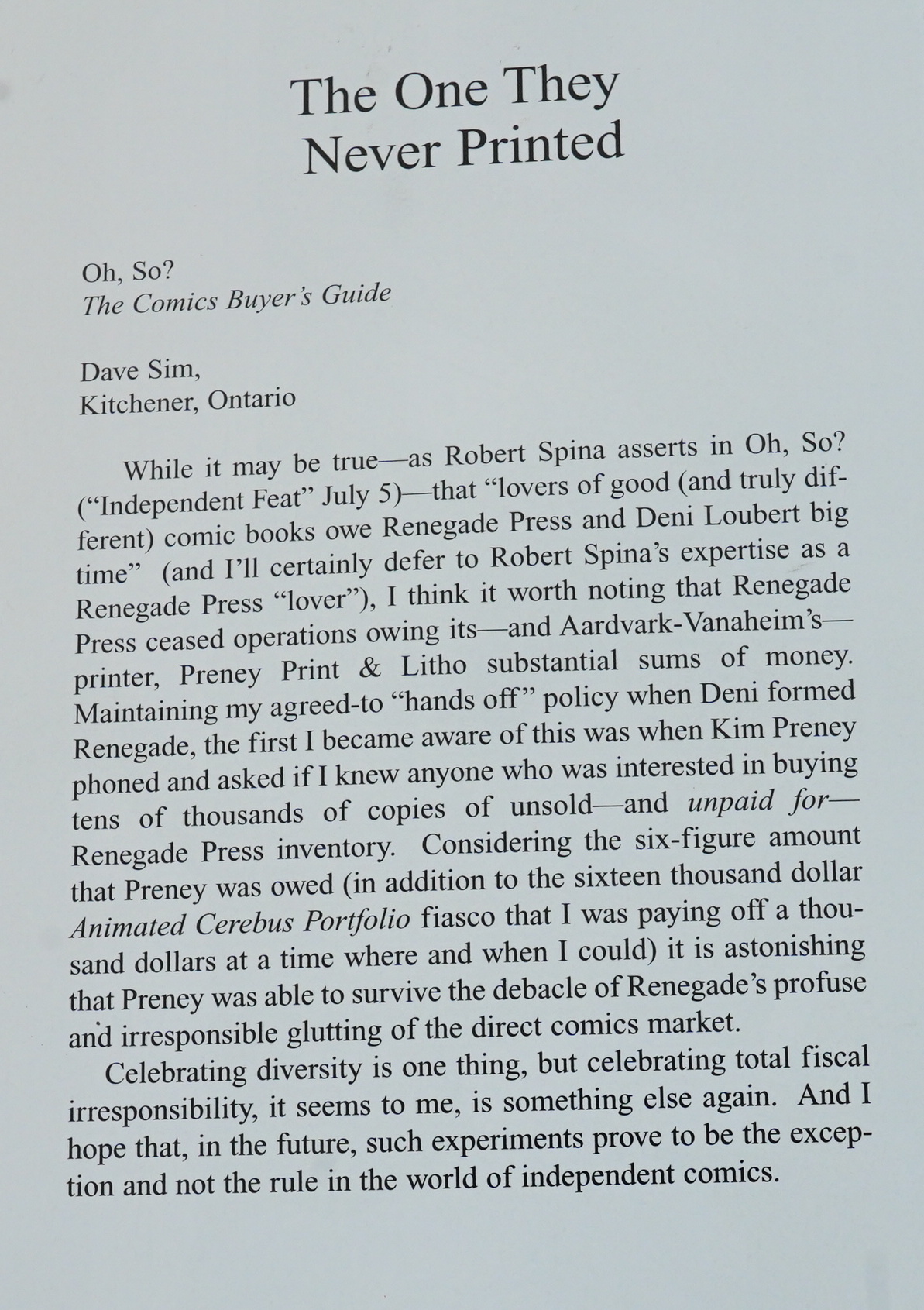
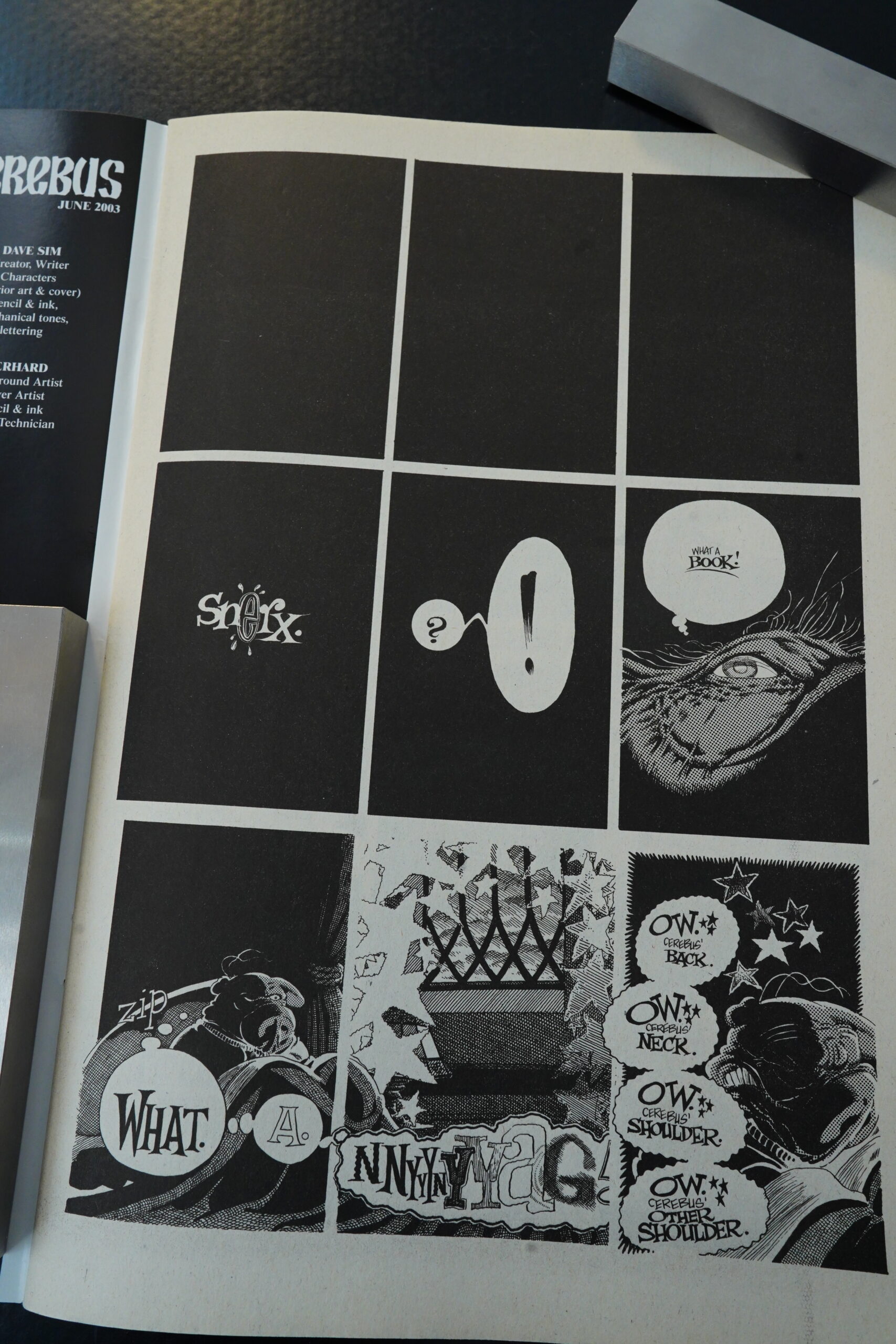
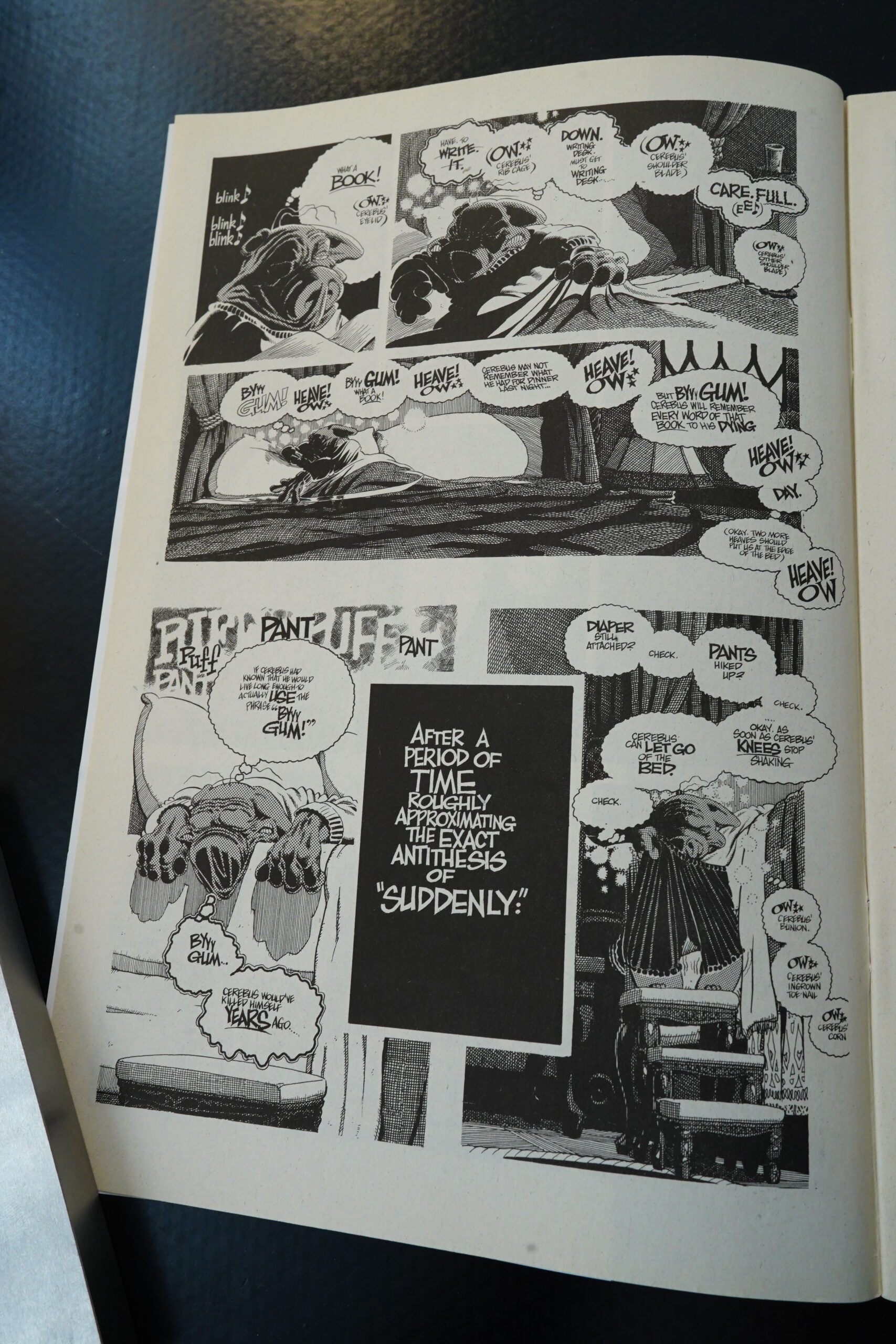
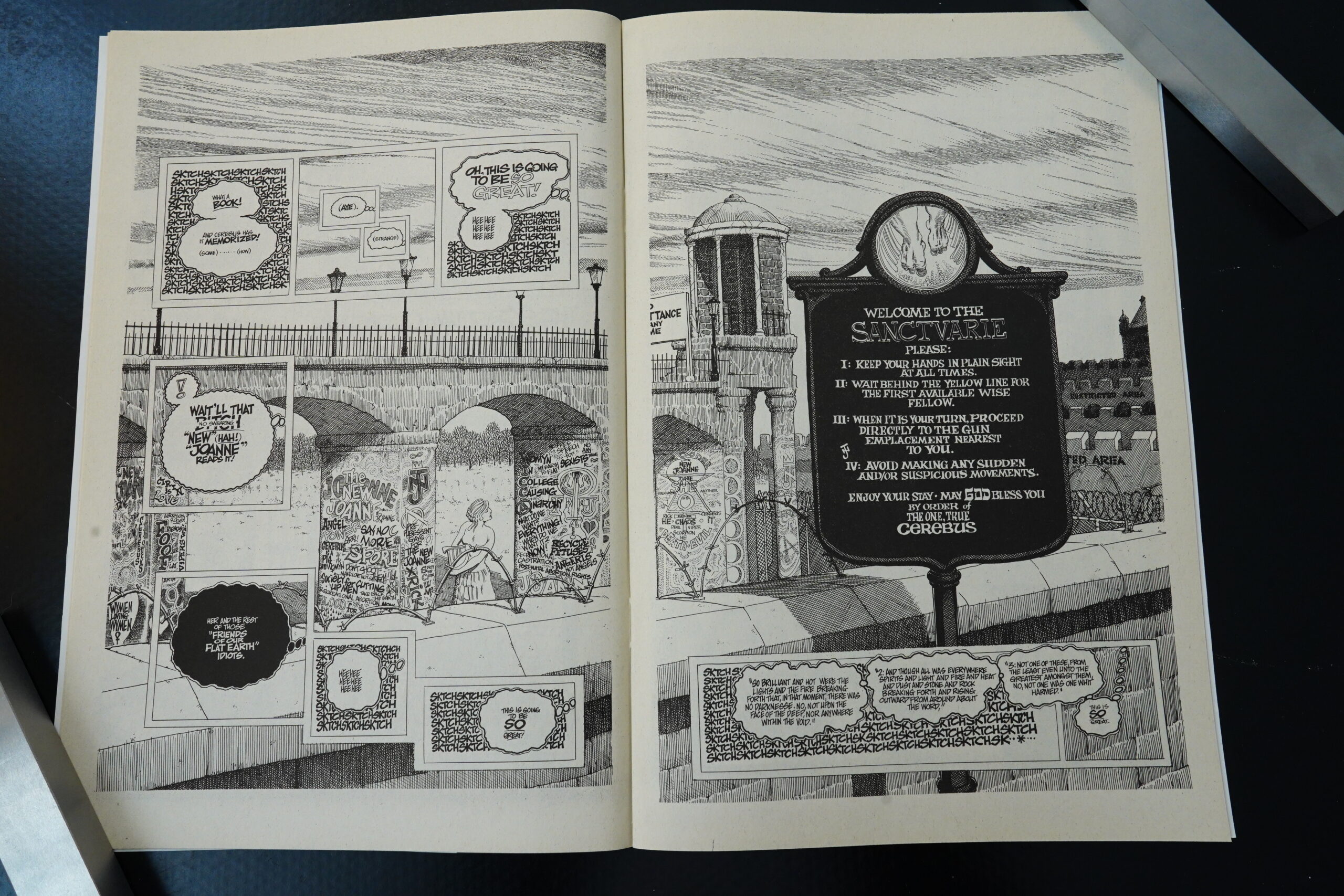
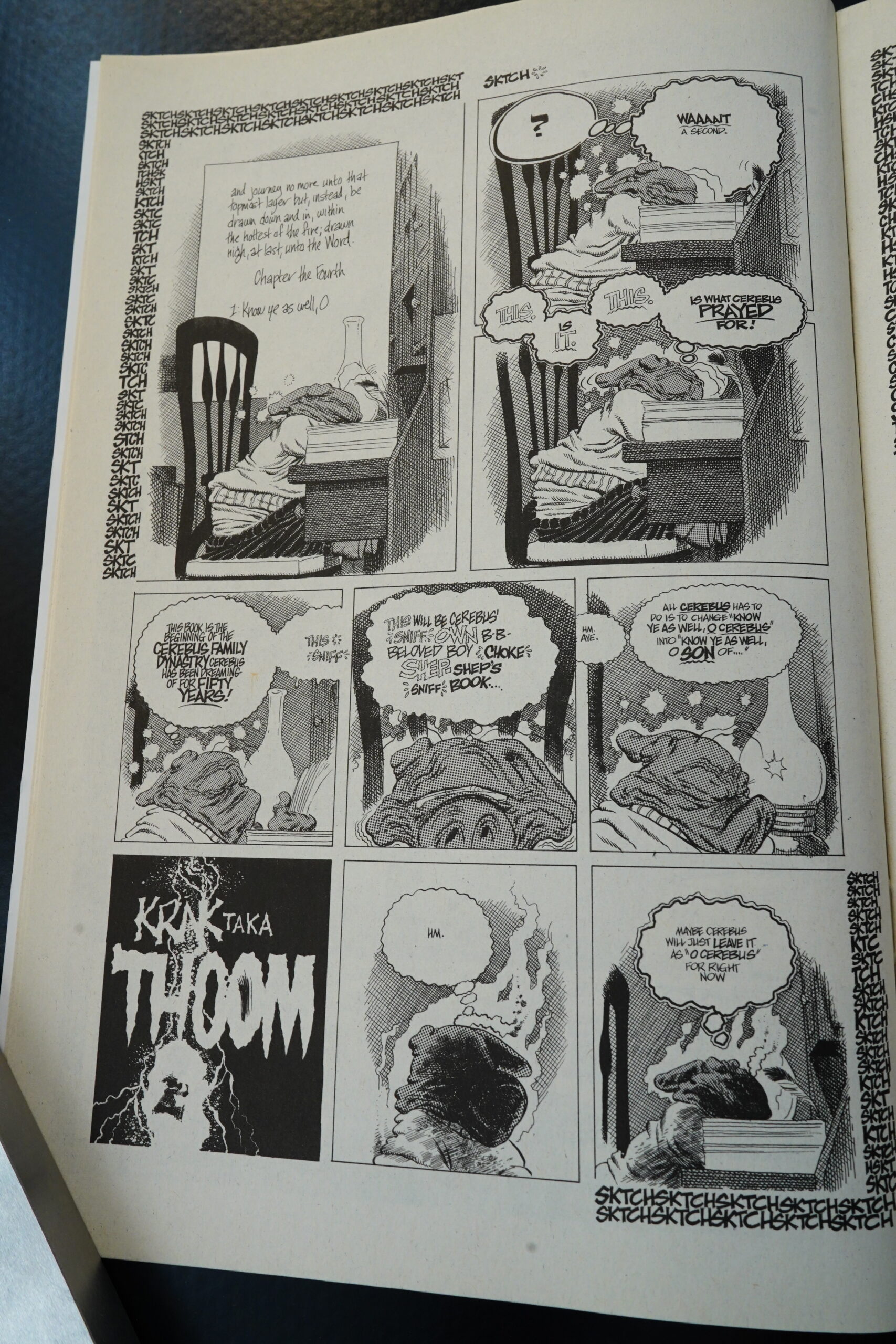
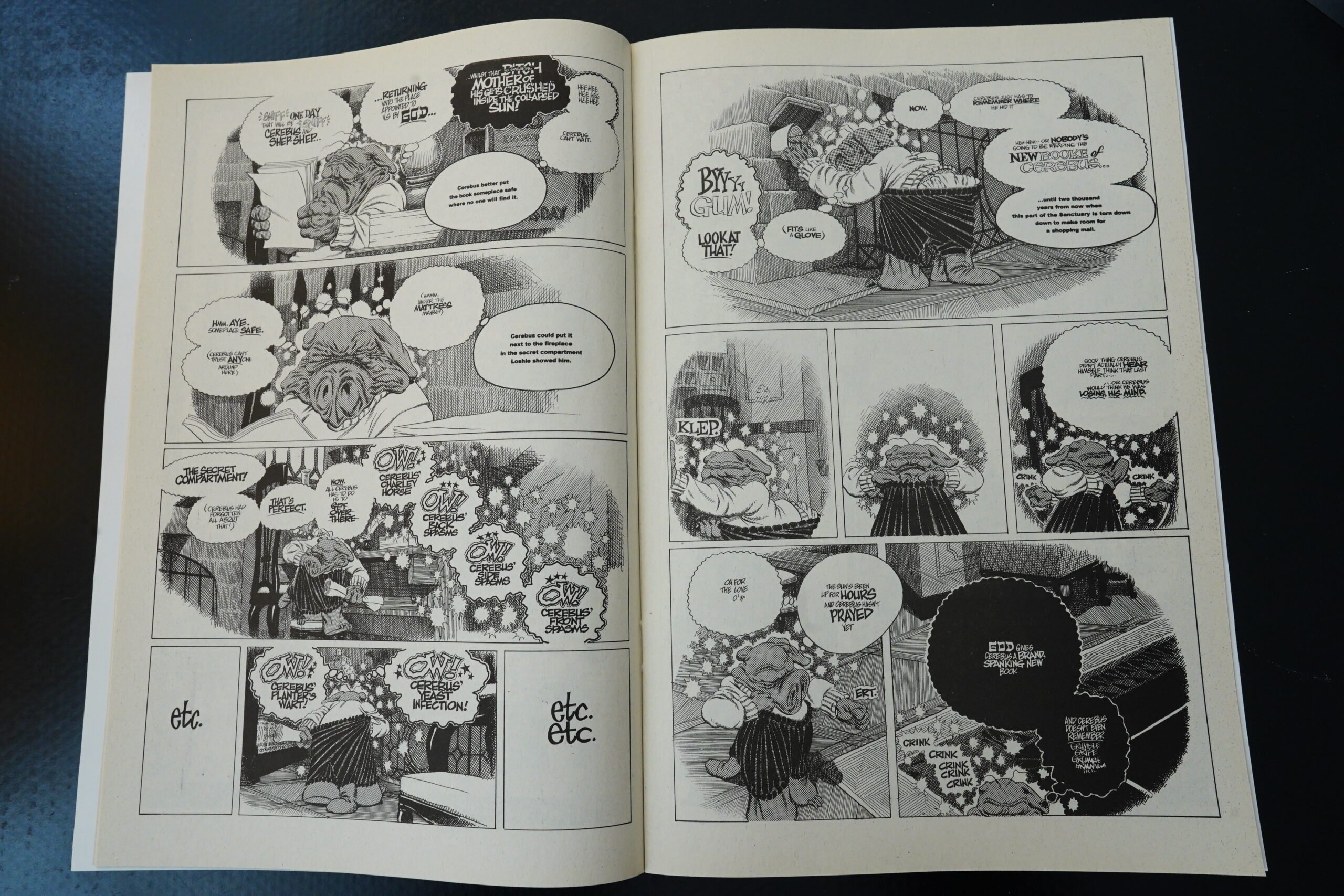
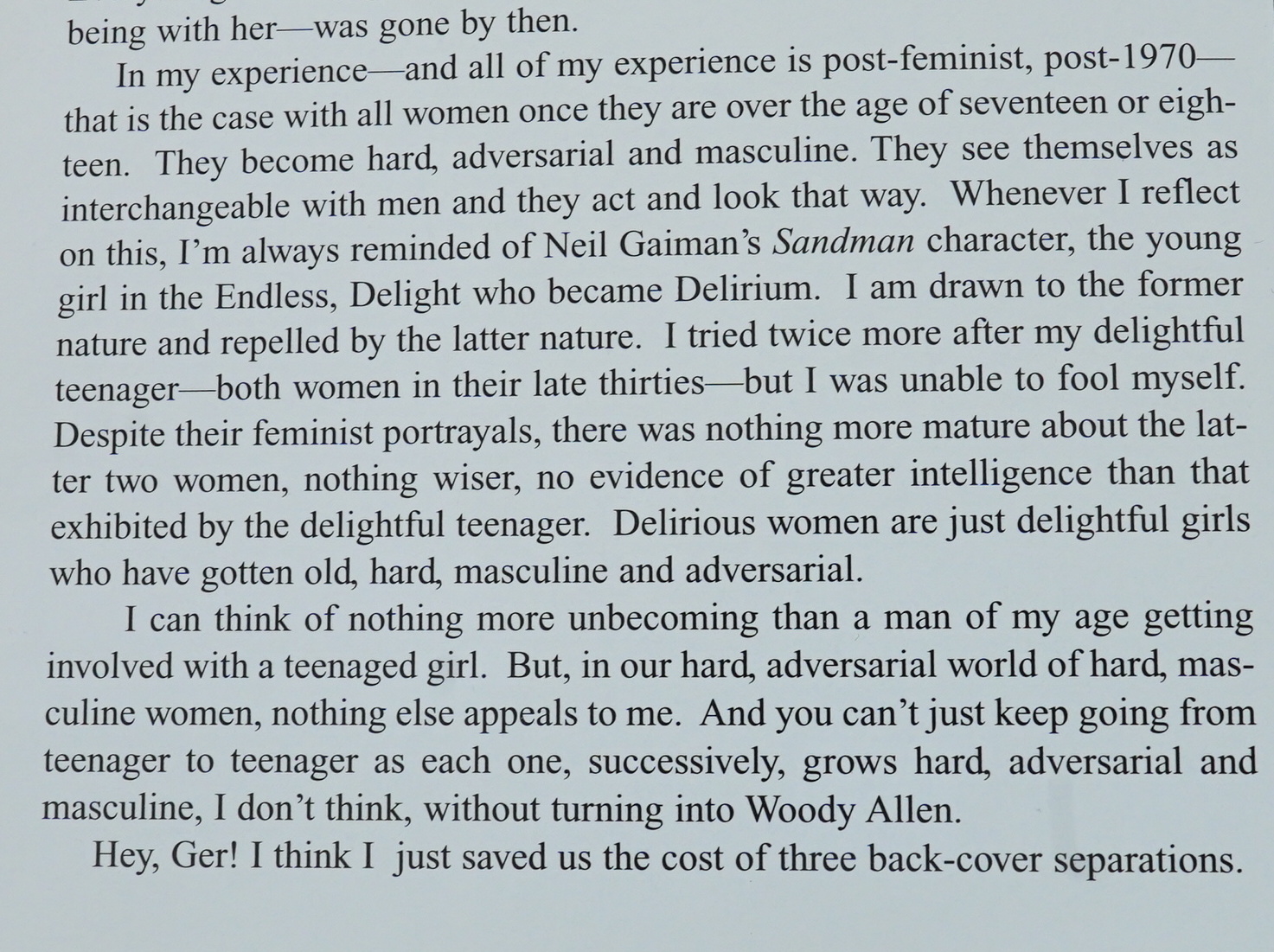
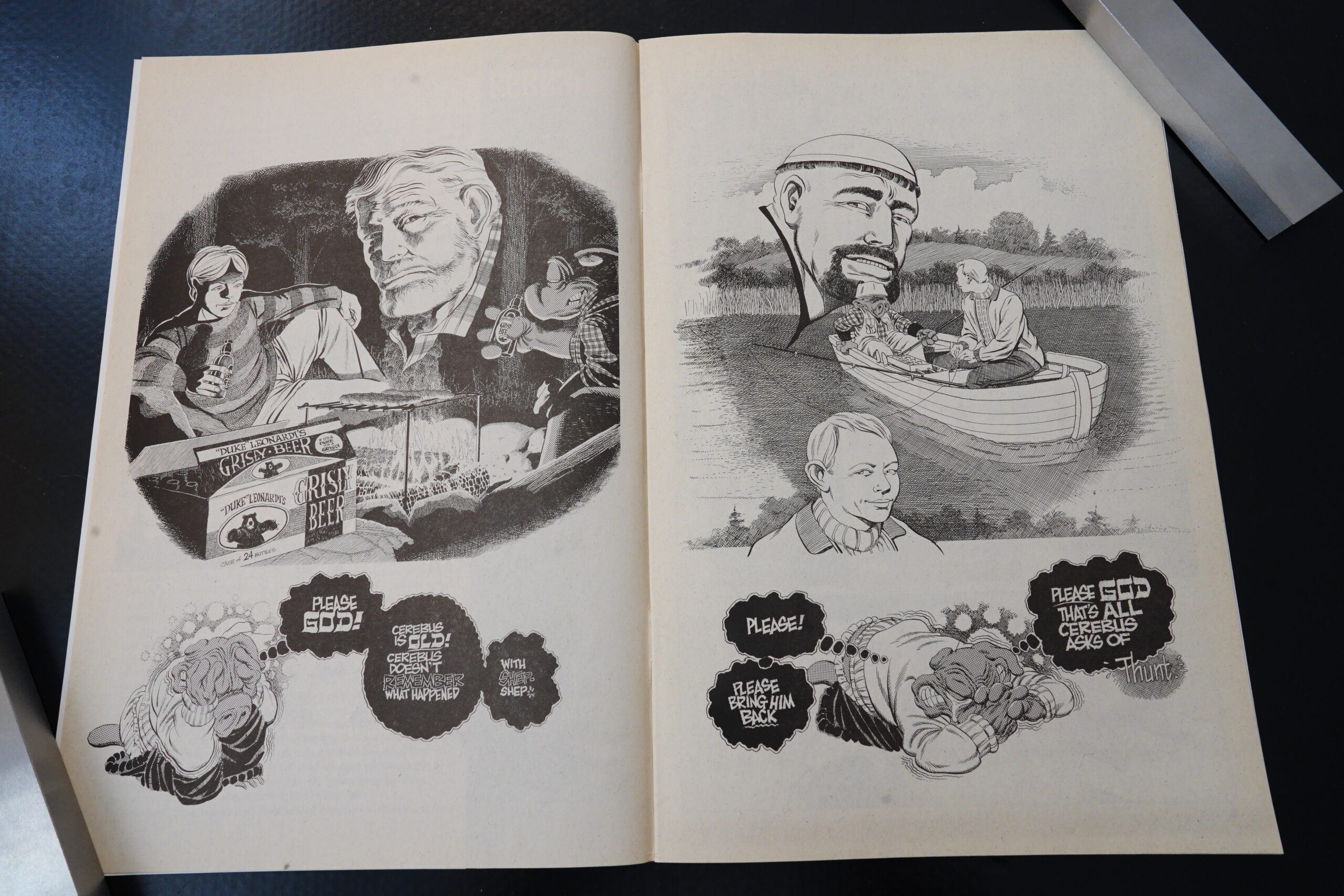
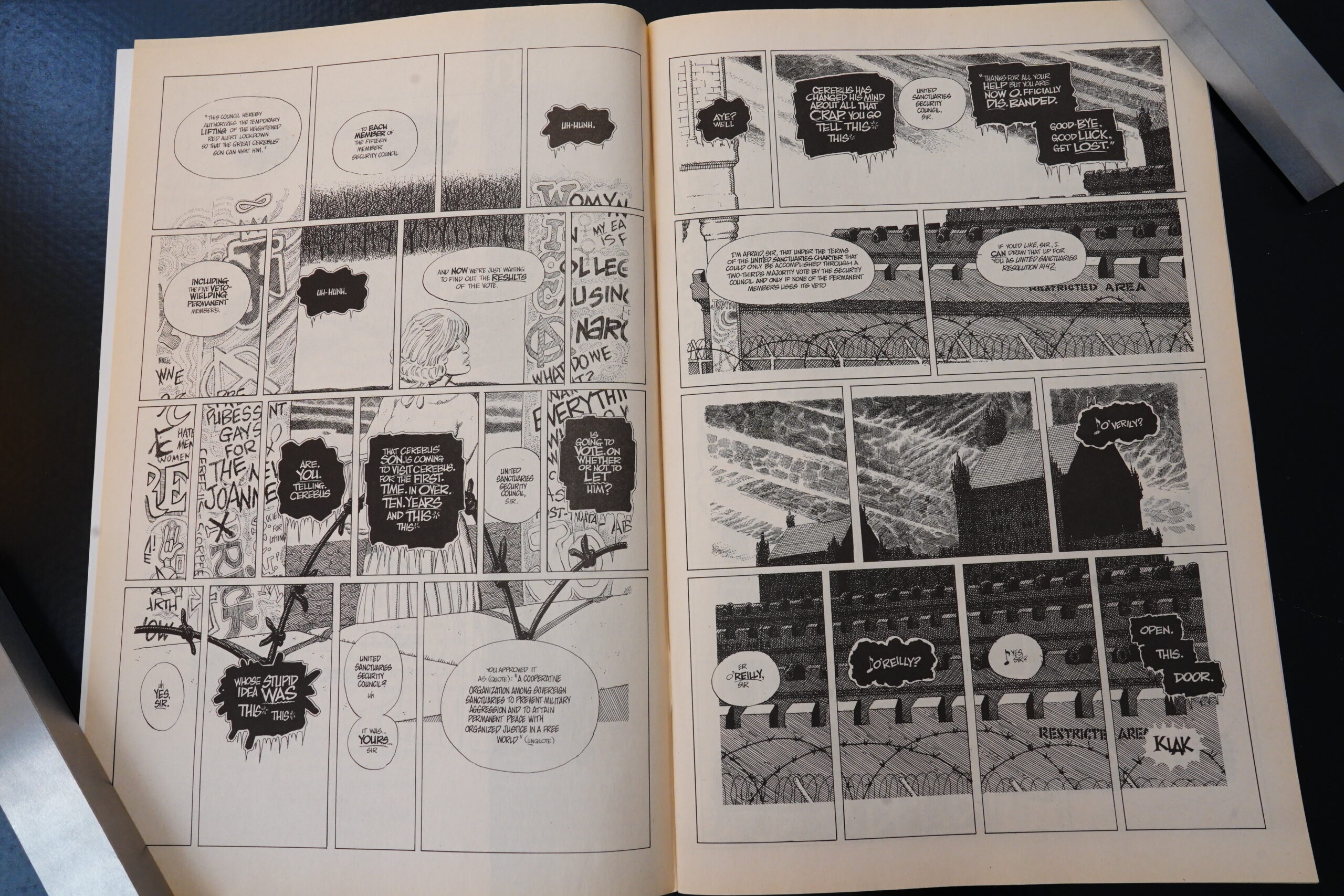
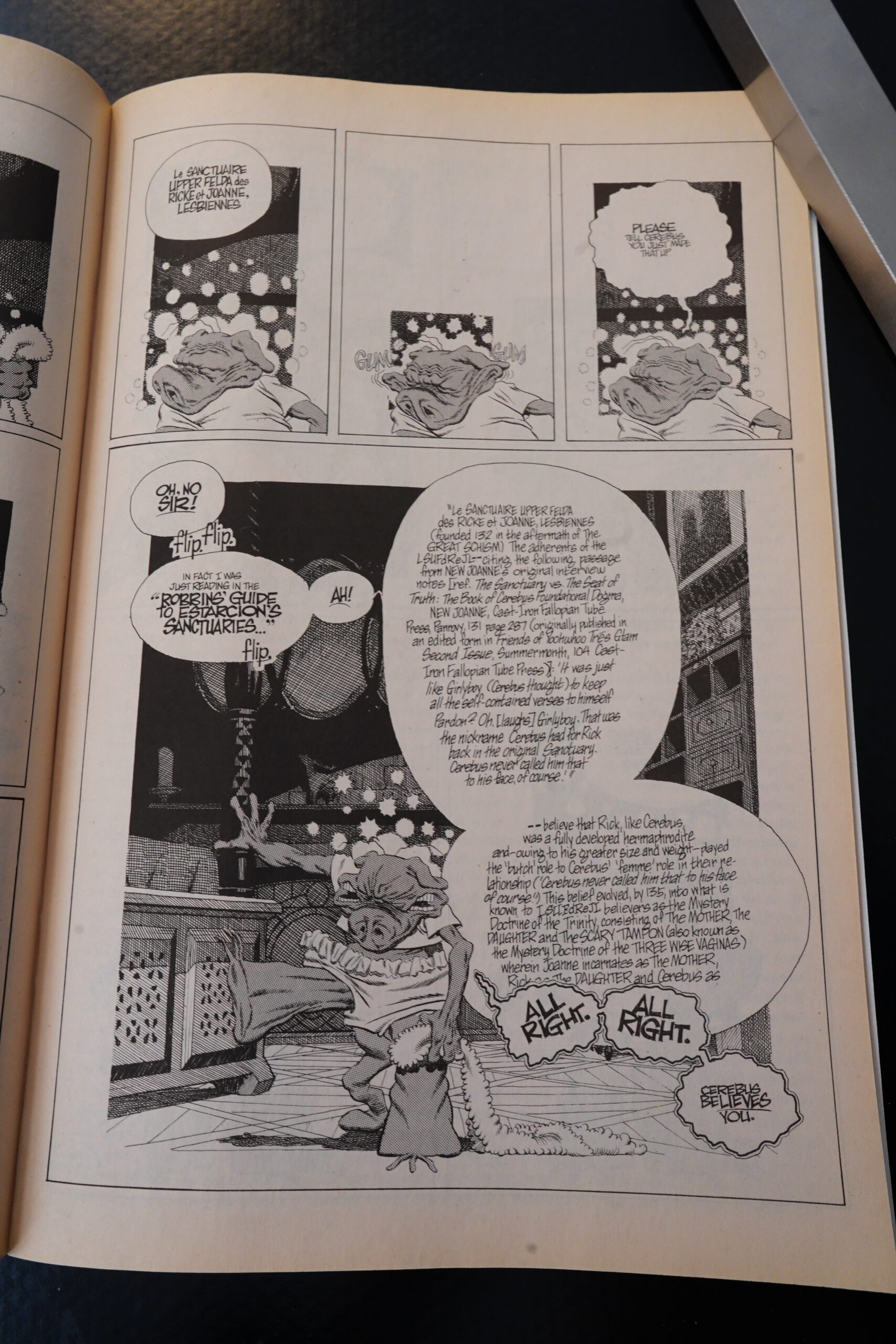
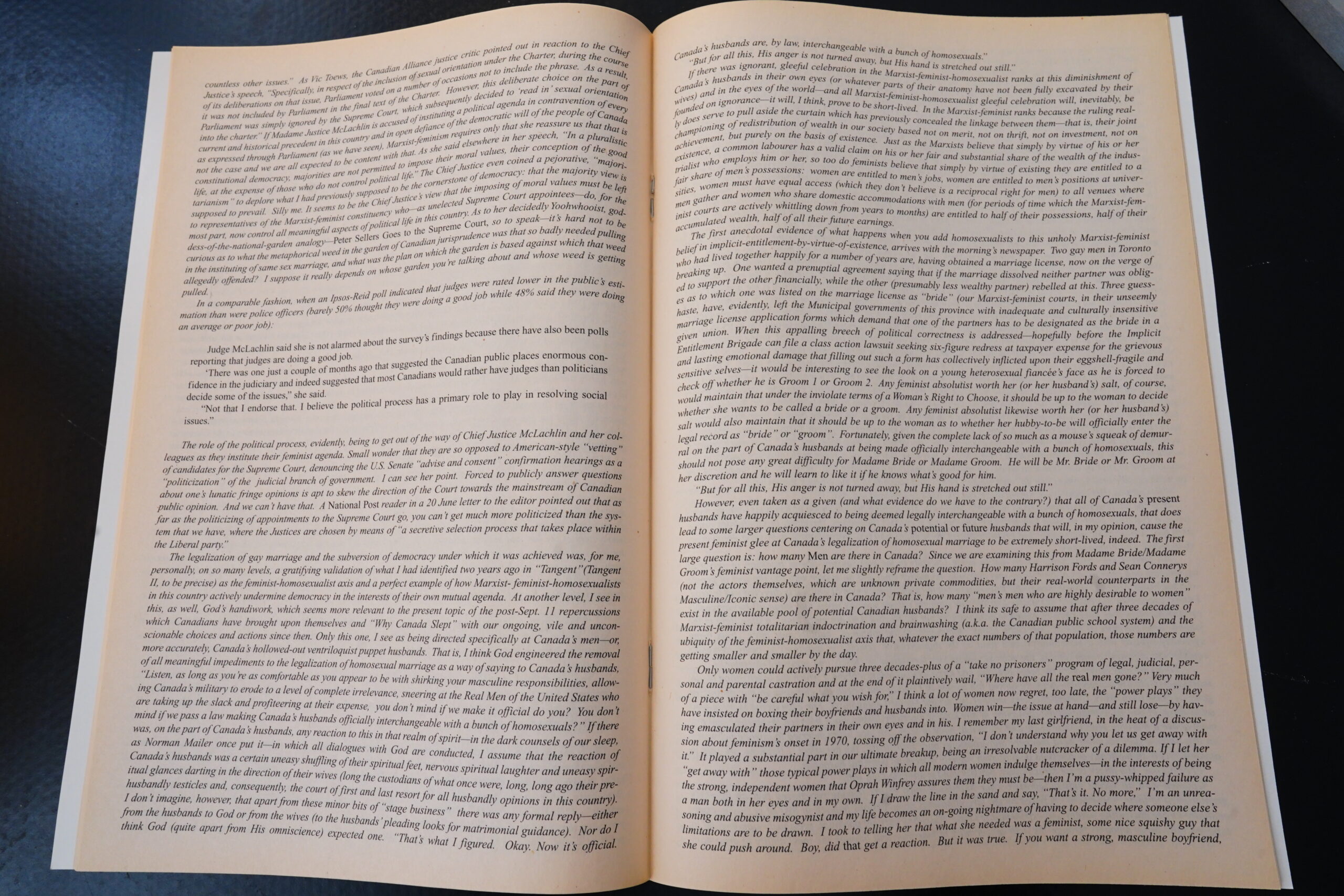
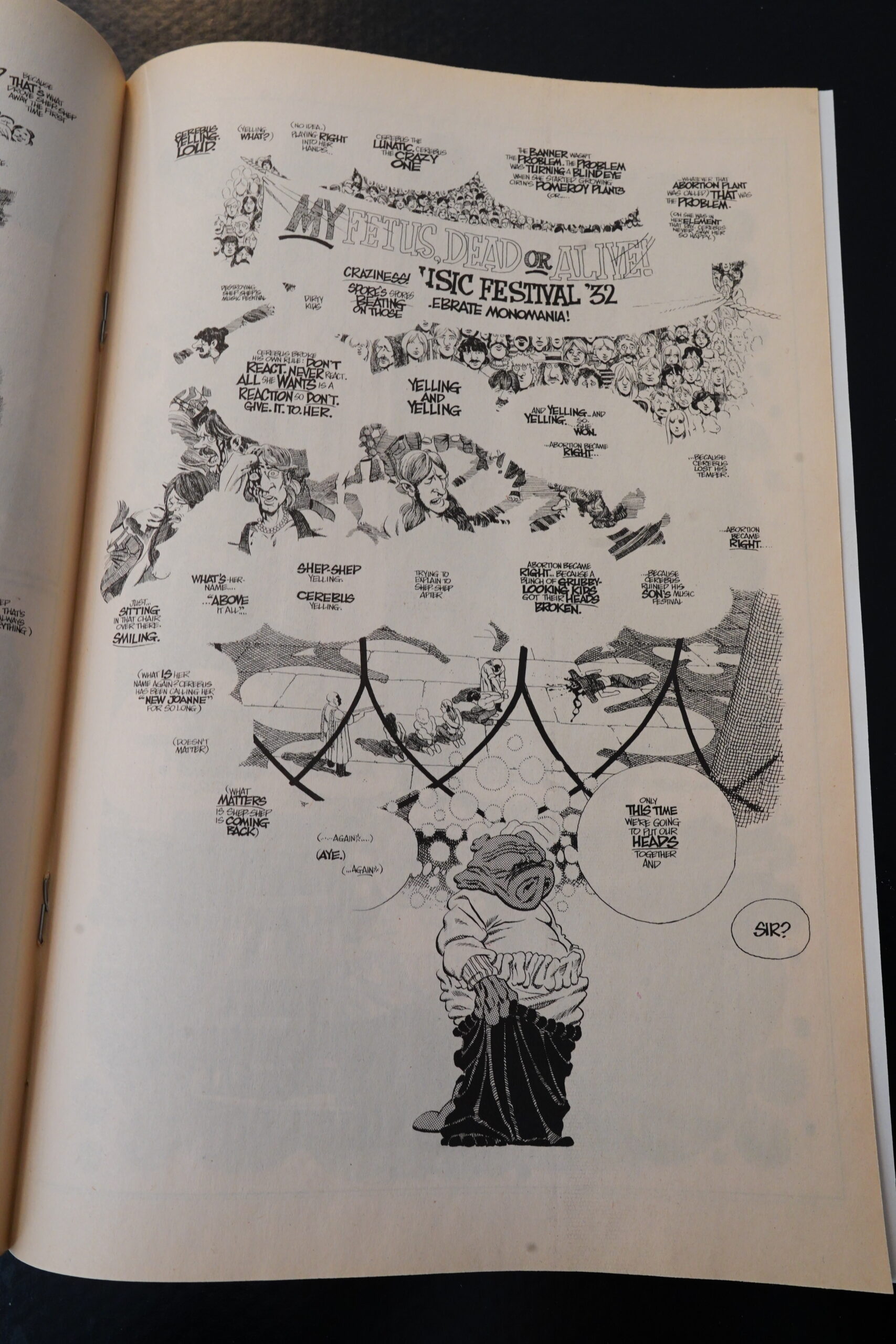
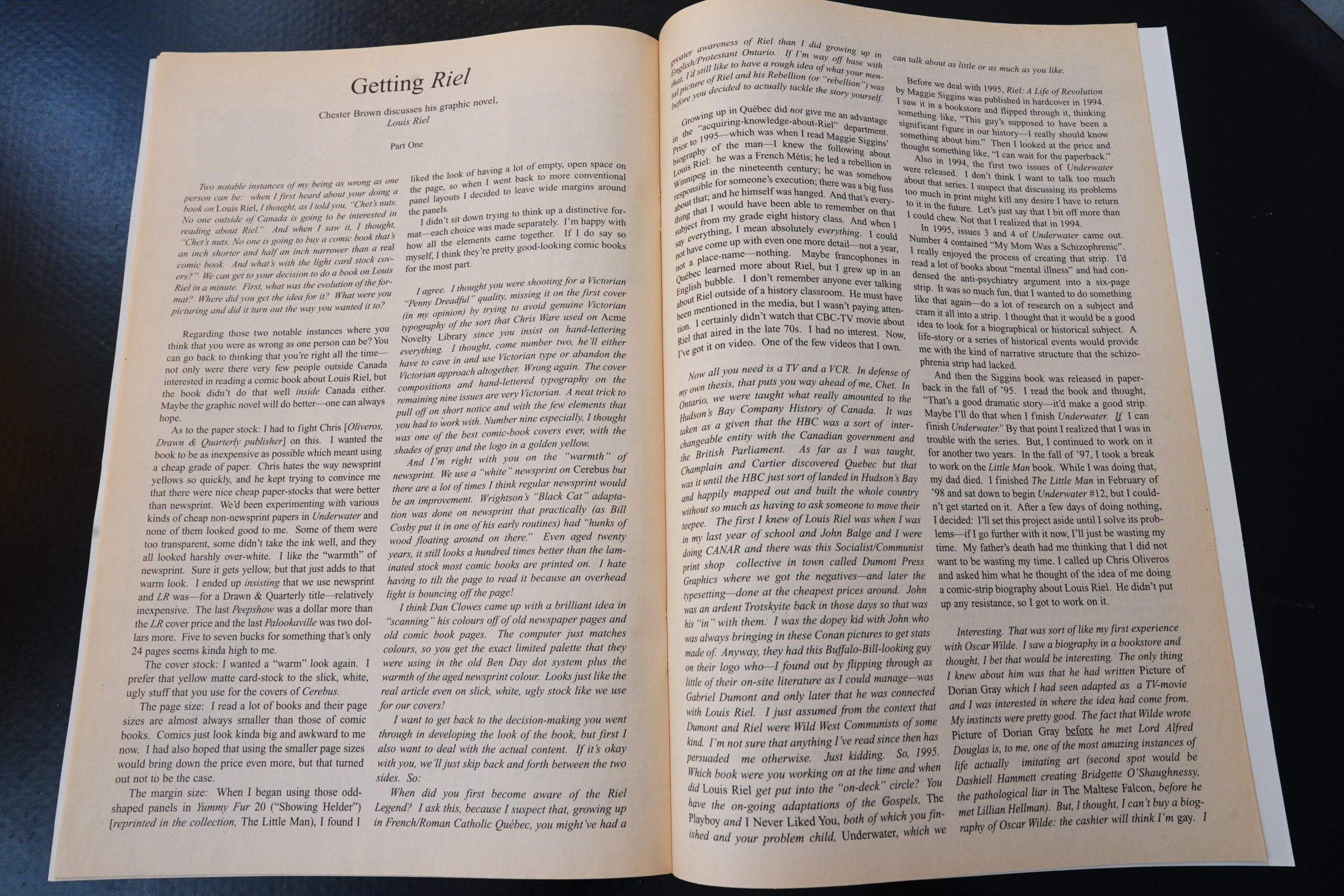
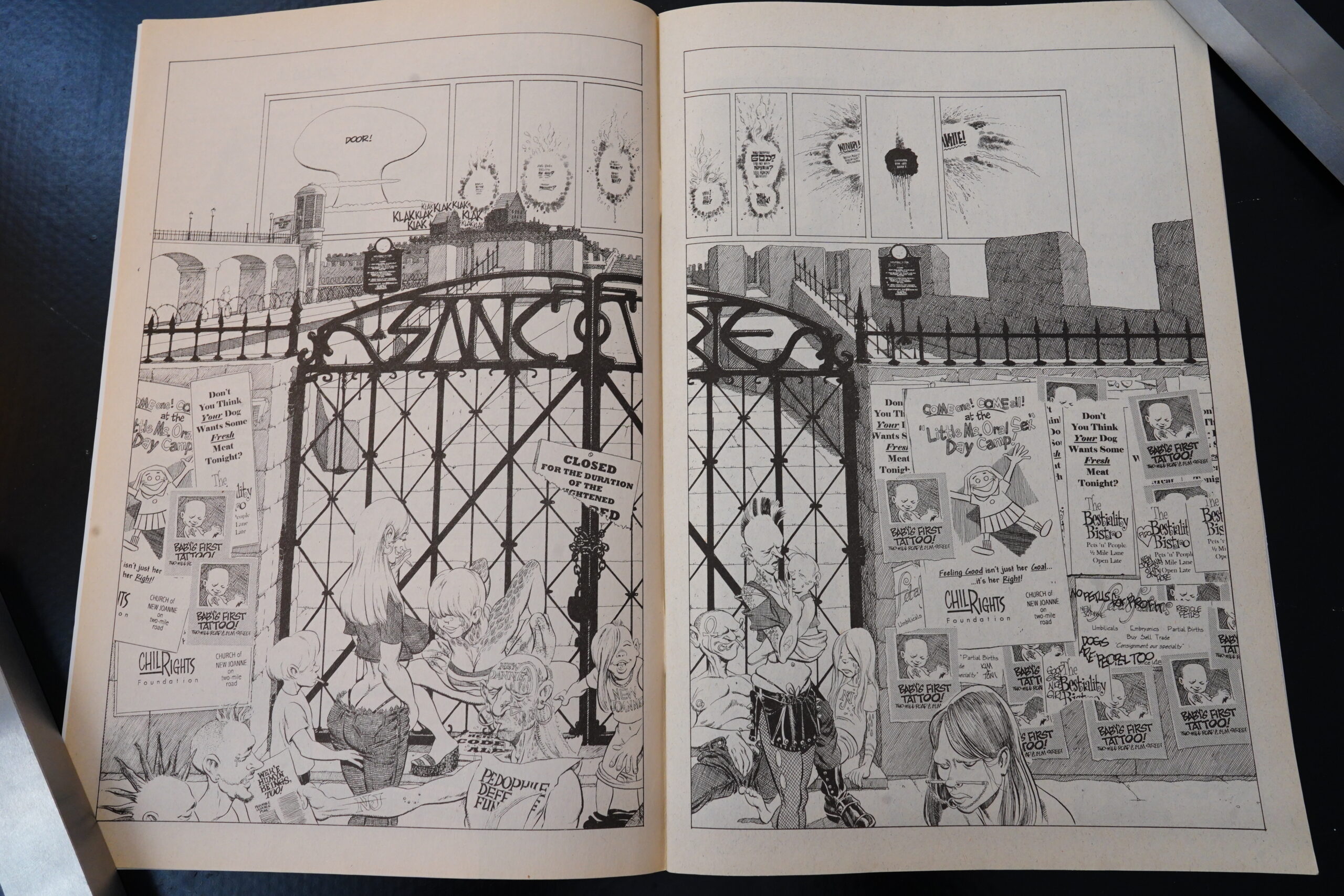
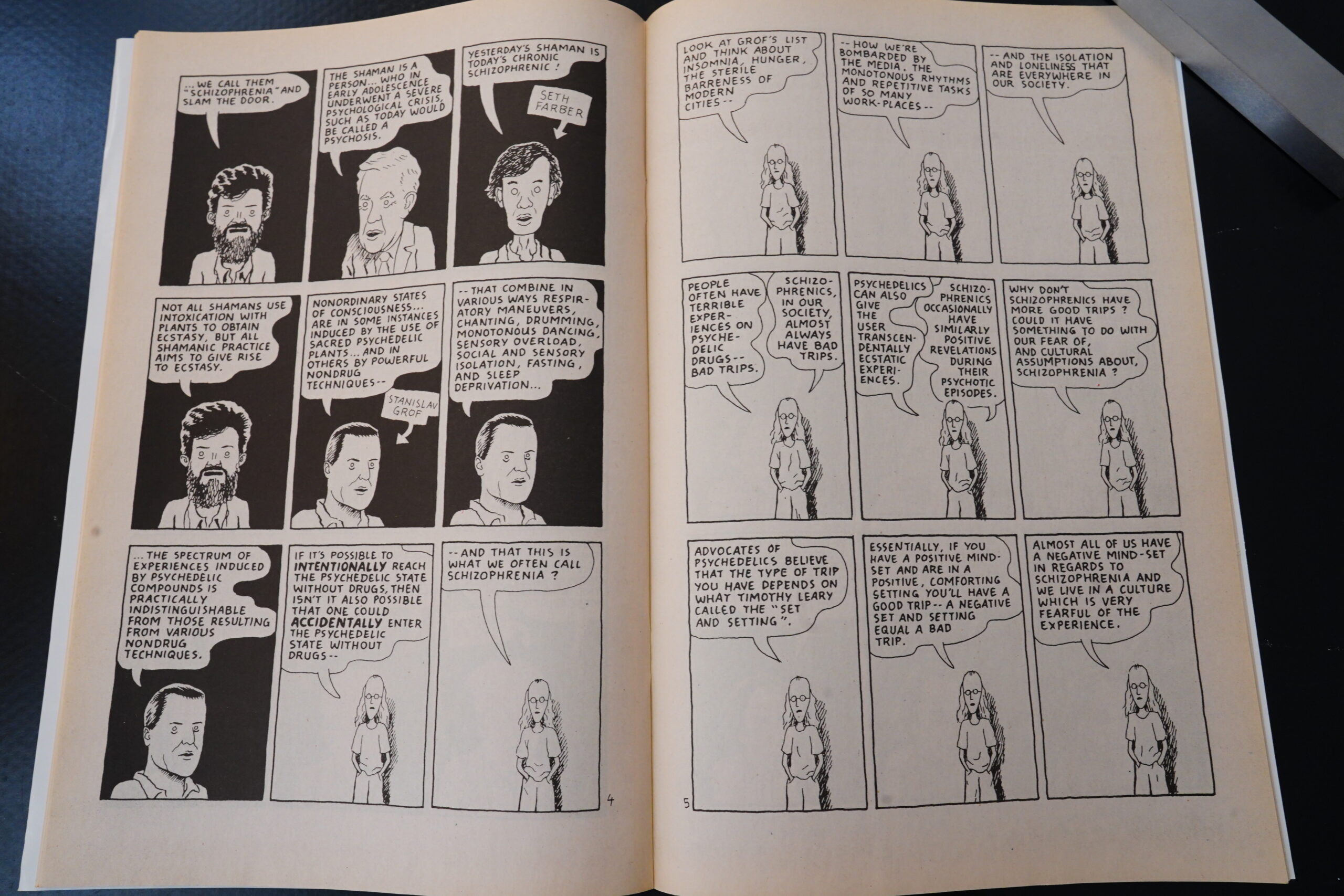
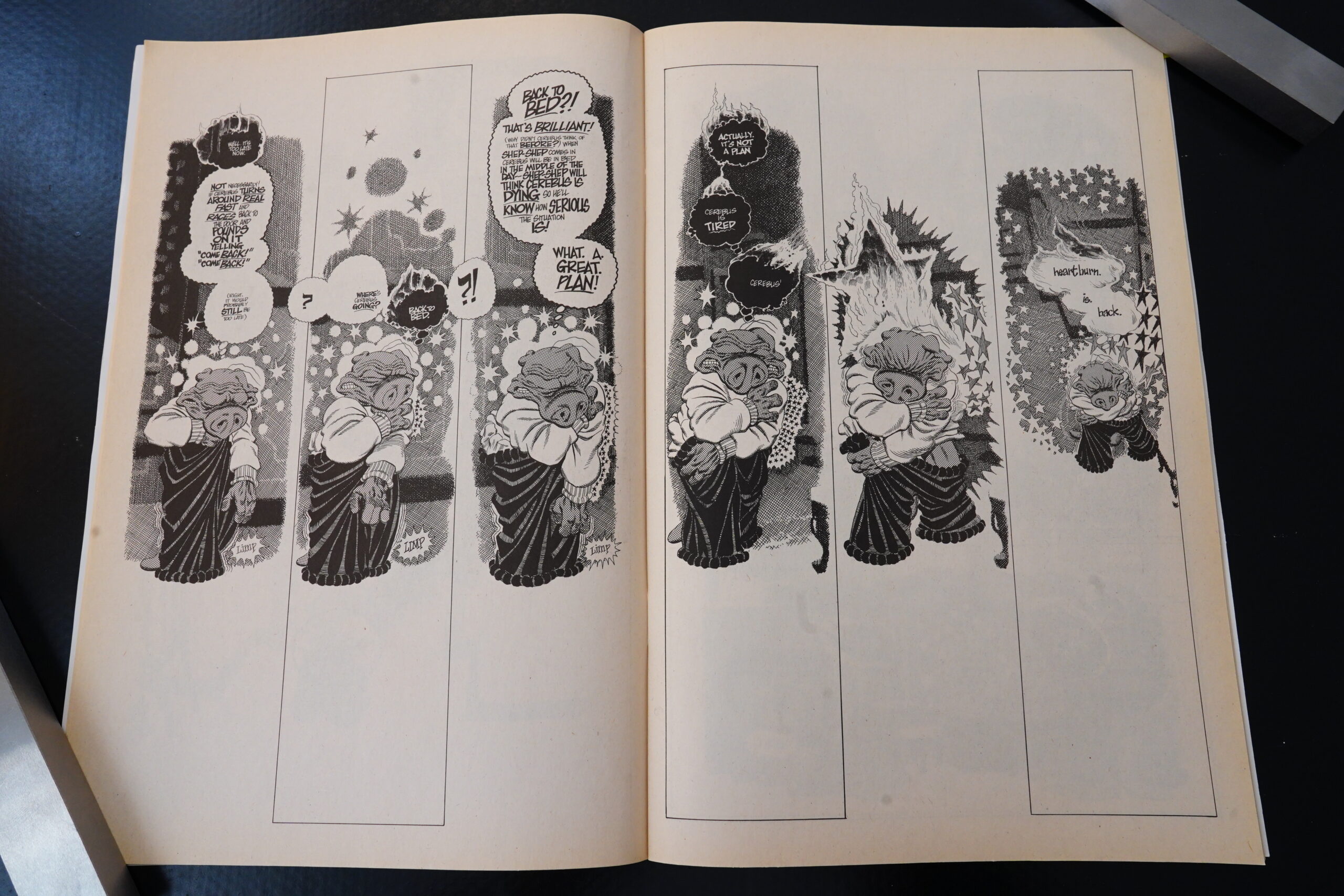
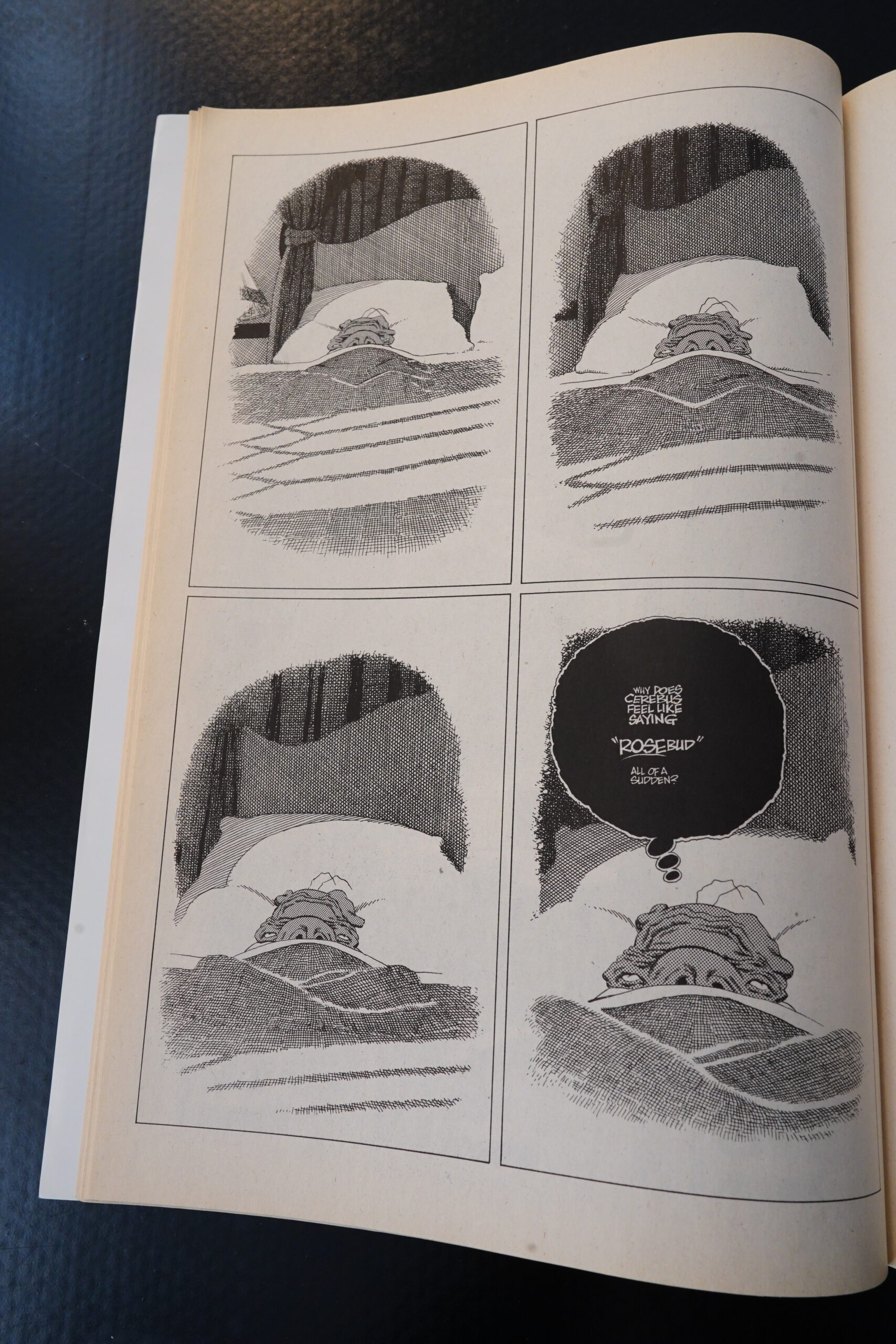
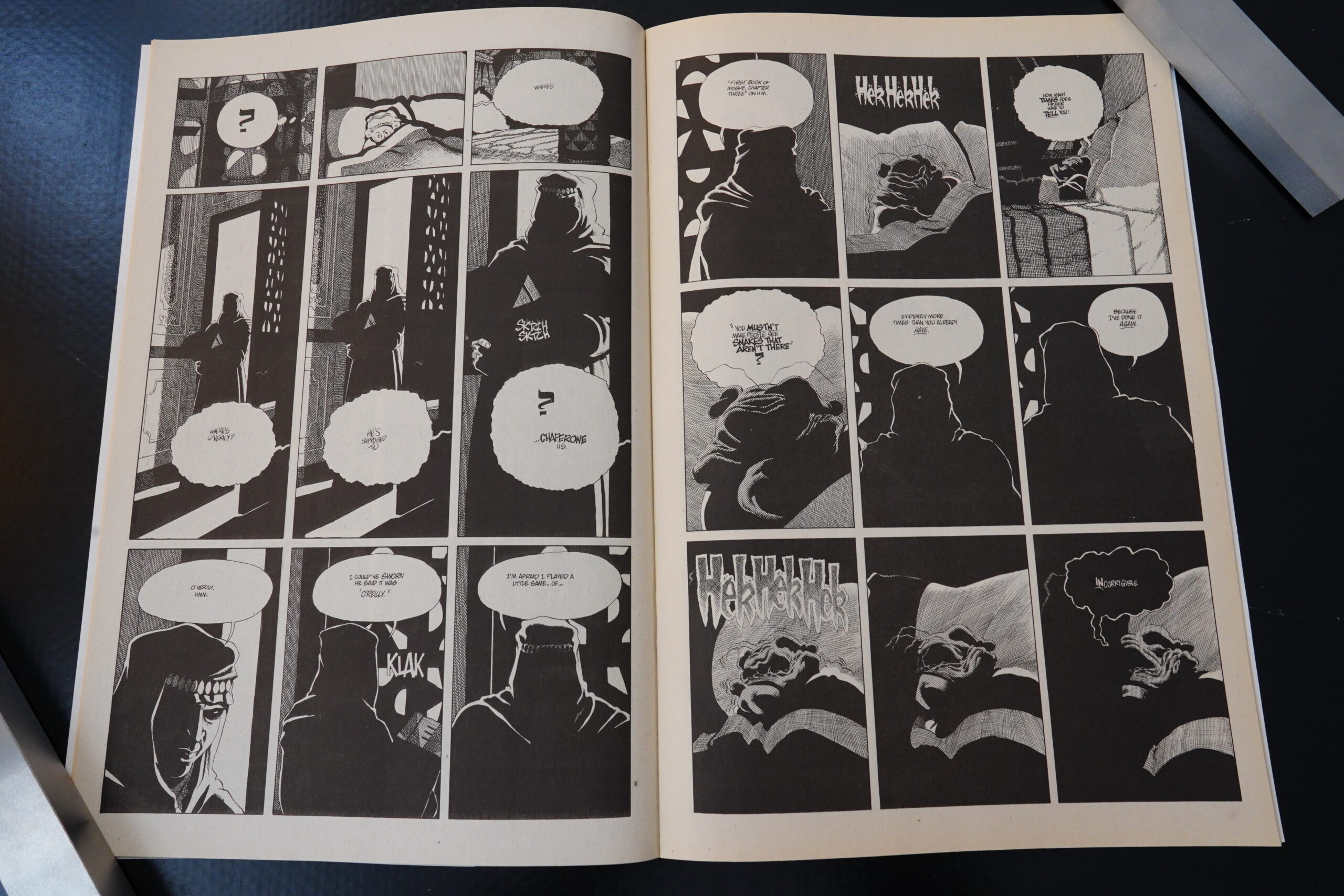
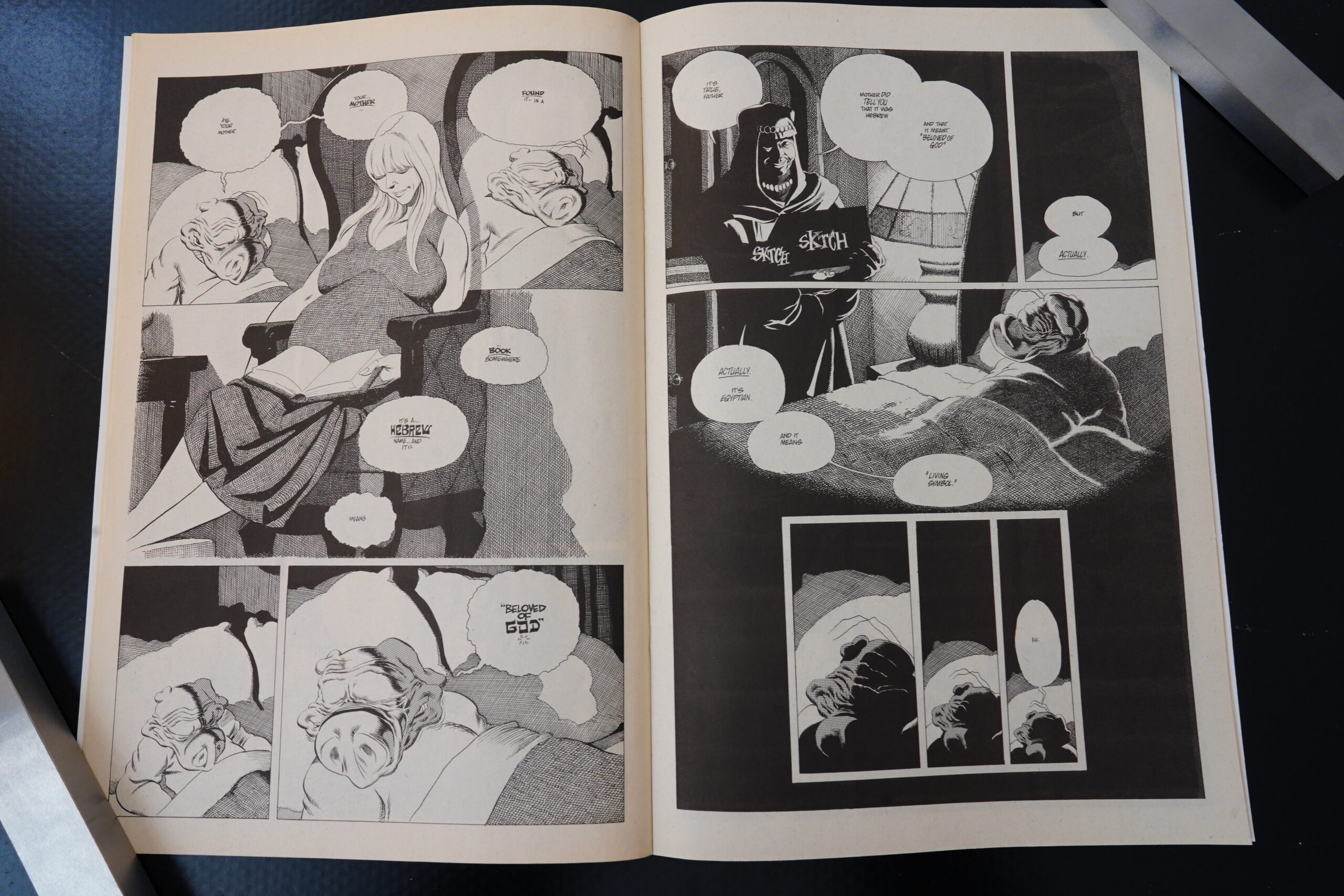
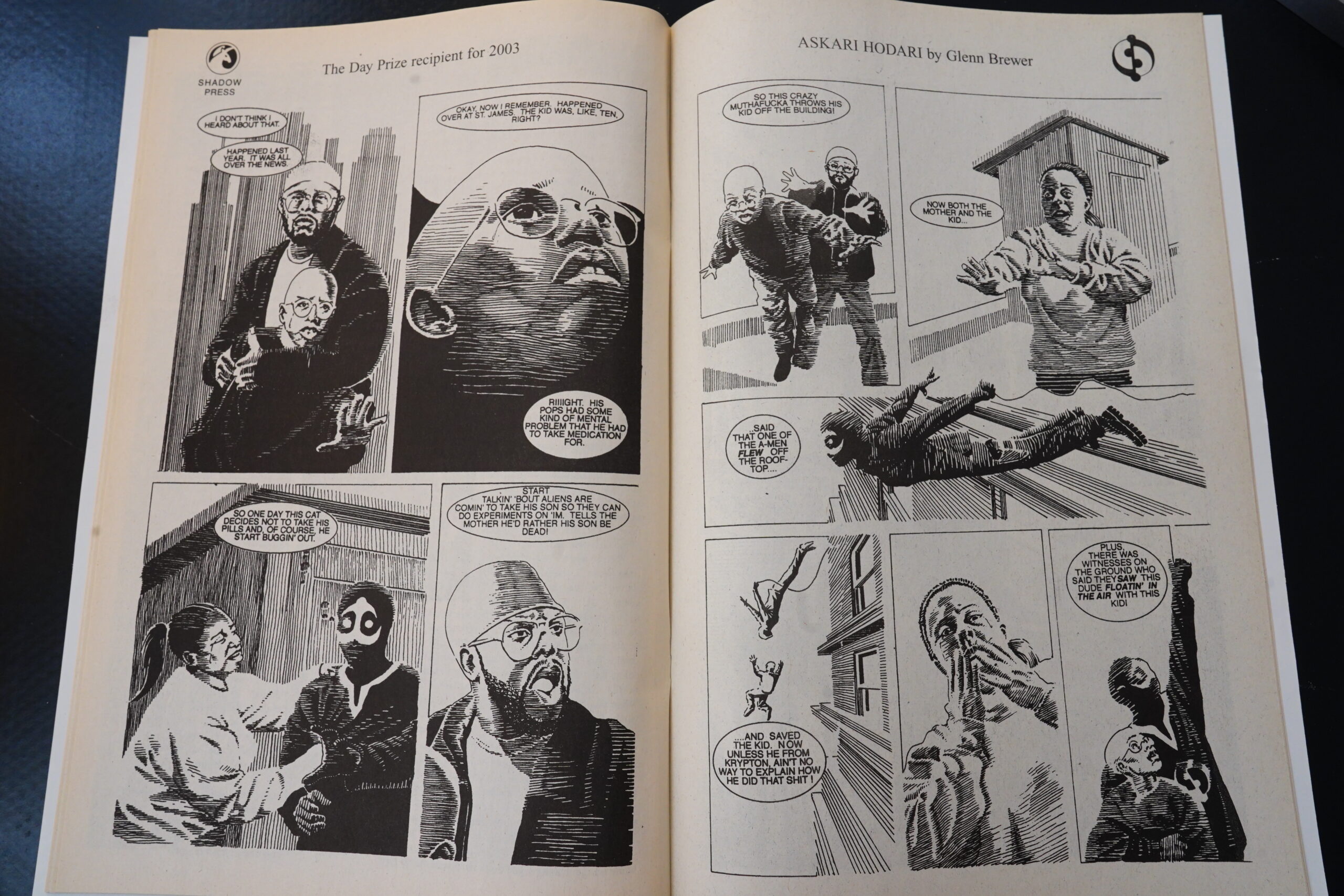
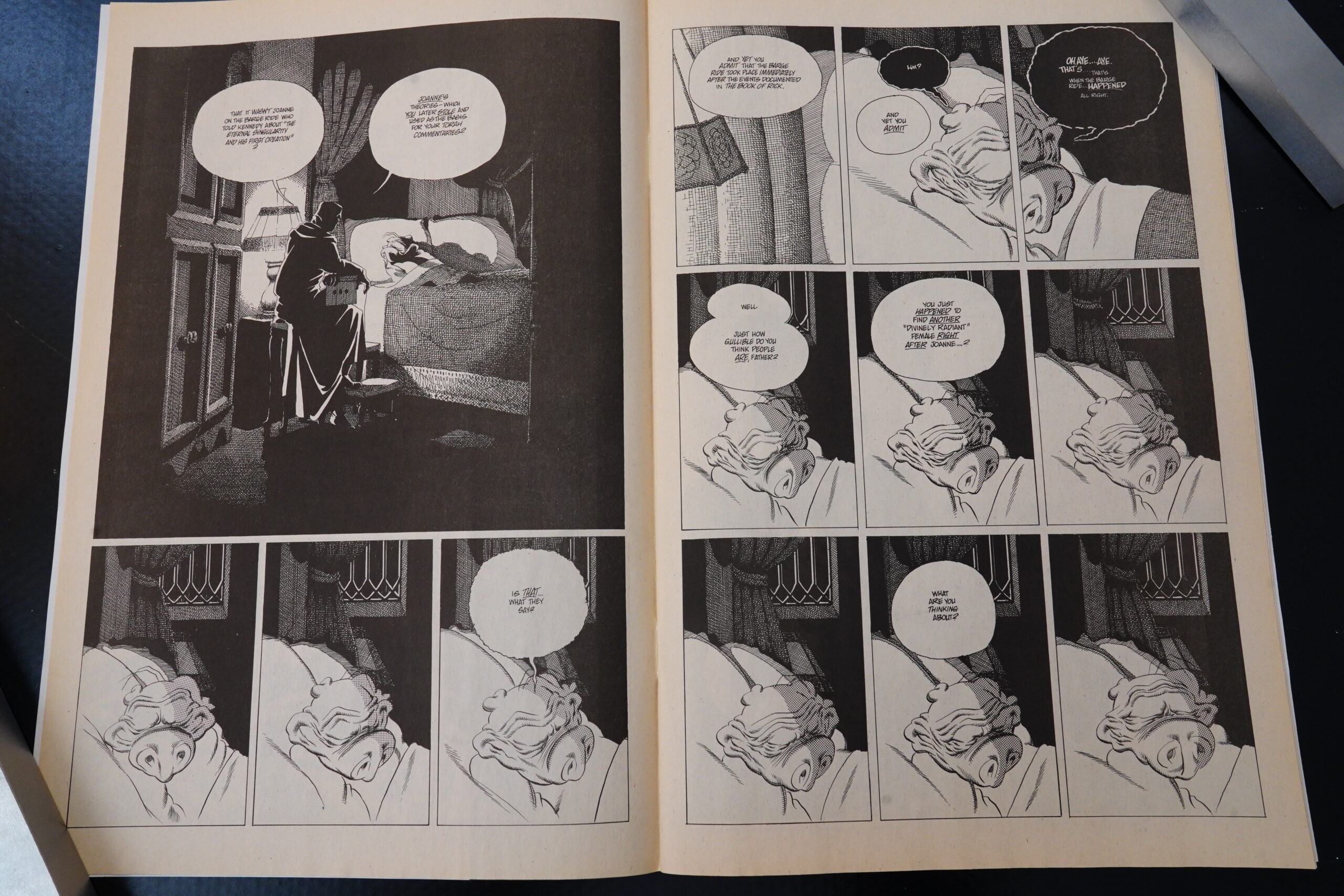
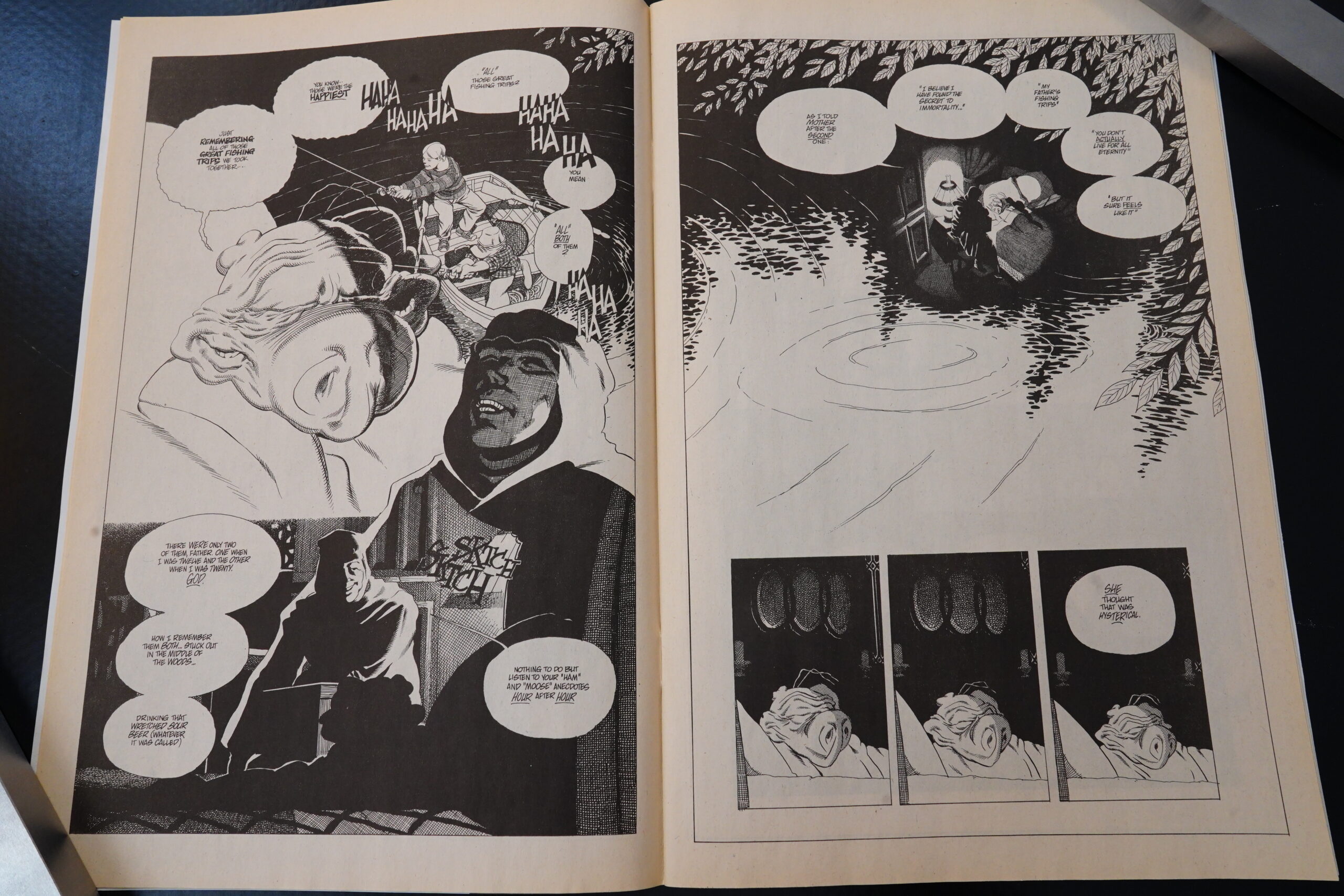
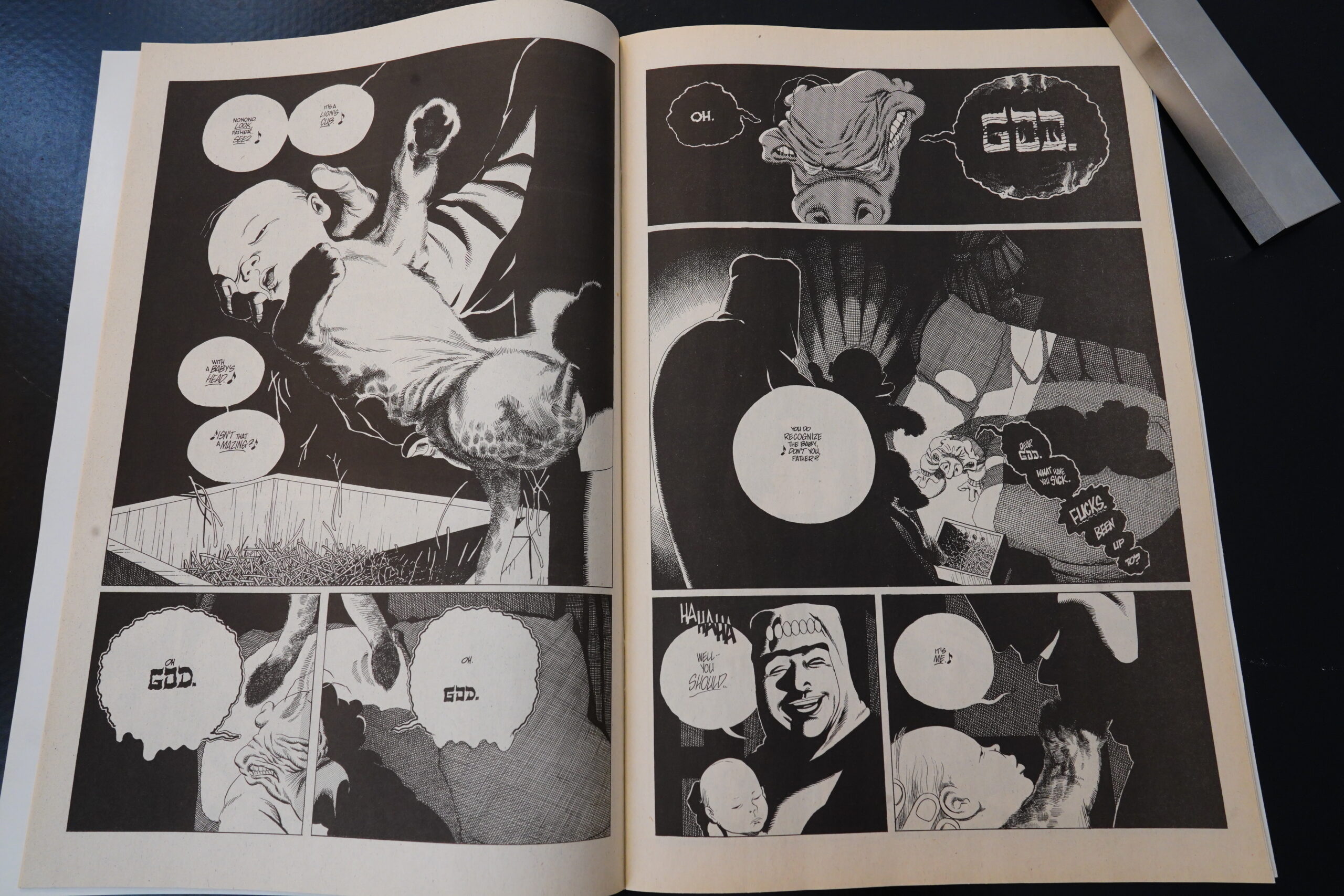
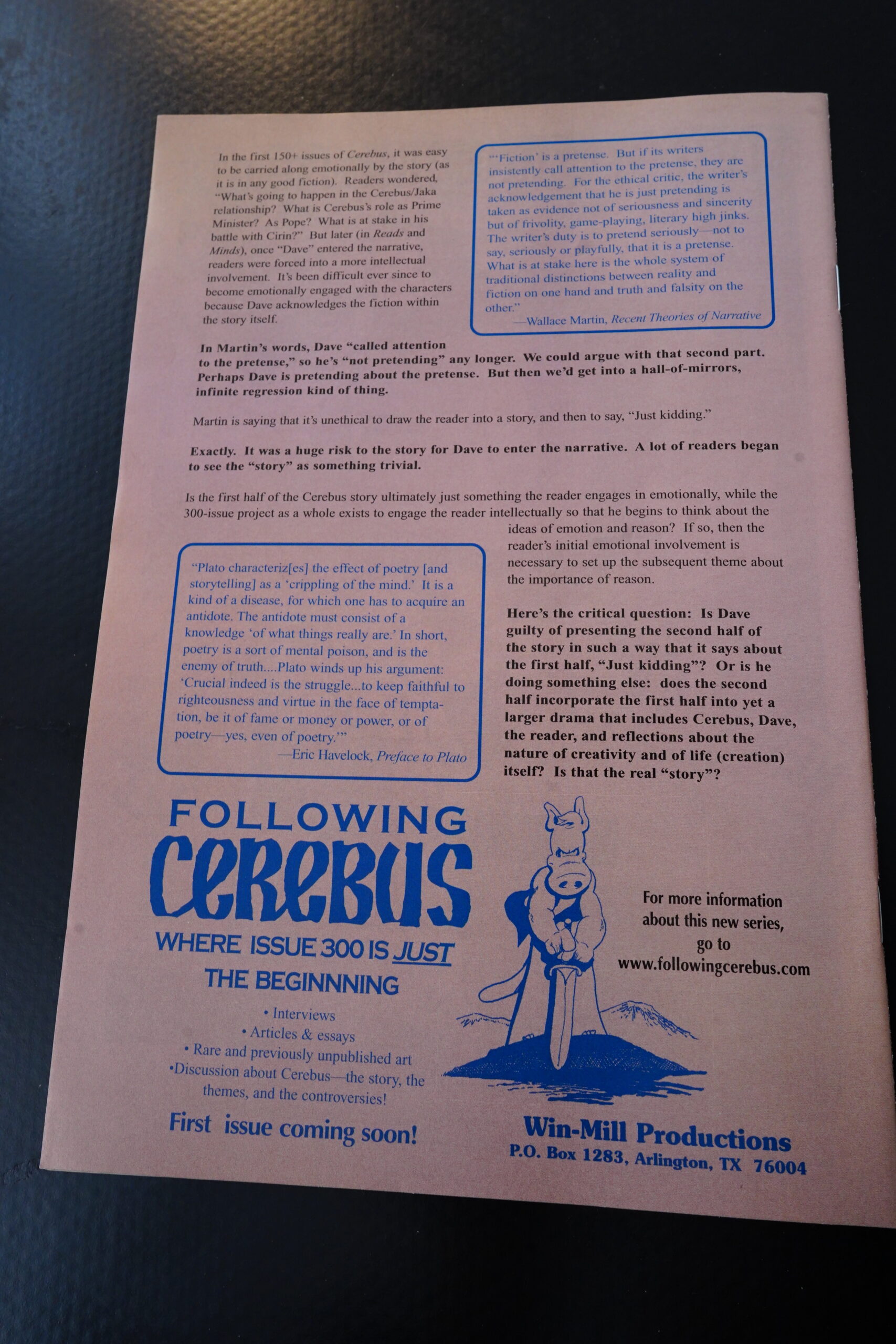
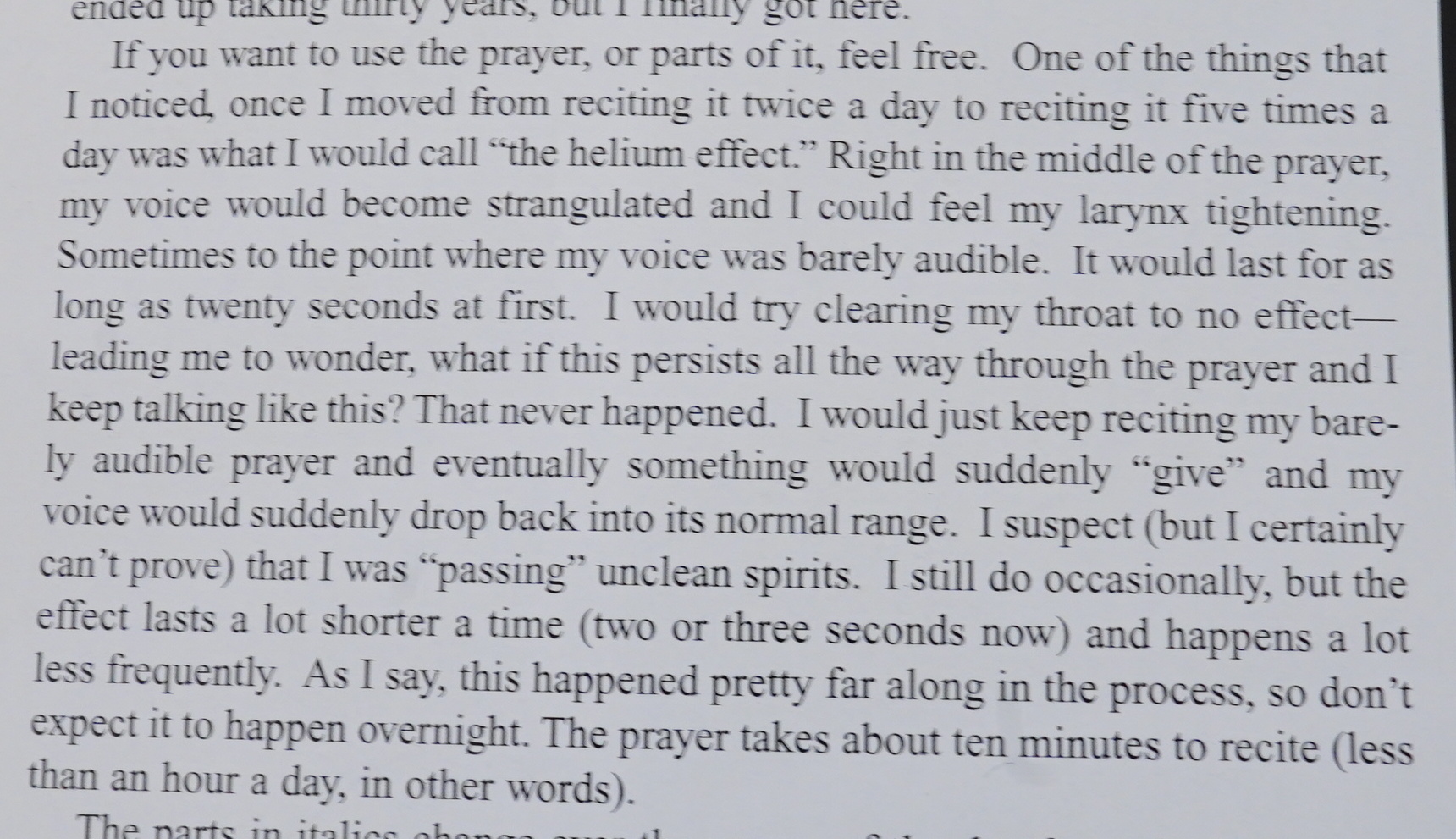
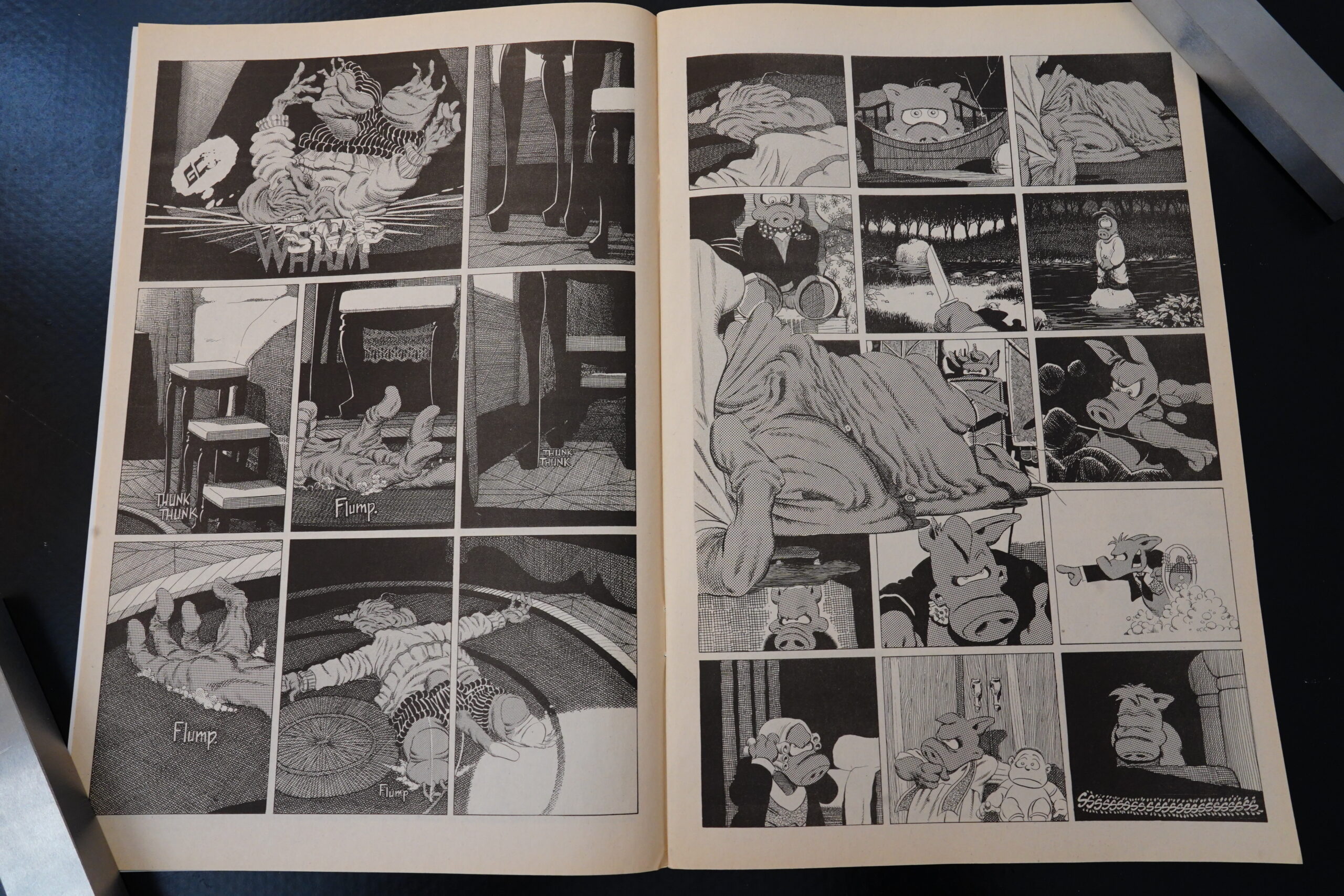
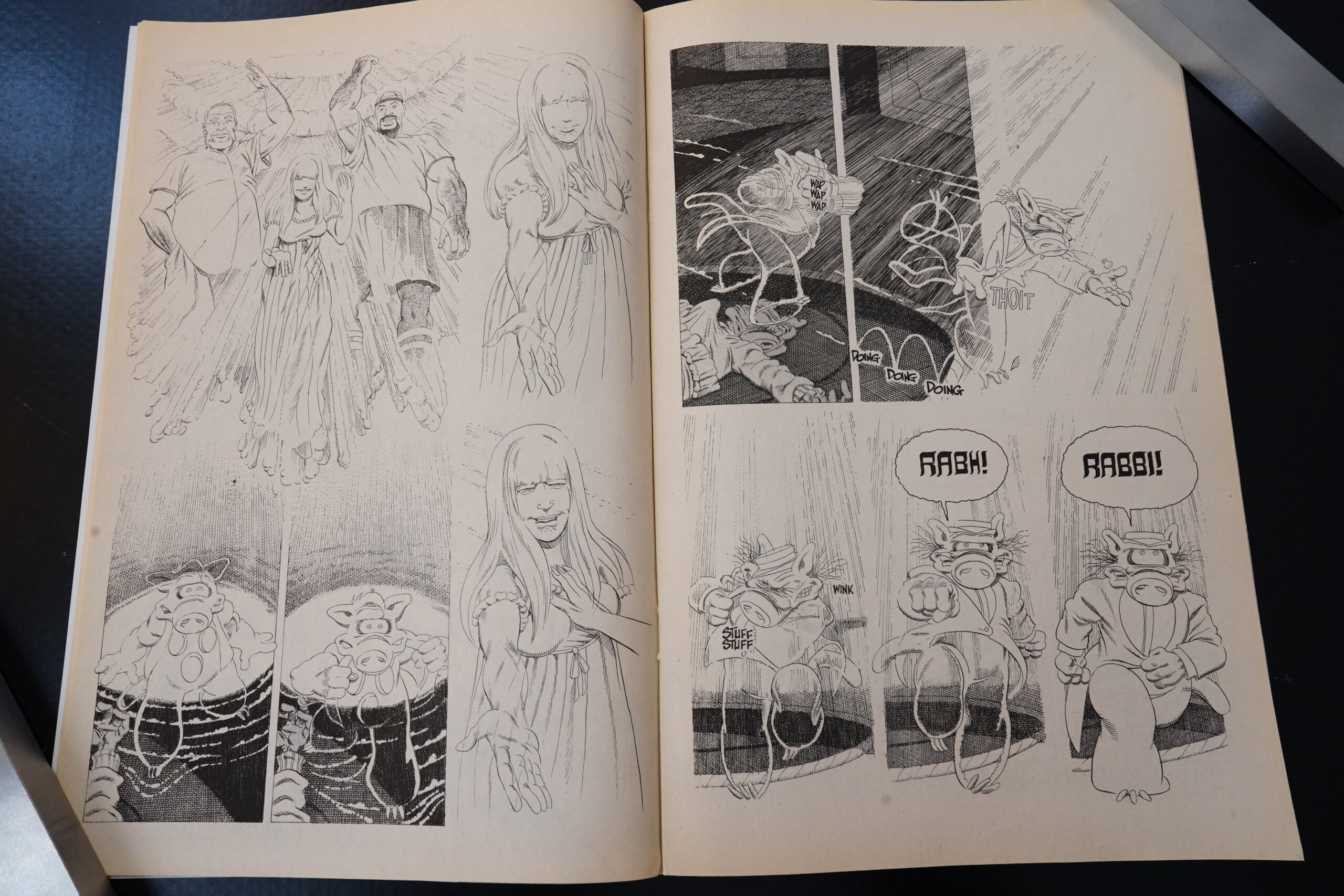
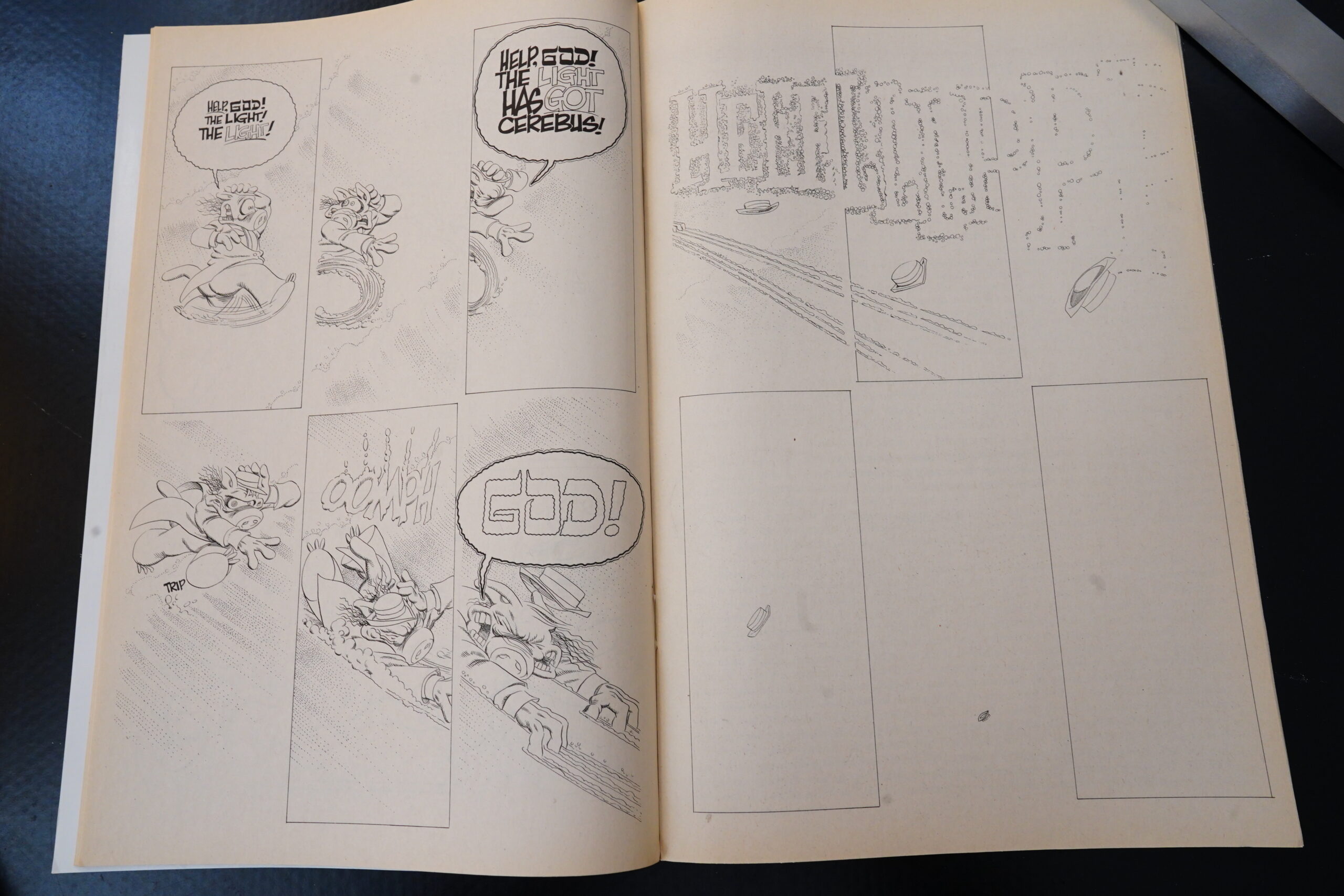
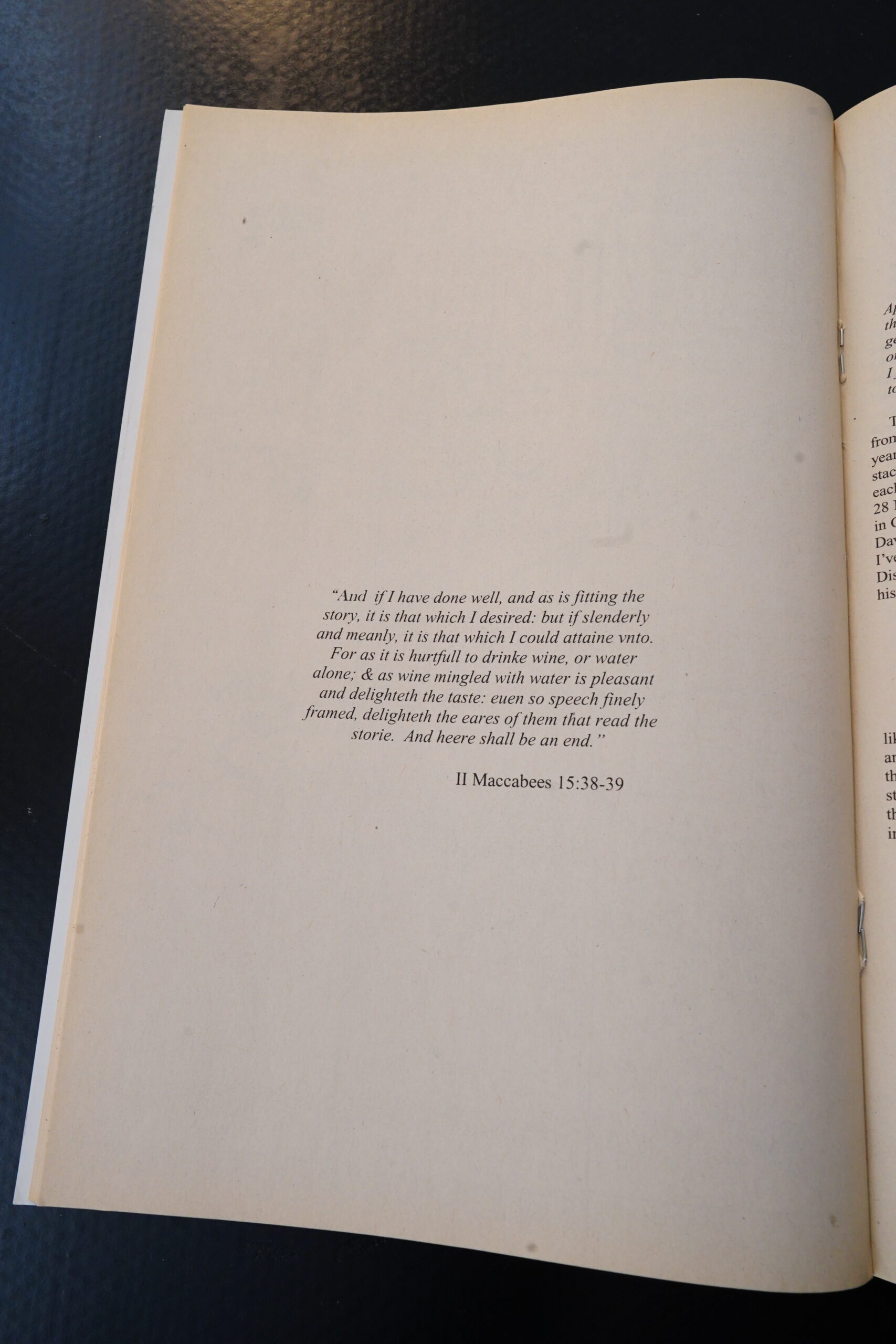

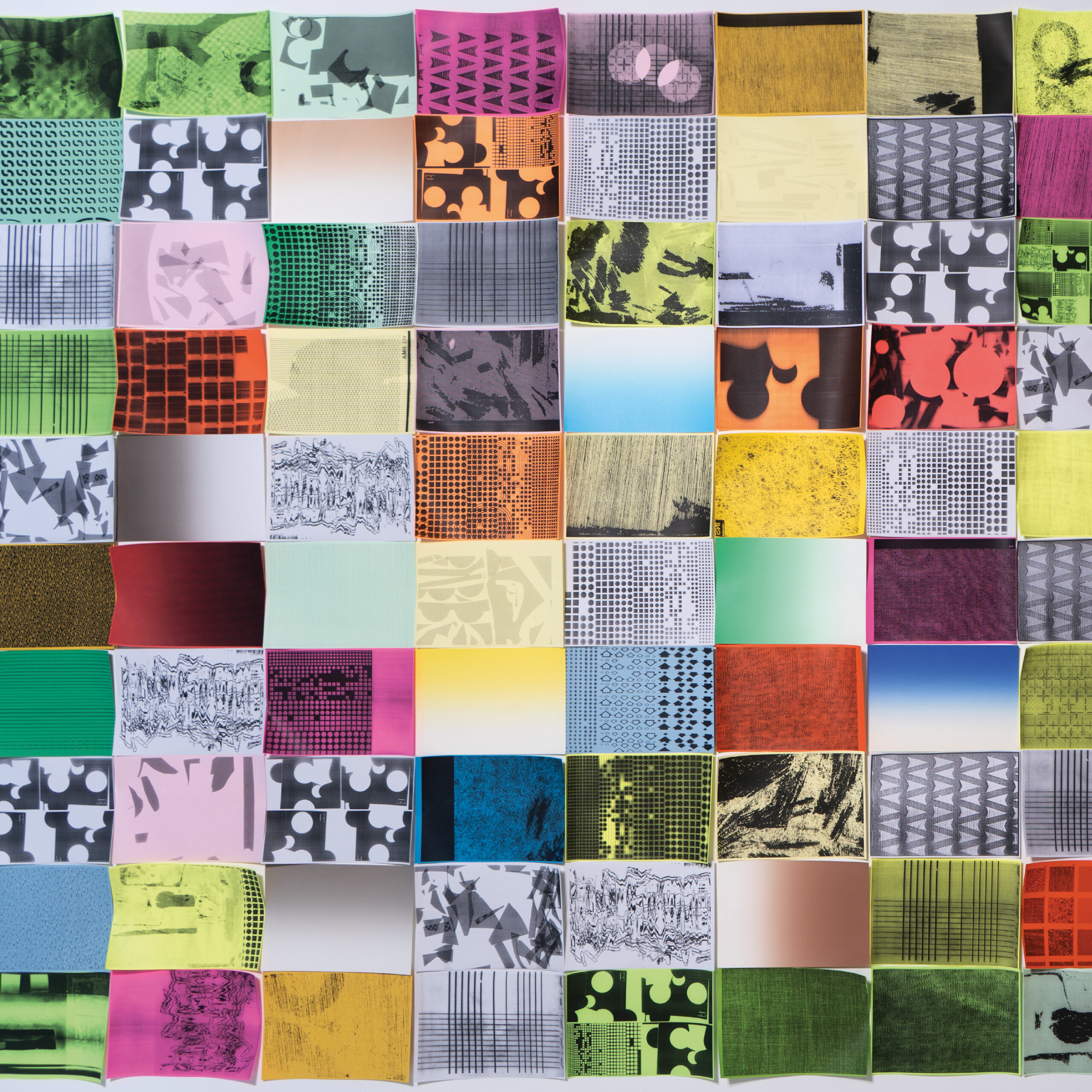



%3A+The+Old+Homestead+(1974))
)
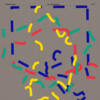

)

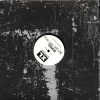

%3A+Bright-Side+Mix)
%3A+Dark-Side+Mix)




)
